Holocaust Remembered 10th Anniversary Collection 2014-2023

1
 The Columbia Holocaust Memorial in Memorial Park, Columbia, S.C.
The Columbia Holocaust Memorial in Memorial Park, Columbia, S.C.
Curated by the South Carolina Council on the Holocaust

3 Holocaust Remembered
Anniversary
10th
Collection 2014-2023
Copyright 2023 South Carolina Council on the Holocaust
All rights reserved. No portion of this work may be reproduced in any form or by any means, including electronic storage and retrieval systems, without express prior written permission of the publisher, except for brief passages excerpted for review and critical purposes.
Library of Congress Control Number: 2023923650
Book design by David Halloran
Southern Luxury Publishing
southernluxurypublishing.com
5 The World Today.........................................................................................................6 Introduction of Publication: Holocaust Remembered.........................8 Message from the Executive Director.............................................................9 Dedication..................................................................................................................10 2014................................................................................................................................12 2015................................................................................................................................38 2016................................................................................................................................64 2017................................................................................................................................90 2018.............................................................................................................................116 2019.............................................................................................................................142 2020.............................................................................................................................168 2021.............................................................................................................................194 2022.............................................................................................................................220 2023.............................................................................................................................250 Who We Are............................................................................................................276 Origins........................................................................................................................278 Acknowledgements............................................................................................280 Contributors............................................................................................................282 Contents
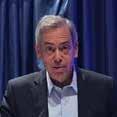
The World Today
BY MARK WEITZMAN
As I am writing these words, the recent murder of 1,400 Israeli civilians by Hamas terrorists is still fresh in mind. This massacre, the equivalent of killing 40,000 Americans in one day, led a prominent Holocaust scholar to write that the Holocaust became the “default frame of reference” for the October 7, 2023, massacre. Or, to put it in another way, the idea that we are living in a “Post-Holocaust World” does not stand up to our reality. The Holocaust may have ended in 1945, but it’s impact still shapes and resonates in our world.
It is not only the jarring reappearance of Nazi genocidal antisemitism or of the swastika as a symbol of political discourse and protest in Europe and the United States that reminds us of the hate that tore apart the world less than a hundred years ago; but it is also the attacks on the structure of democracy itself that reaffirms the need to study and learn about the Holocaust.
The Holocaust originated in Weimar Germany, a constitutional republic that was considered one of the most cultured and yes, civilized countries in the world. Its institutions of higher learning, its artistic, intellectual, and scientific elites were the leaders in their fields. And yet the final products of that society were, in the memorable phrase of the late Methodist minister and scholar Franklin Littell, “technically competent barbarians” who specialized in genocide.
Supreme Allied Commander and future US President Dwight D. Eisenhower summed up the revulsion and resolve Americans felt when they saw the death camps and the results of 12 years of rule by the Nazis and their local collaborators. Eisenhower famously said in words inscribed on the walls of the United States Holocaust Memorial Museum: “The things I saw beggar description. … The visual evidence and the verbal testimony of starvation, cruelty and bestiality were so overpowering as to leave me a bit sick ... . I made the visit deliberately, in order to be in a position to give first-hand evidence of these things if ever, in the future, there develops a tendency to charge these allegations merely to ‘propaganda.’”
The presence of the survivors and liberators in South Carolina is rapidly diminishing, yet their accounts and testimonies are needed more than ever. The South Carolina Council on the Holocaust has taken on the urgent responsibility of ensuring that their legacy is nurtured and transmitted to future generations, and this anthology of 10 years of educating South Carolinians about the Holocaust through personal and family stories is an invaluable resource in that effort. I hope that this anthology will enable a new generation of South Carolinians to engage with and learn from the Holocaust in order to create a better present and brighter future for all.
Mark Weitzman
Mark Weitzman is the Chief Operating Officer of the World Jewish Restitution Organization (WJRO) and the senior U.S. delegate to the International Holocaust Remembrance Alliance (IHRA). His most recent publication is The Routledge History of Antisemitism.
6
“I hope that this anthology will enable a new generation of South Carolinians to engage with and learn from the Holocaust in order to create a better present and brighter future for all.”
7
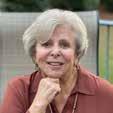
Introduction of Publication: Holocaust Remembered
Welcome to the 10 year Holocaust Remembered anthology, a compilation of all editions from 2014-2023, which can be read, reviewed and discussed. These editions were made possible from the contributions of Survivor and Liberator families and individuals who experienced and witnessed the Holocaust. Additionally, scholars and academics were approached to write articles pertaining to the individual themes assigned each year. It was paramount that these stories of those who lived or are living in South Carolina be memorialized not only through verbal testimonies—which can be found on the websites of both the South Carolina Council on the Holocaust (www.scholocaustcouncil.org) and the US Holocaust Memorial Museum (www.ushmm.org)—but also written and published in papers that the public could read. Discussing and teaching the lessons on the Holocaust is the best way to educate the school teachers and the public. Reading and hearing Survivor/Liberator oral histories helps the public understand the dangers of antisemitism, bigotry and prejudice. Museums and Centers, Council and Commissions have been built throughout America for this purpose.
On October 7, 2023, the entire Holocaust Education field was shaken up. Israel was attacked and the world changed. Dr. Shay Pilnik, director of the Holocaust and Genocide Studies at Yeshiva University, aptly stated: “The stance of relative tranquility from which we have viewed the Holocaust can no longer be divorced from its original and crucial Jewish context.” He goes on to say, “Now Holocaust education … must return to what it should have always included—a call to safeguard the lives, well-being, and future of Jews in the world, and first and foremost, in the ancestral homeland.” As I continue to edit the Holocaust Remembered editions, the emphasis on Jewish safety will need to be stated over and over.
Antisemitism, Jew hatred, which was exhibited in the attacks on October 7, is the longest hatred of civilization and continues to rise in both rhetoric and action. The Executive Director of the USC Shoah Foundation, Dr. Robert Williams, stated: “At the end of the day, antisemitism is a binding form of hatred that pulls together a wide range of extremists. That is why we all, Jewish and non-Jewish, must commit to fight against antisemitism.” The virus of conspiracy theories has become overwhelming in our lives. The vaccine for antisemitism is to continue professional development for the teachers so that in turn the students will understand this hatred. This includes protecting the well-being of Jews around the world—especially in Israel—and to speak the truth to all.
As a daughter of Holocaust Survivors Jadzia and Ben Stern (obm), I have committed my time and passion to this educational project. I extend a special “thank you” to all that participated in these editions. There have been many and through your commitments, we saw the birth and growth of this project. As Editor, I proudly present the Anthology of the first 10 years of Holocaust Remembered 2014-2023.
Lilly S. Filler, MD Editor Holocaust Remembered Chair South Carolina Council on the Holocaust
8
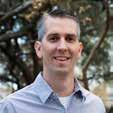
Message from the Executive Director
This anthology of the Holocaust Remembered supplement spanning the first 10 years of its publication, from 2014–2023, provides an essential contribution to the understanding of the Holocaust to people in South Carolina and beyond. Containing over 200 scholarly articles, including many that are personal stories of those that experienced the Holocaust directly, this impressive volume is a testimony to the dedication of Dr. Lilly Filler, the Columbia Holocaust Education Commission, and the South Carolina Council on the Holocaust in keeping the memory of this historic event alive almost 80 years after it ended in 1945.
As the Executive Director of the South Carolina Council on the Holocaust, I am entrusted with carrying out our organization’s mission to educate teachers, students, and communities through teaching, outreach, resources, and commemoration. The Holocaust Remembered supplements have been a significant annual contribution to the efforts to accomplish all parts of this mission.
Throughout the decade of these publications, we have received positive responses from teachers who have often requested additional copies of the supplements to use with their students. Additionally, community organizations of all affiliations and religions have sought out this resource as an important tool to use to educate their members and respond to the commitment to “Never Forget.” I encourage all who receive this publication to not only take the time to read through the articles contained in this anthology, but also to reflect on the importance of remembering and understanding the Holocaust. As Holocaust survivor and Nobel Peace Prize honoree Eli Wiesel stated: “To forget would be not only dangerous, but offensive. It would be akin to killing them a second time.”
While this statement reminds us of those whose lives were horrifically ended by those who perpetrated this heinous crime against humanity, we must also remember the heroic efforts of those who survived against all odds and those who helped to liberate these victims from the grips of their oppressors. It is from these individual stories that we come to appreciate not just the evil that some chose to commit, but also the remarkable will to live of others and additionally the goodness that some exhibited to reach out and assist those most in need.
This anthology provides a resounding answer to generations of victims’ families wondering if the stories and importance of this event will be forgotten to history. We shall never forget.
Scott Auspelmyer Executive Director South Carolina Council on the Holocaust
9
Dedication
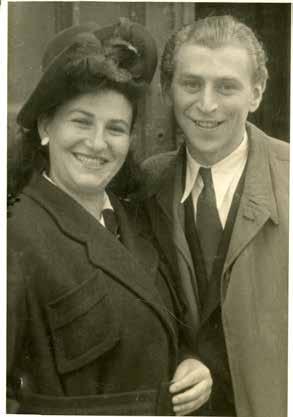
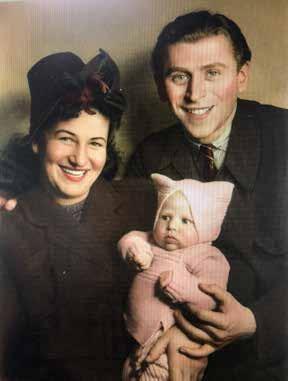
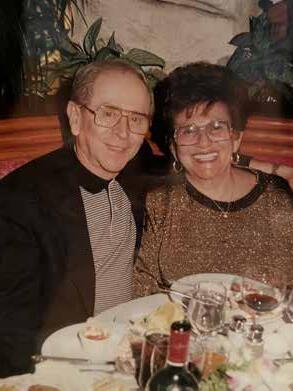
To my beloved mother and father, Jadzia and Ben Stern (obm).
Your love and presence is always felt. Your words are with me forever!
— Lilly
10
Circa 1946
Germany 1948 with baby Lilly
1993
11
“We are told that the American soldier does not know what he is fighting for. Now, at least, he will know what he is fighting against.”
—
General Dwight D. Eisenhower, on visiting a subcamp of Buchenwald, April 12, 1945
12
2014

13
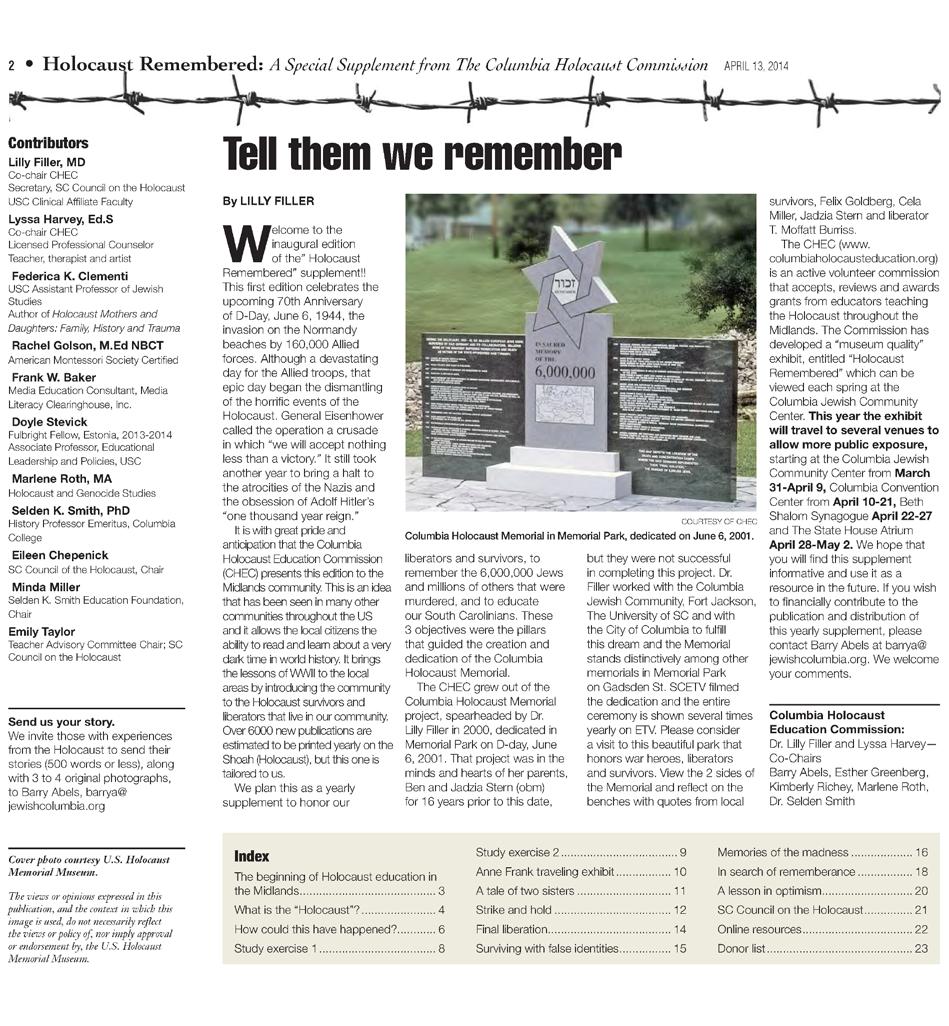
14
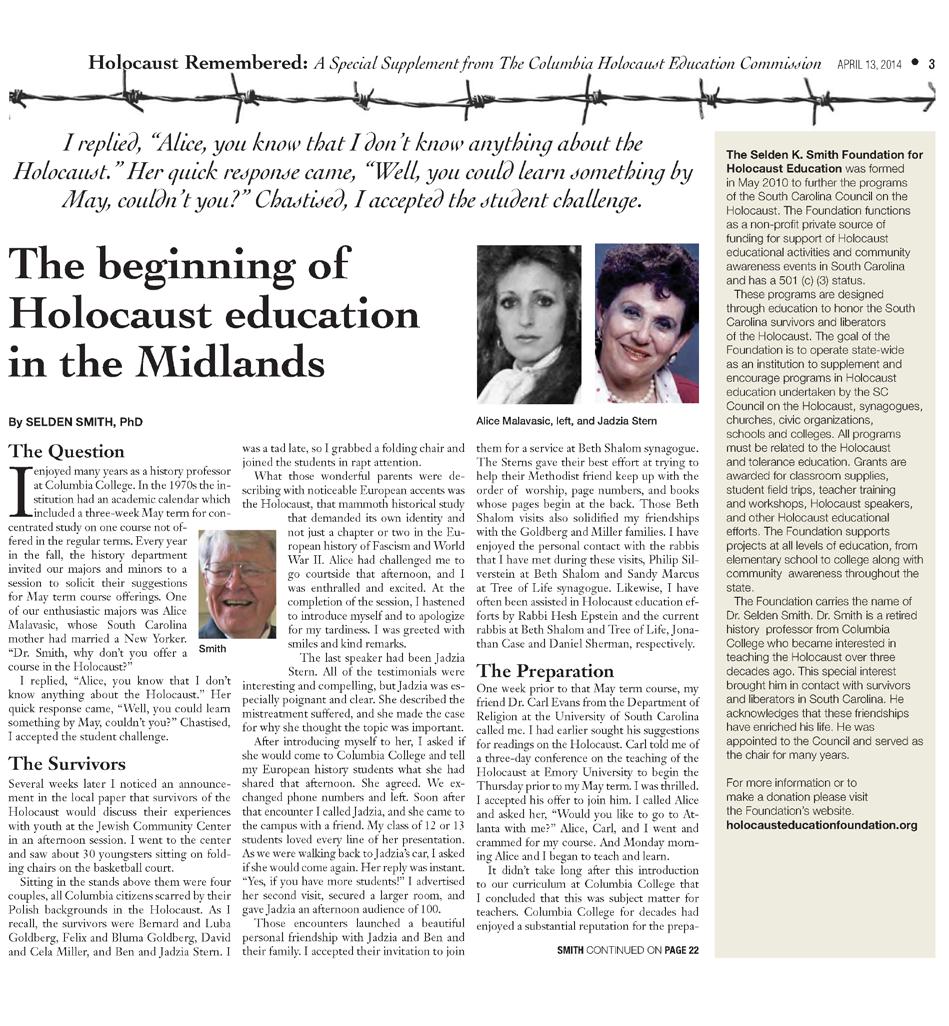
15

16
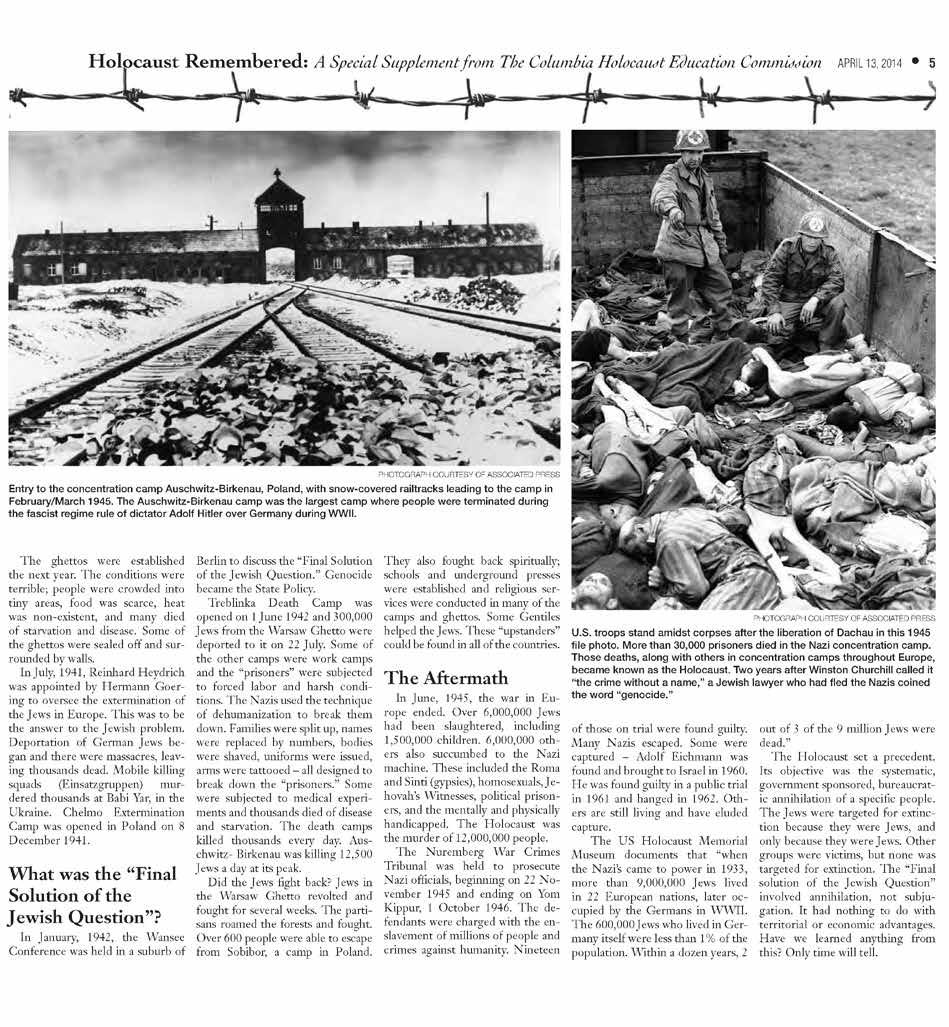
17
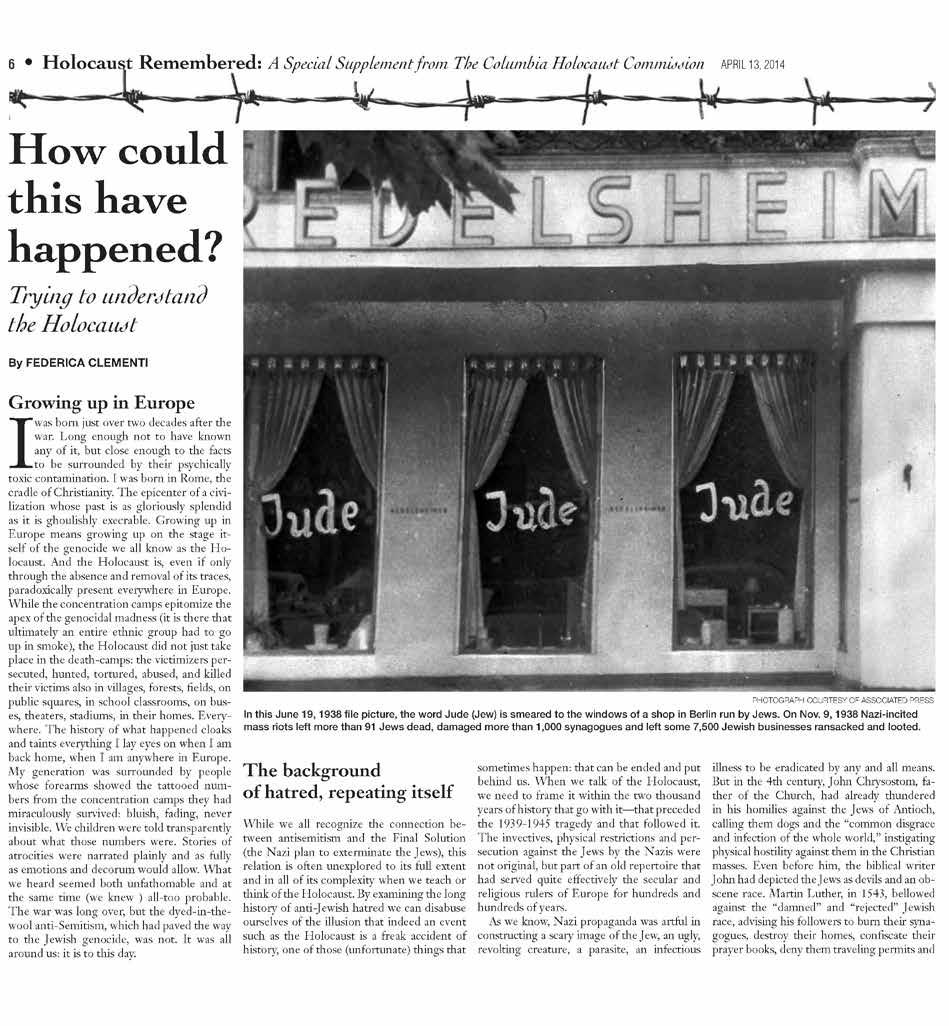
18
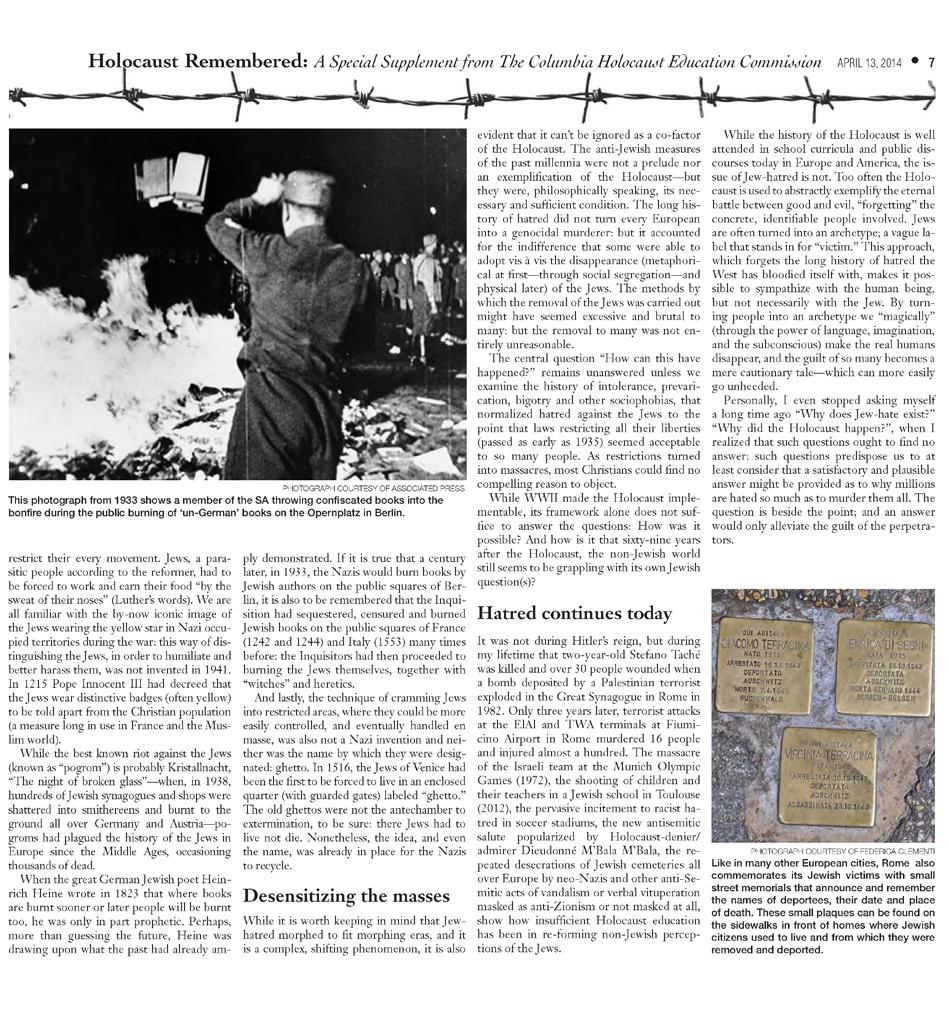
19
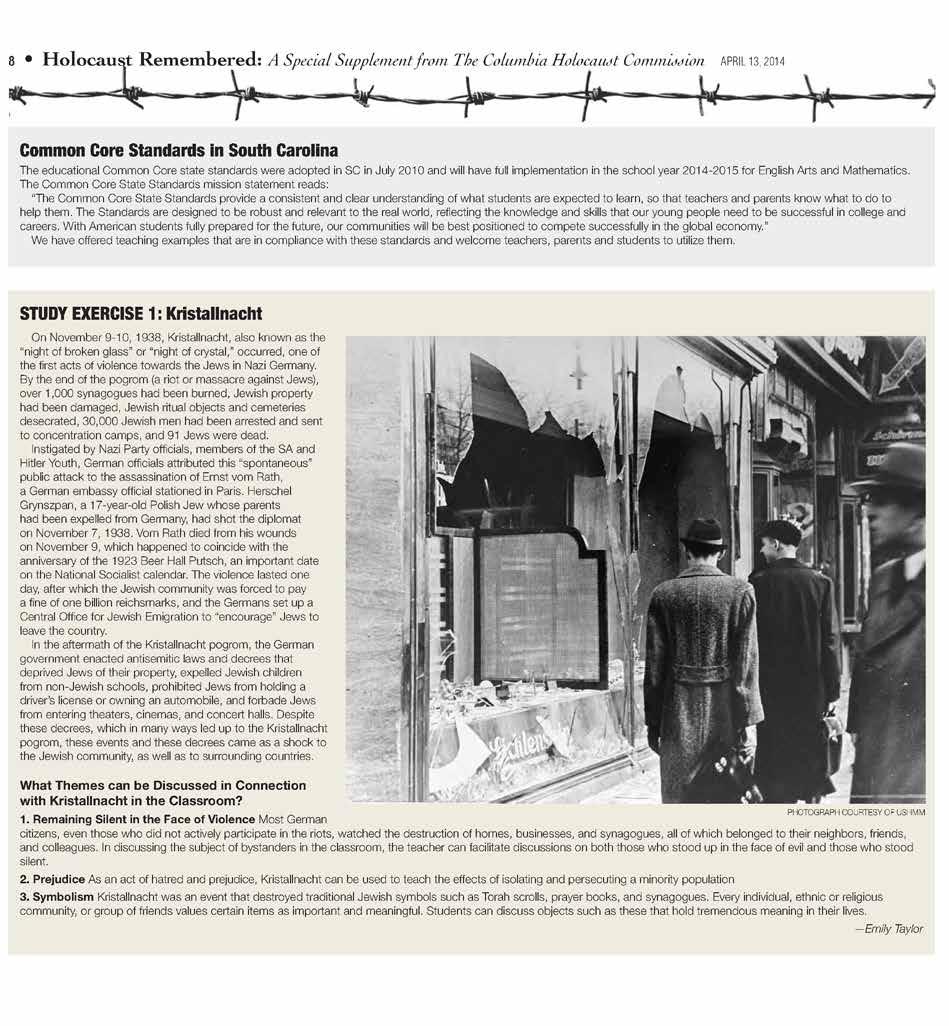
20
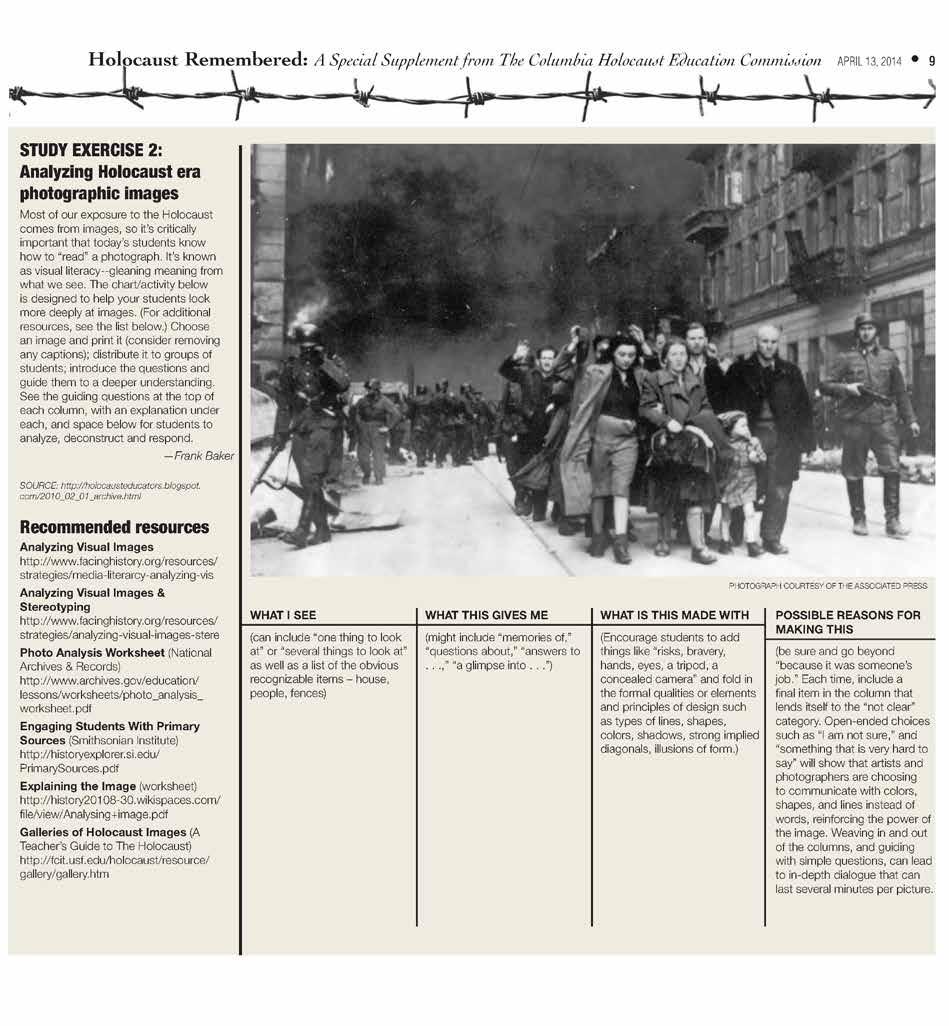
21
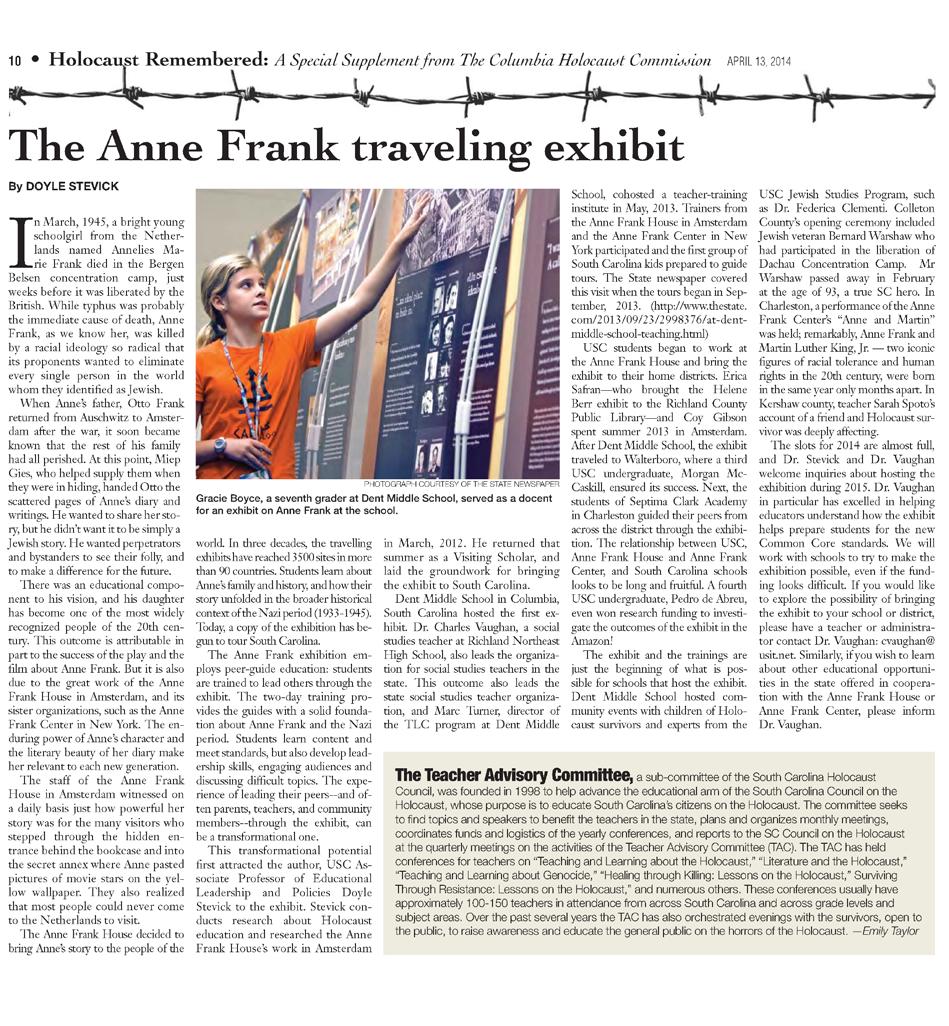
22
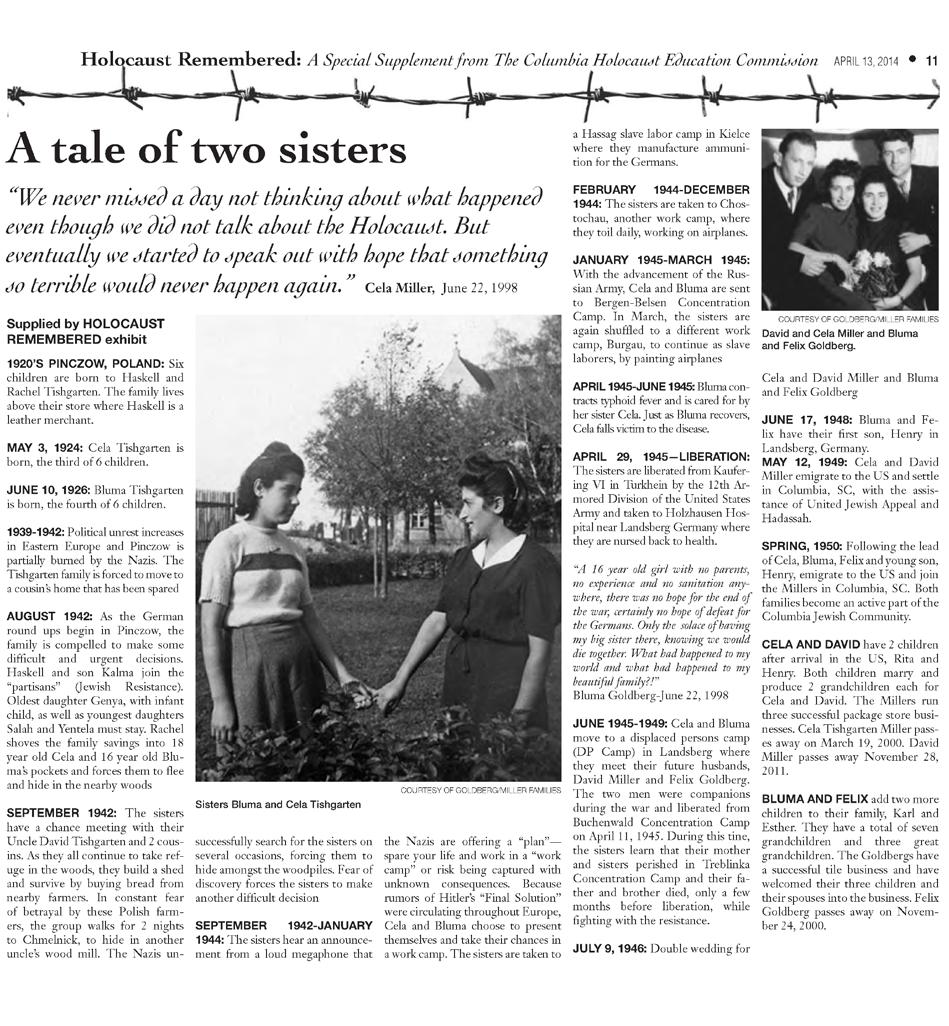
23
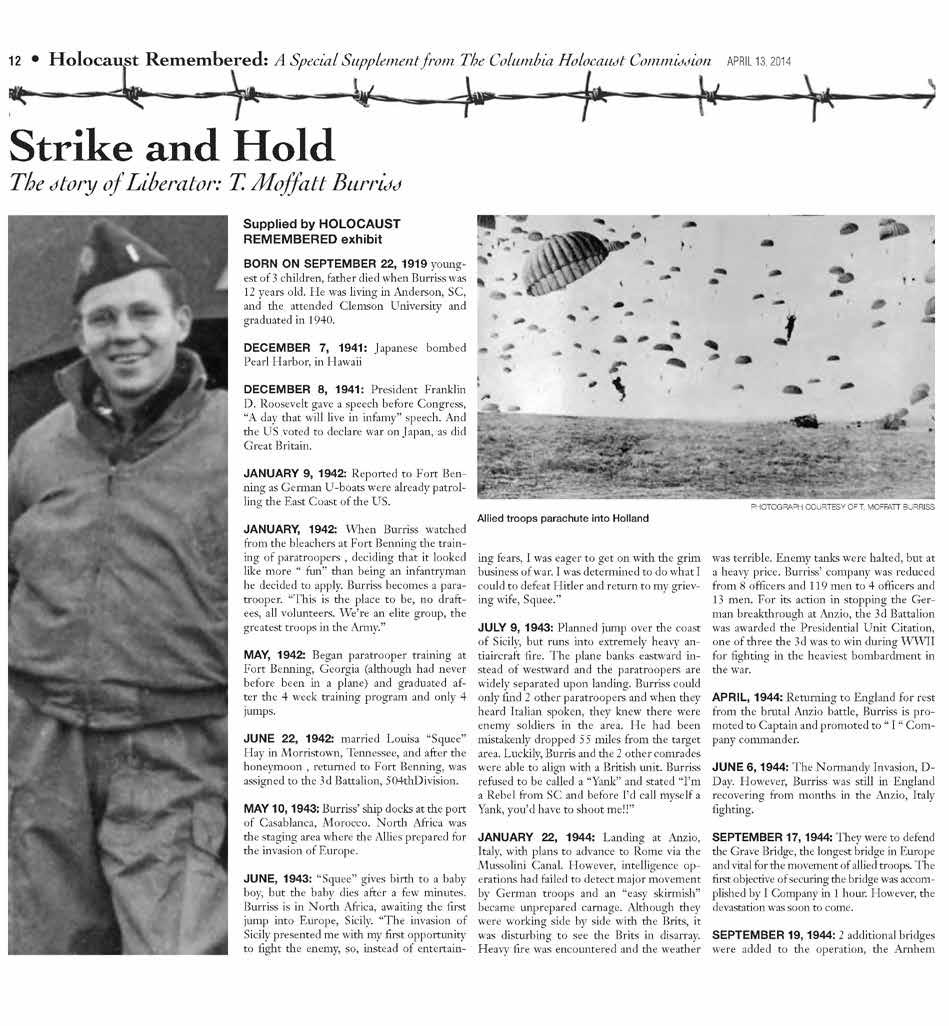
24
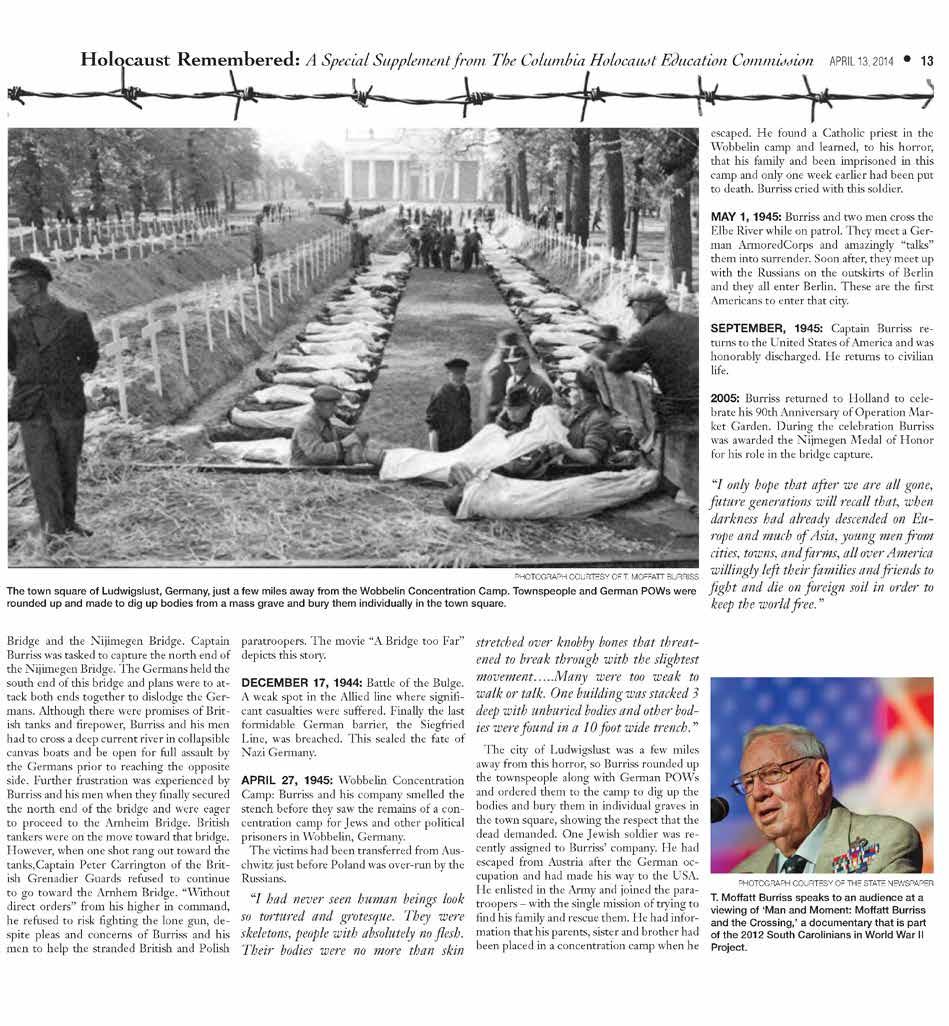
25
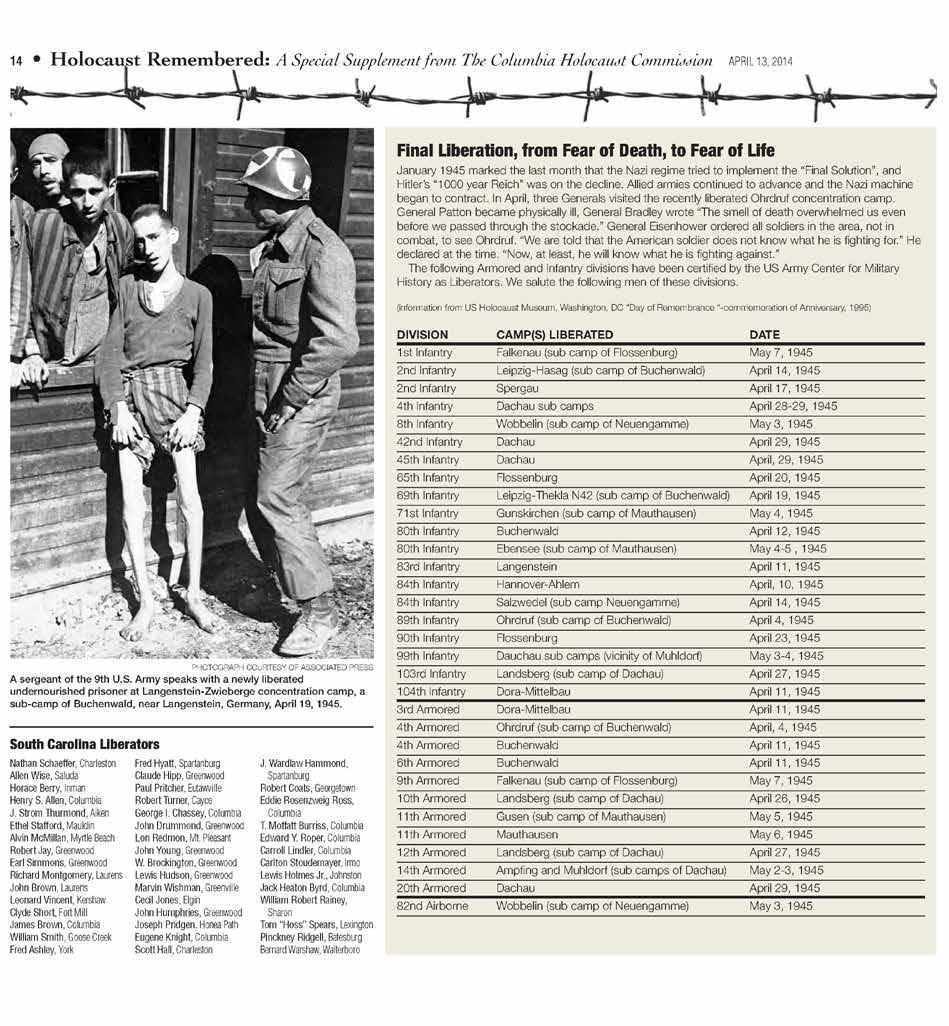
26

27
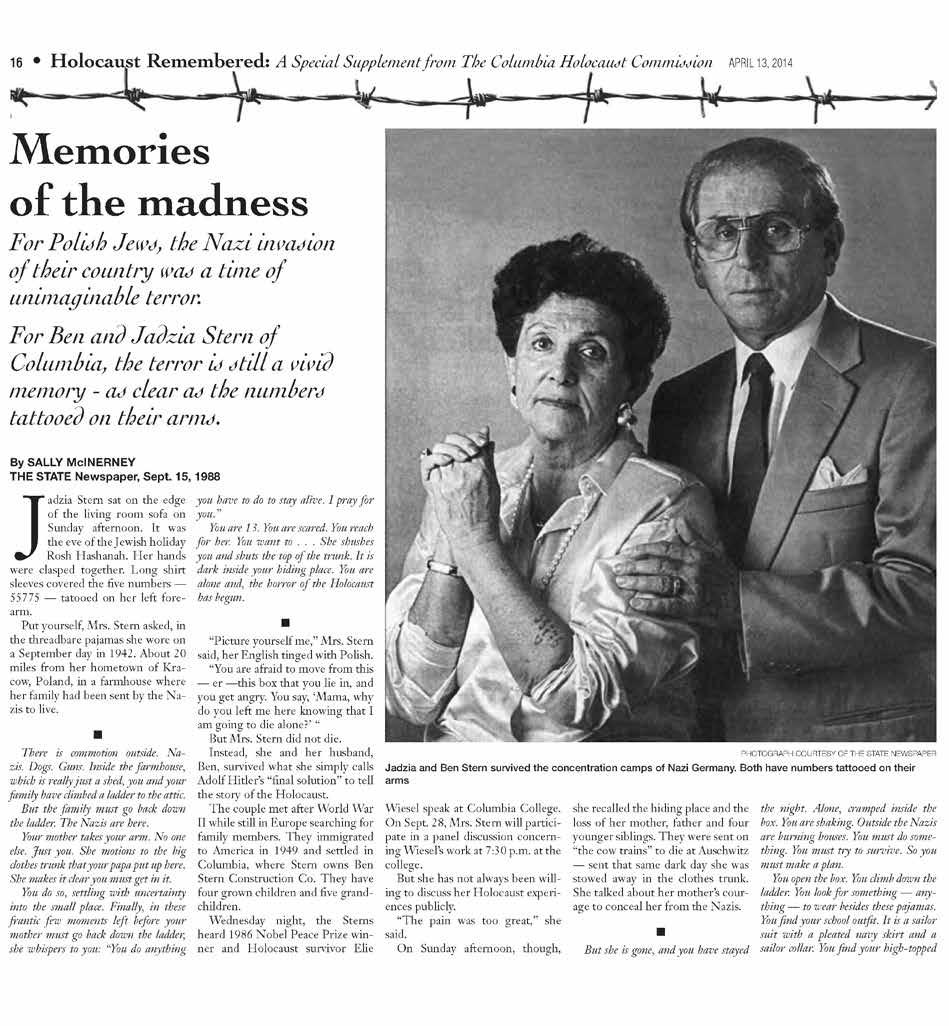
28
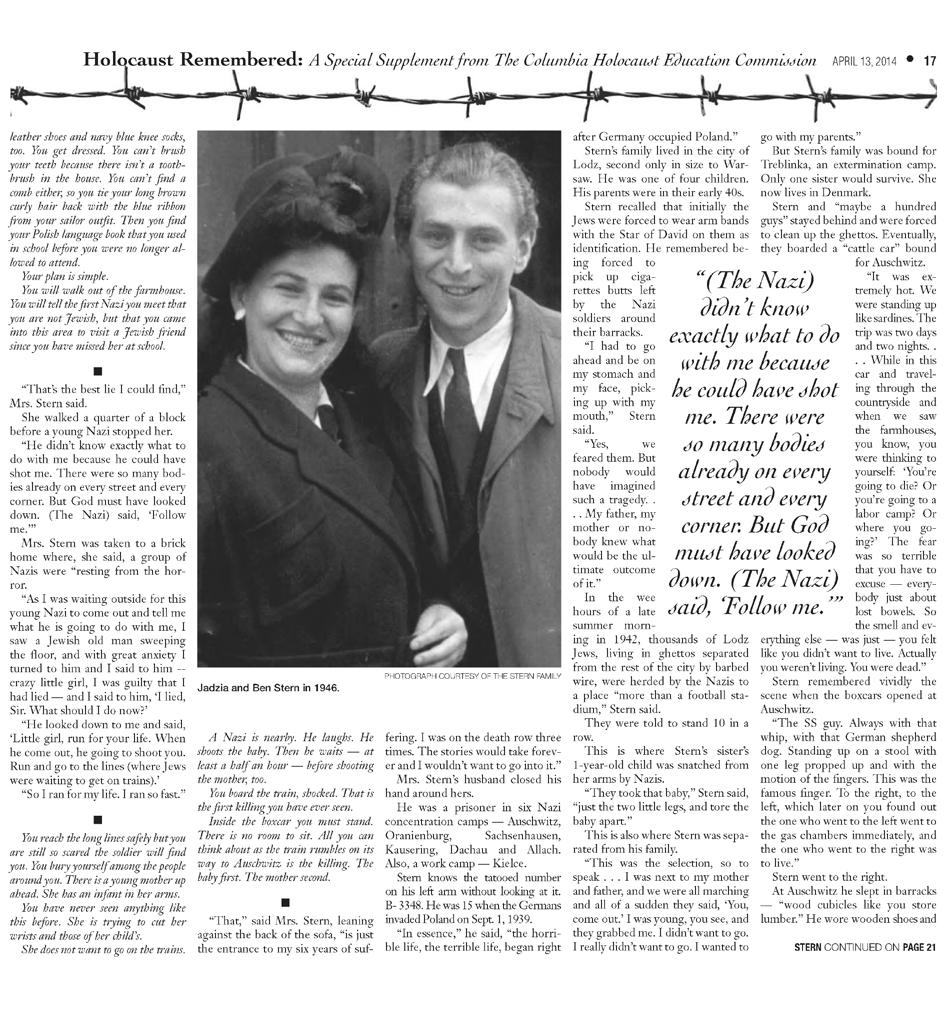
29

30
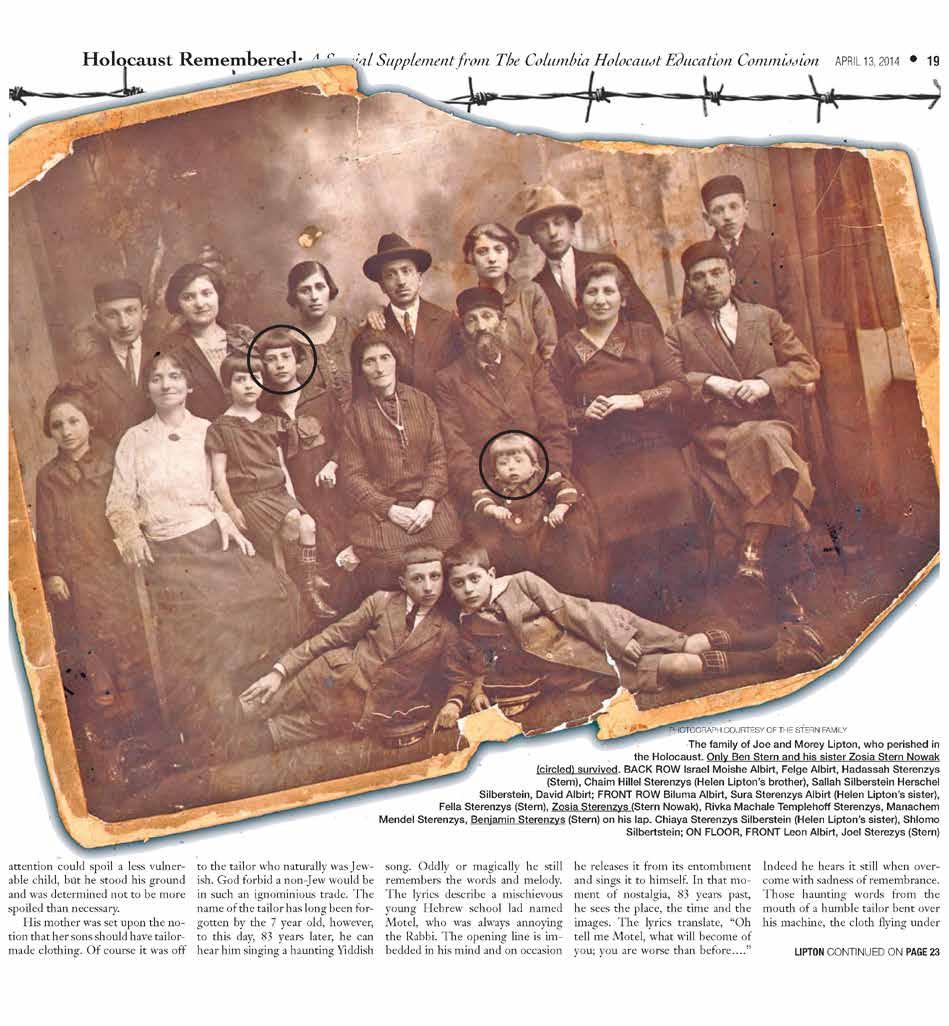
31
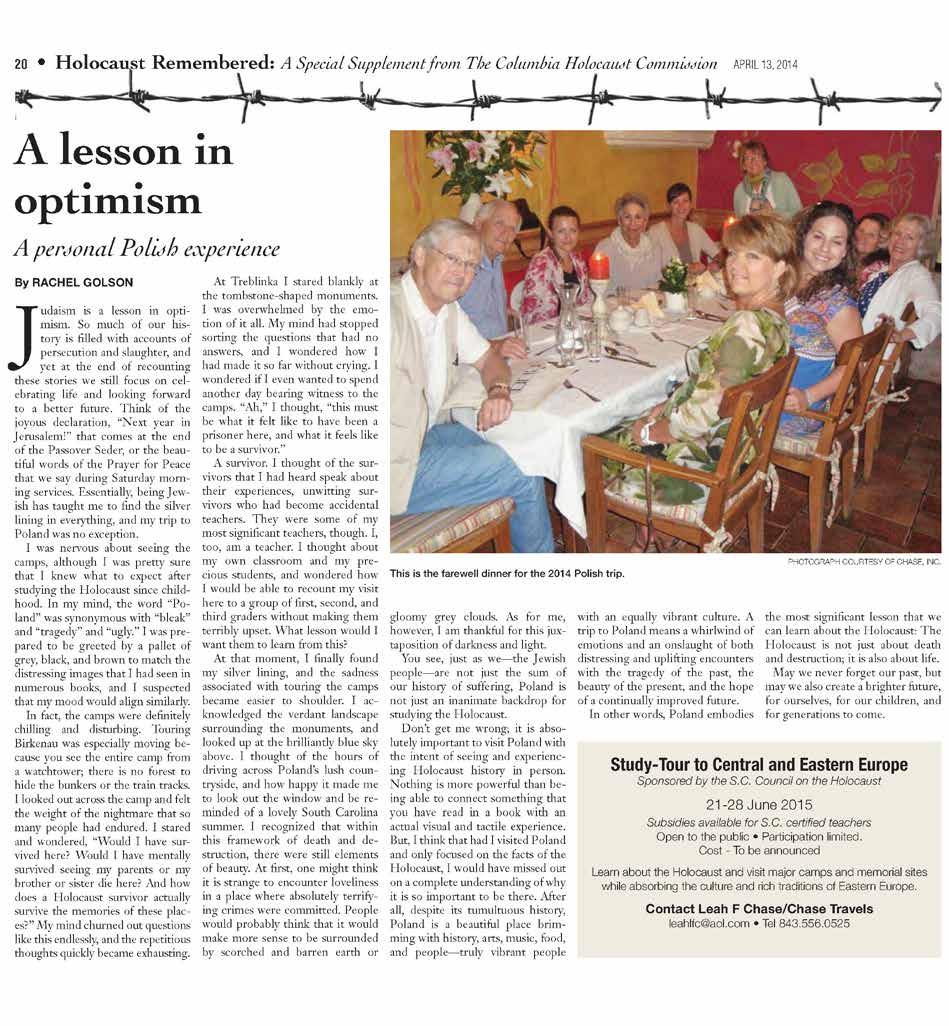
32

33

34
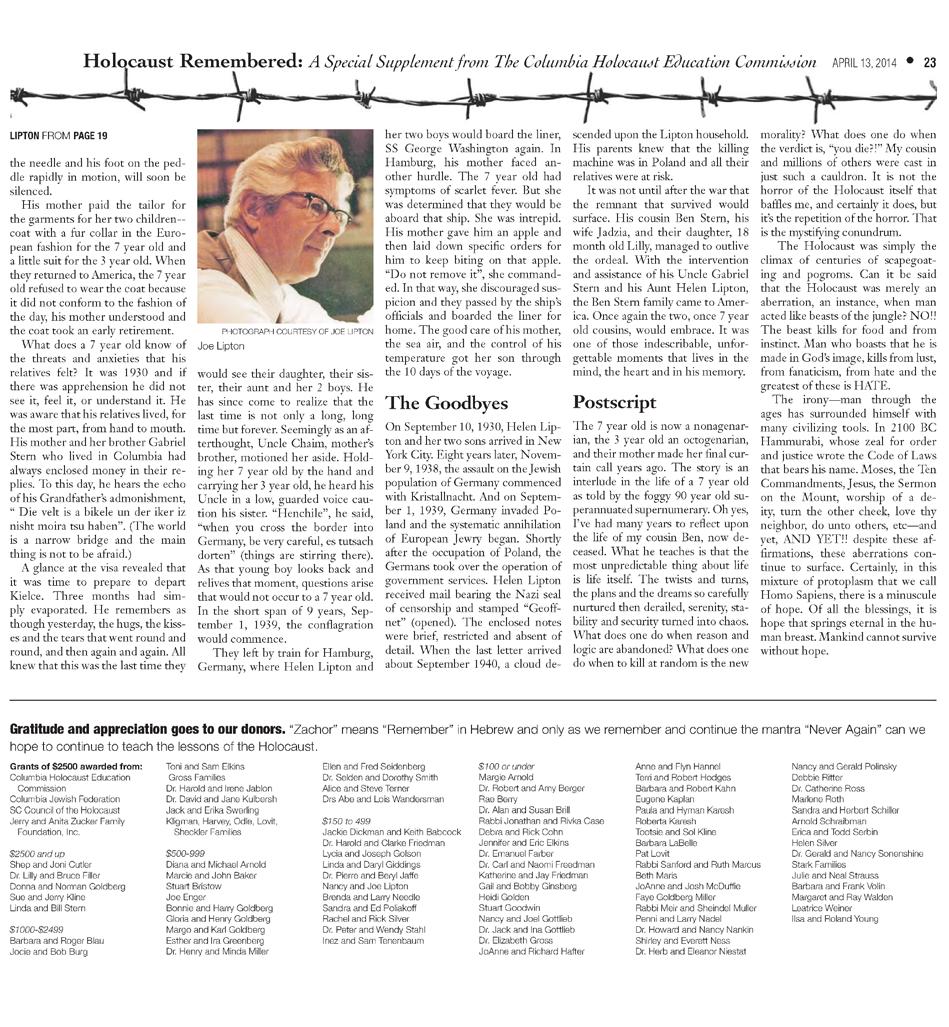
35

36
37
“The dagger of the assassin was concealed beneath the robe of the jurist.”
— Telford Taylor, American Military Tribunal prosecutor Jurists’ Trial, Nuremberg , Germany, 1947
38
2015

39
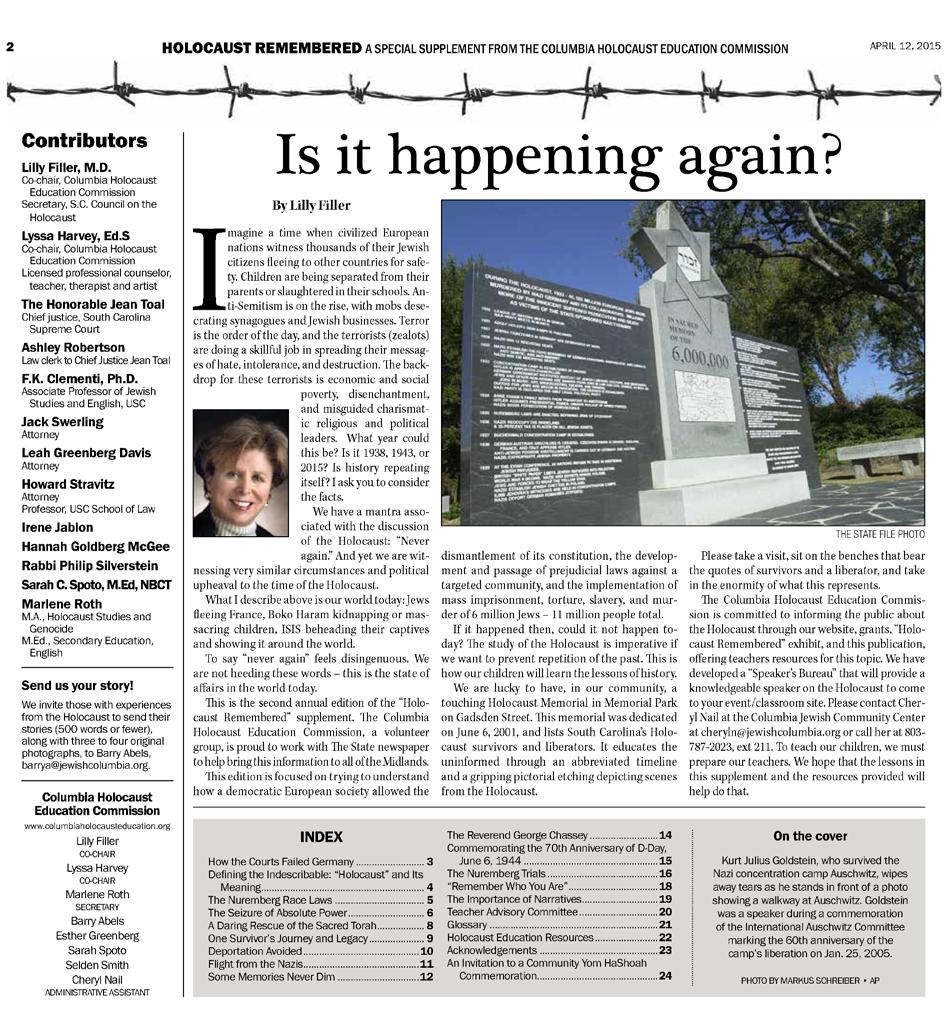
40

41

42
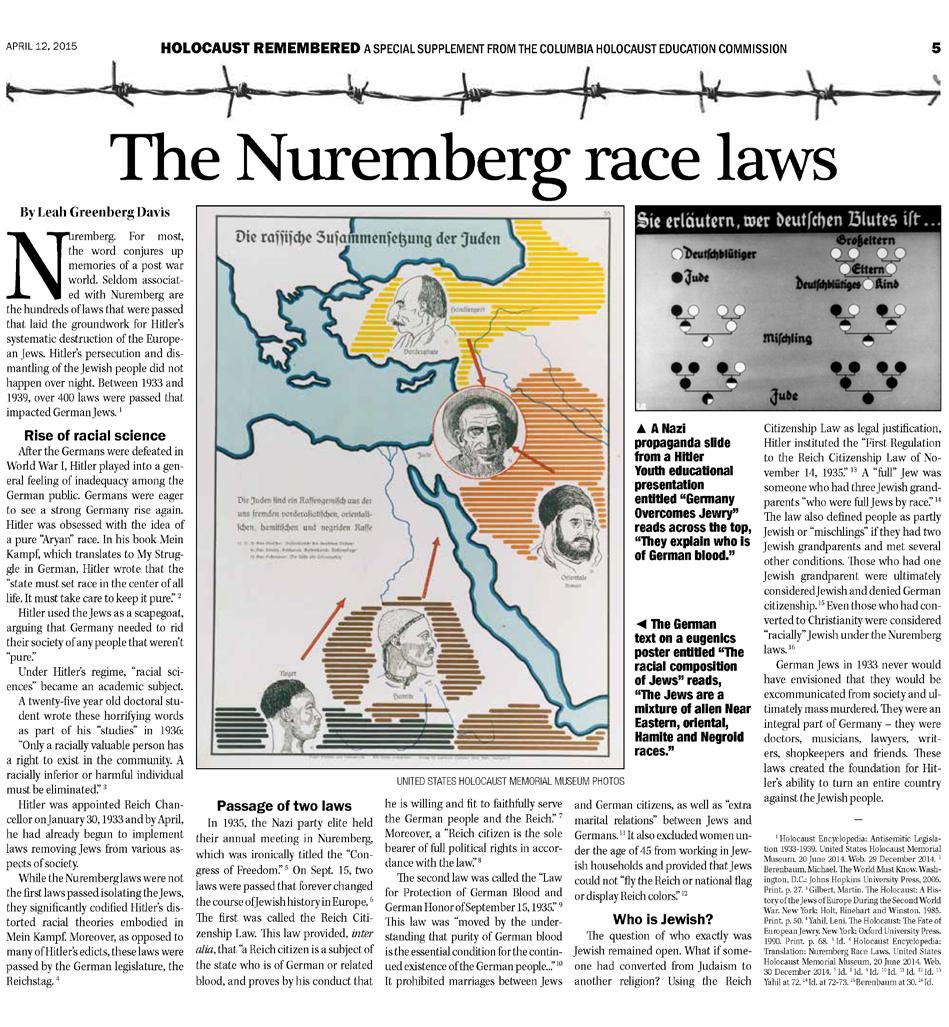
43
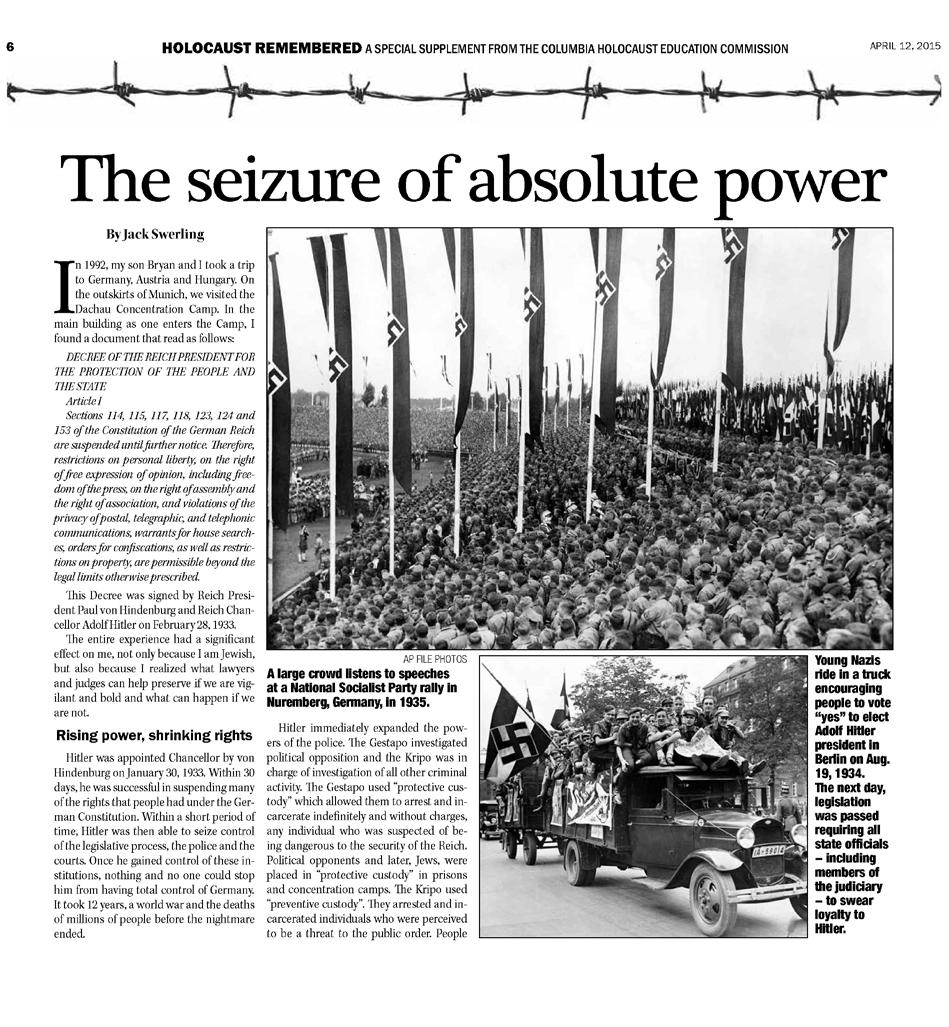
44
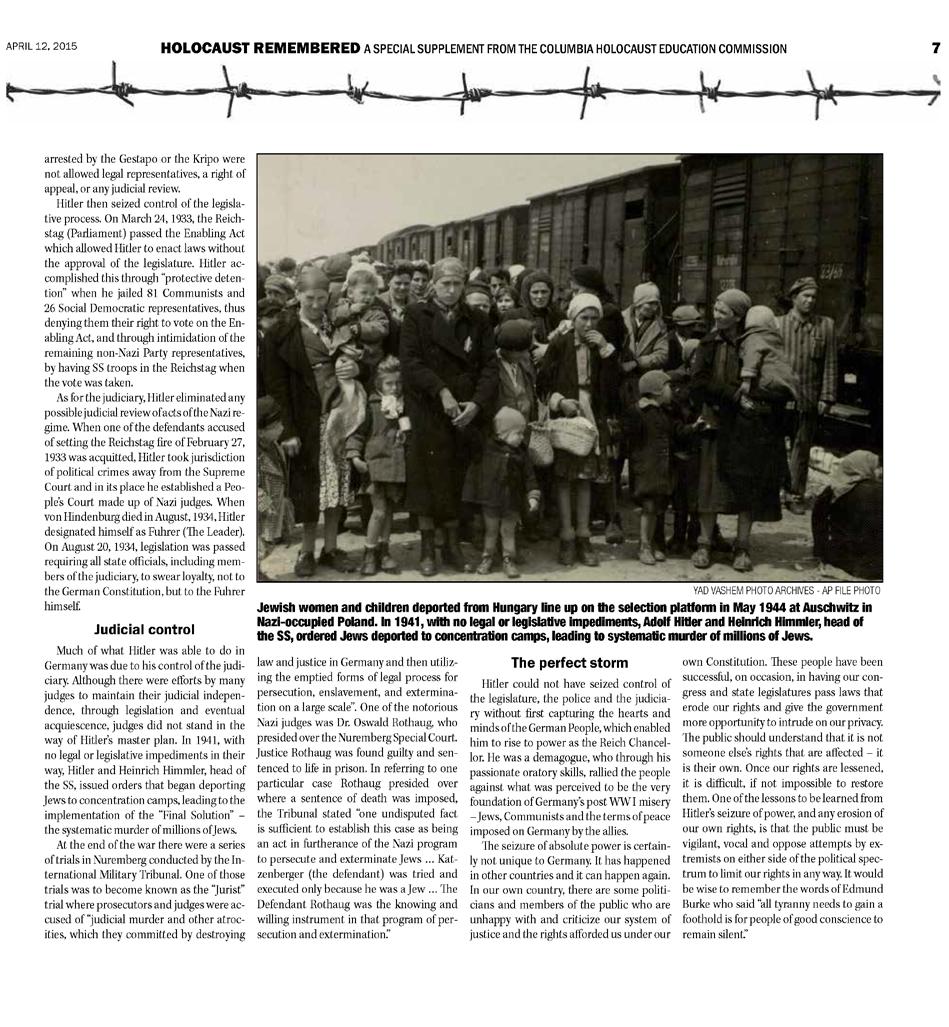
45
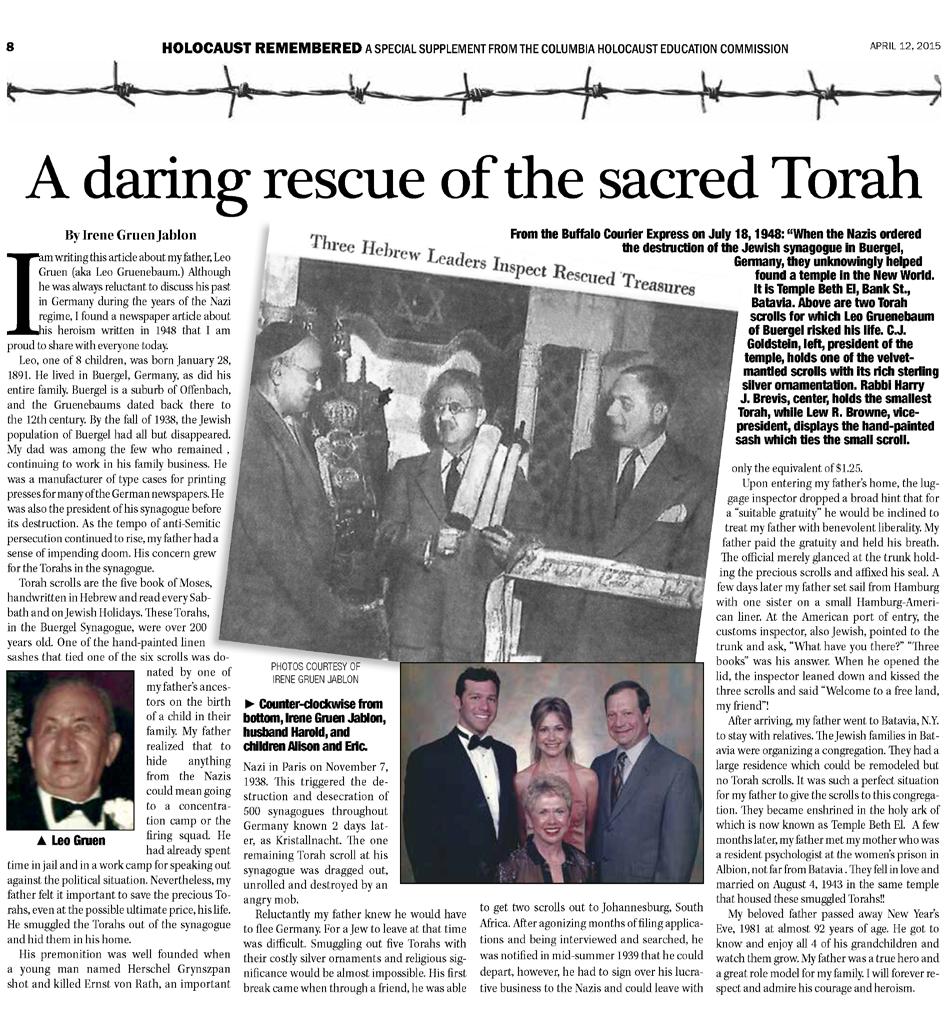
46
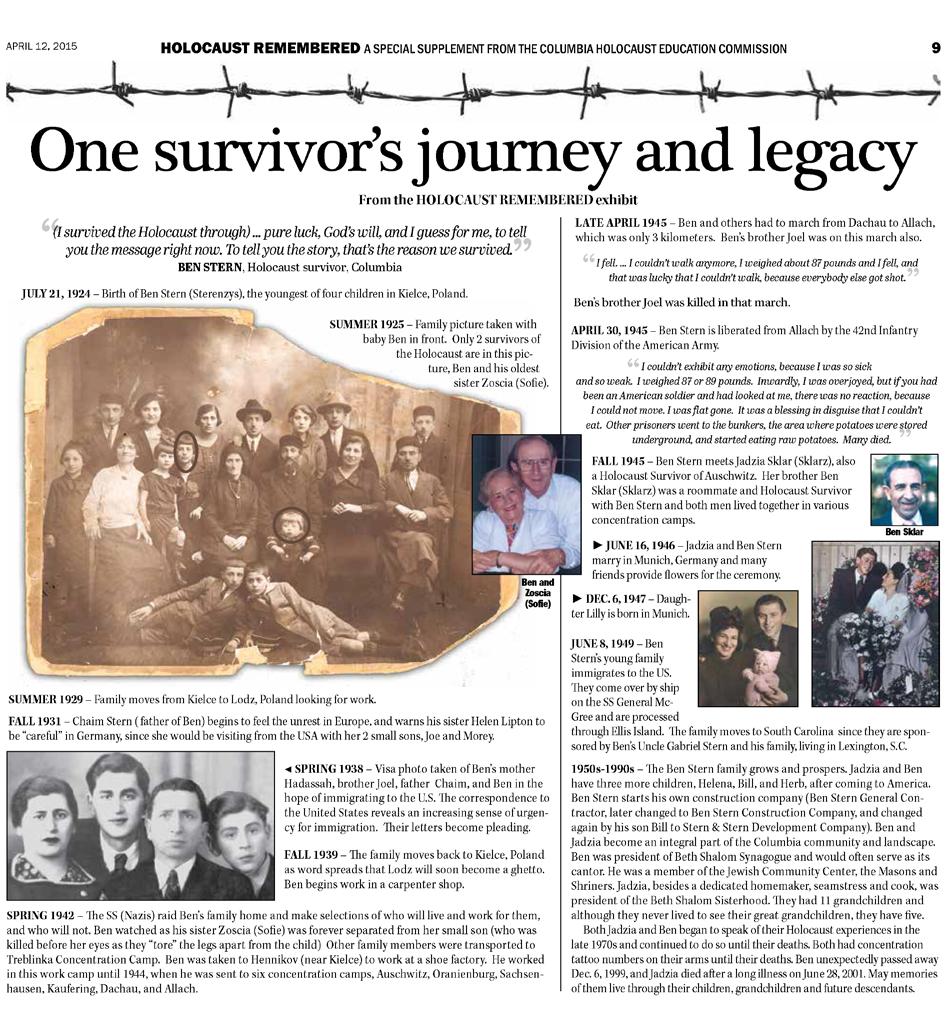
47

48

49
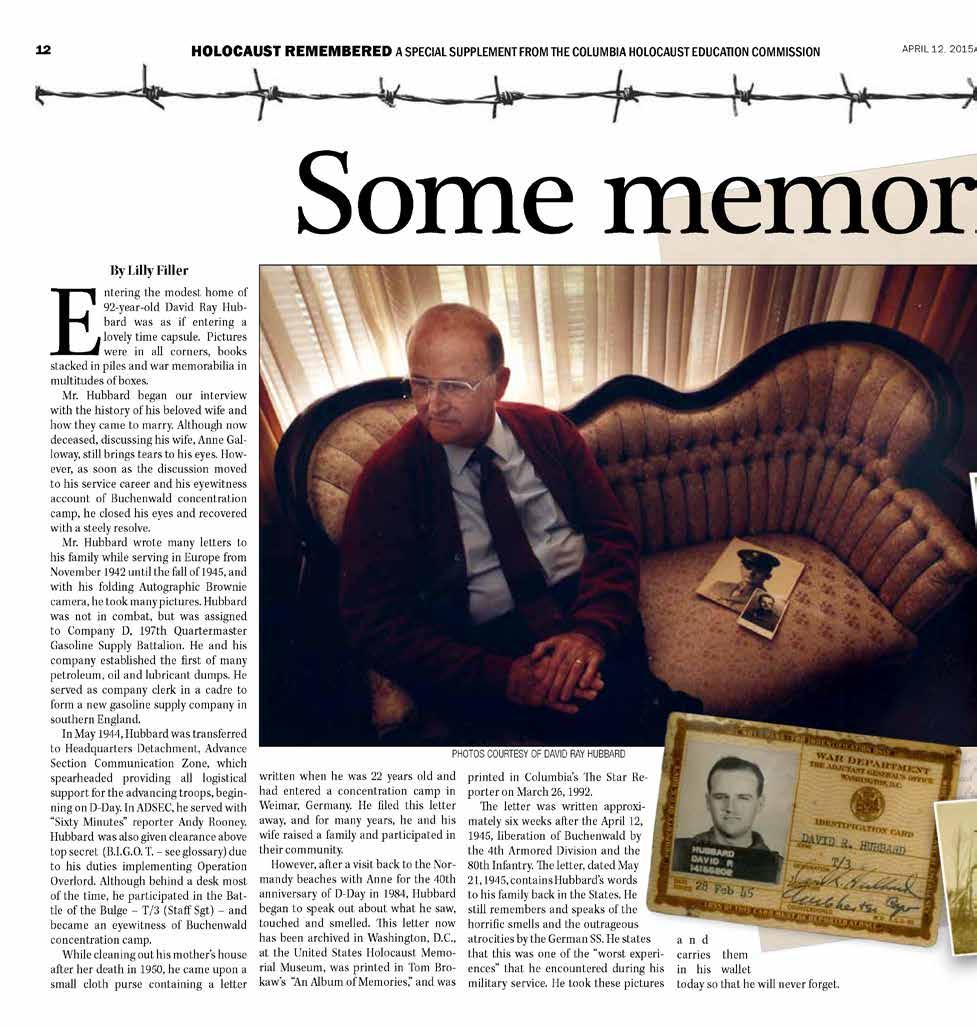
50
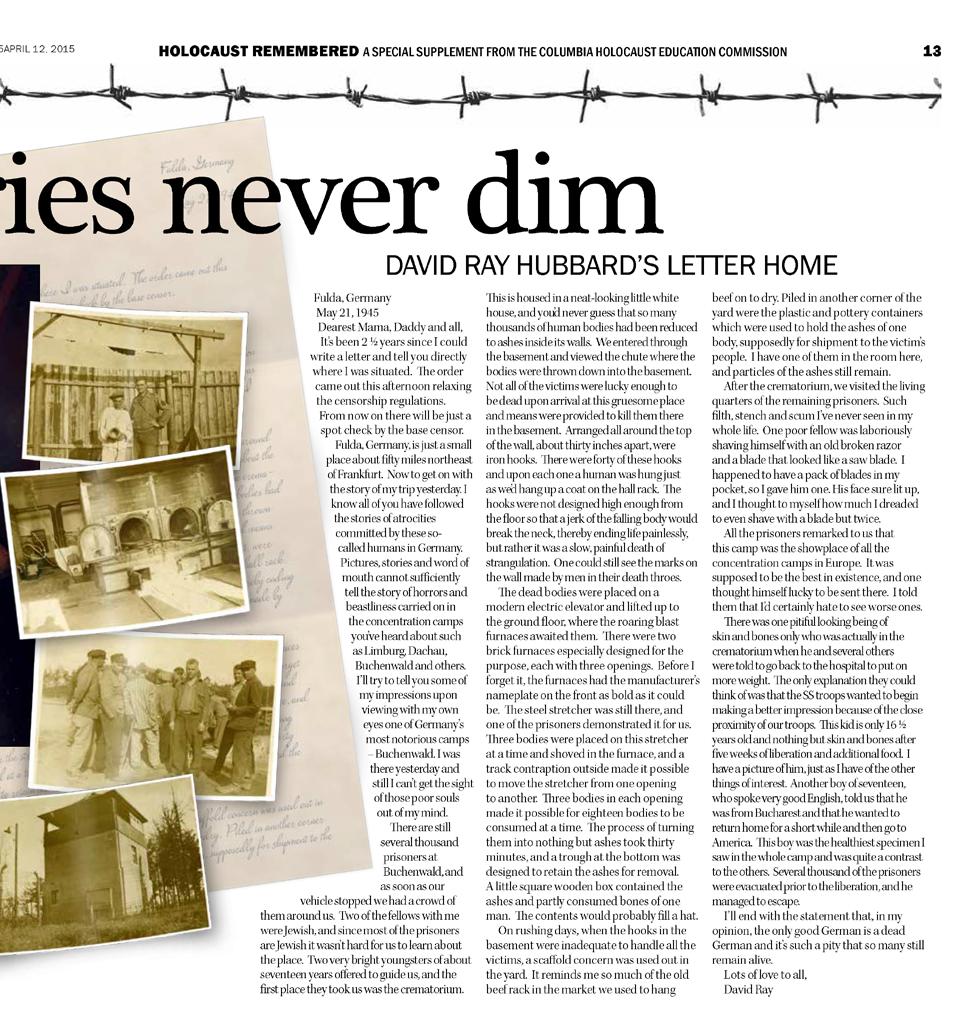
51

52
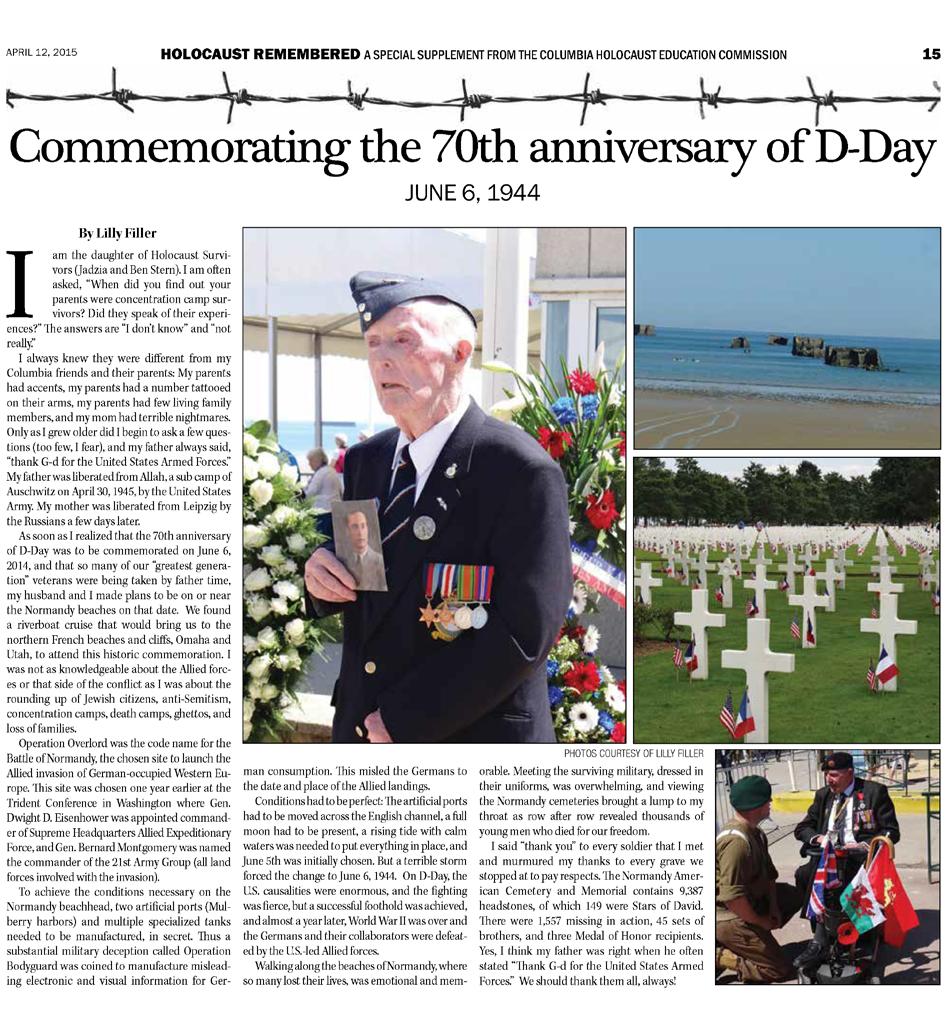
53
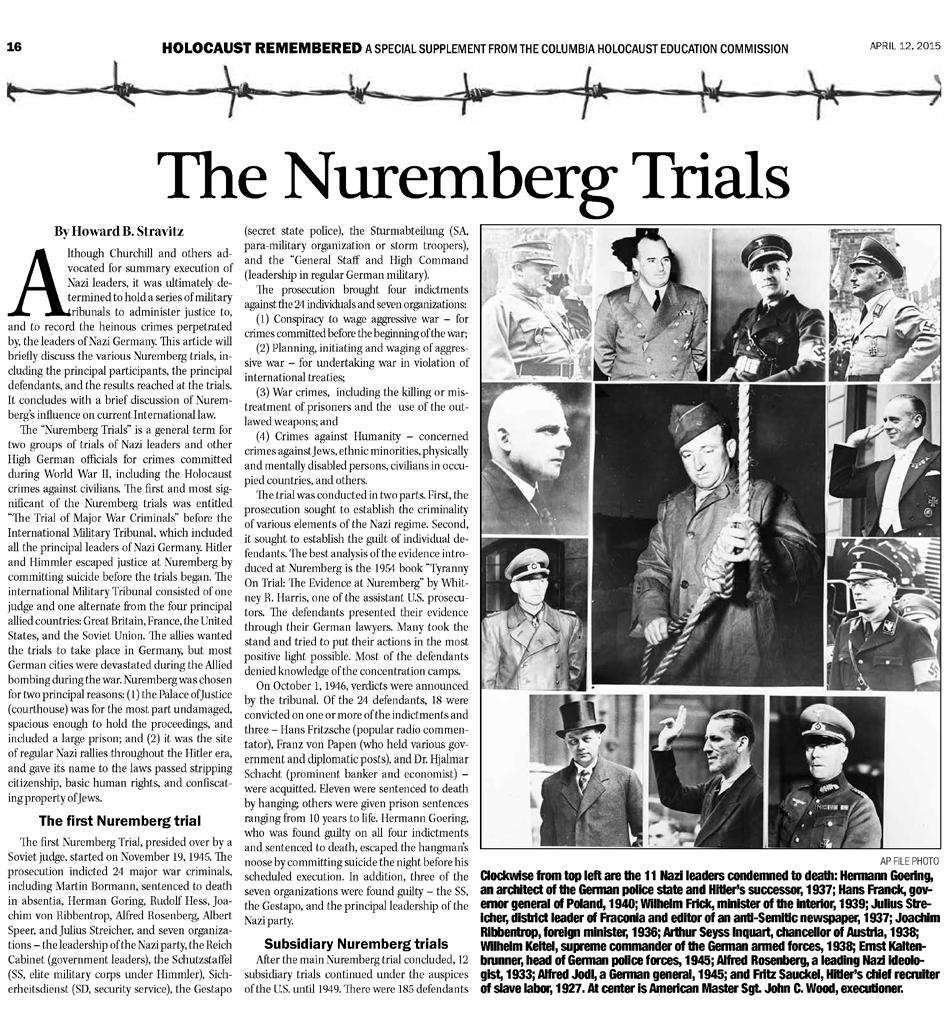
54
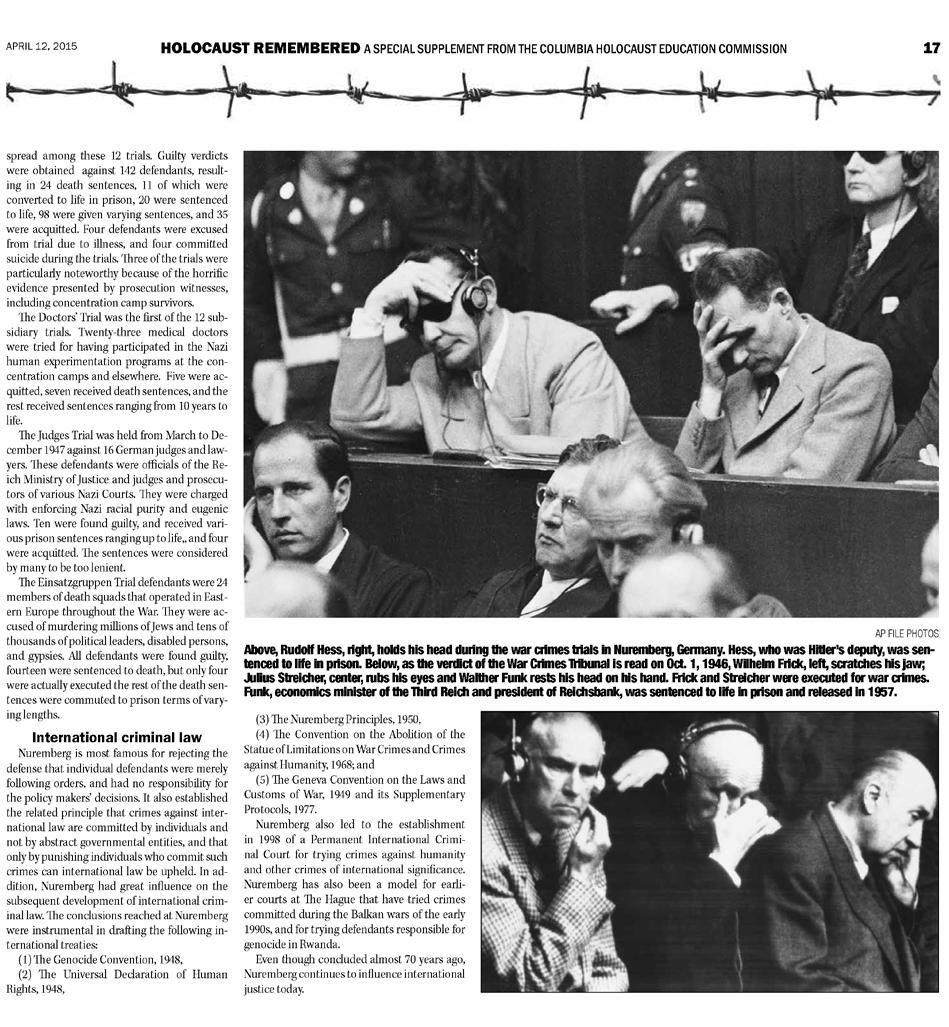
55
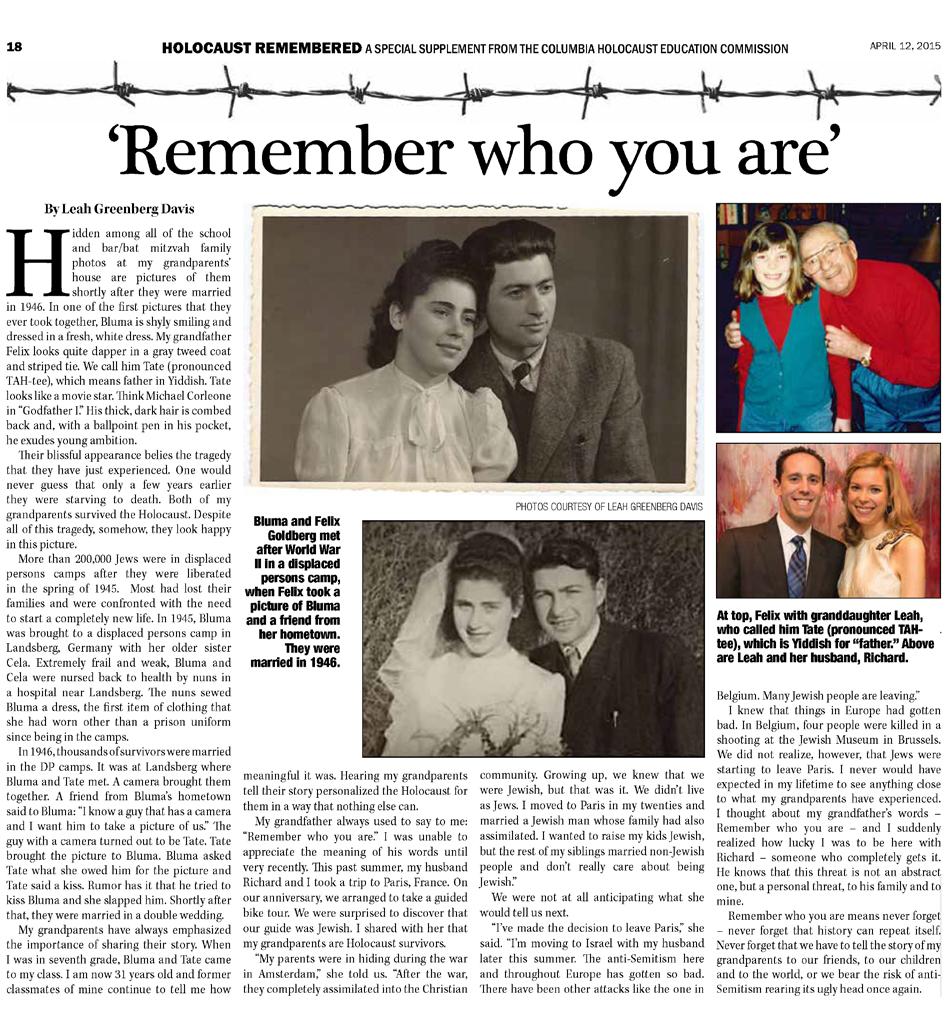
56
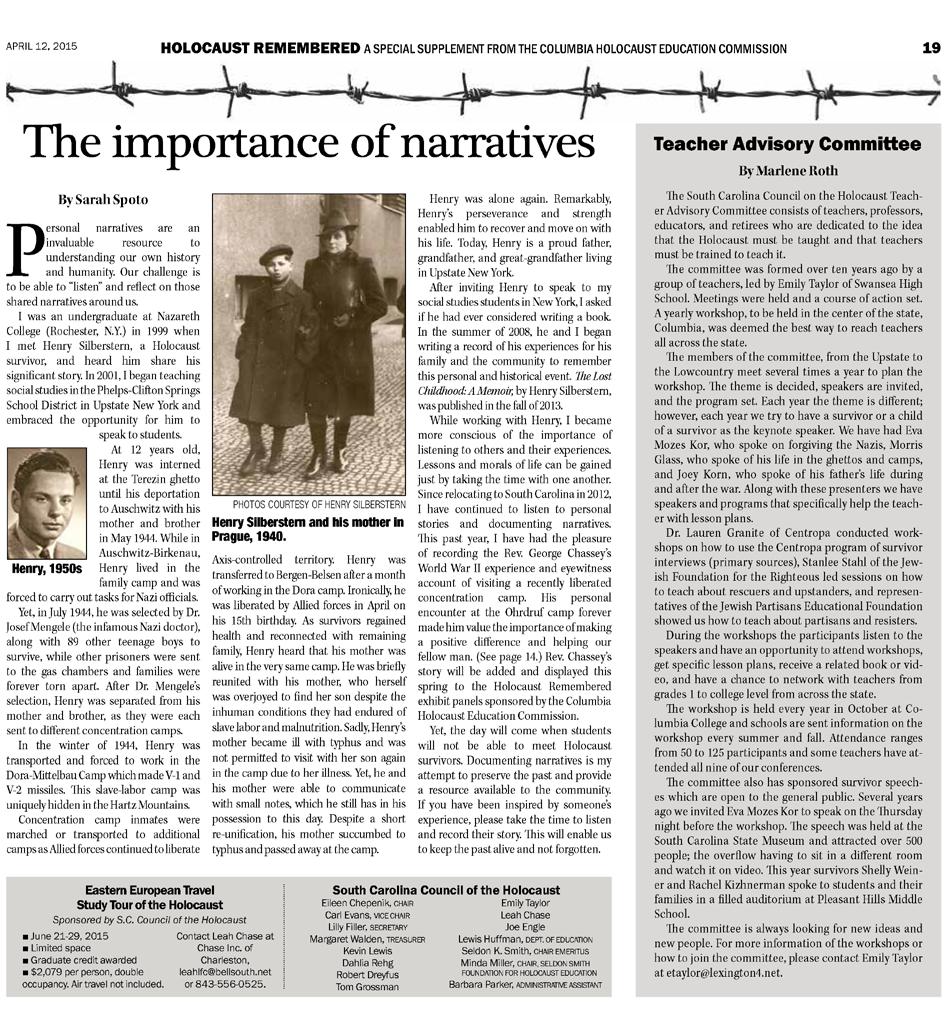
57

58
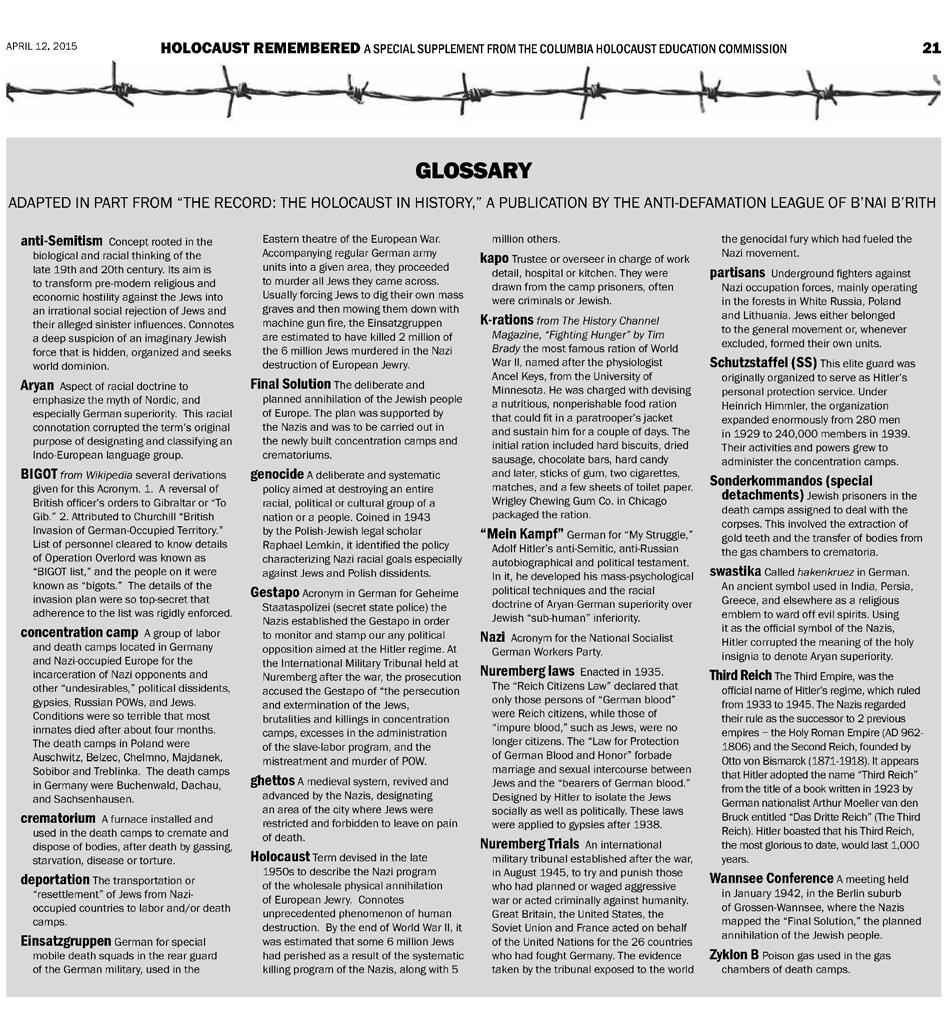
59

60
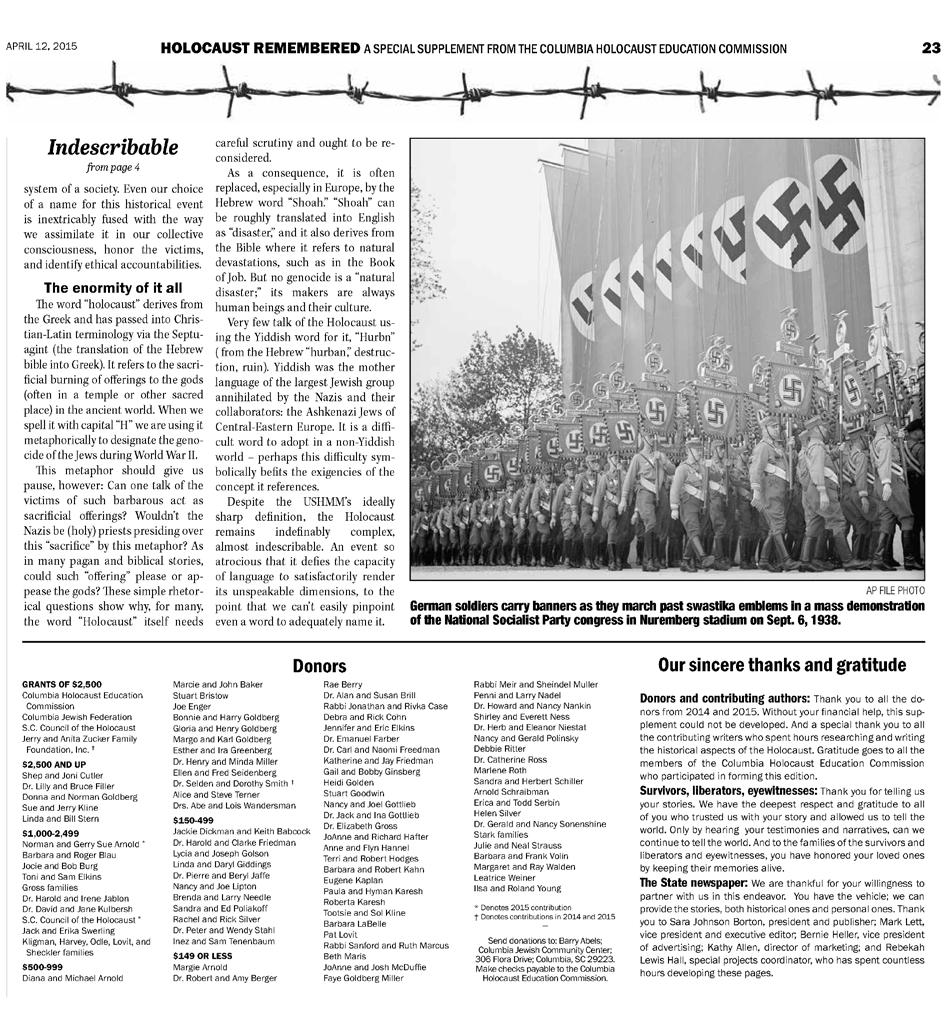
61
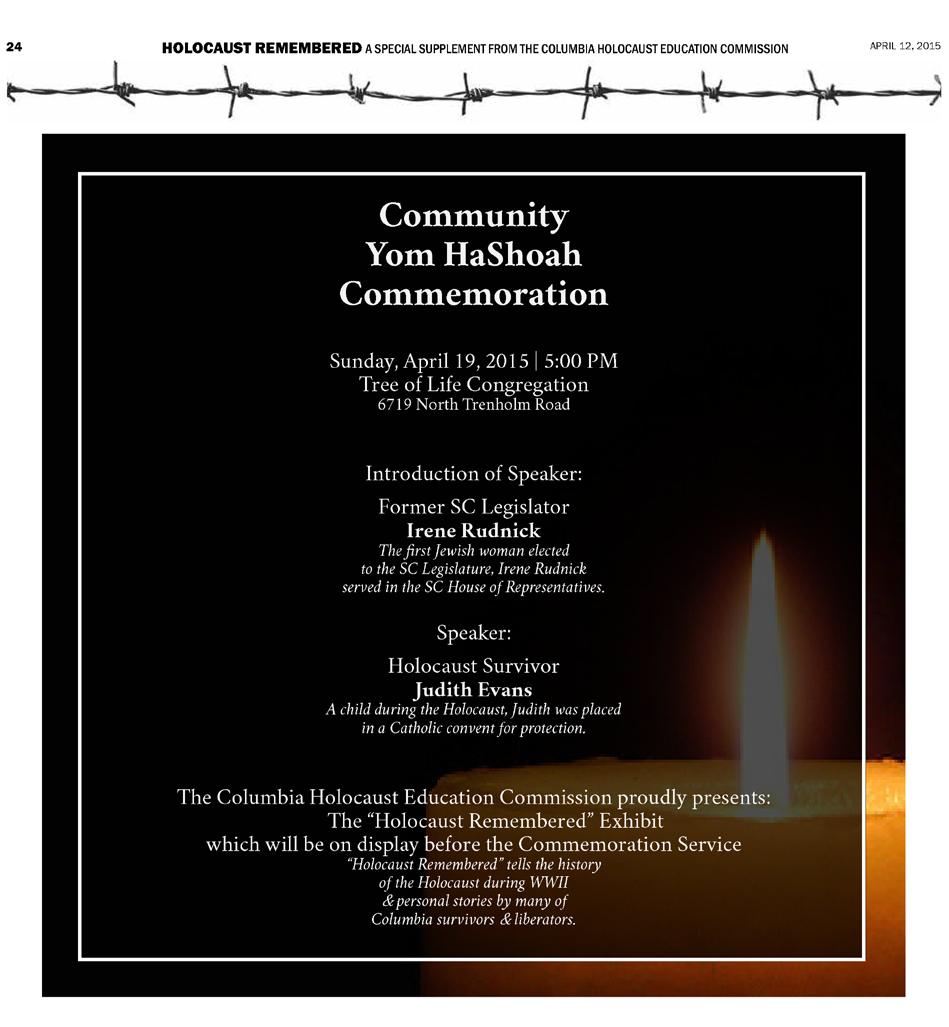
62
63
“Indifference, to me, is the epitome of Evil.”
— Elie Wiesel Holocaust Survivor, Nobel Peace Laureate, author, activist
64
2016
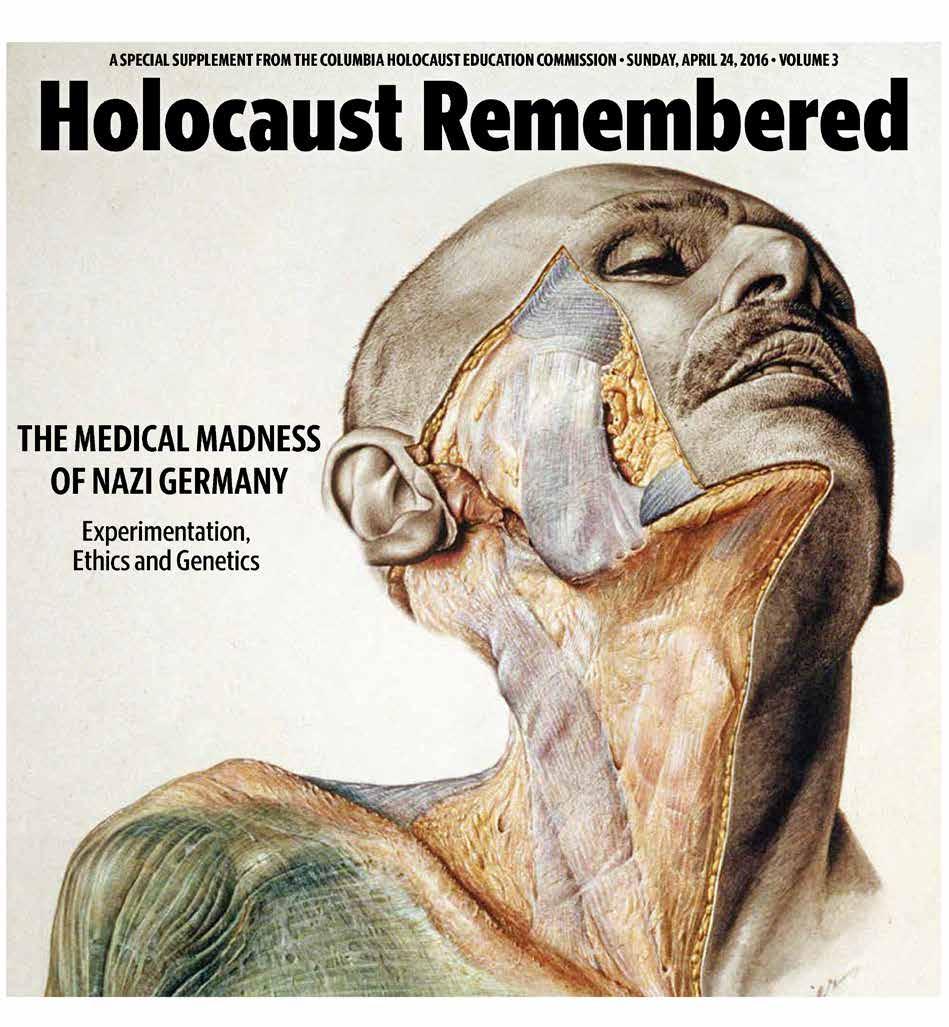
65
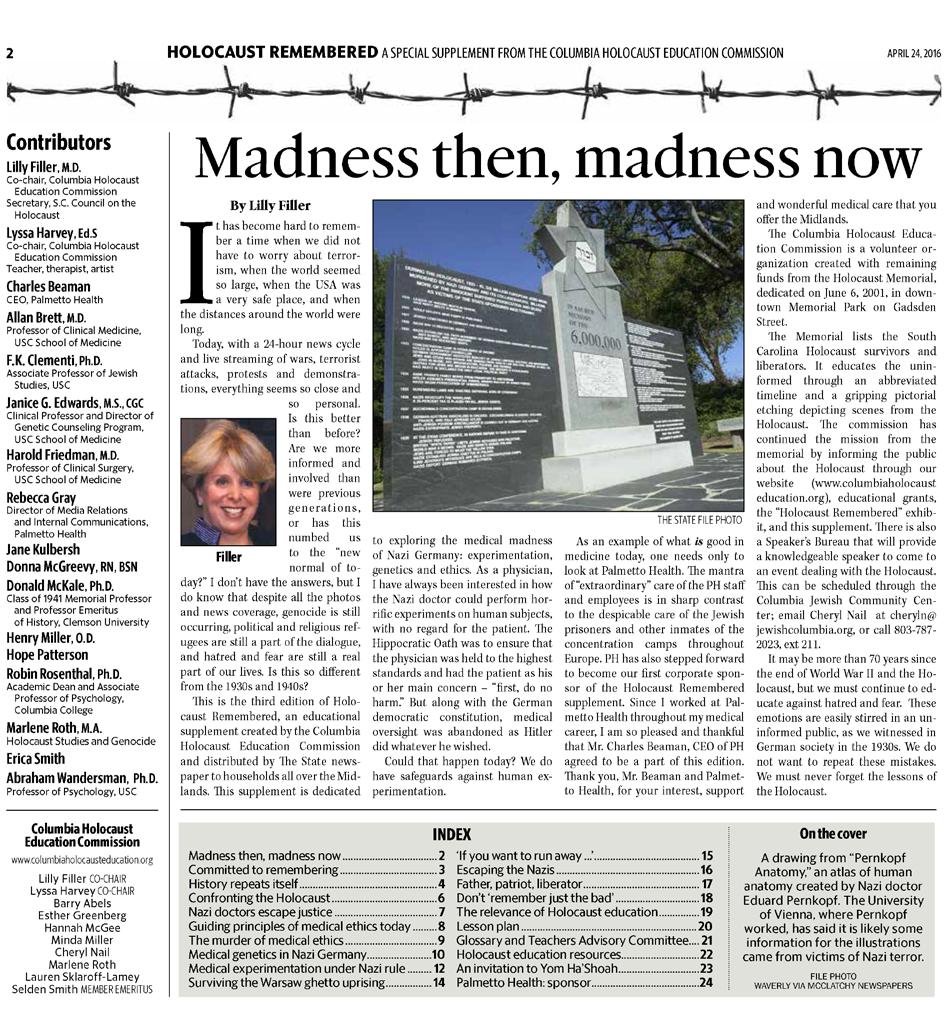
66
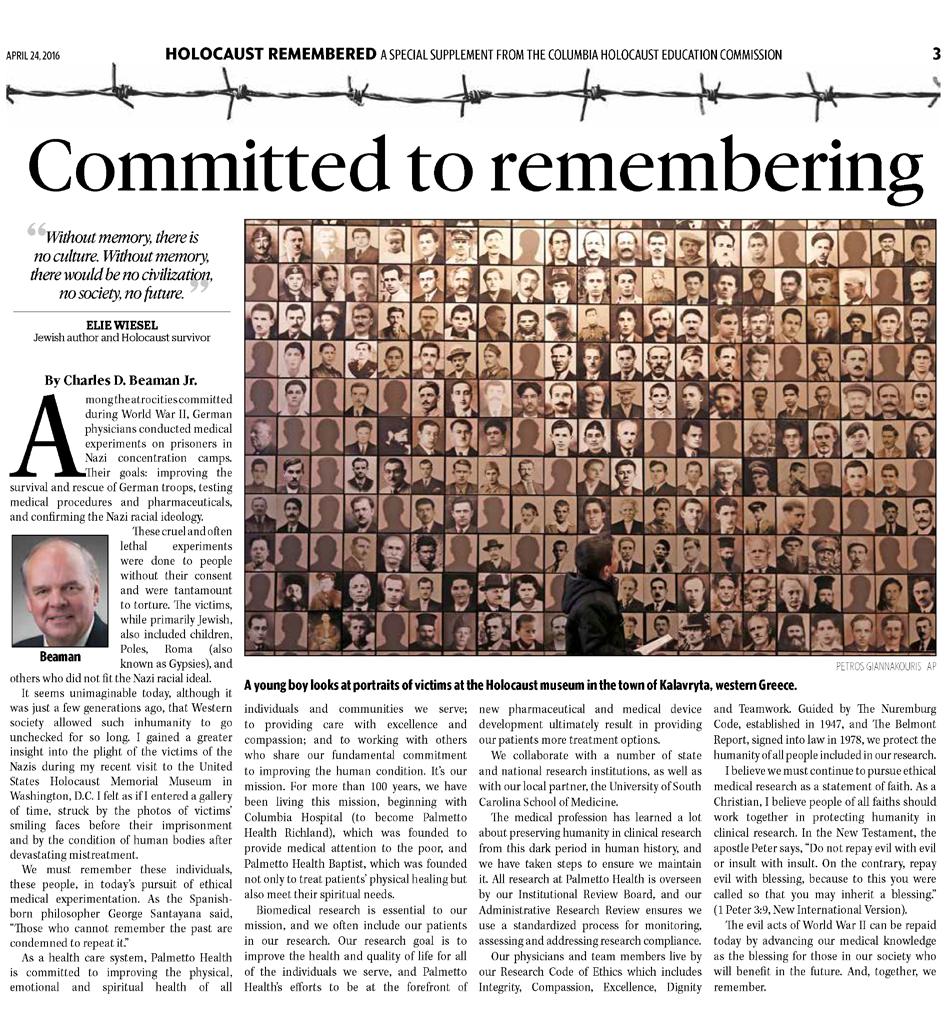
67
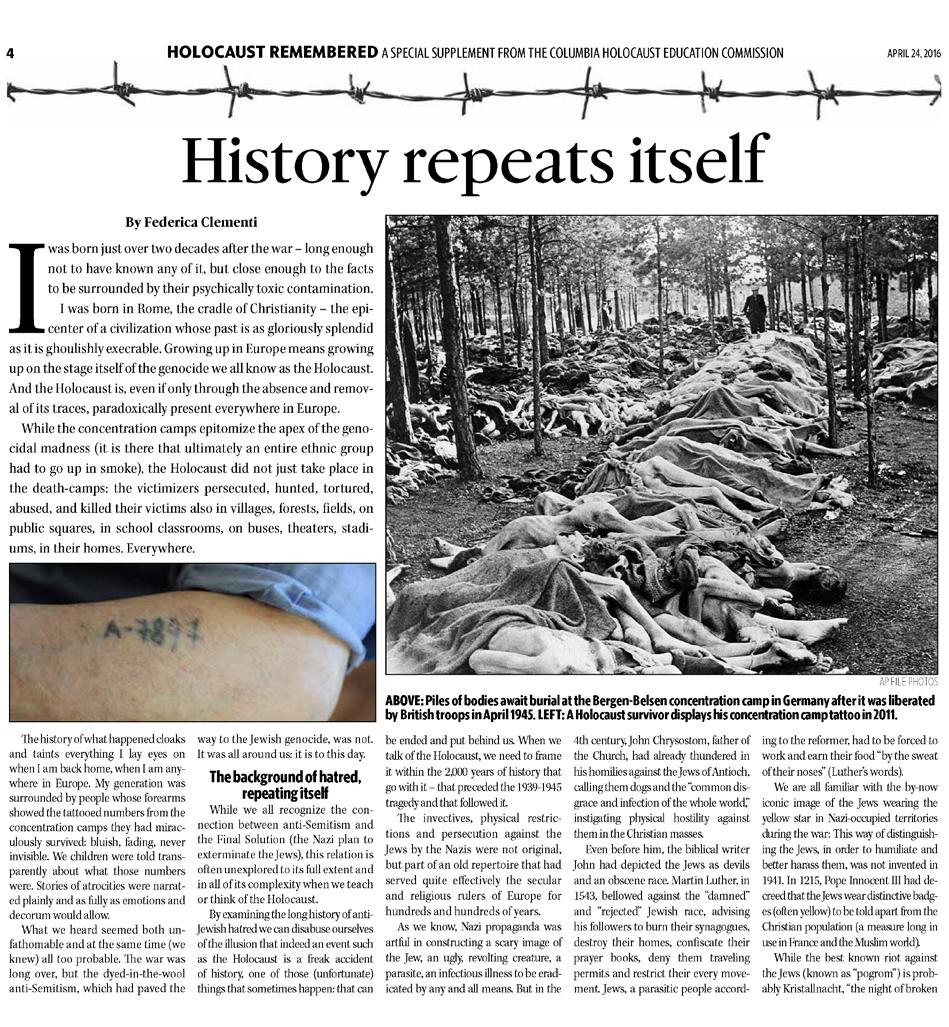
68
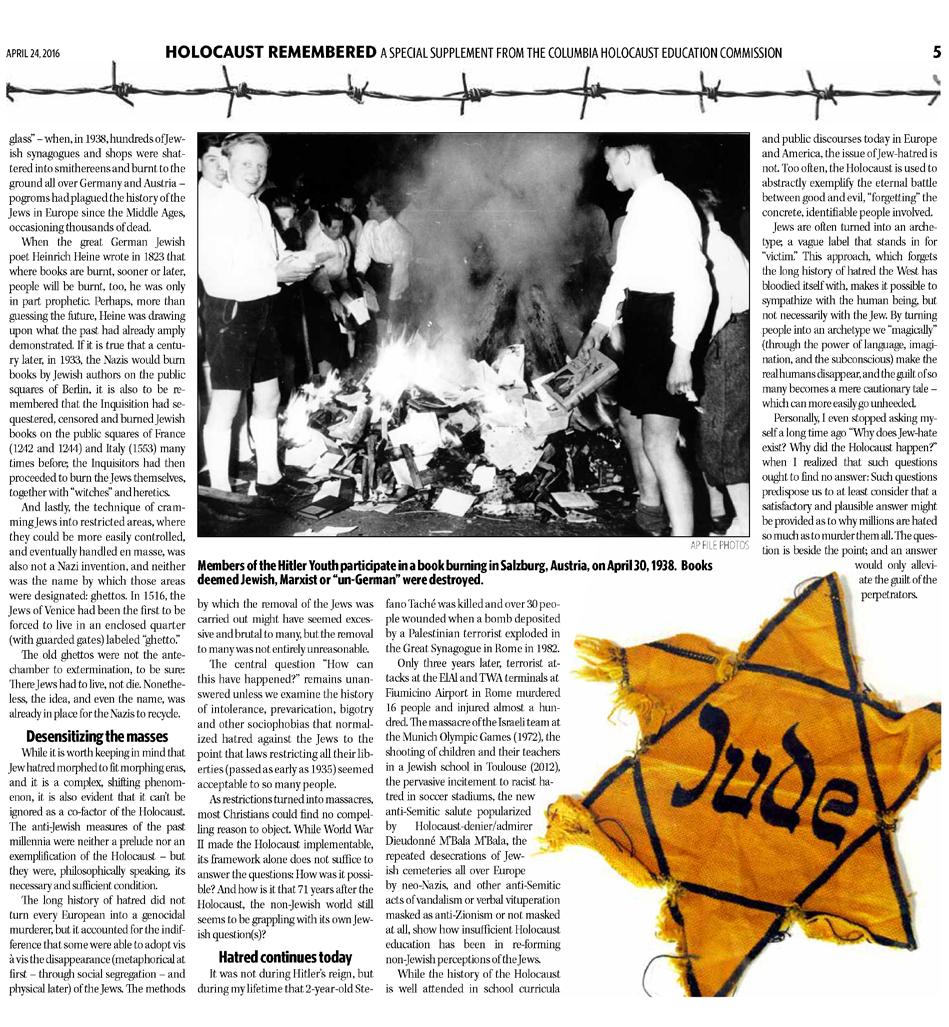
69
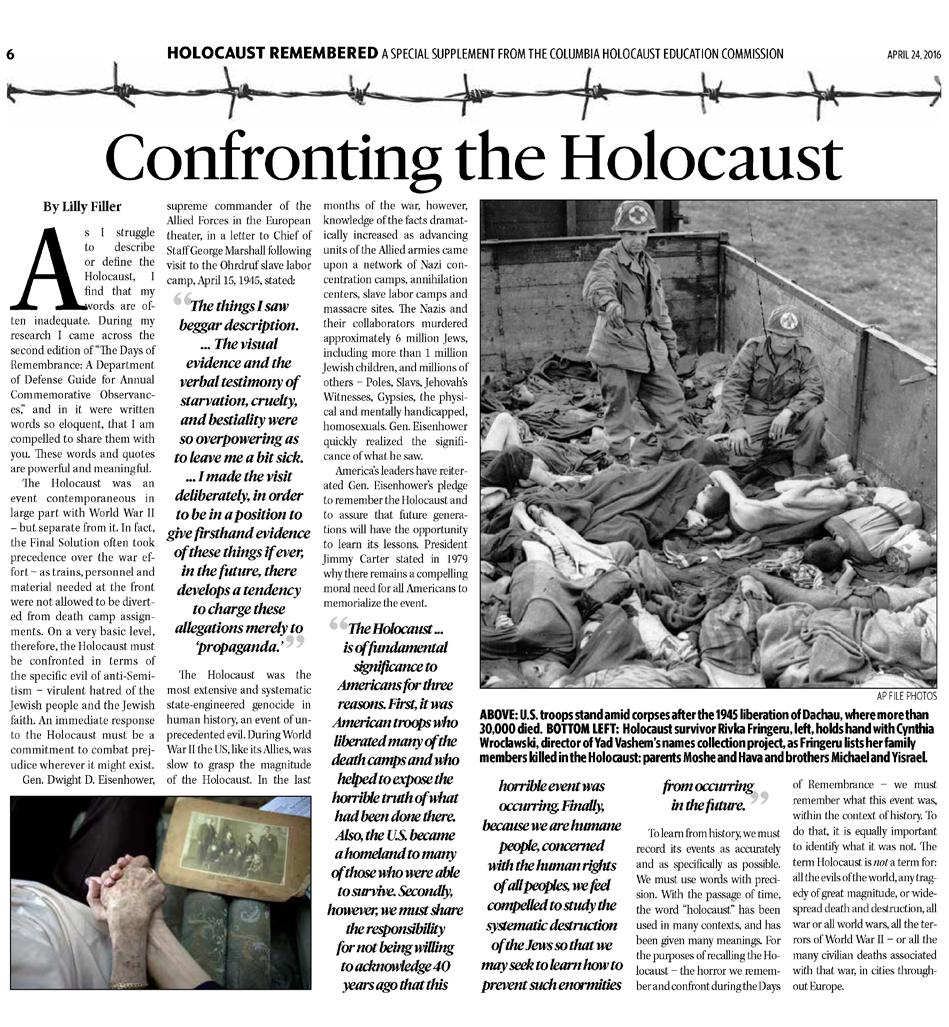
70

71
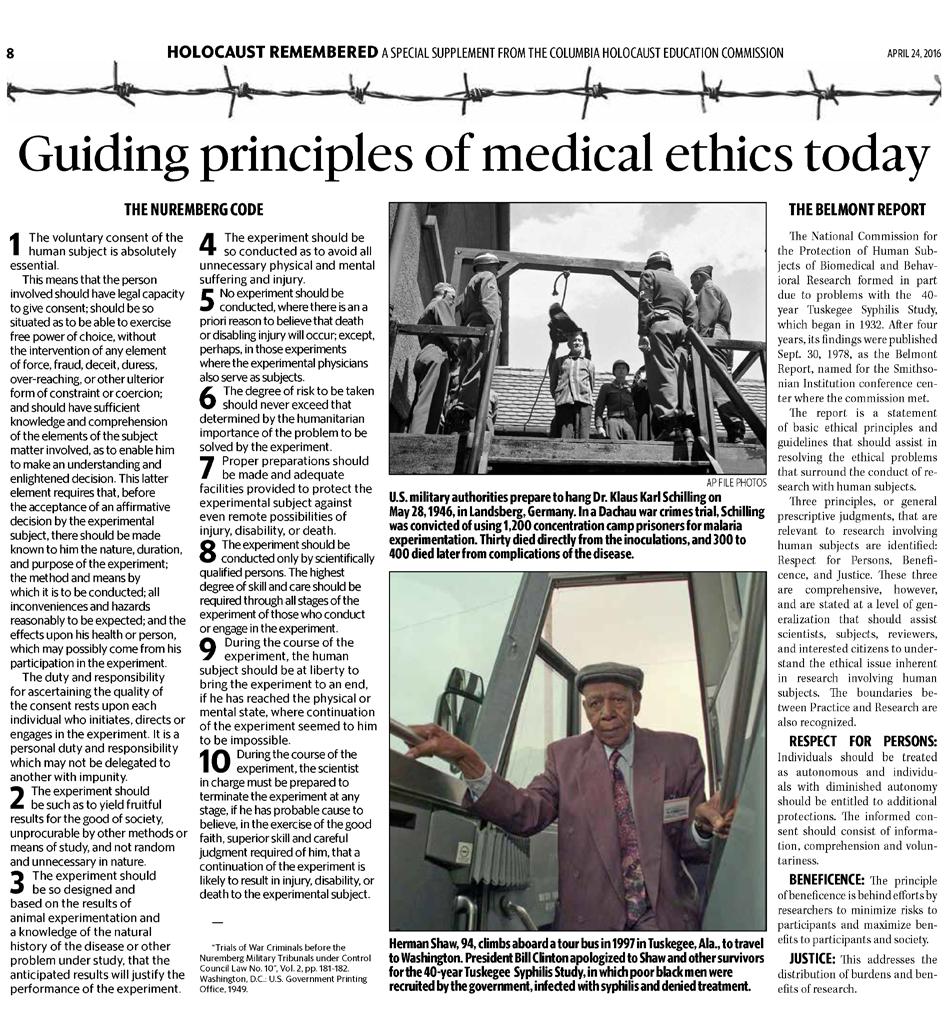
72
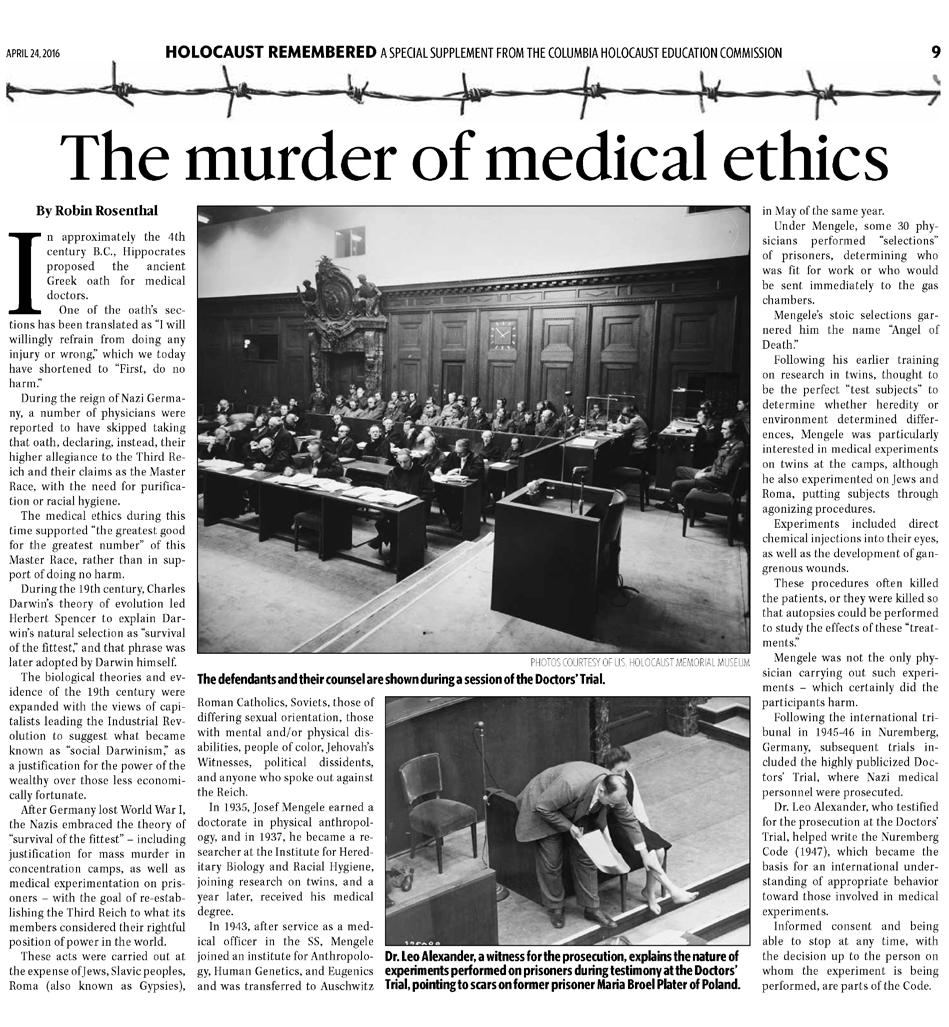
73
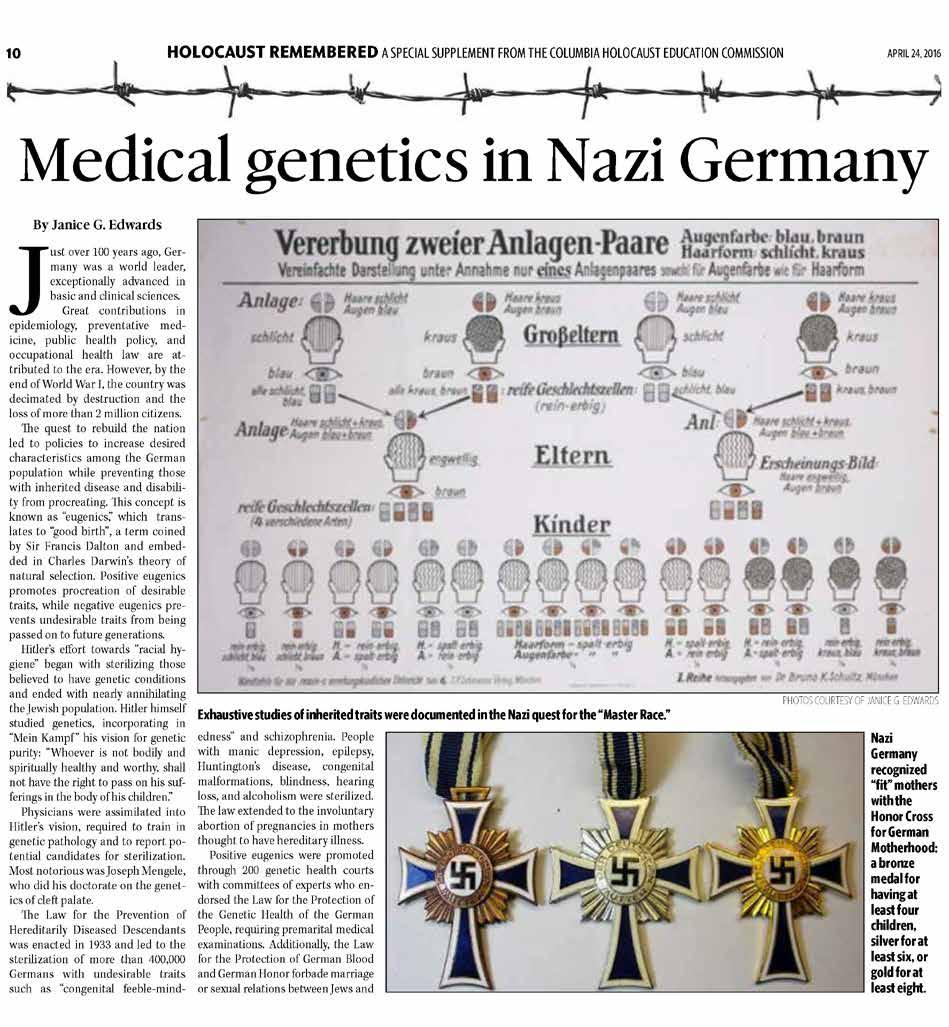
74
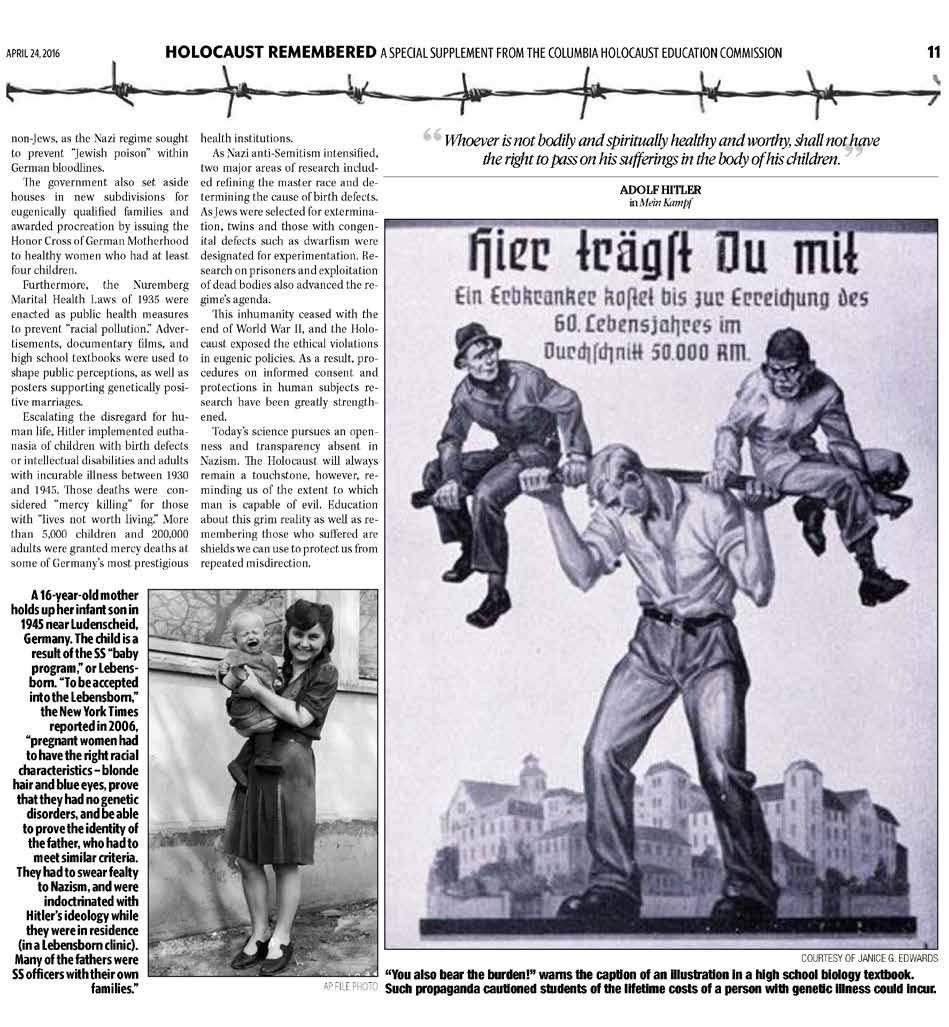
75
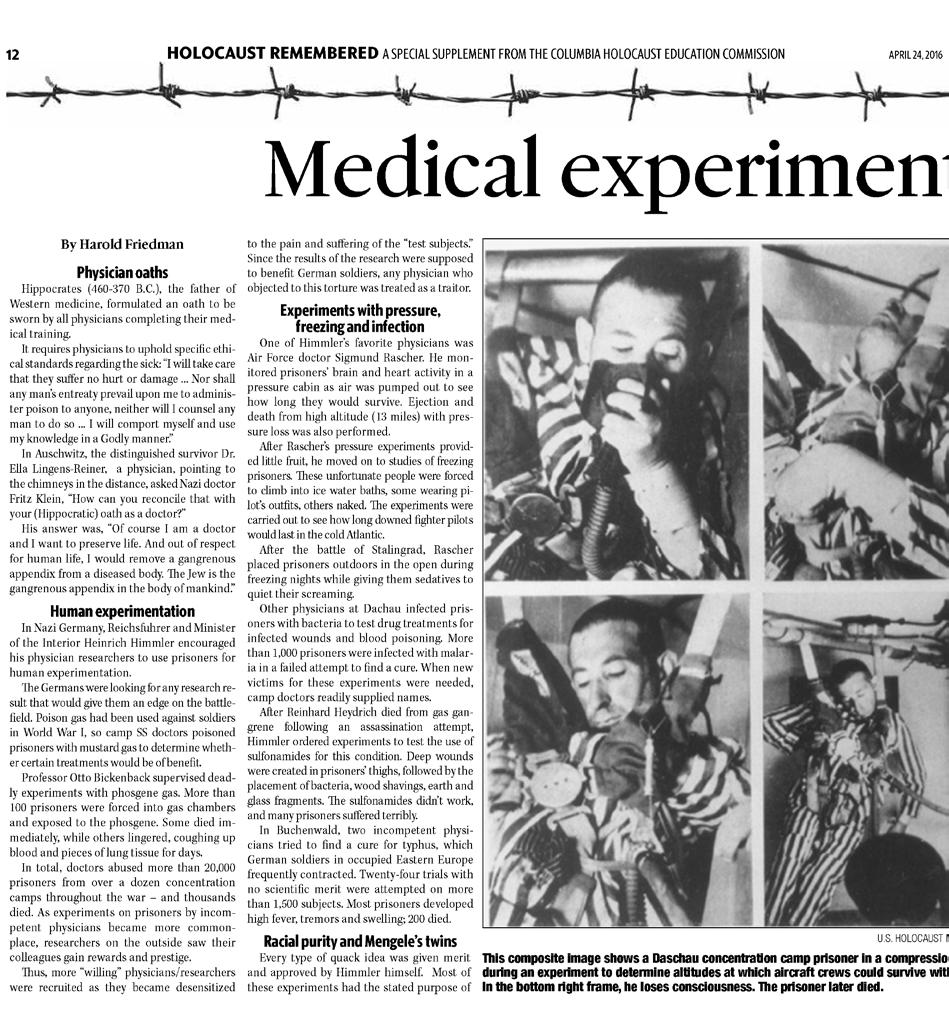
76
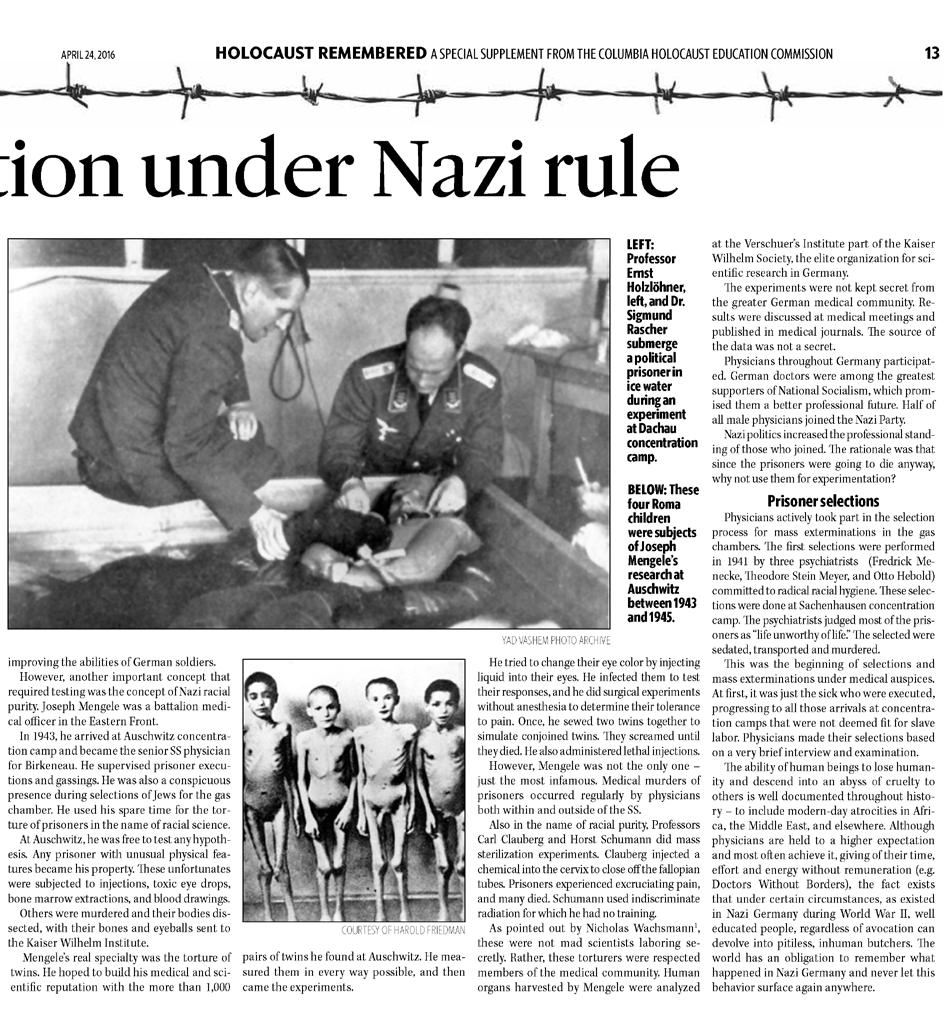
77
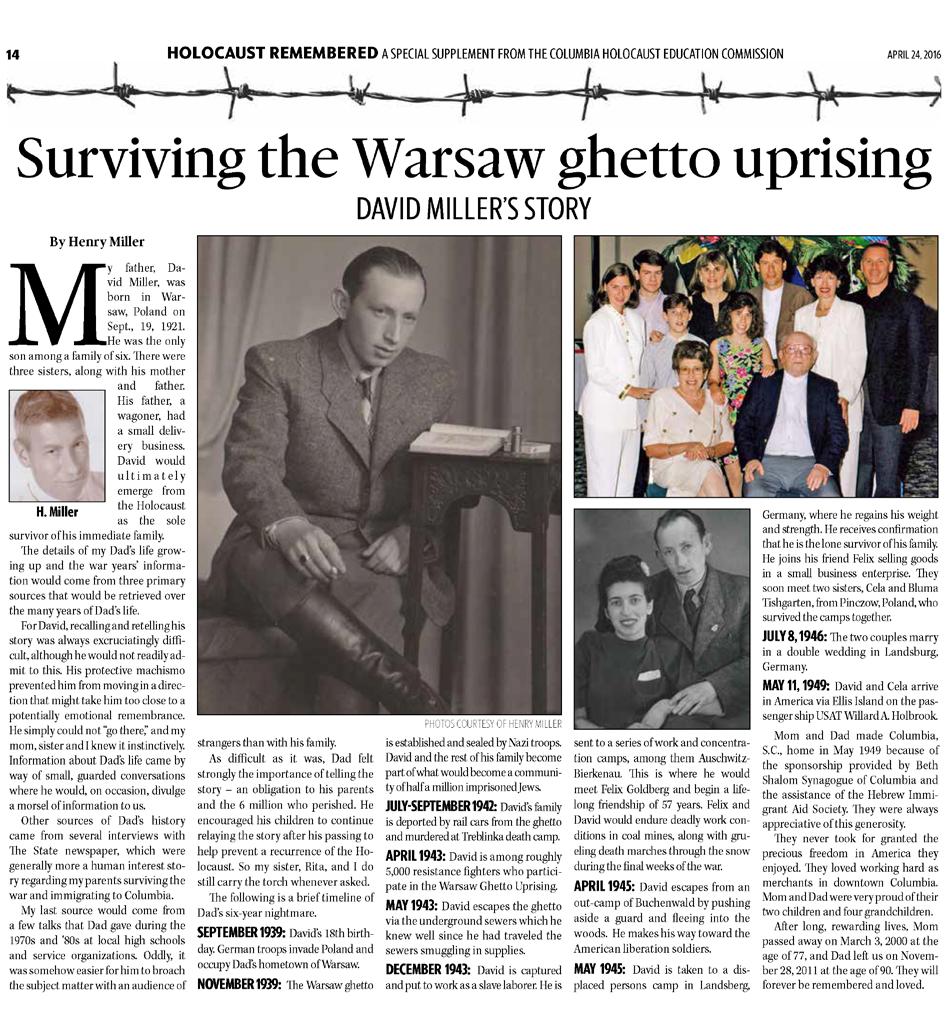
78
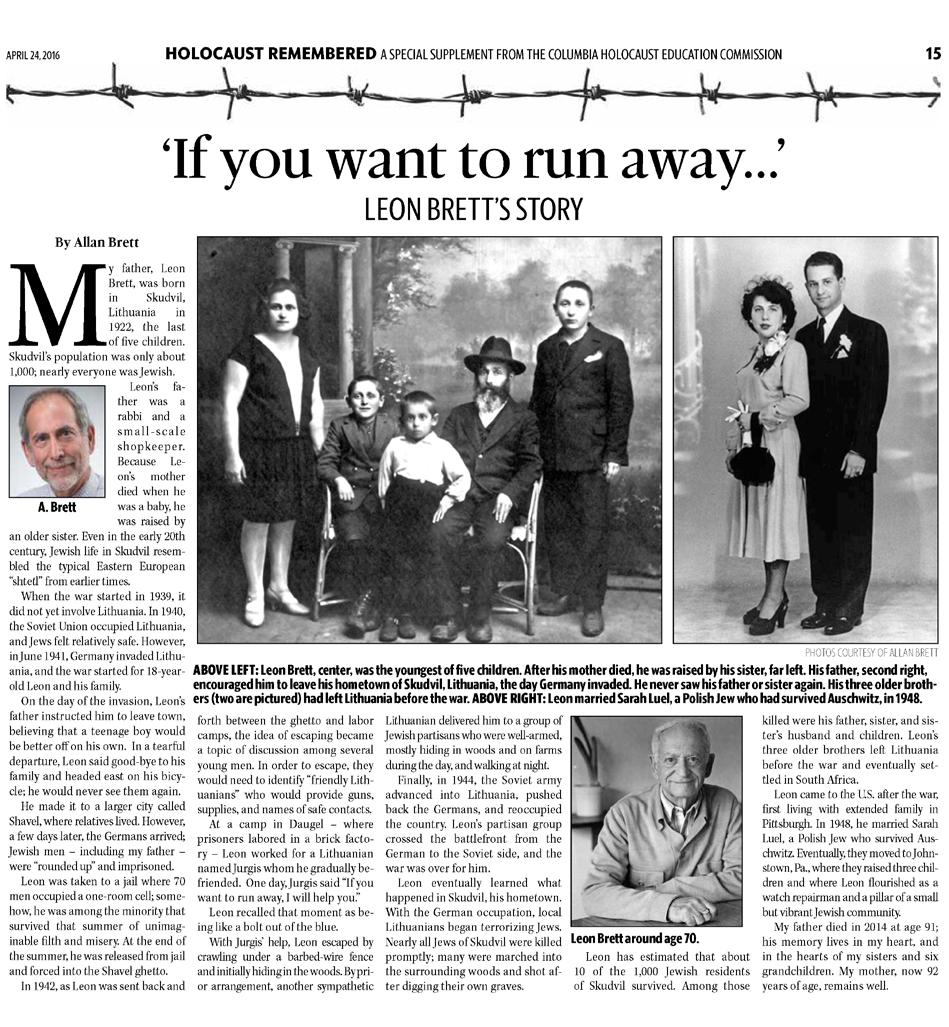
79
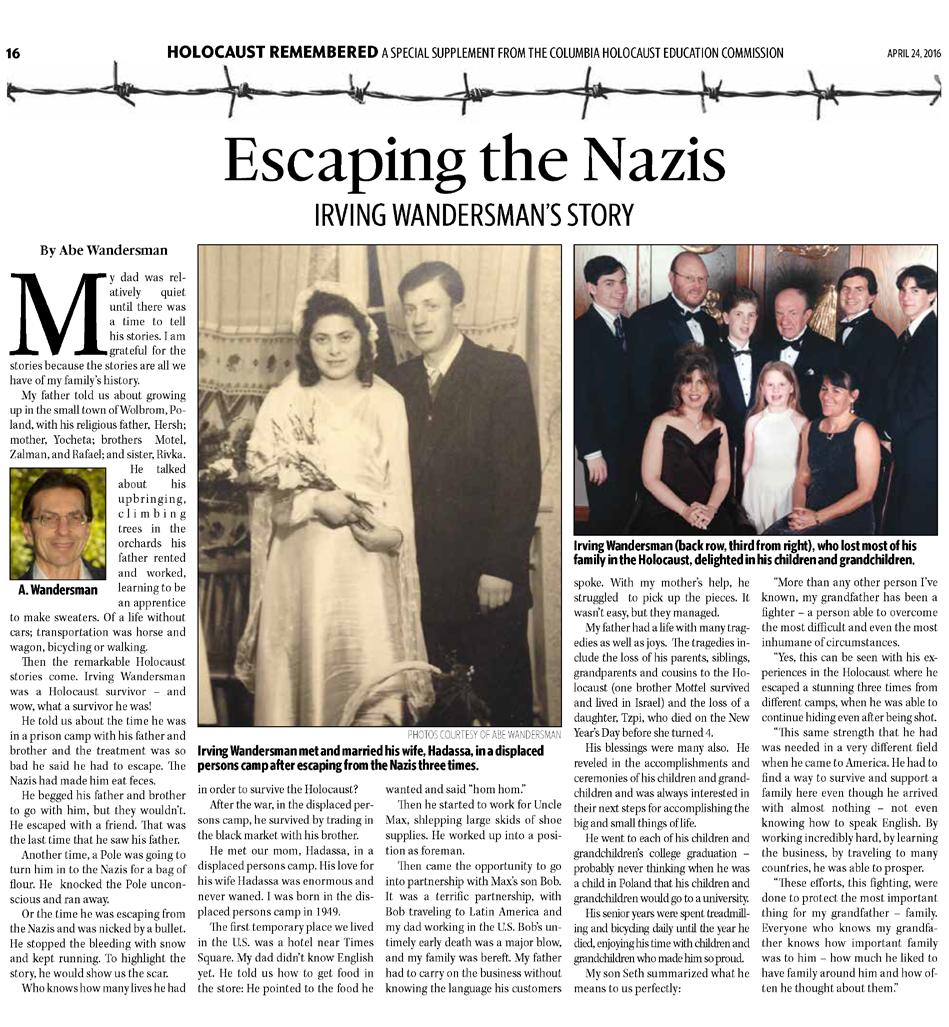
80
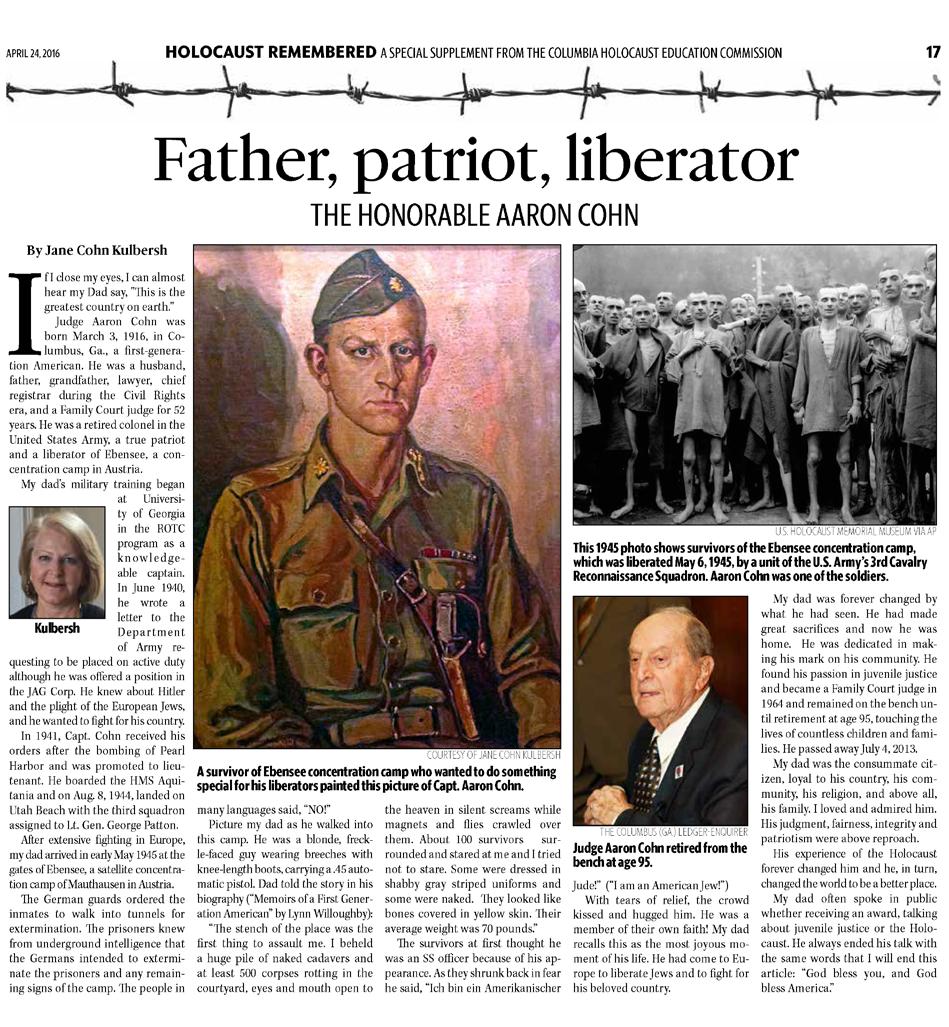
81
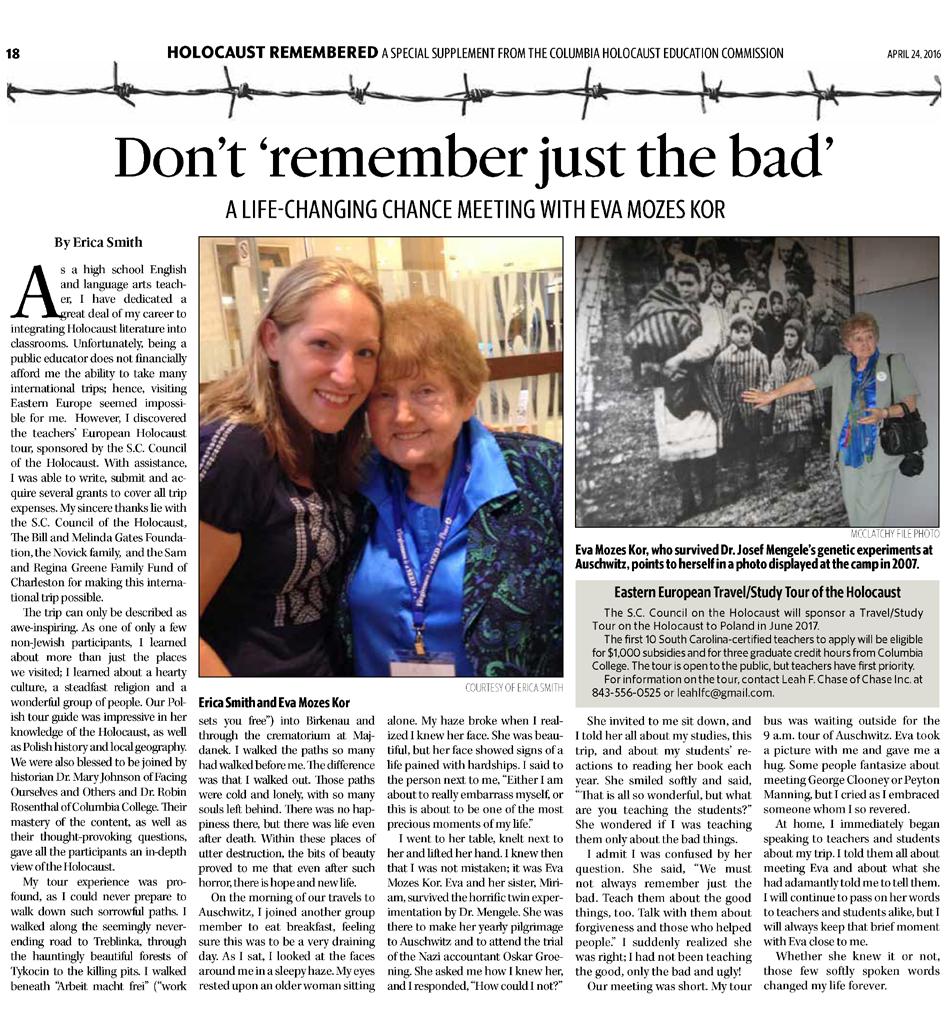
82
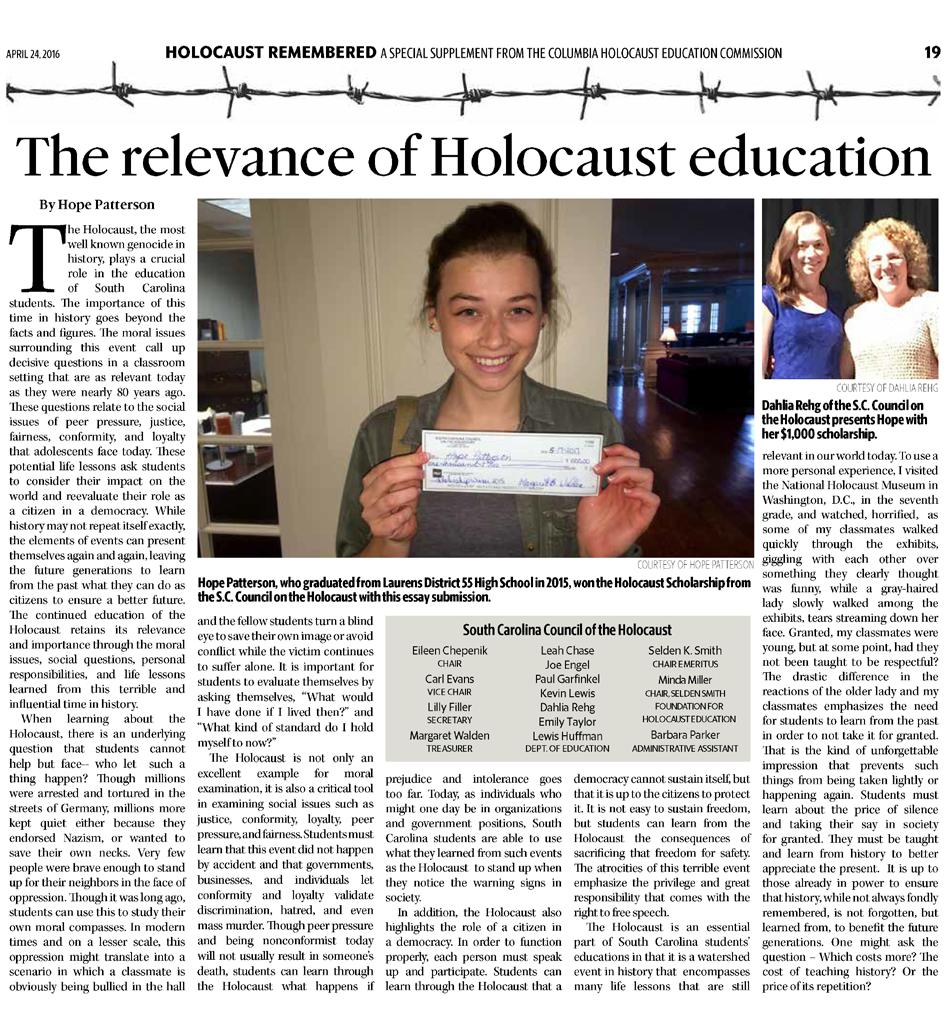
83
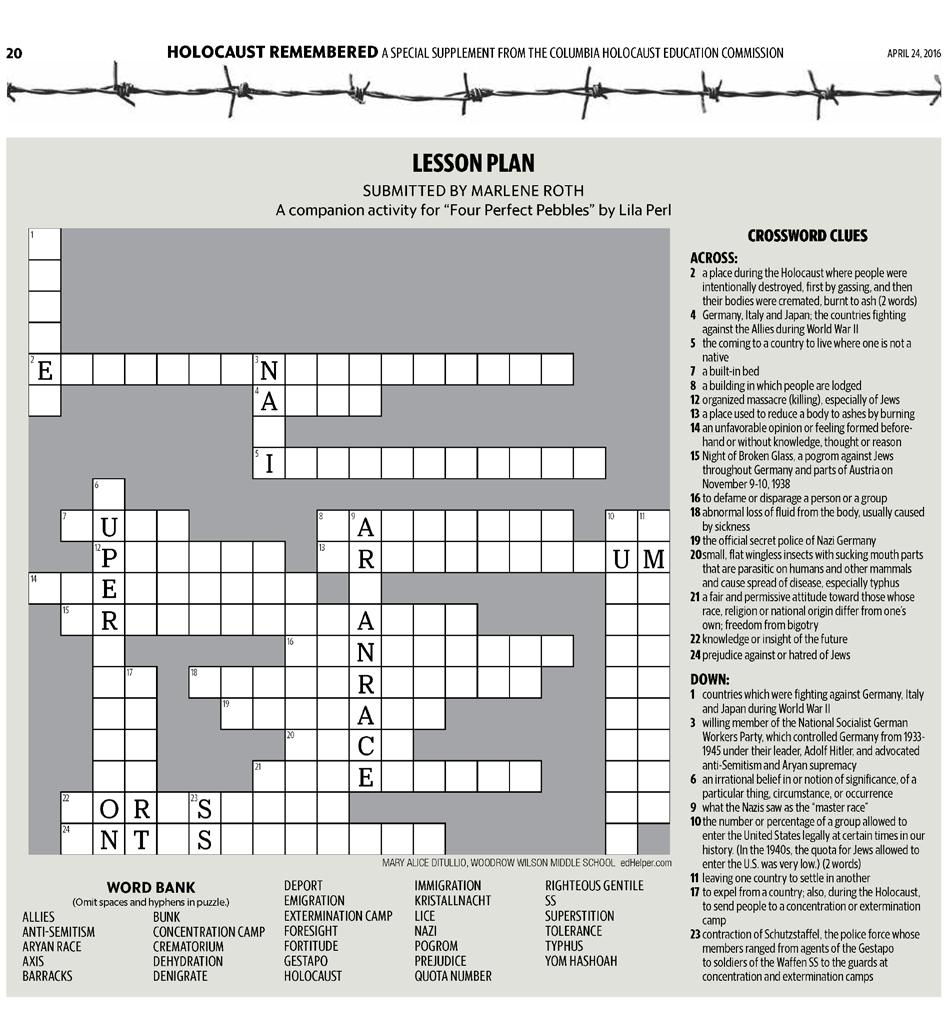
84
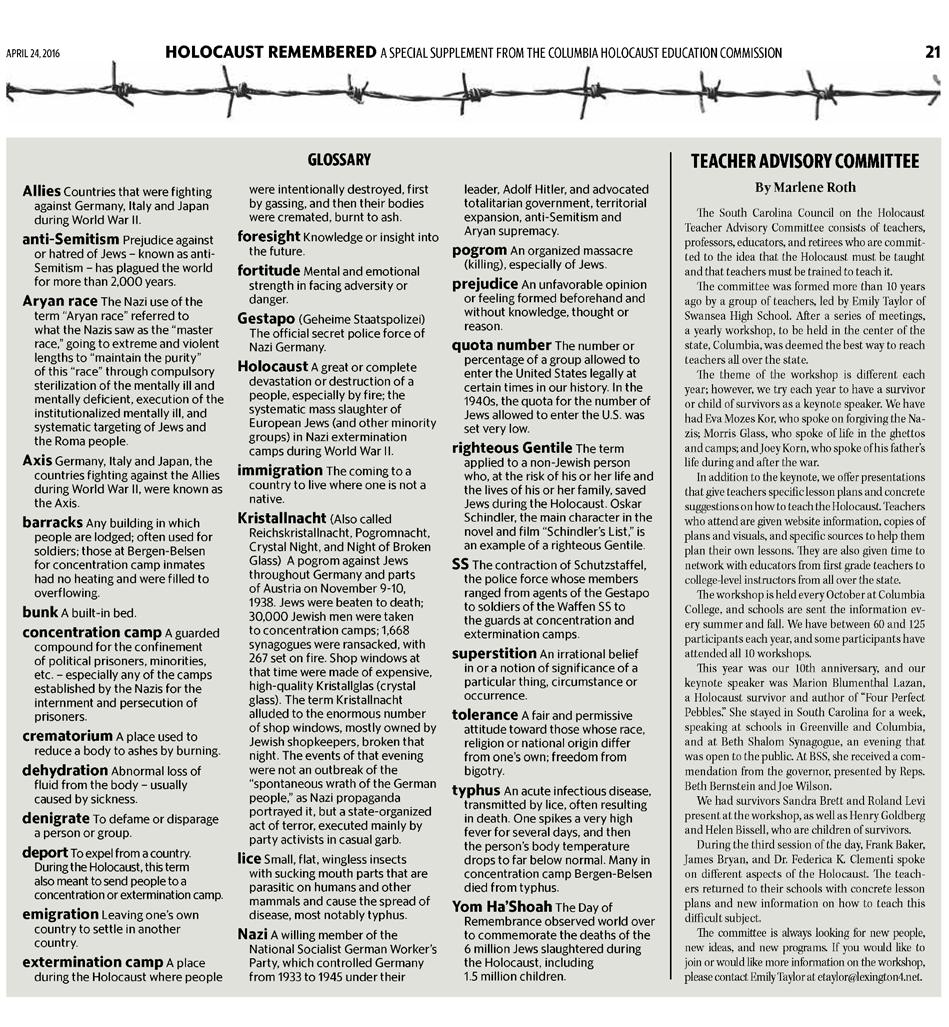
85
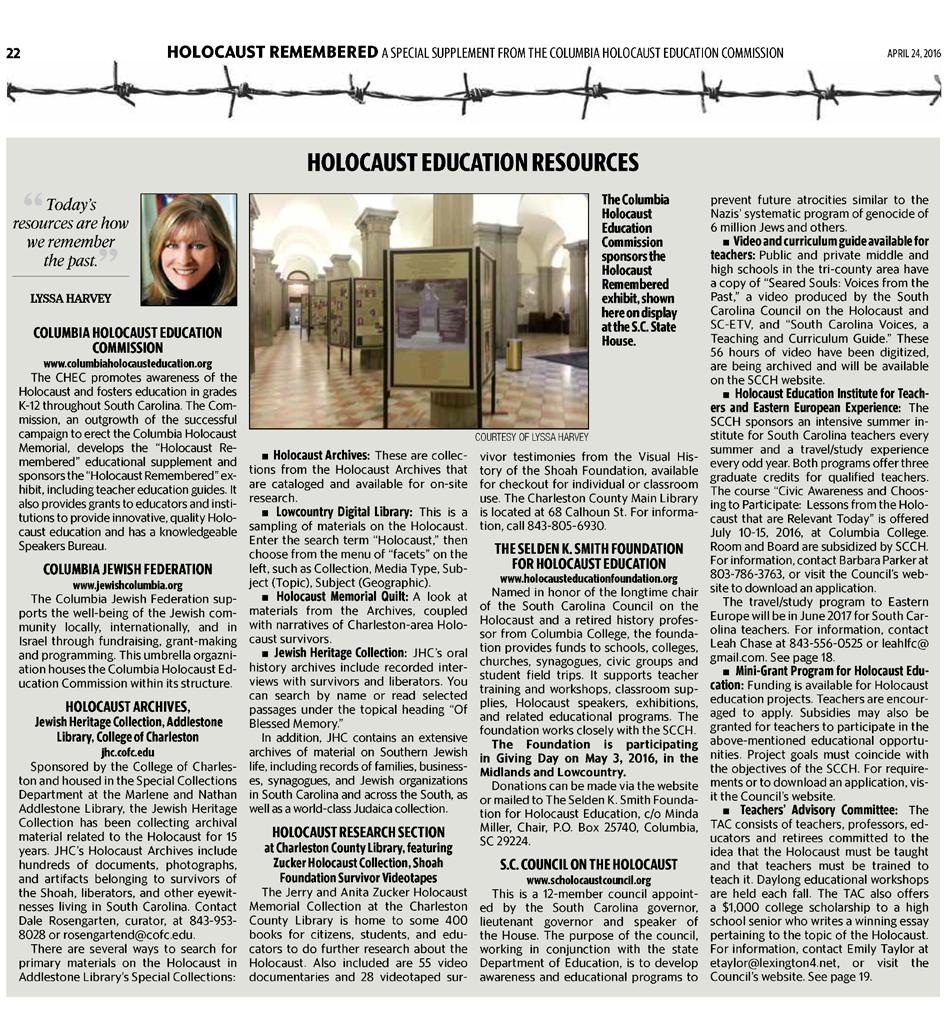
86
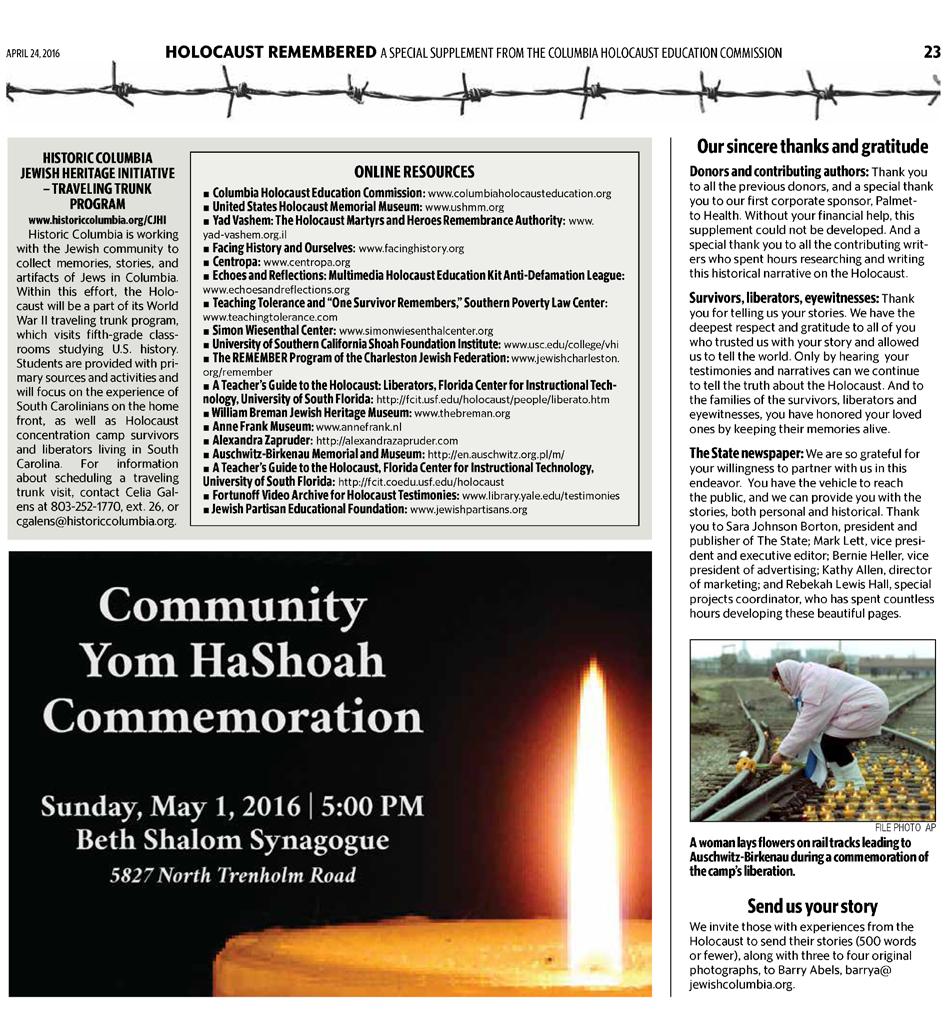
87
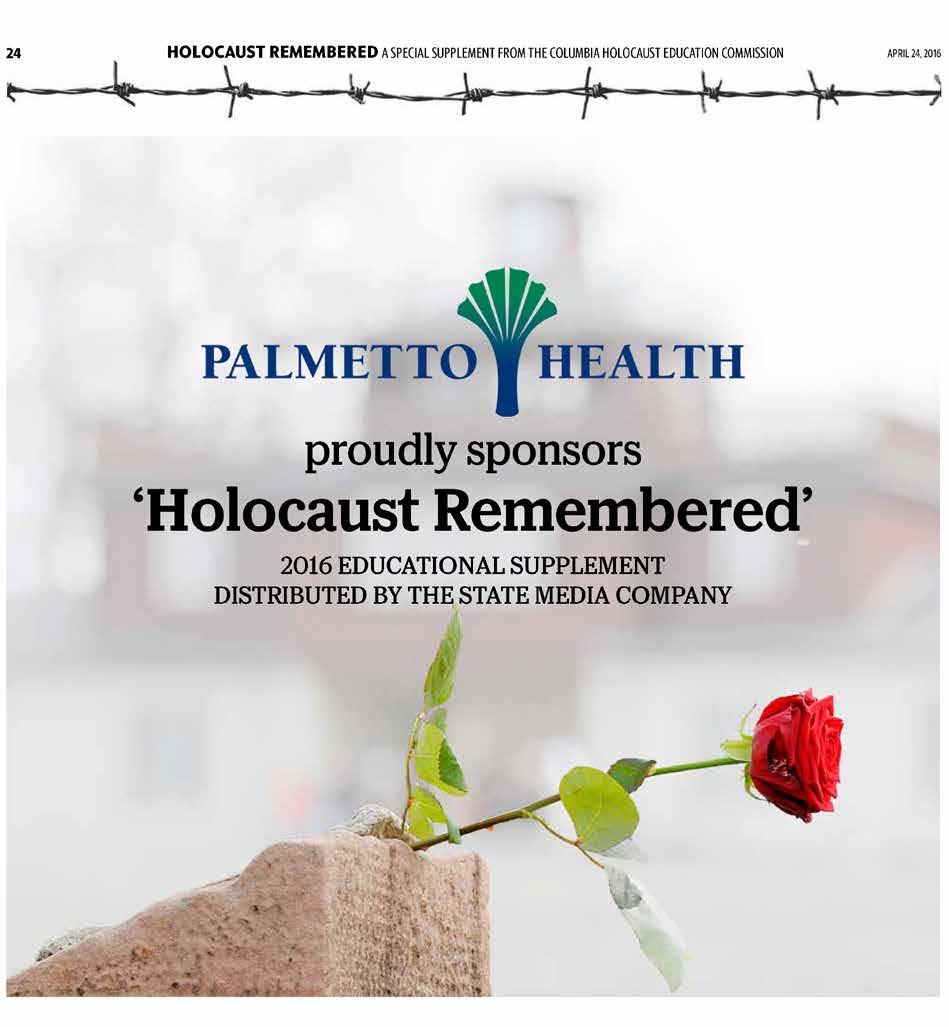
88
89
“Never shall I forget that night, the first night in camp, which has turned my life into one long night, seven times cursed and seven times sealed. Never shall I forget that smoke. Never shall I forget the little faces of the children, whose bodies I saw turned into wreaths of smoke beneath a silent blue sky.”
— Elie Wiesel Holocaust Survivor, Nobel Peace Laureate, author, activist Excerpt from Night, 1956
90
2017
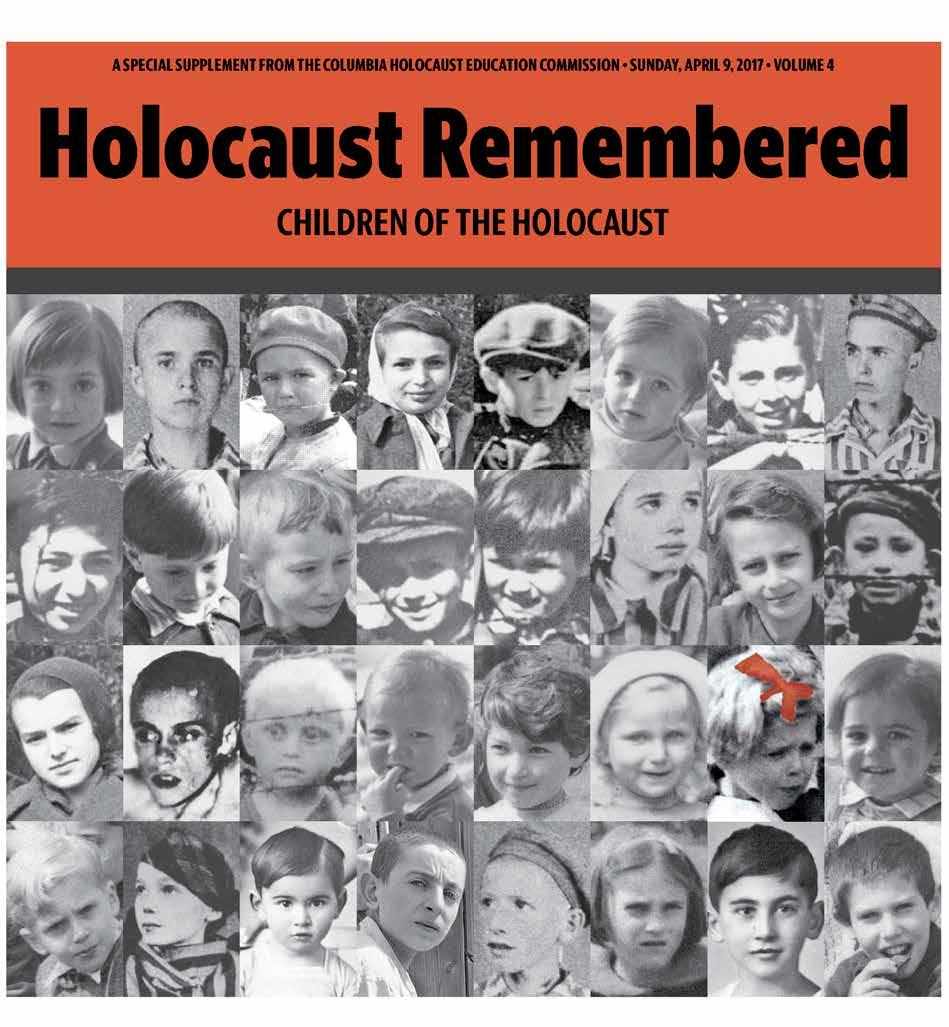
91
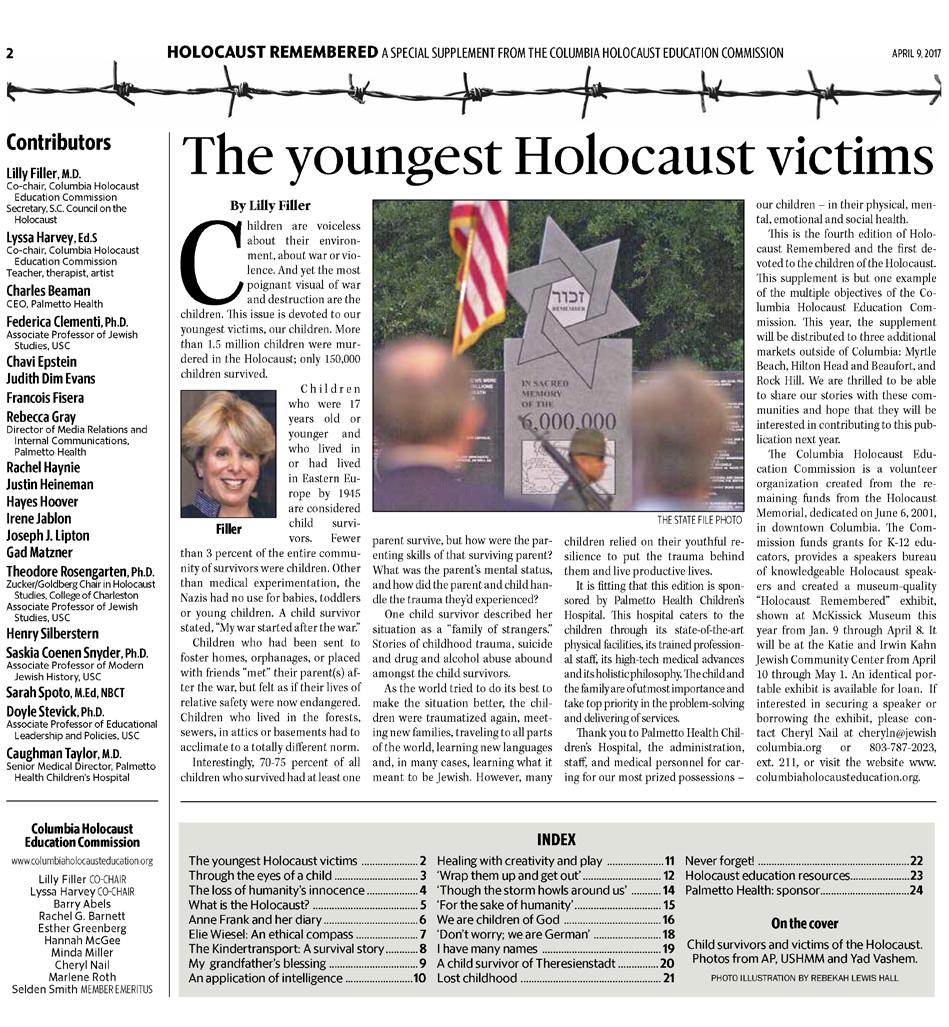
92
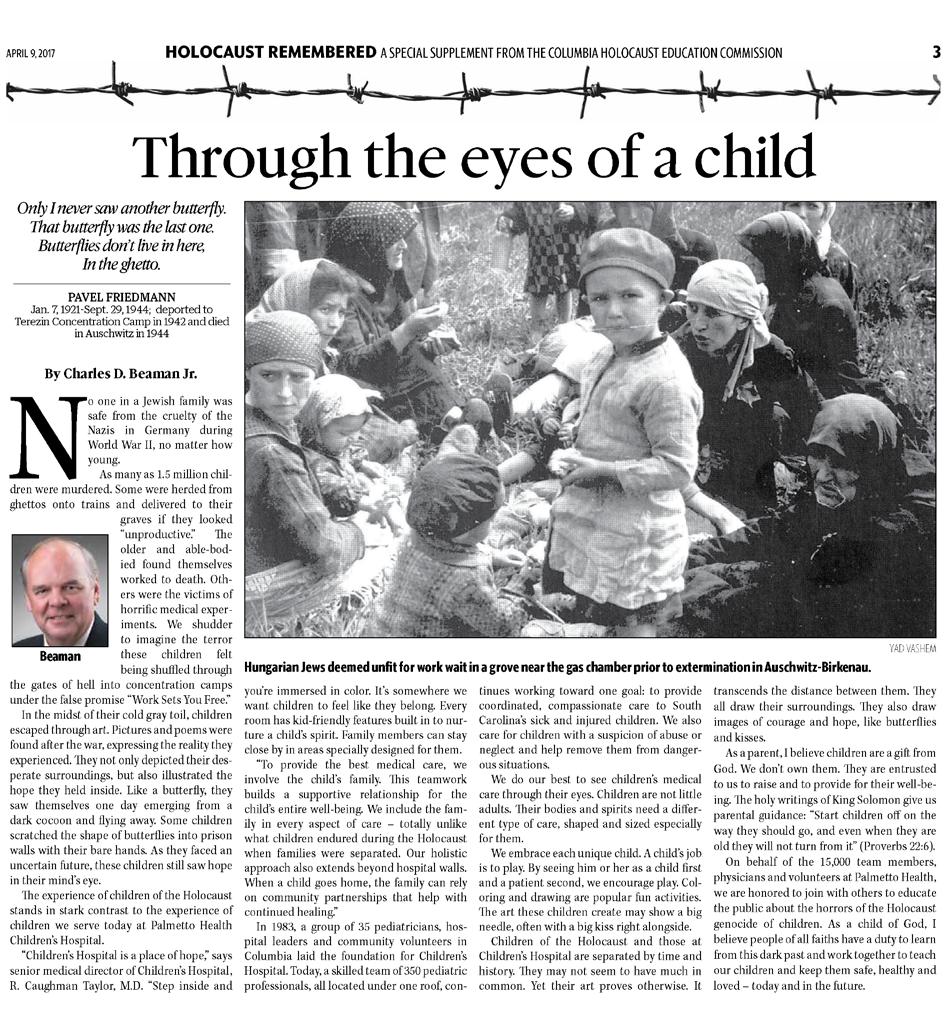
93
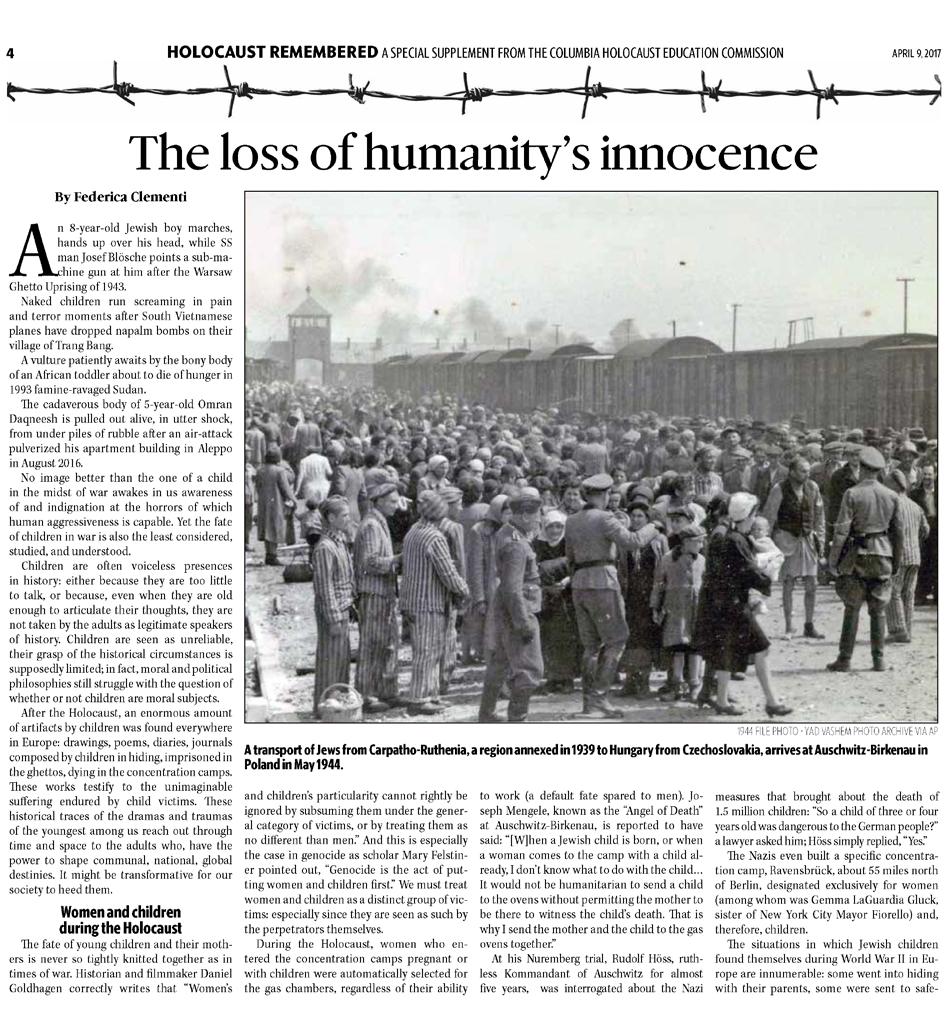
94
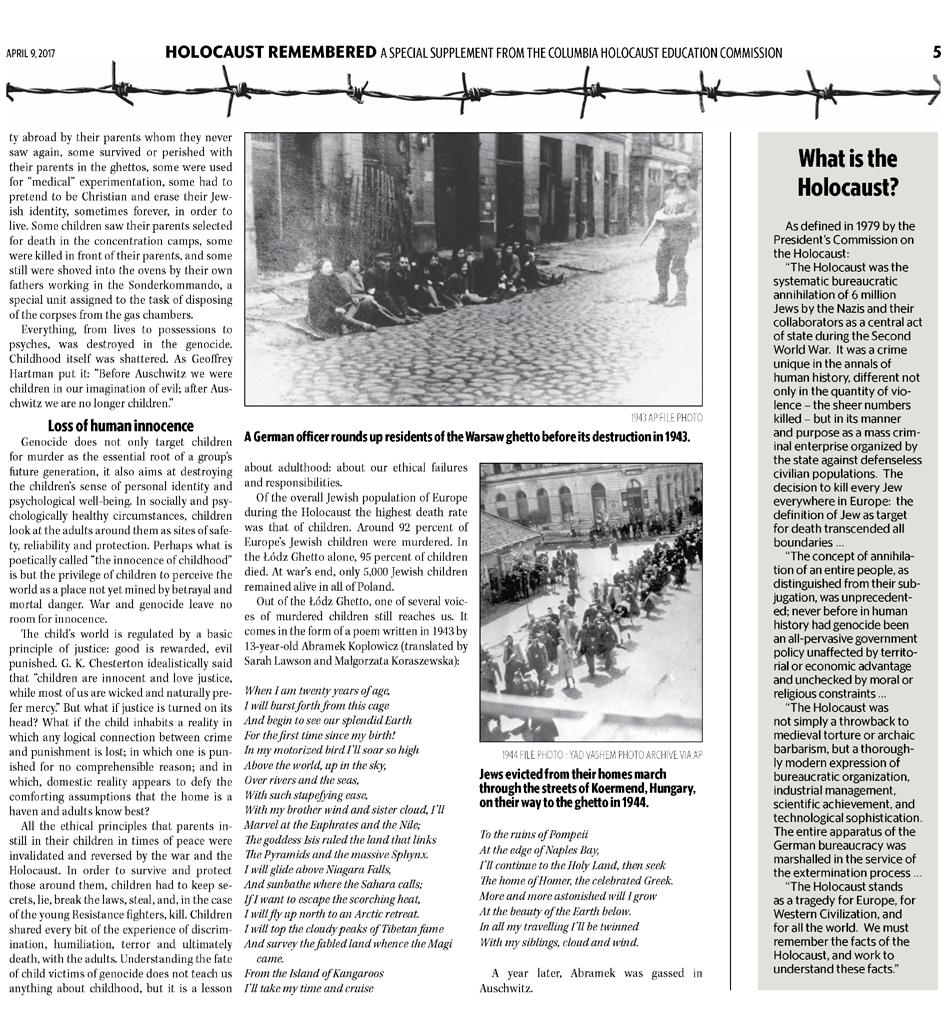
95
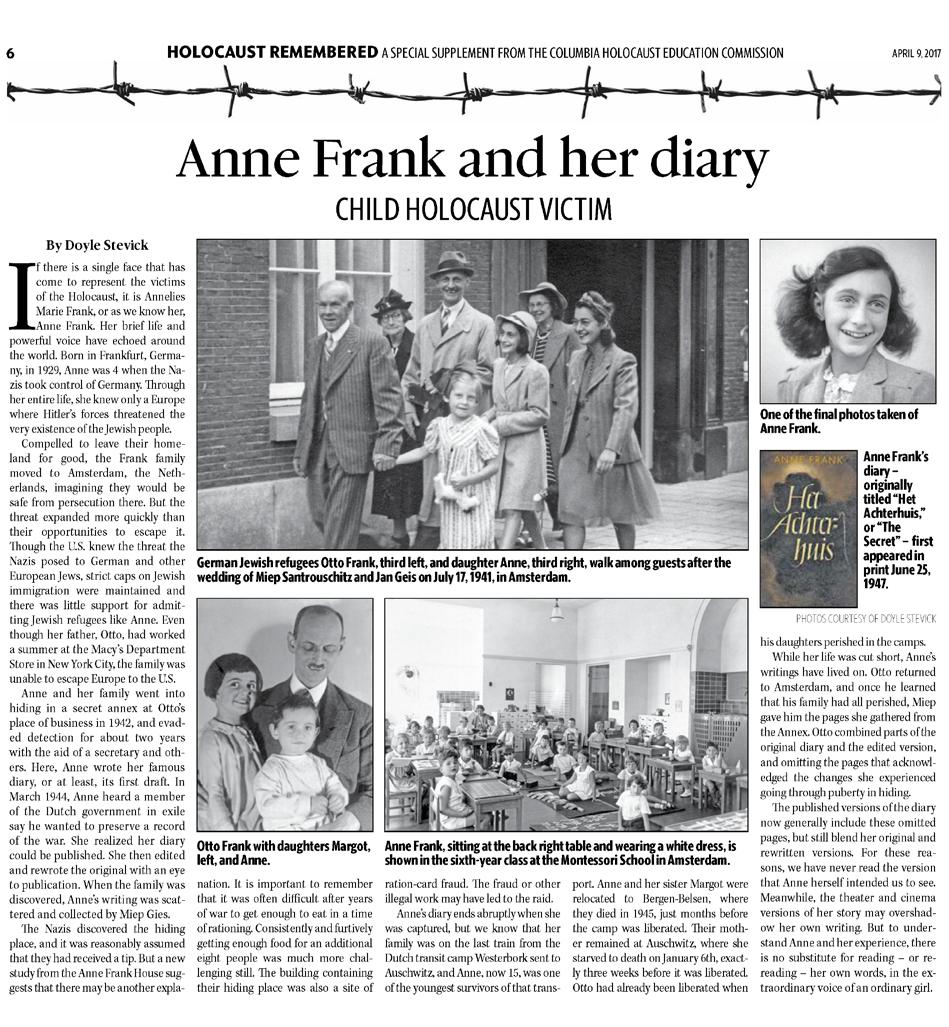
96
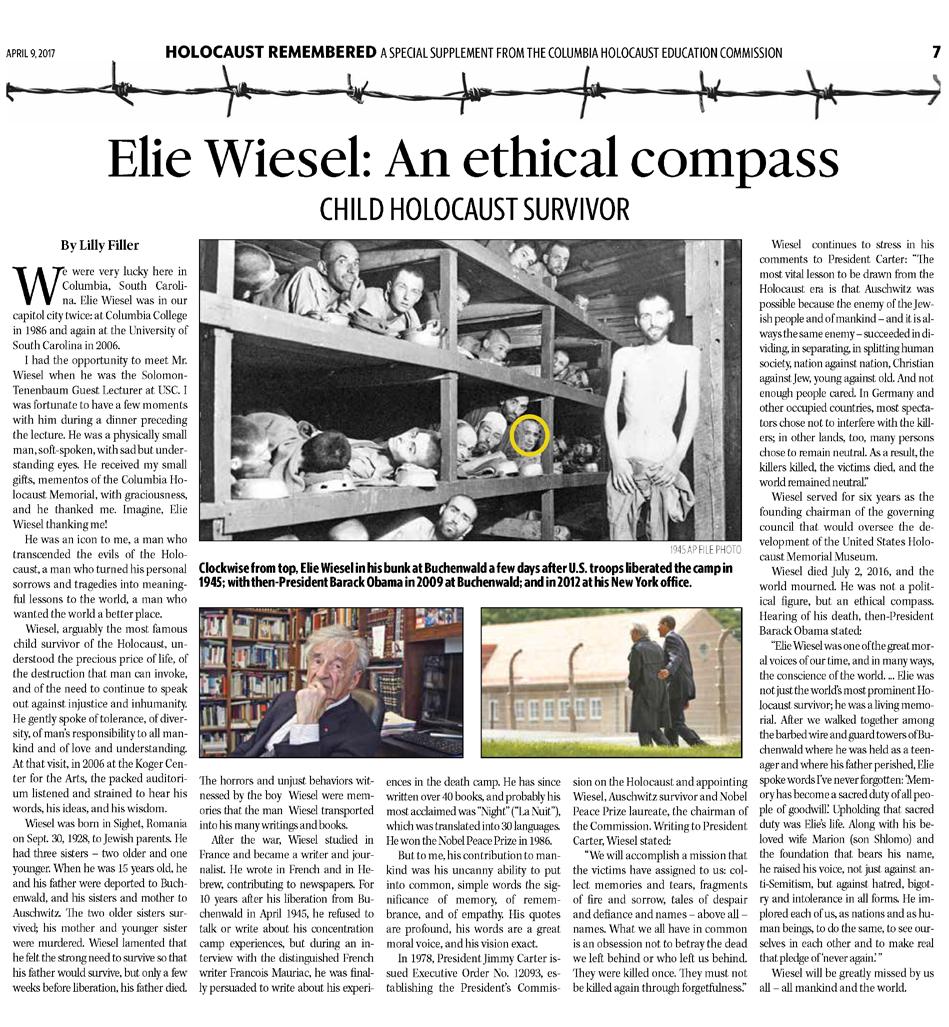
97
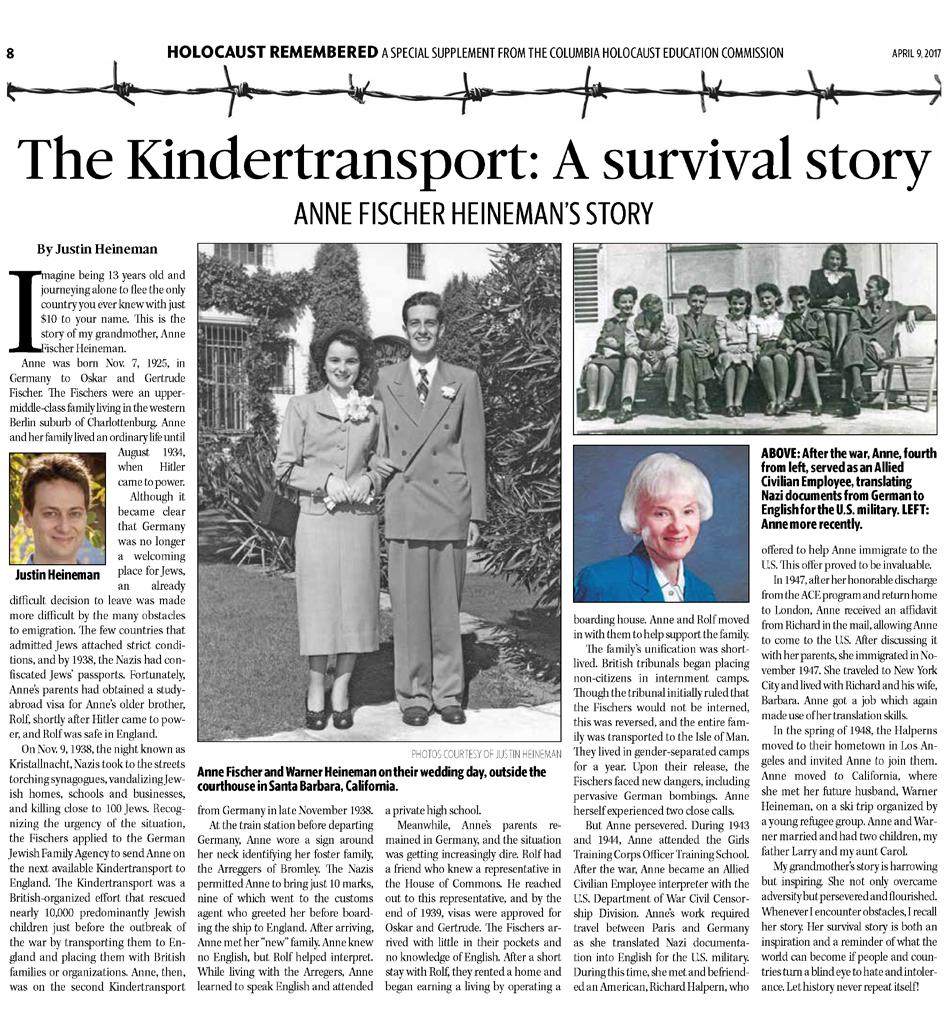
98
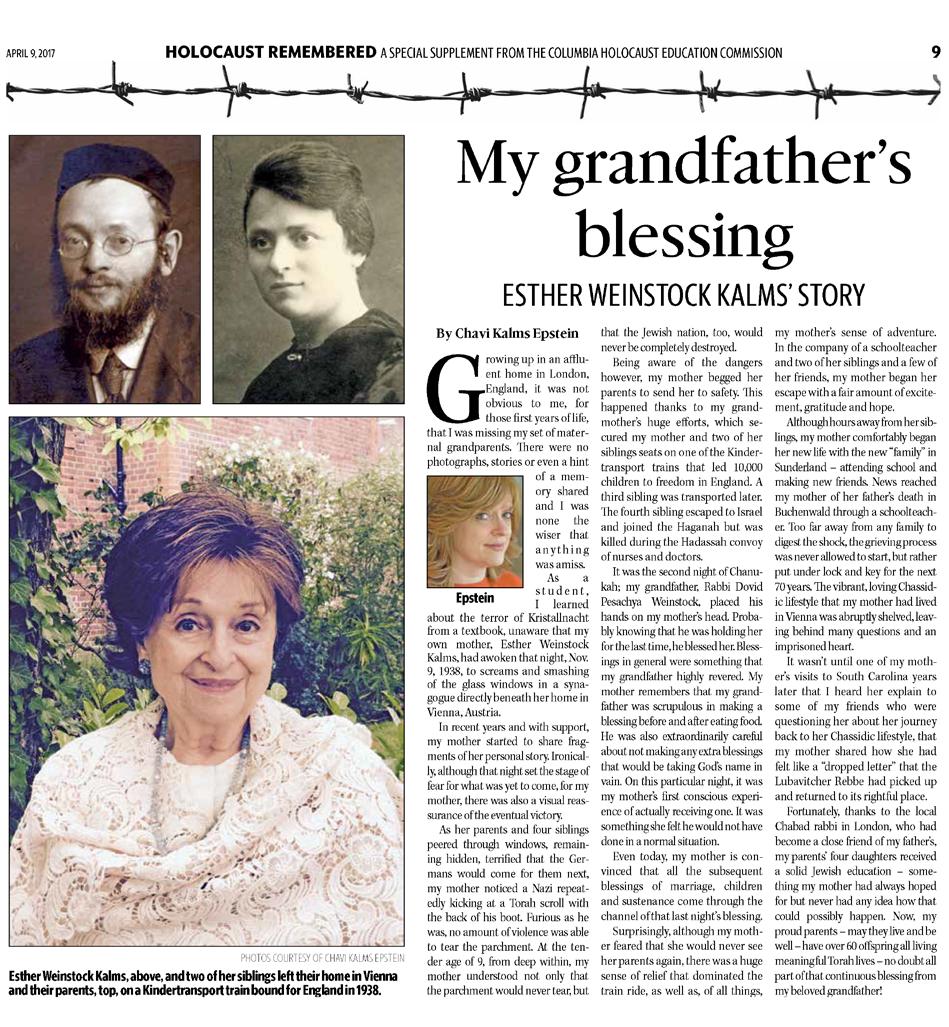
99
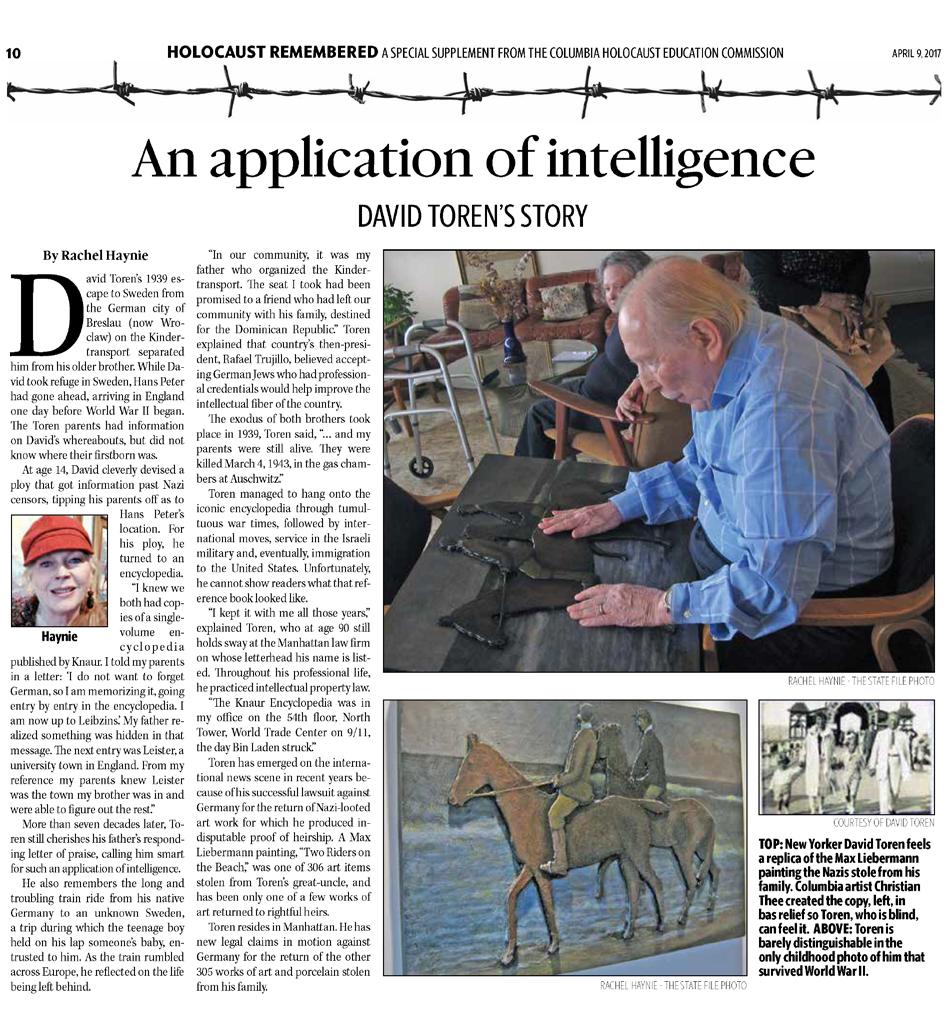
100
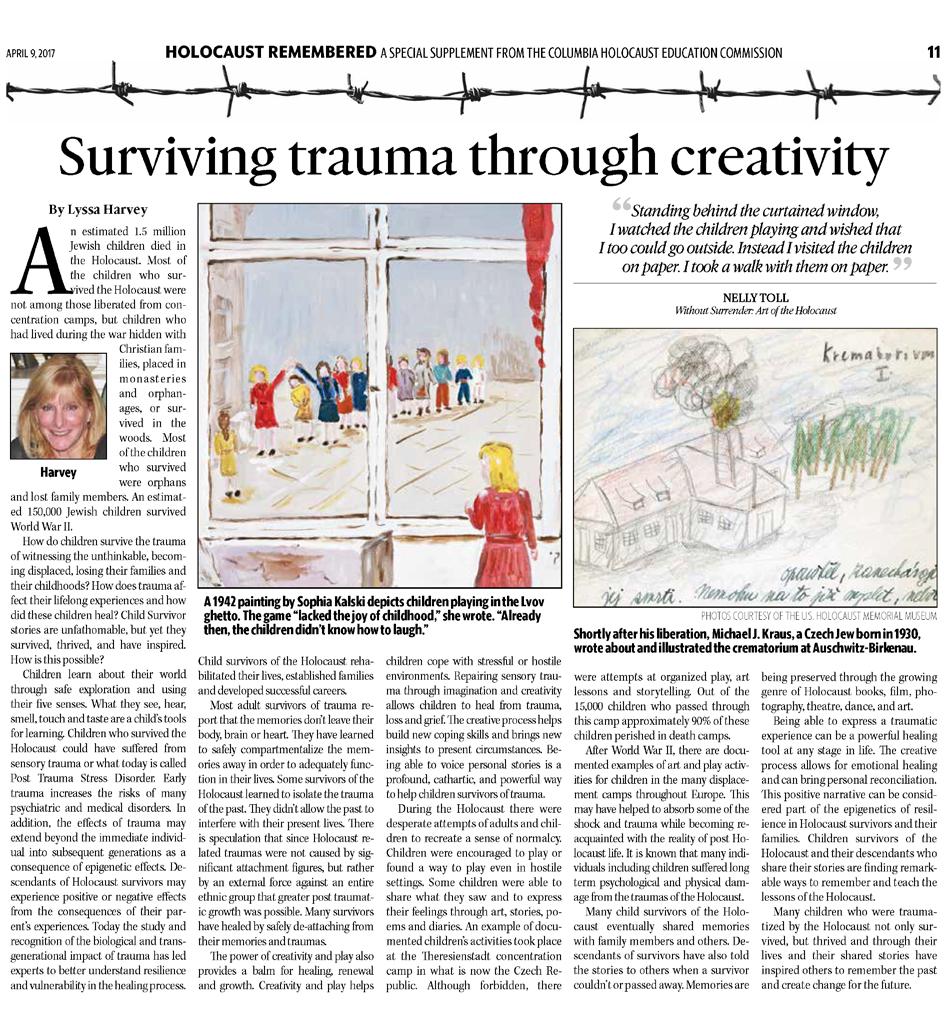
101
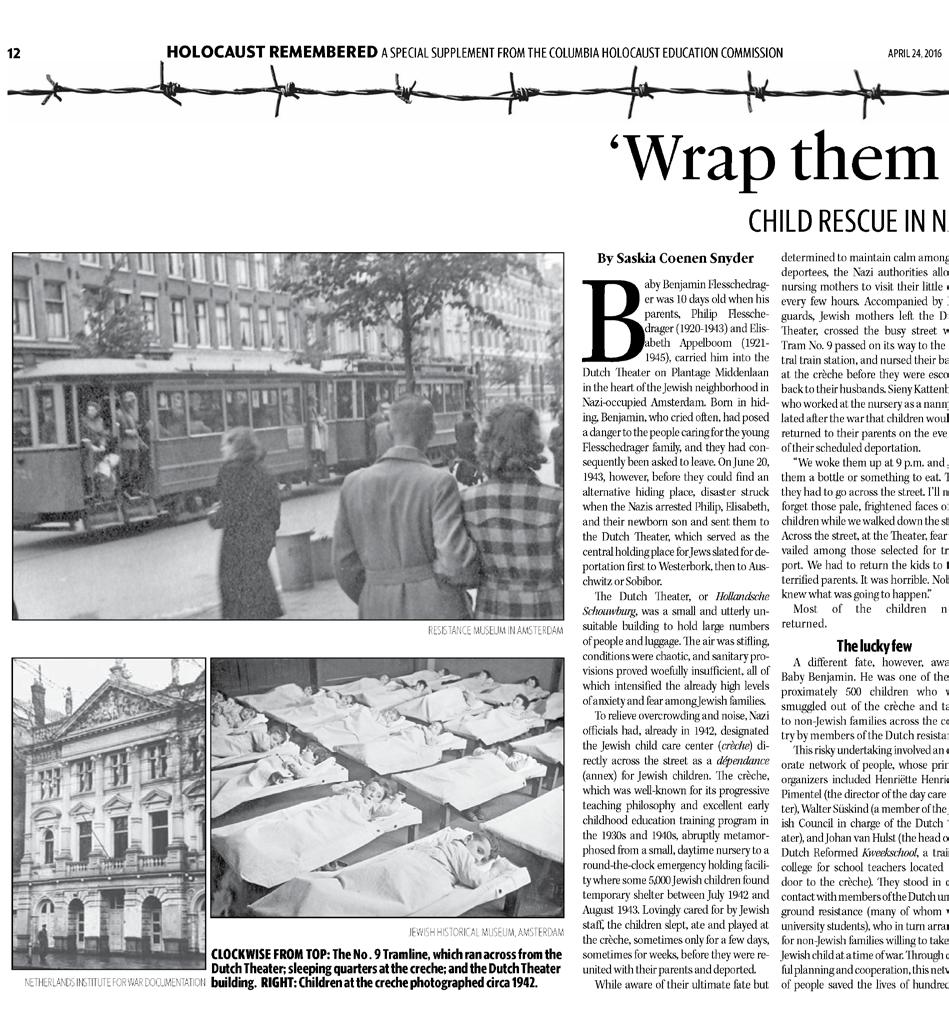
102
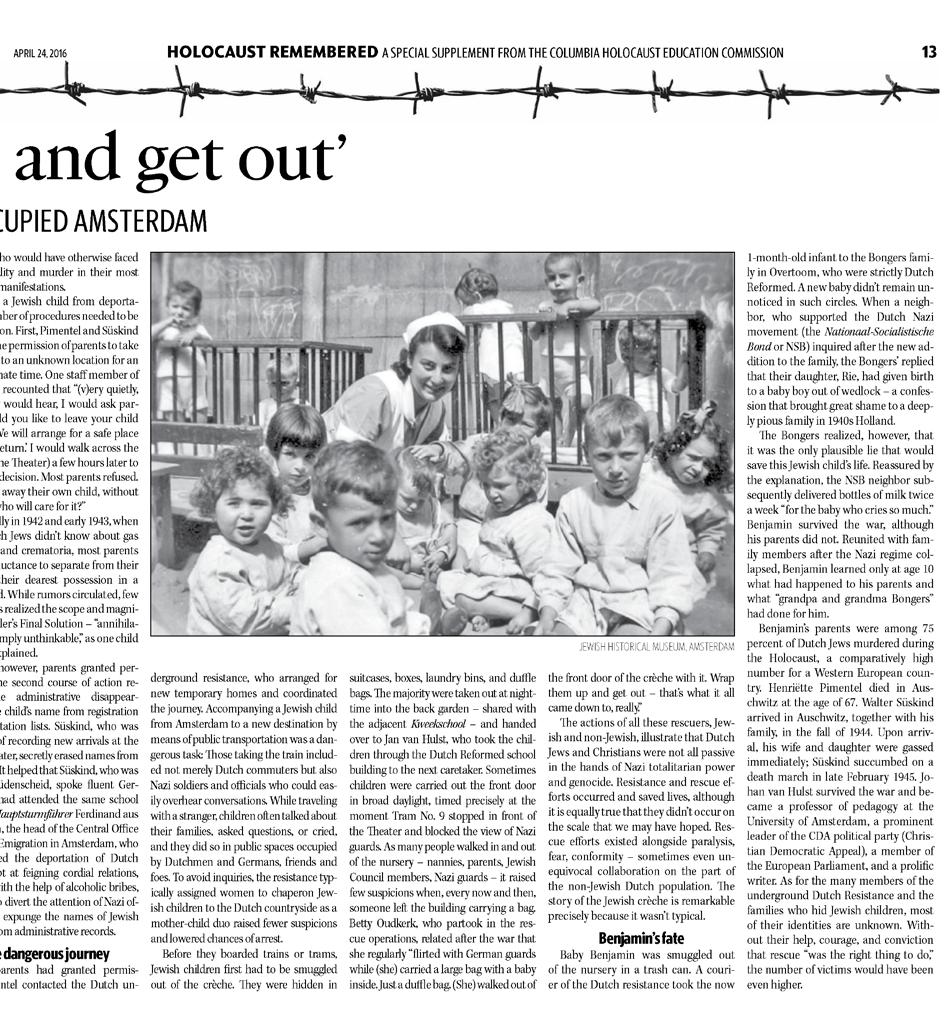
103
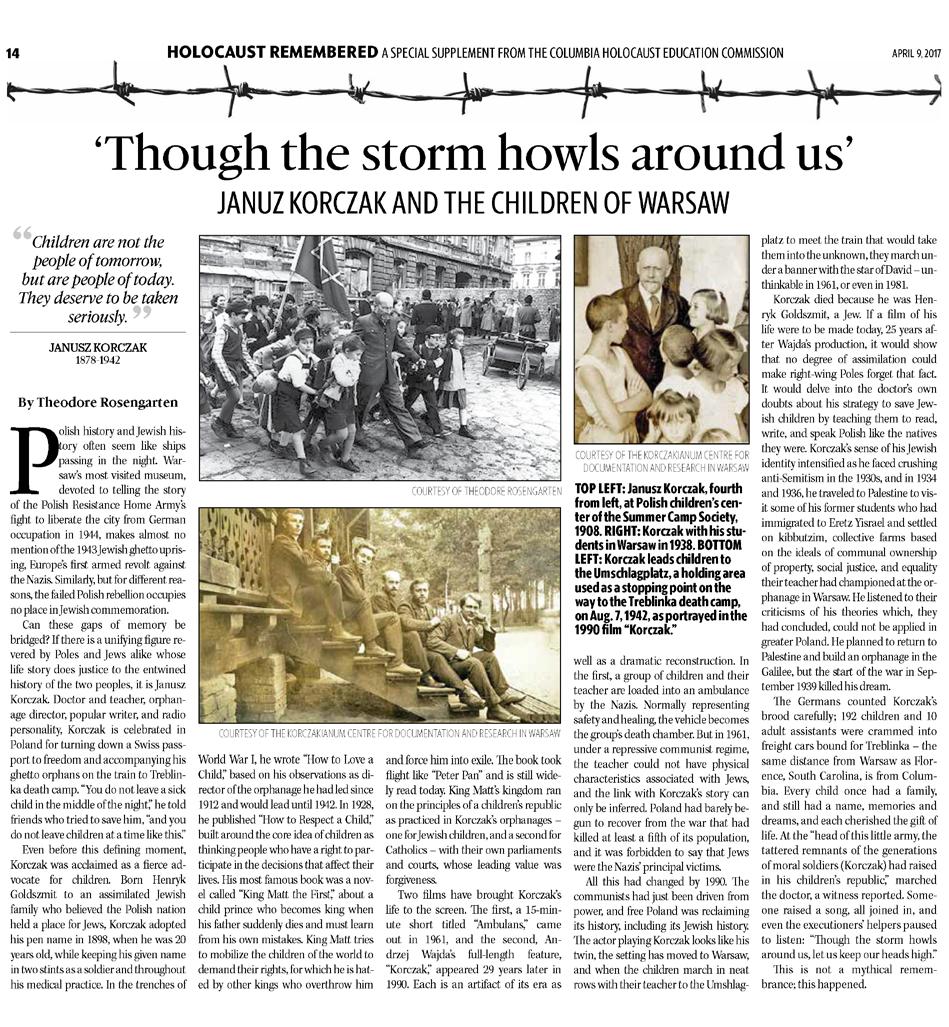
104
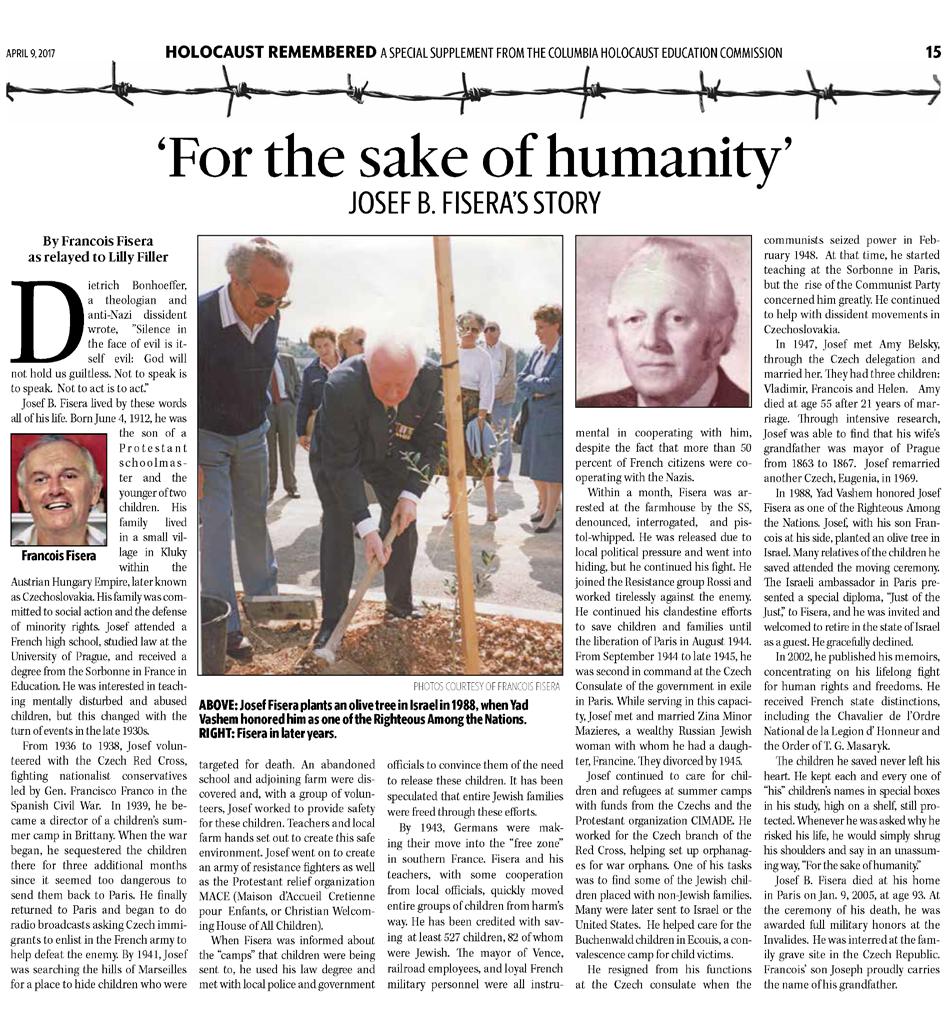
105
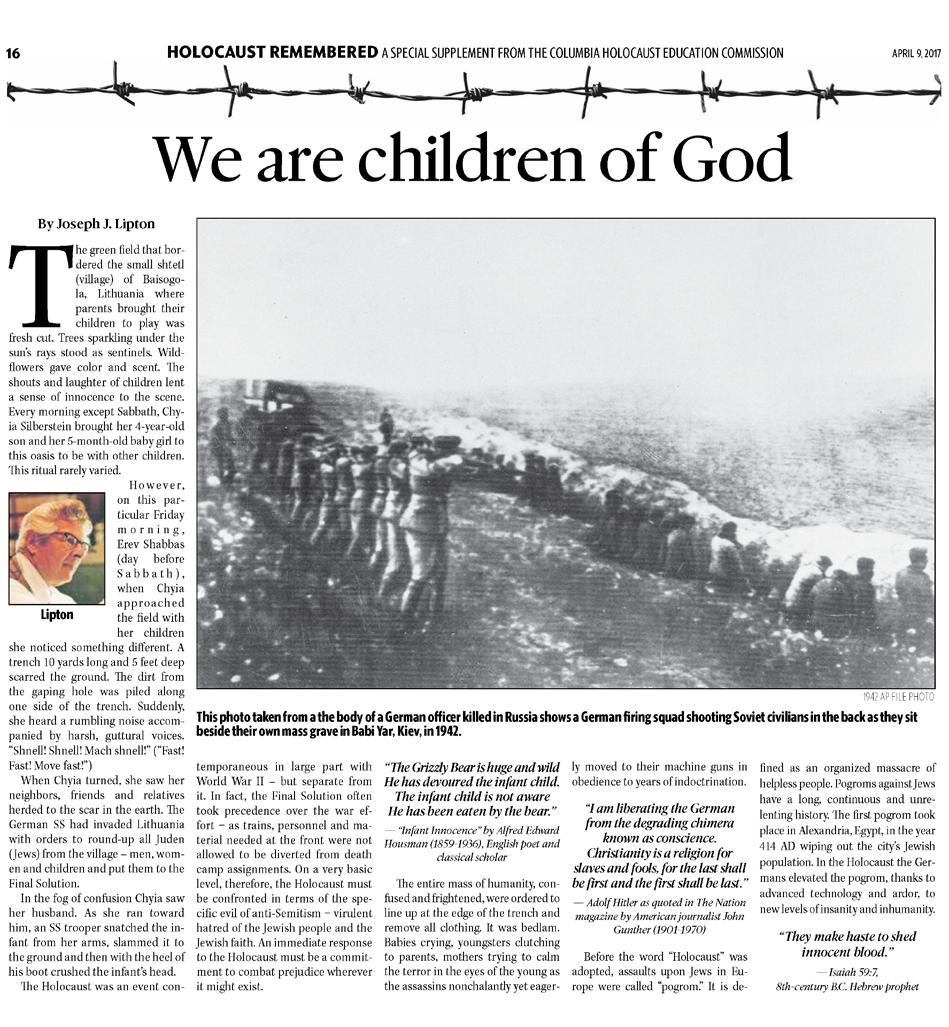
106
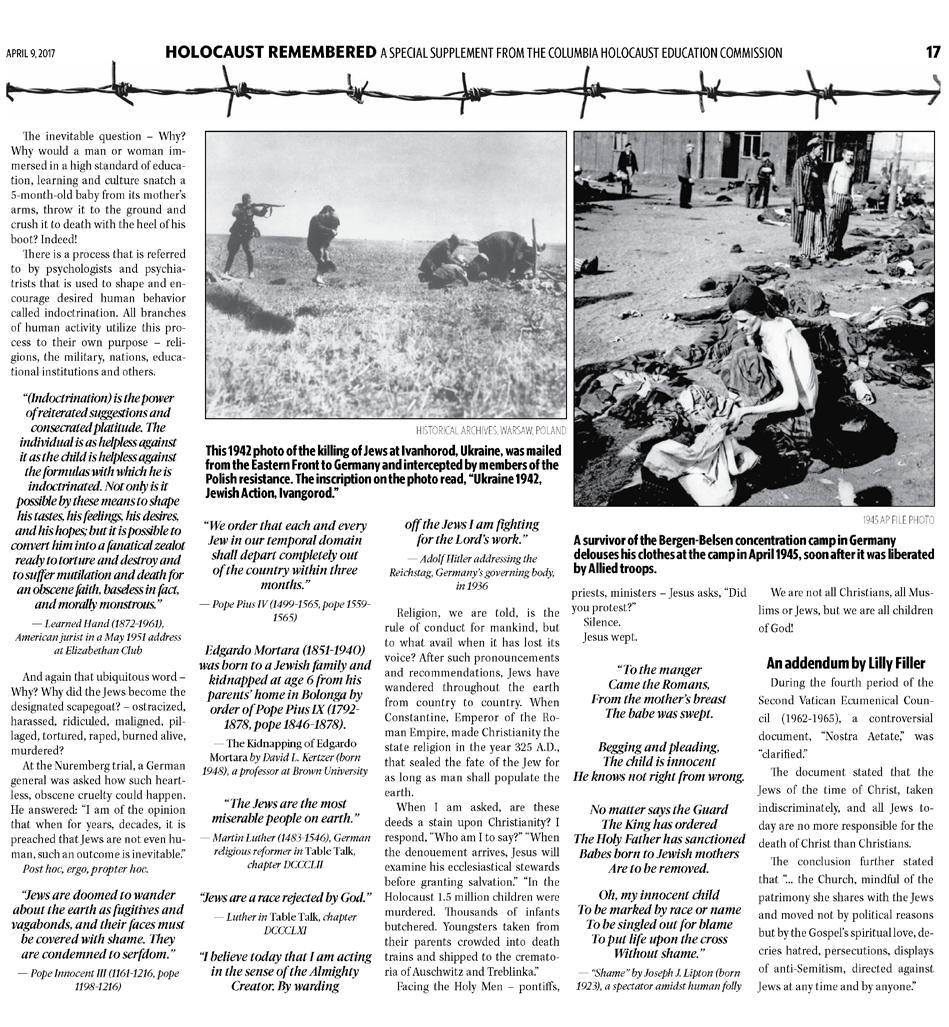
107
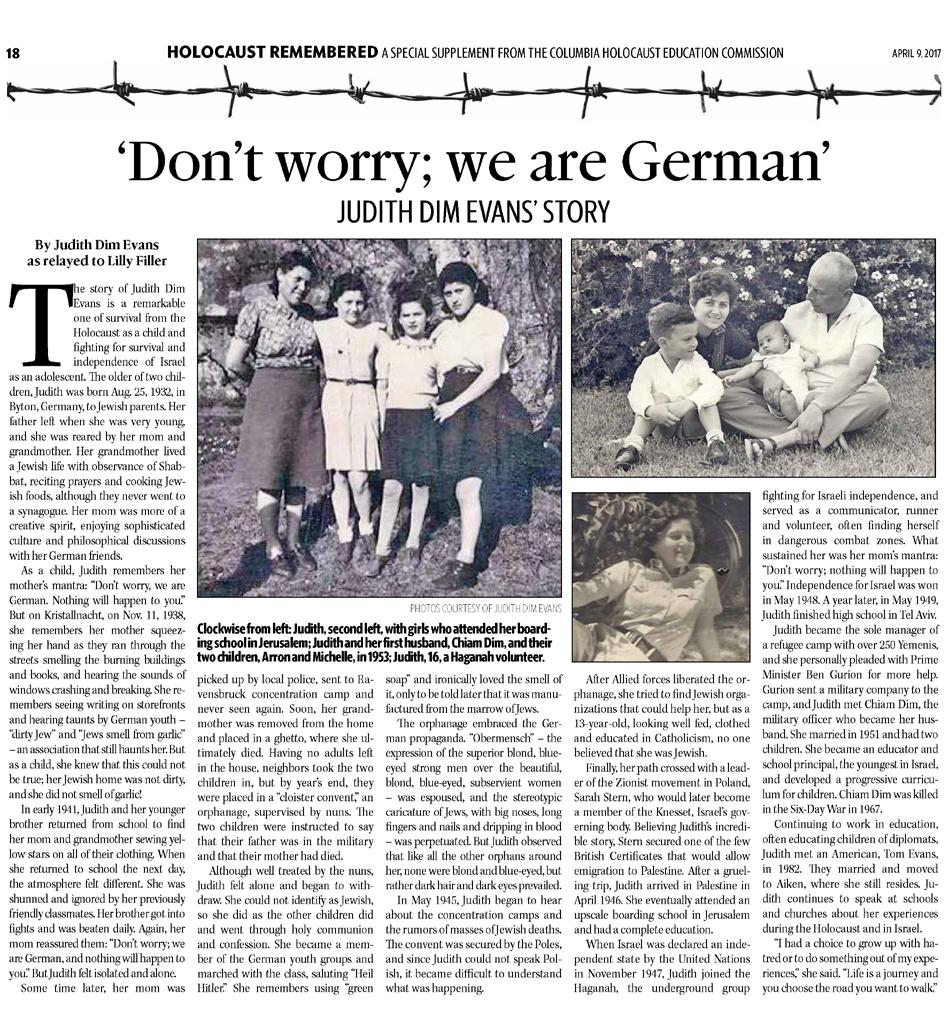
108

109
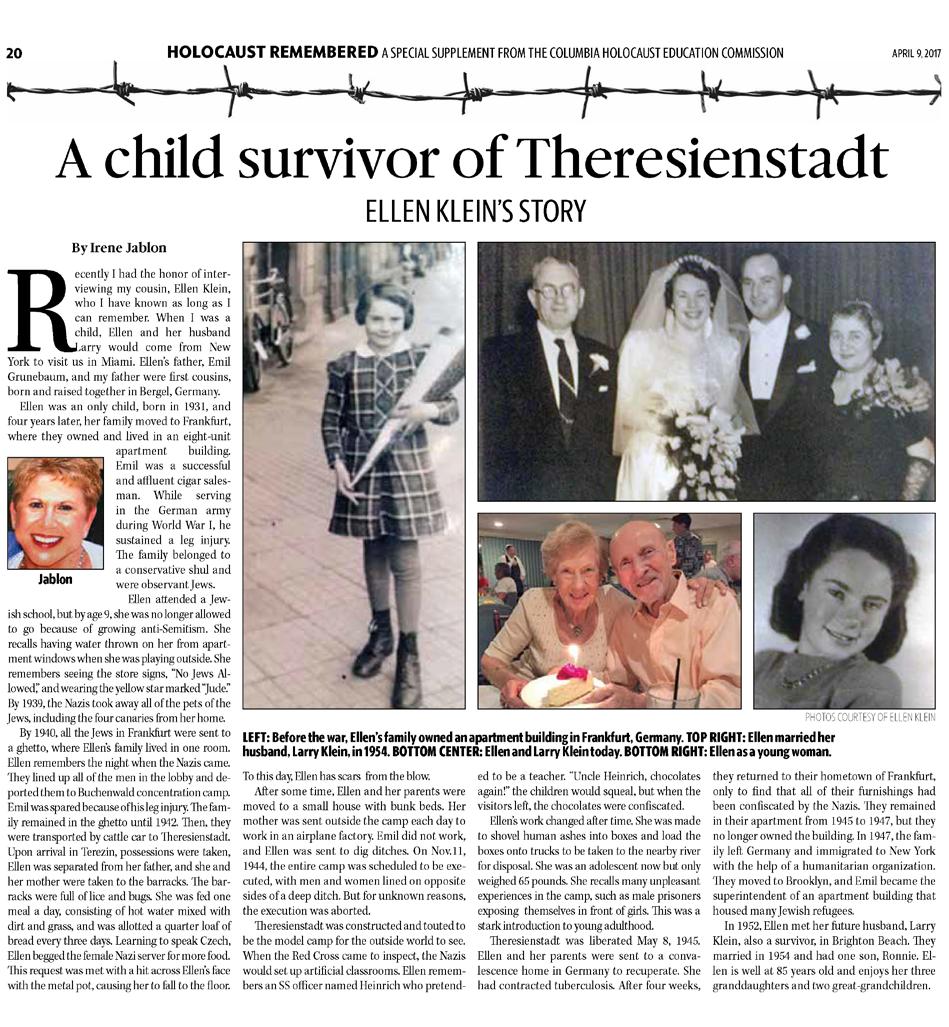
110

111
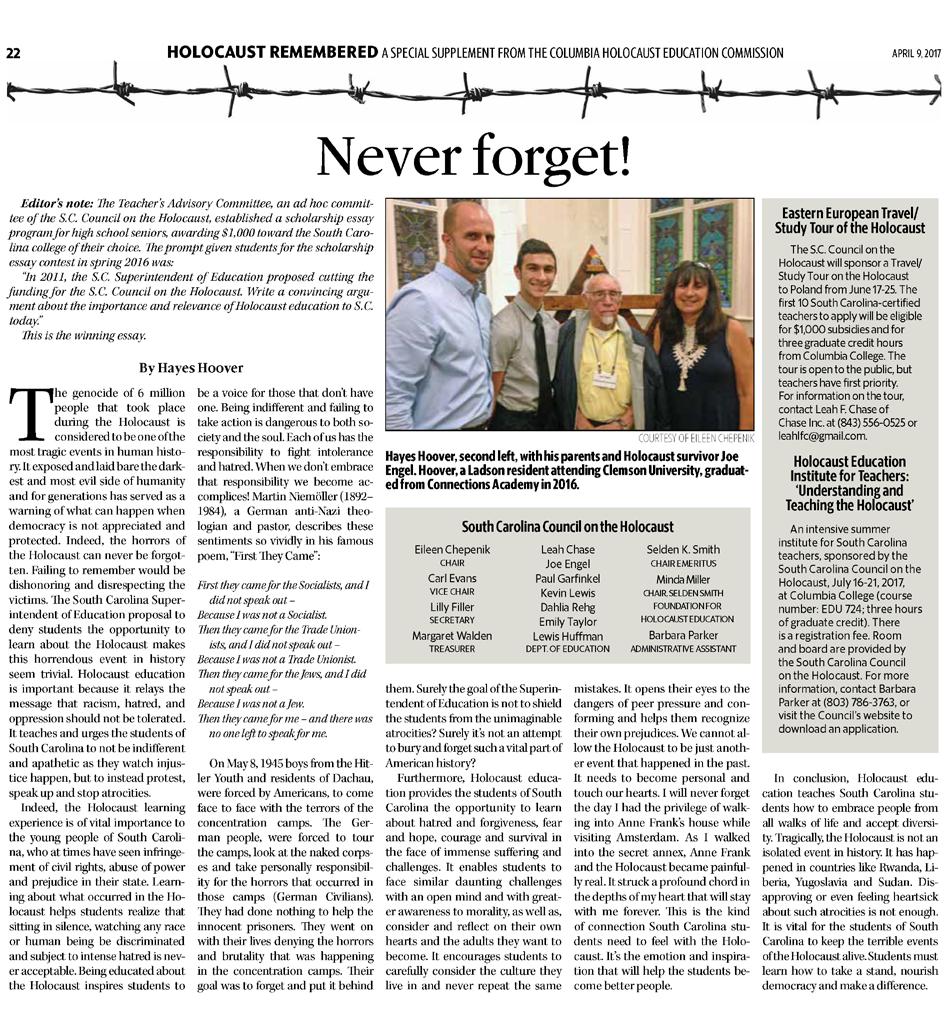
112
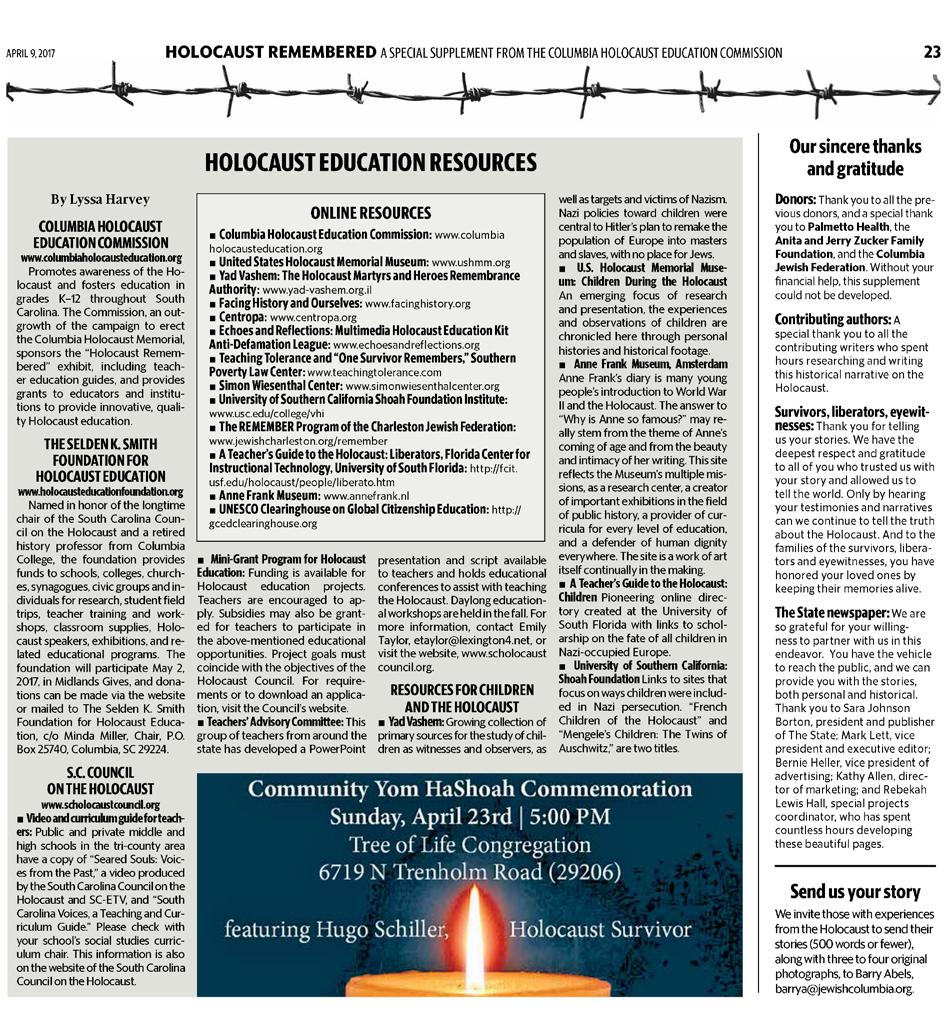
113
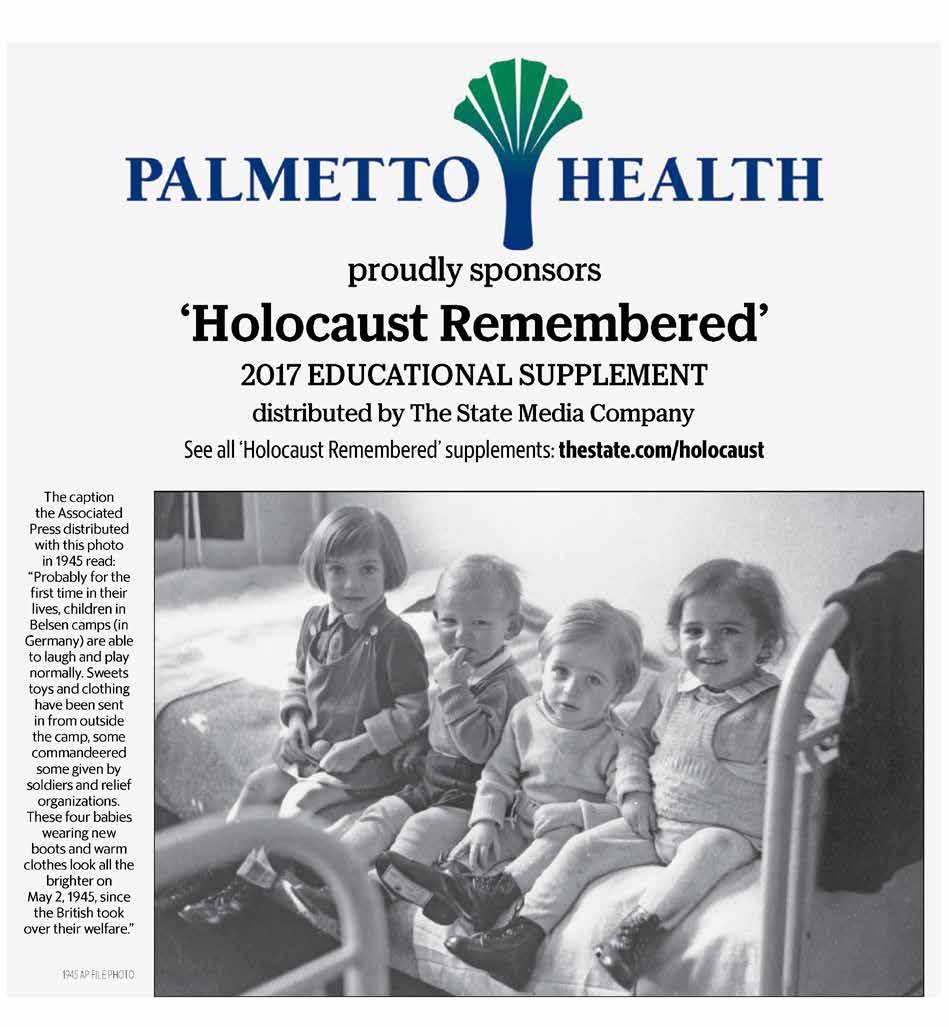
114
115
“At the end of the day, antisemitism is the binding form of hatred that pulls together a wide range of extremists. That is why we all, Jewish and non-Jewish, must commit to the fight against antisemitism.”
— Dr. Robert Williams Director of University of Southern California Shoah Foundation
116
2018

117
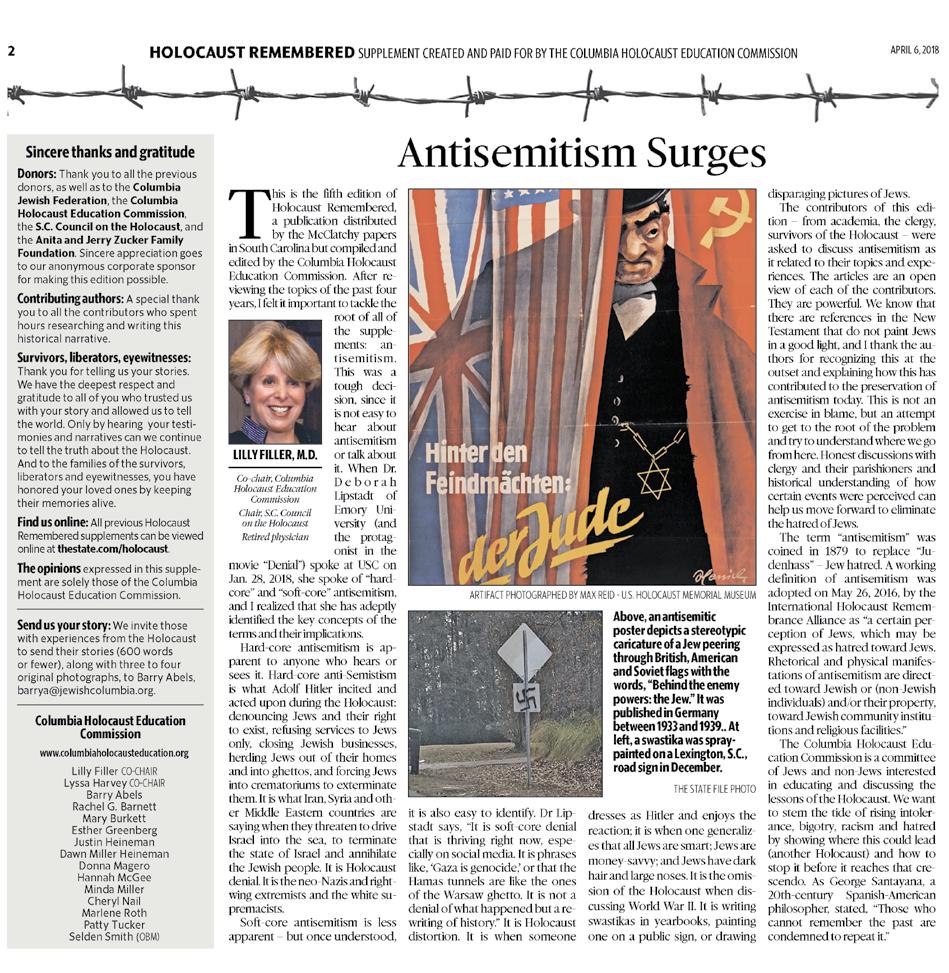
118
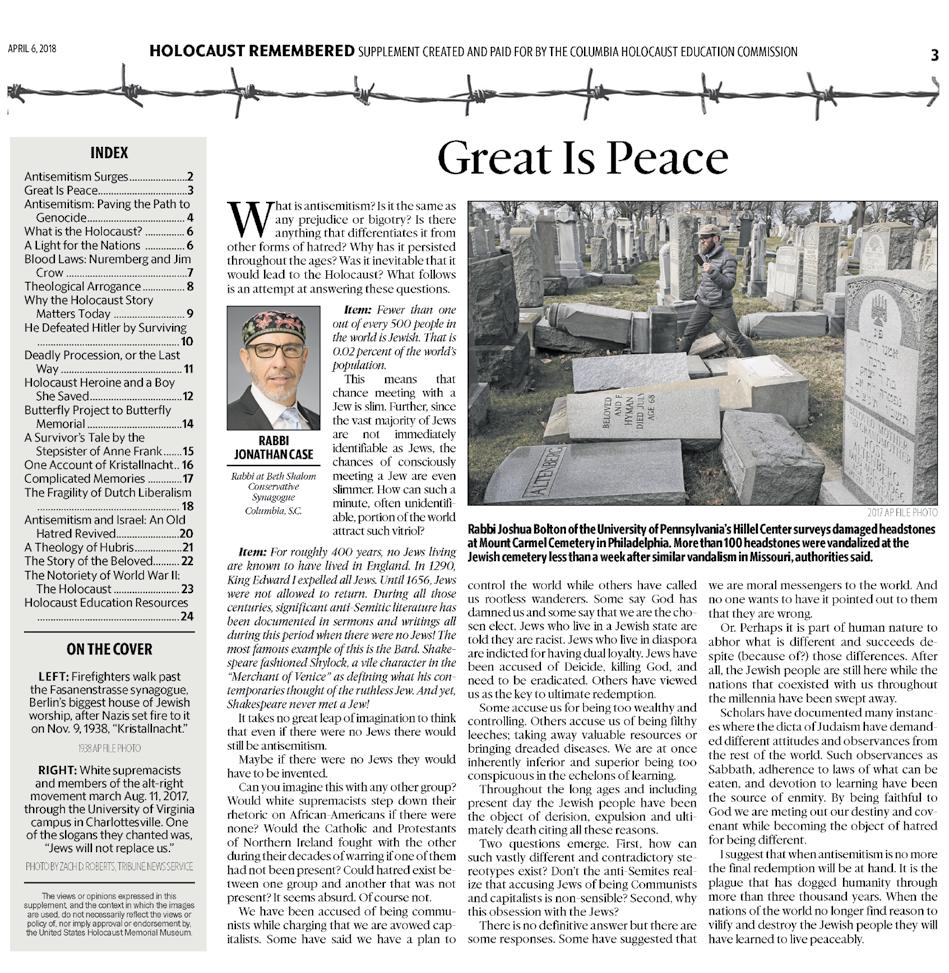
119
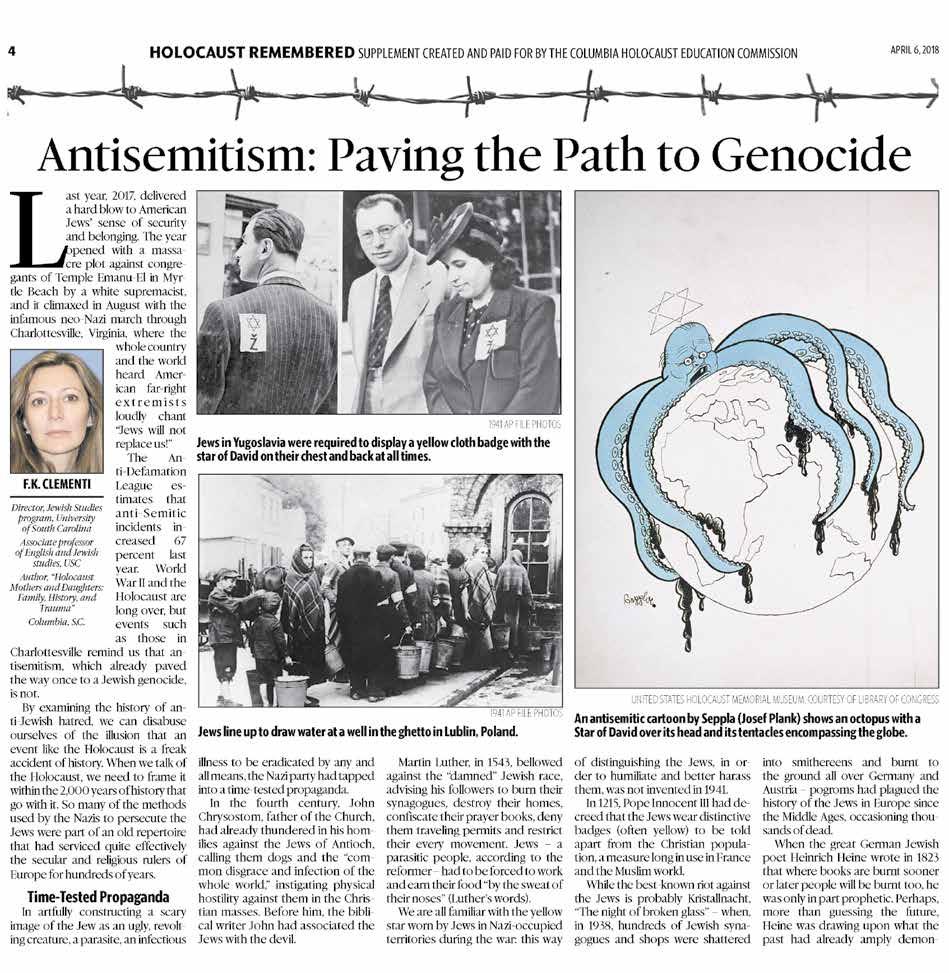
120
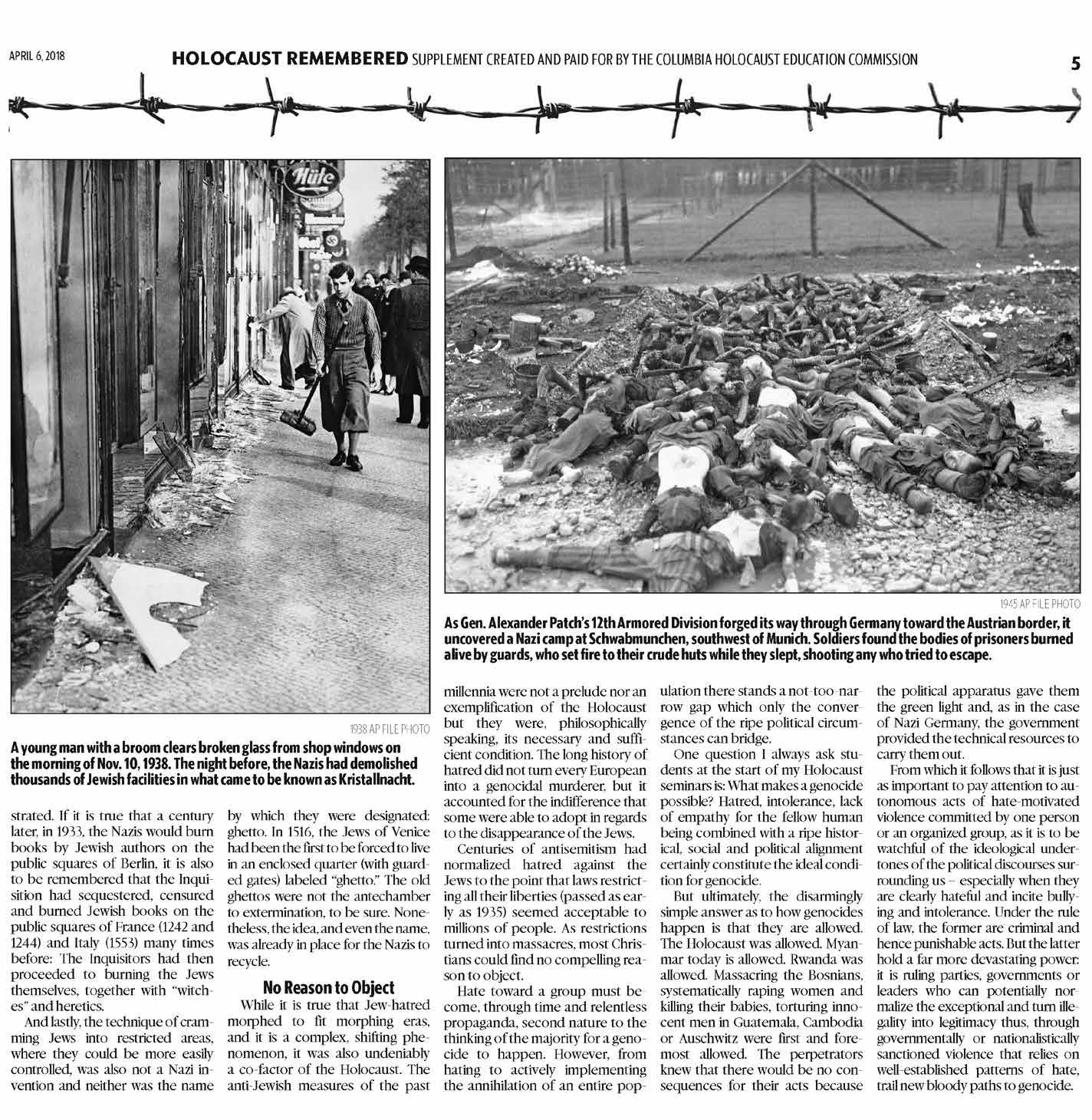
121

122
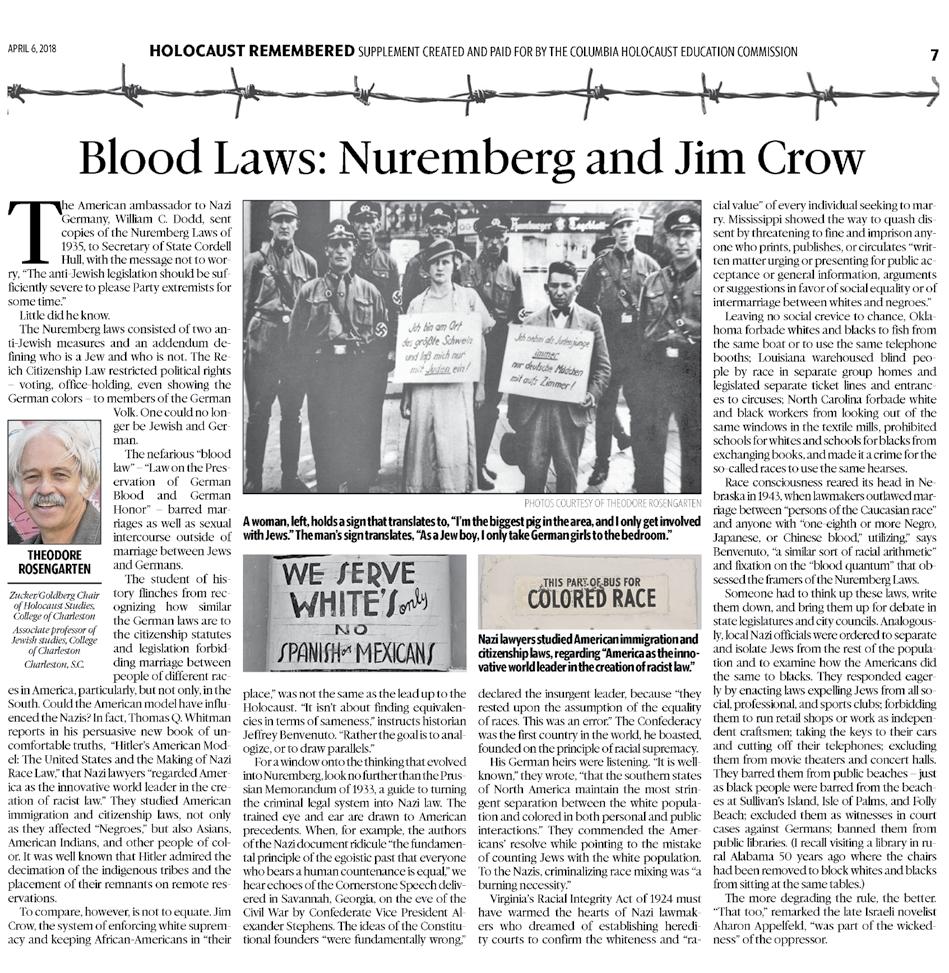
123
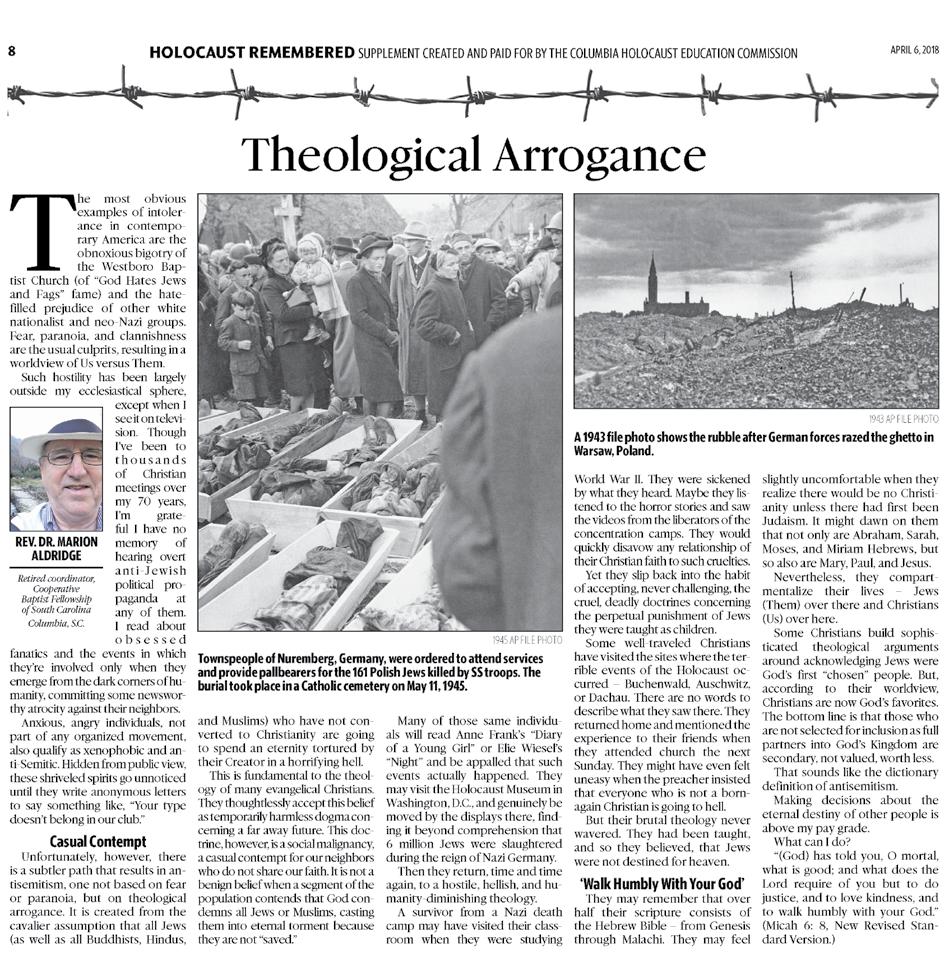
124
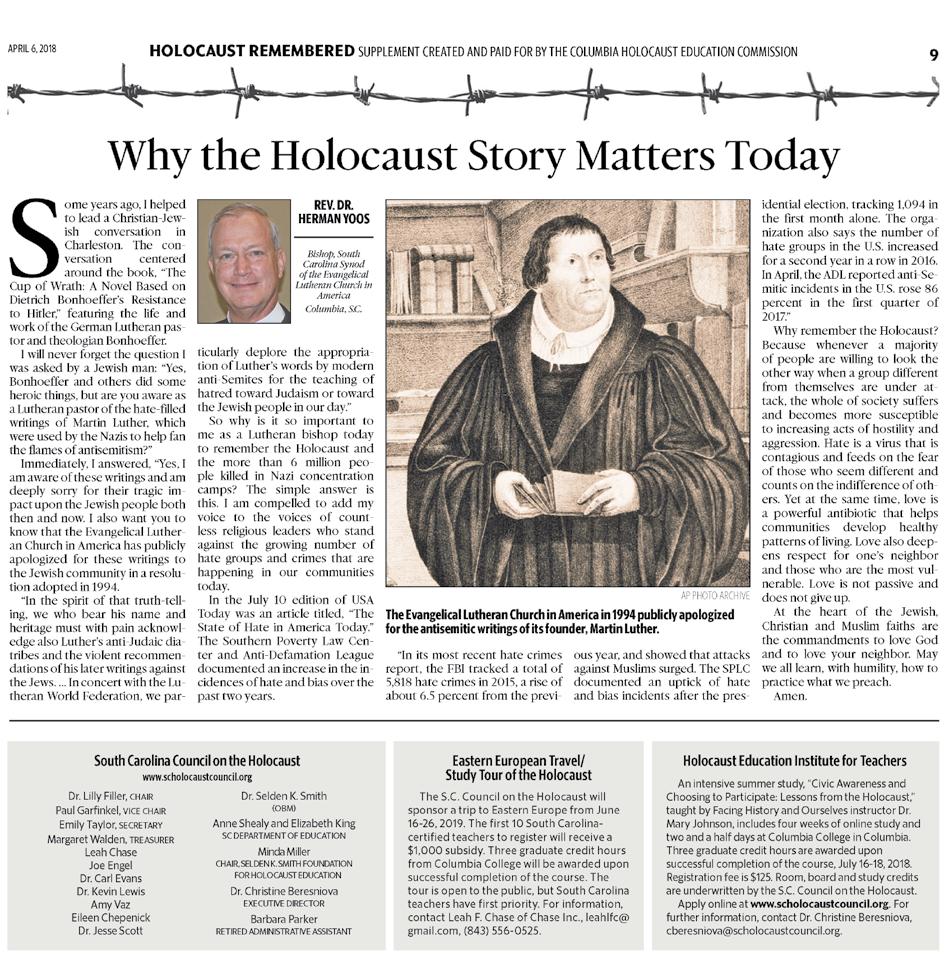
125
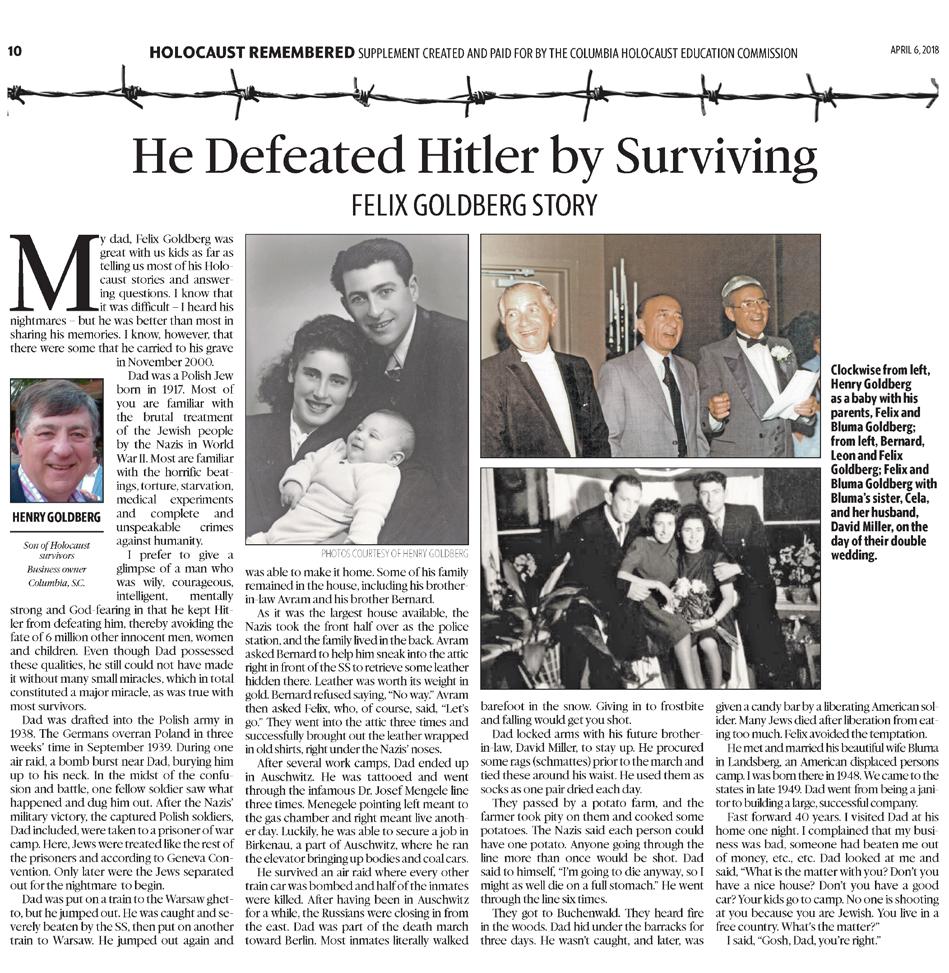
126
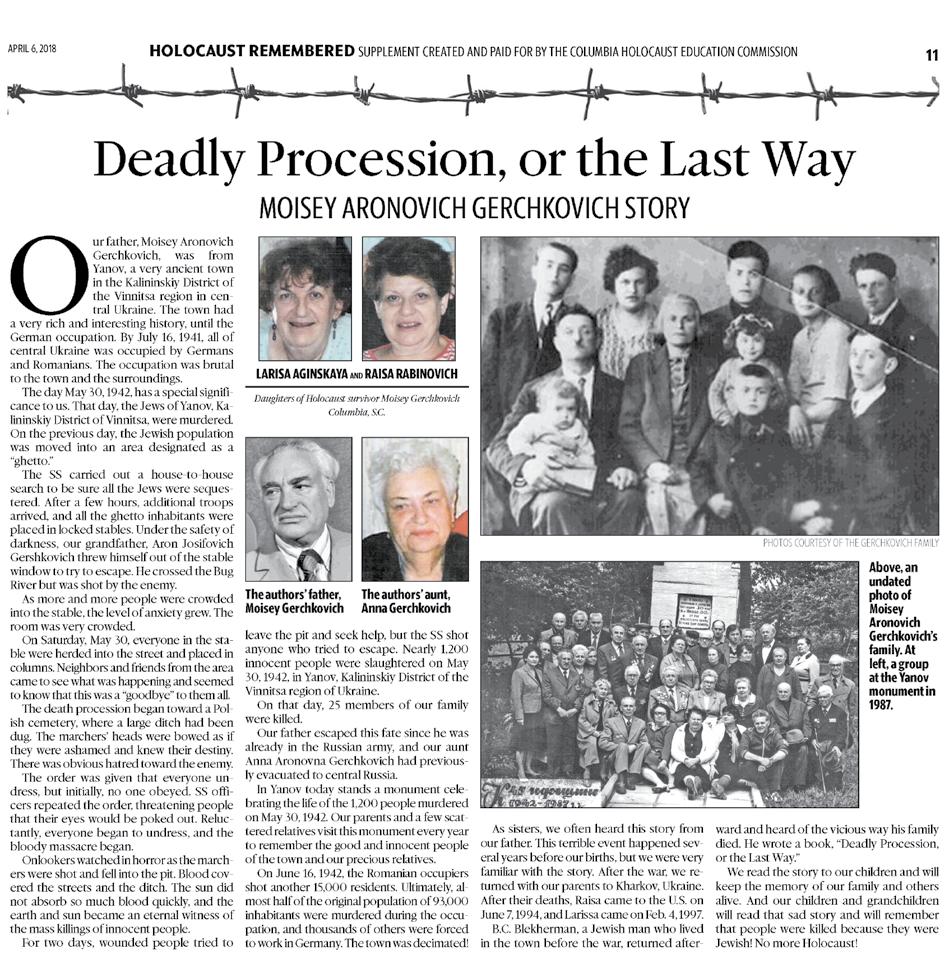
127

128
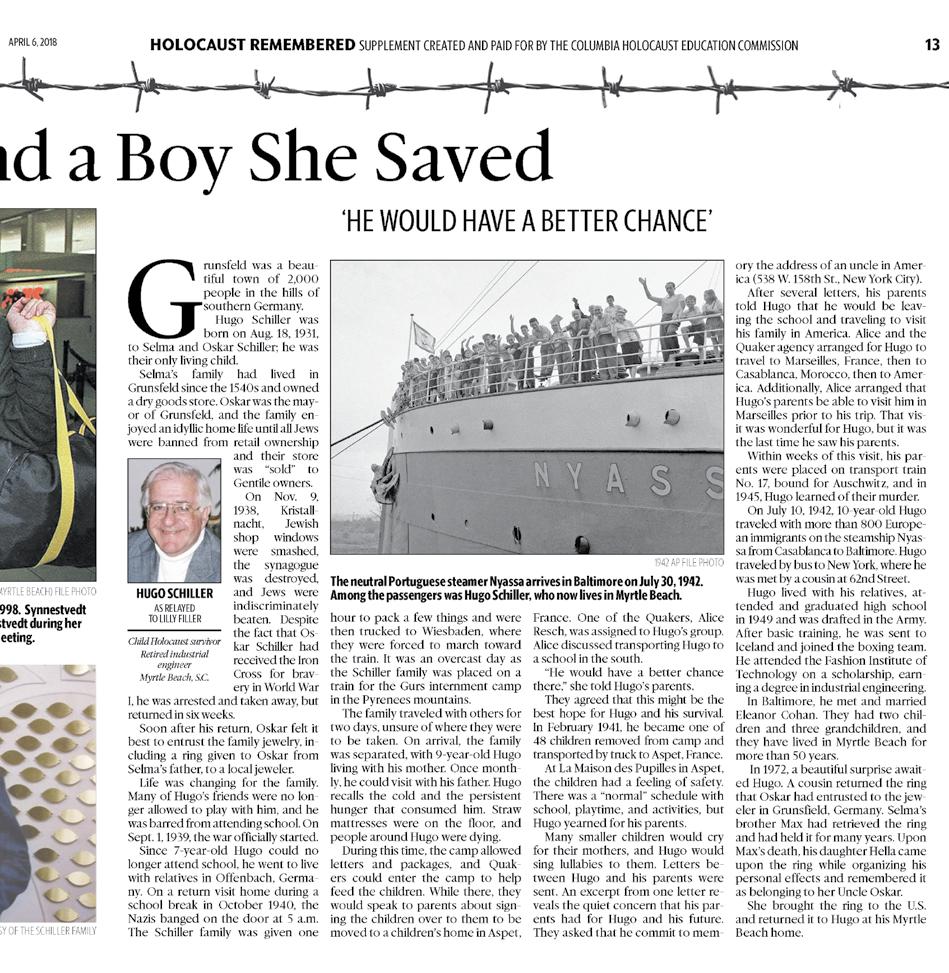
129
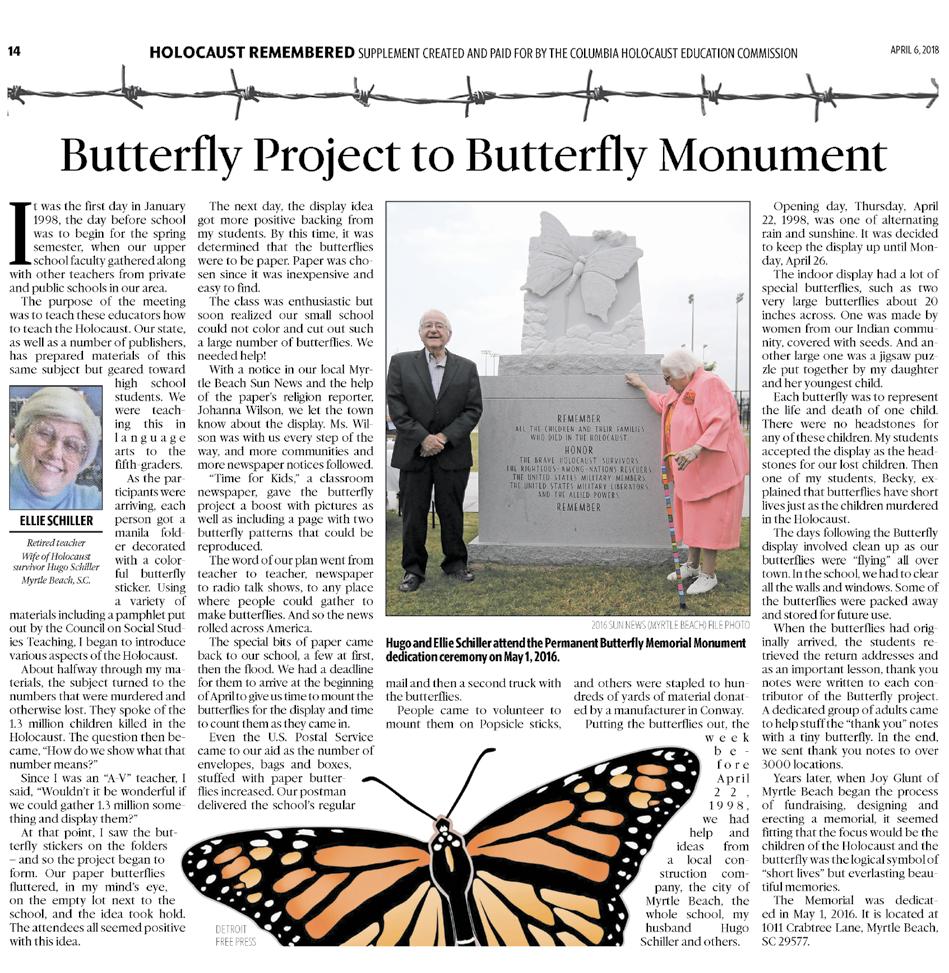
130
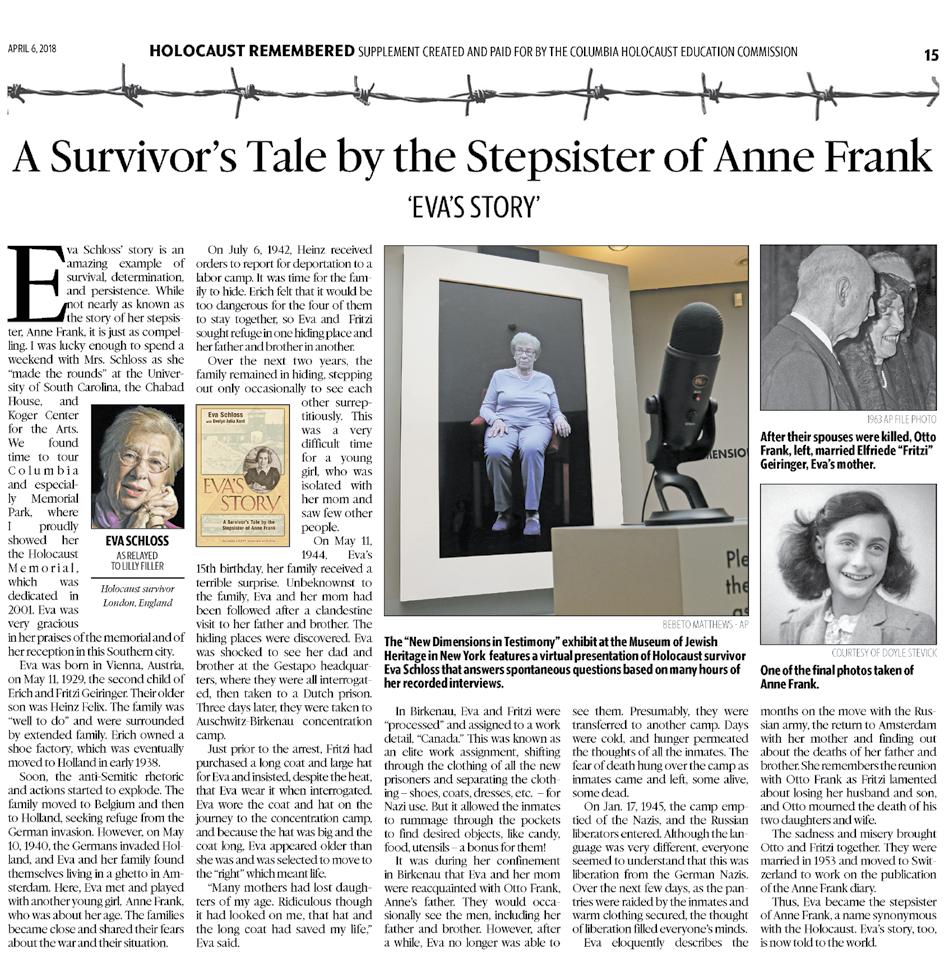
131
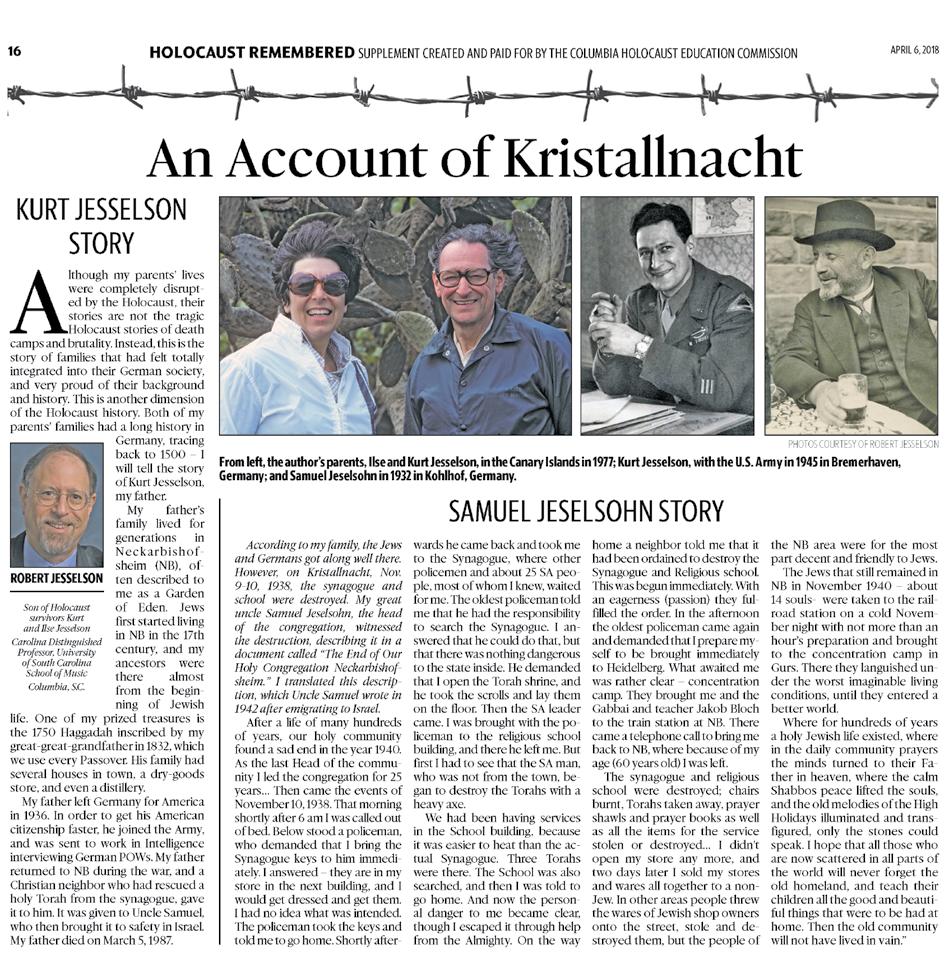
132
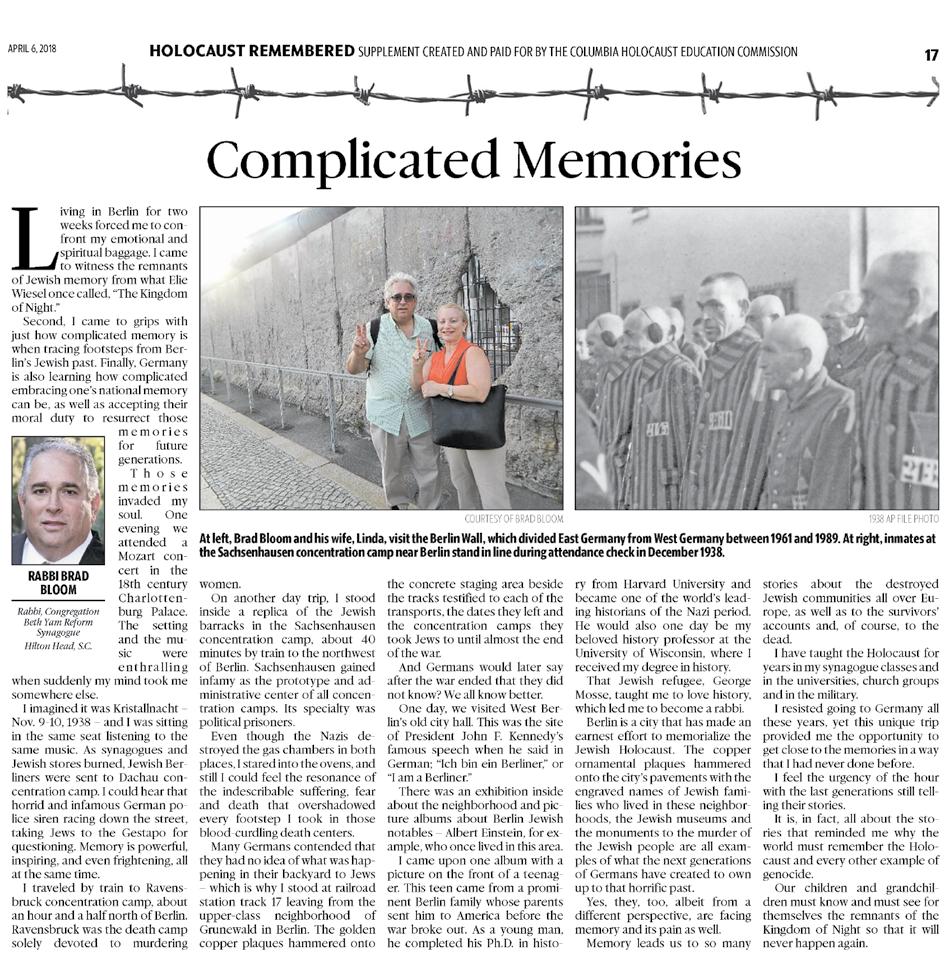
133
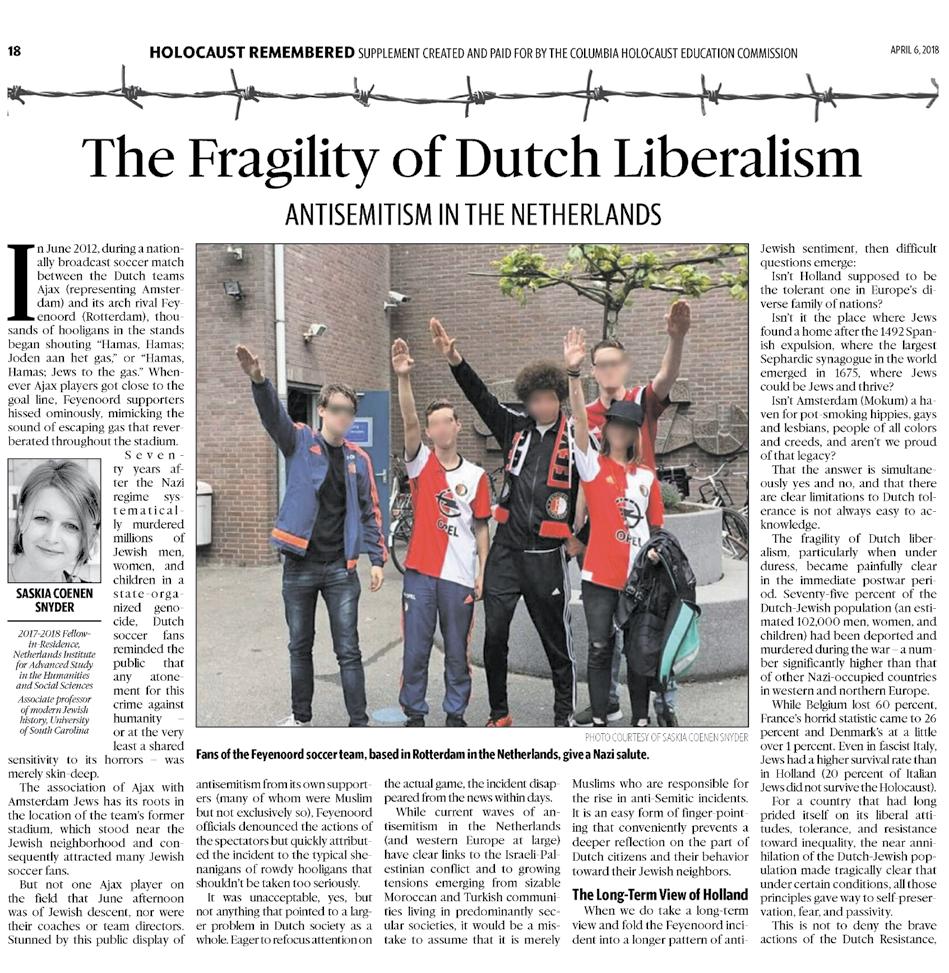
134
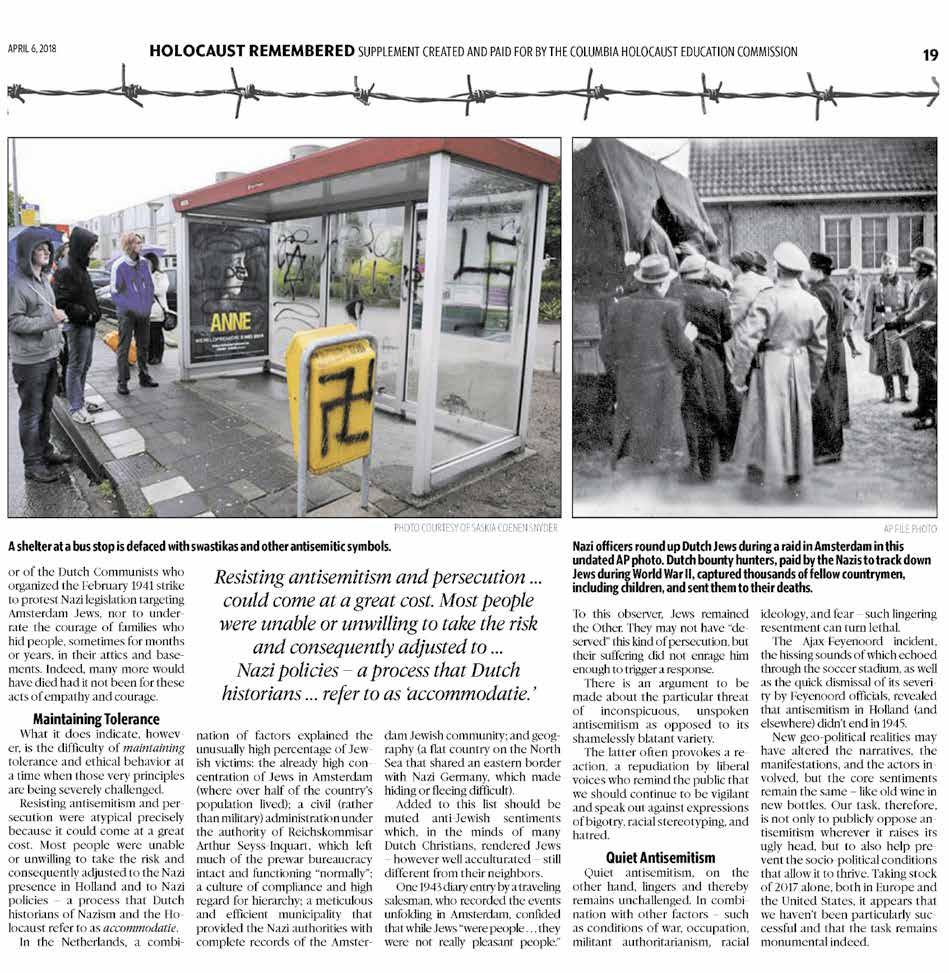
135

136
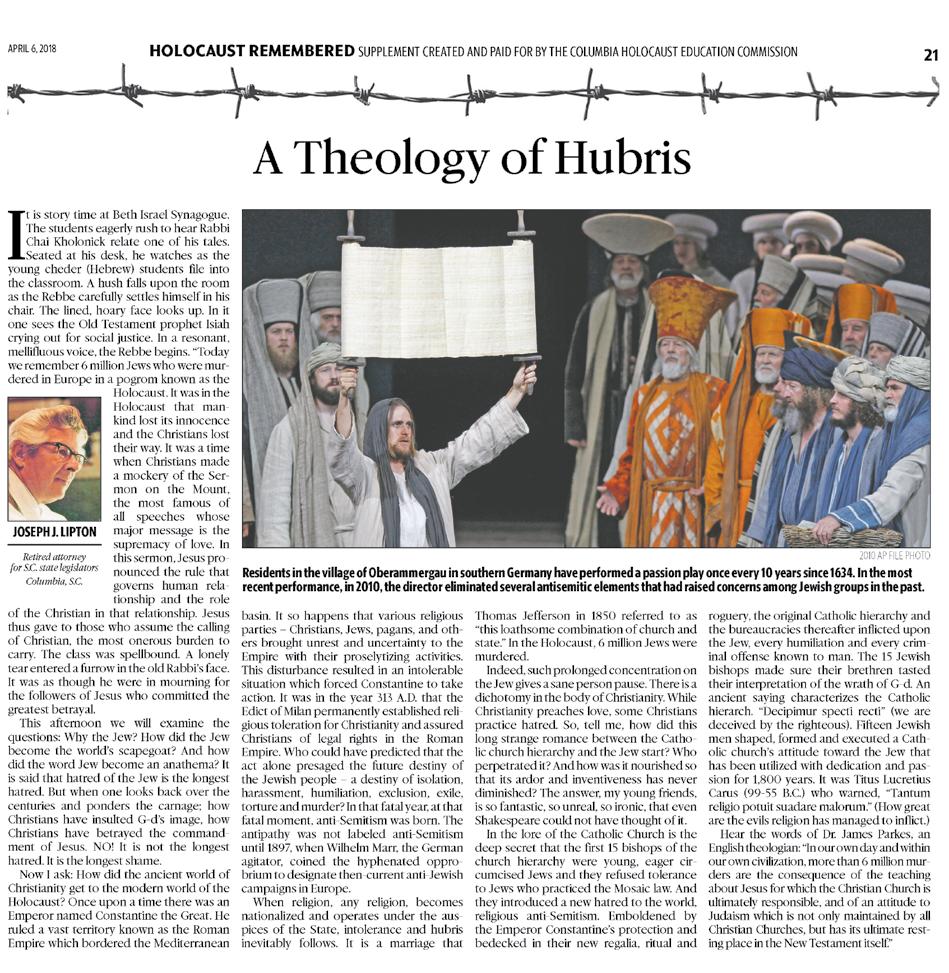
137

138
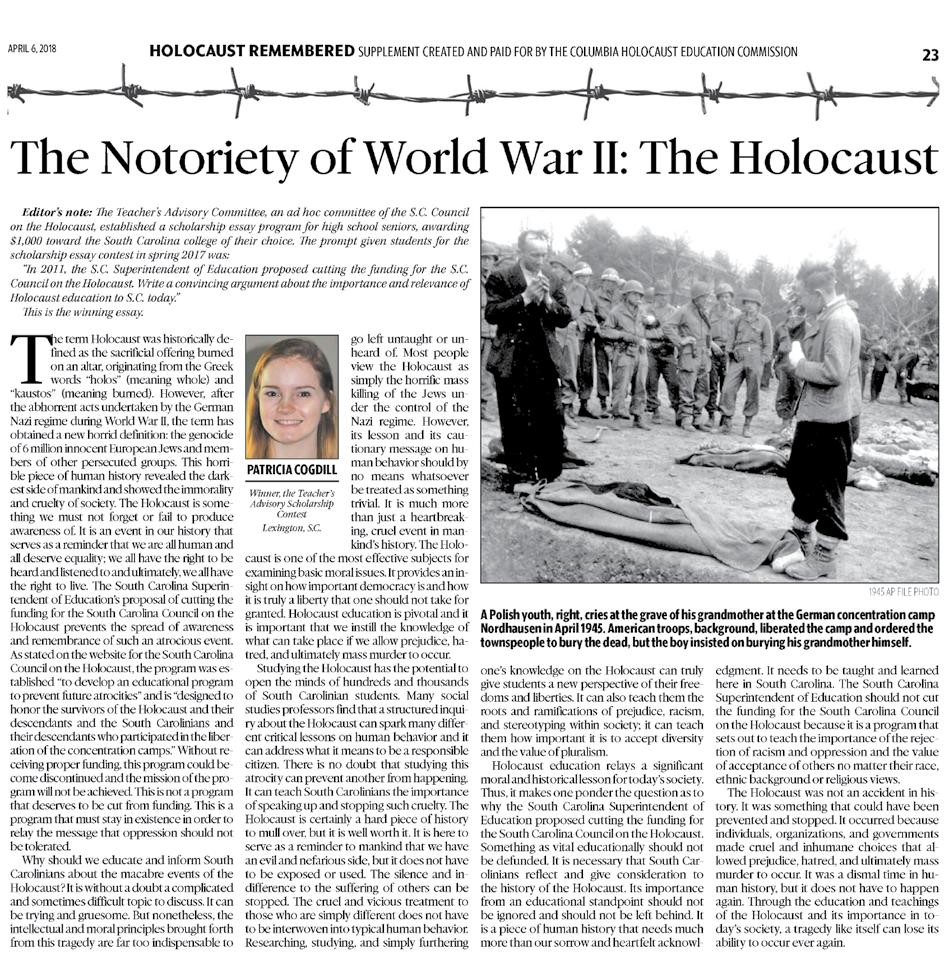
139
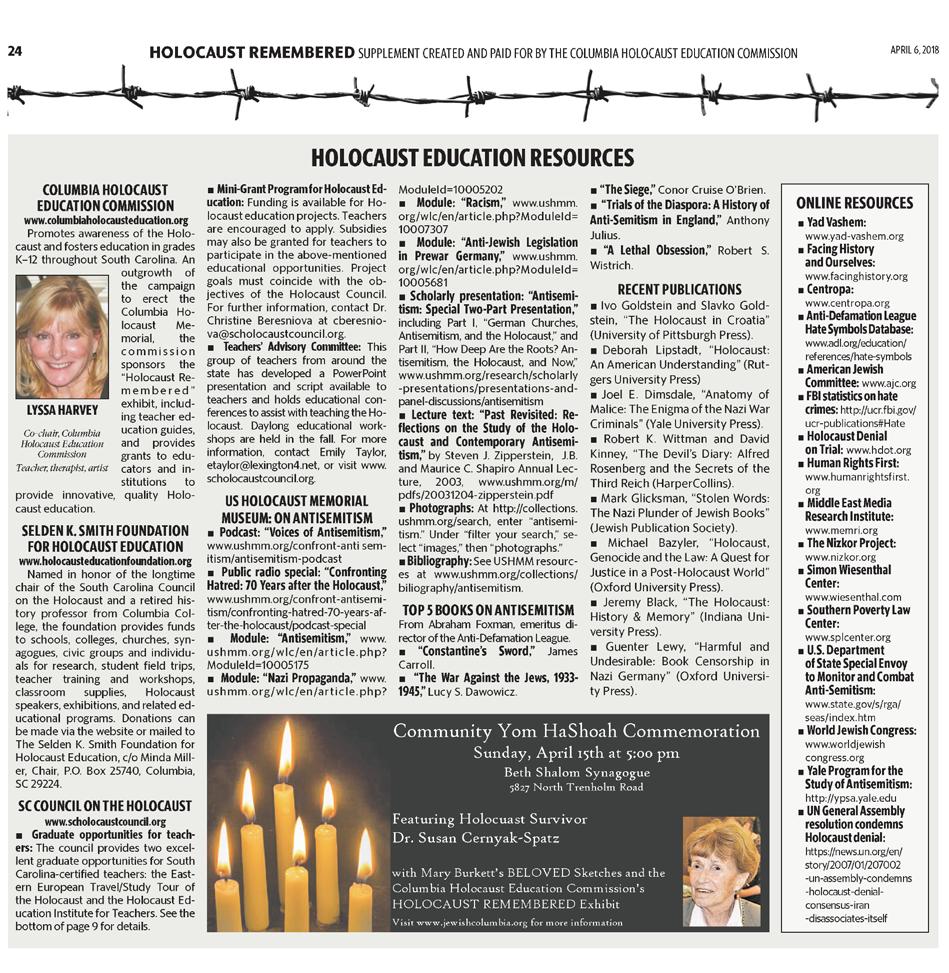
140
141
“When someone shows you who they are, believe them the first time.”
— Maya Angelou, 1997 Poet, memoirist, and civil rights activist
142
2019
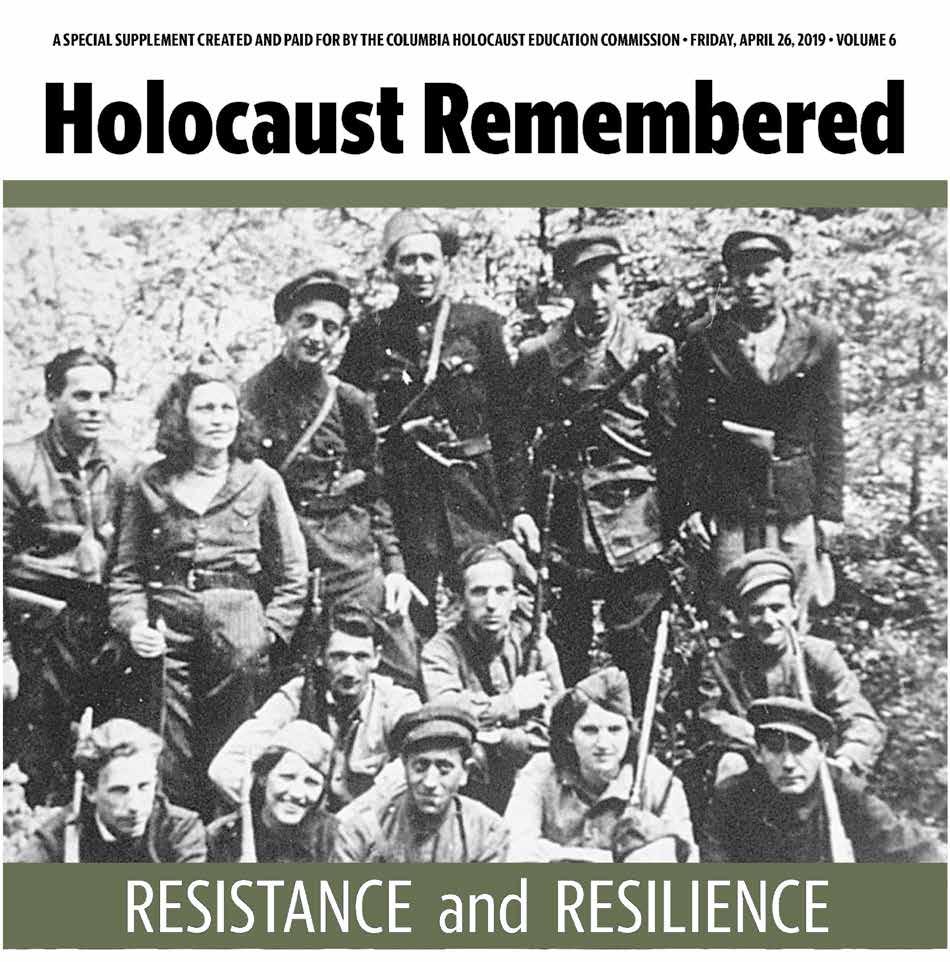
143
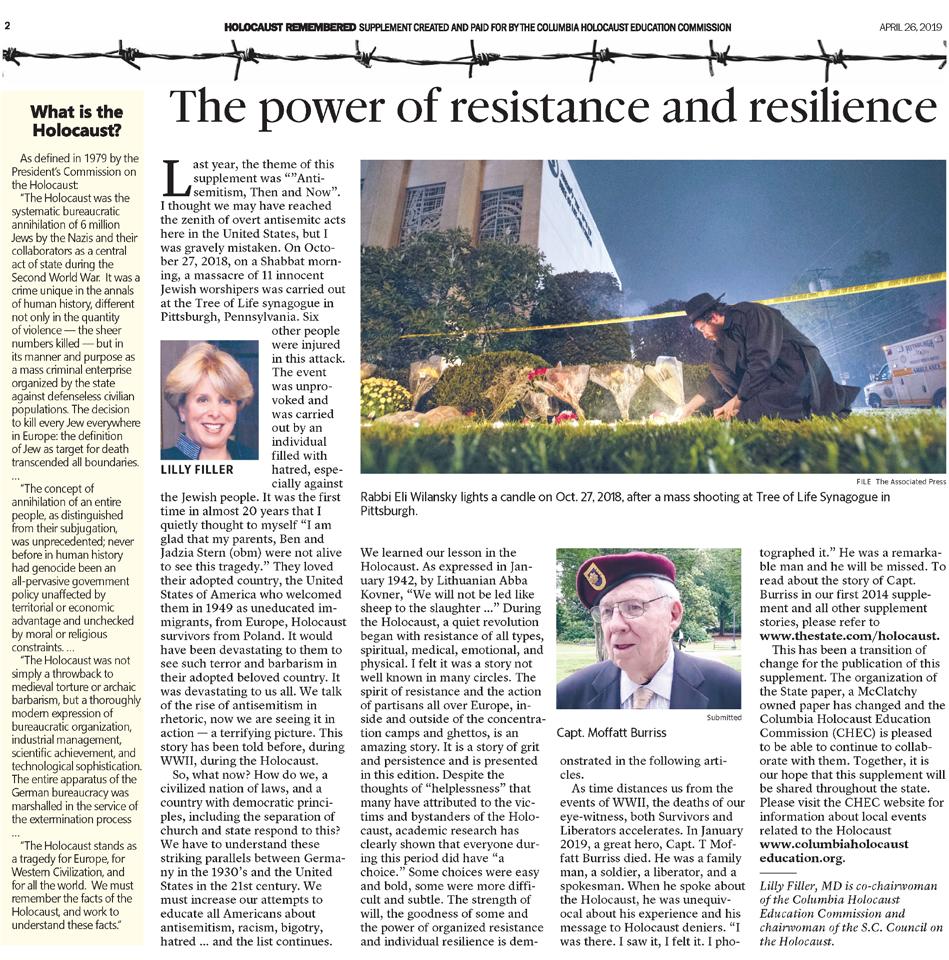
144
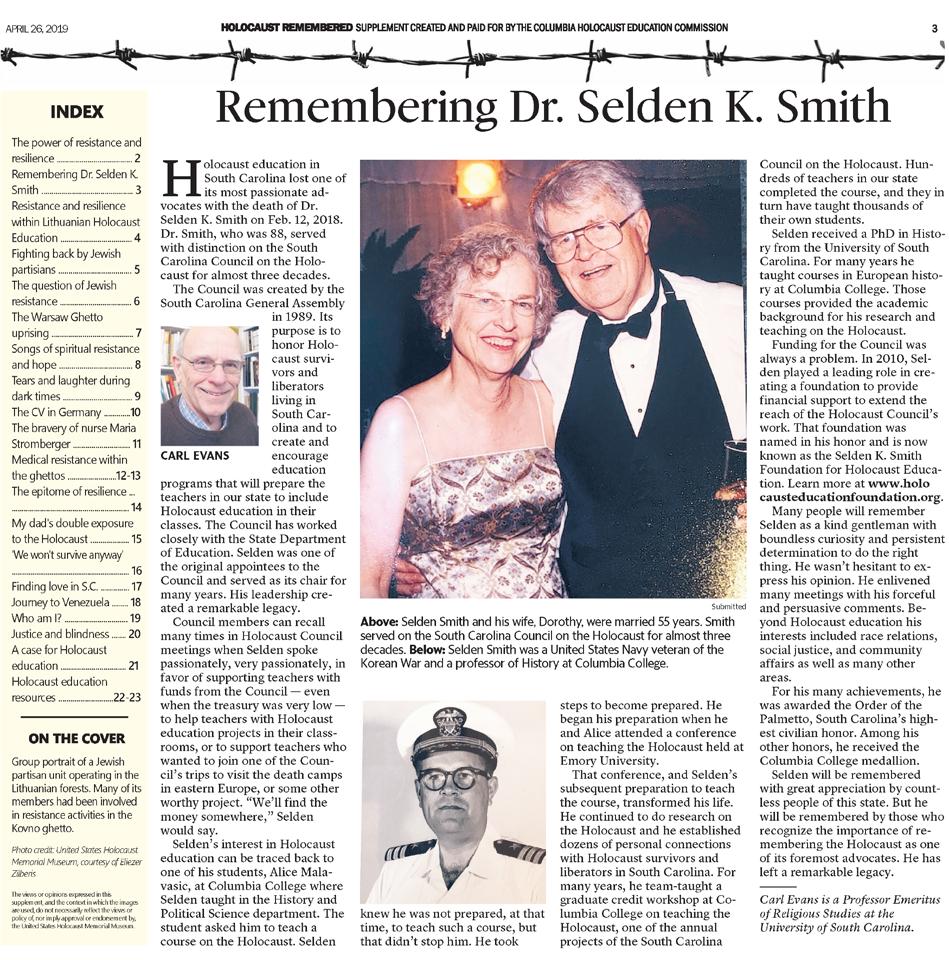
145
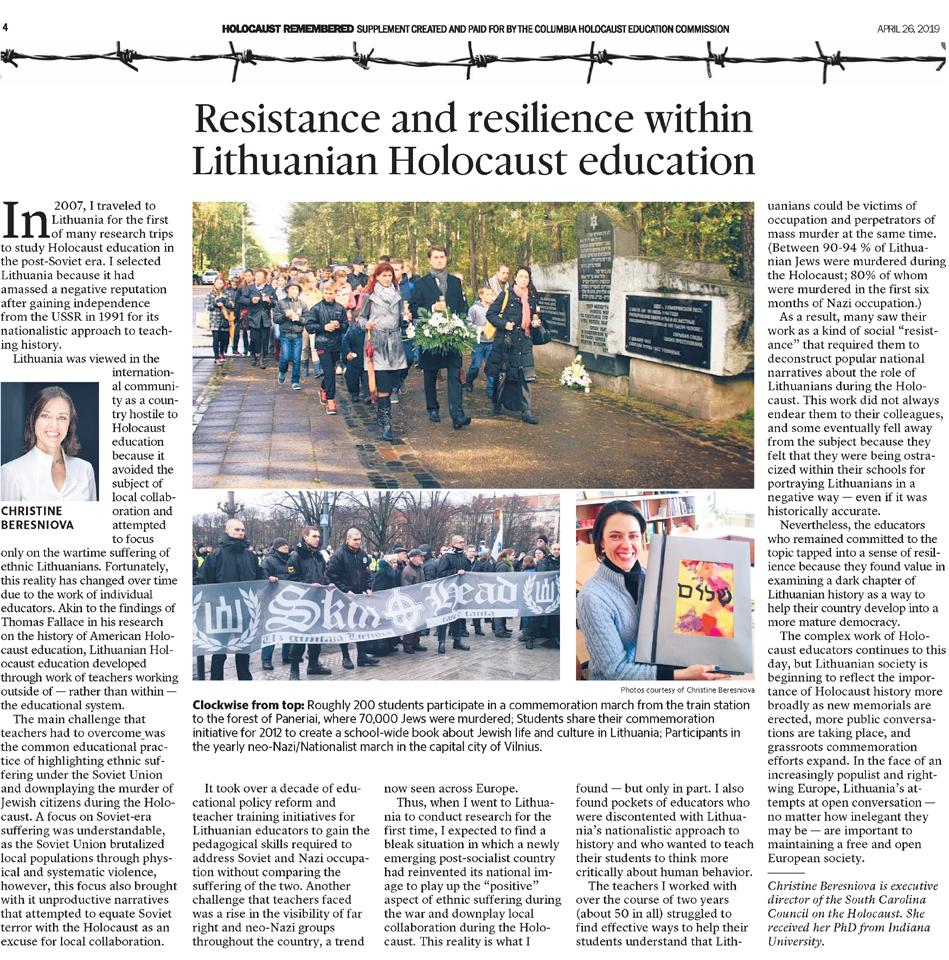
146
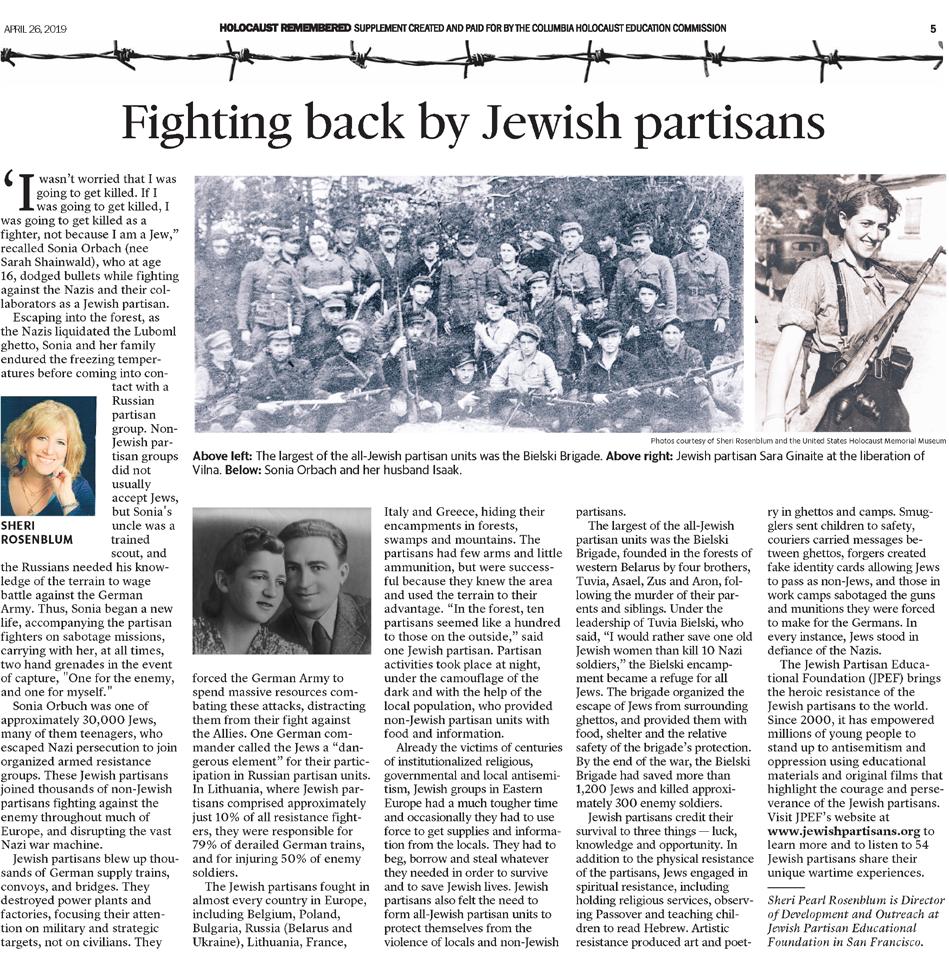
147
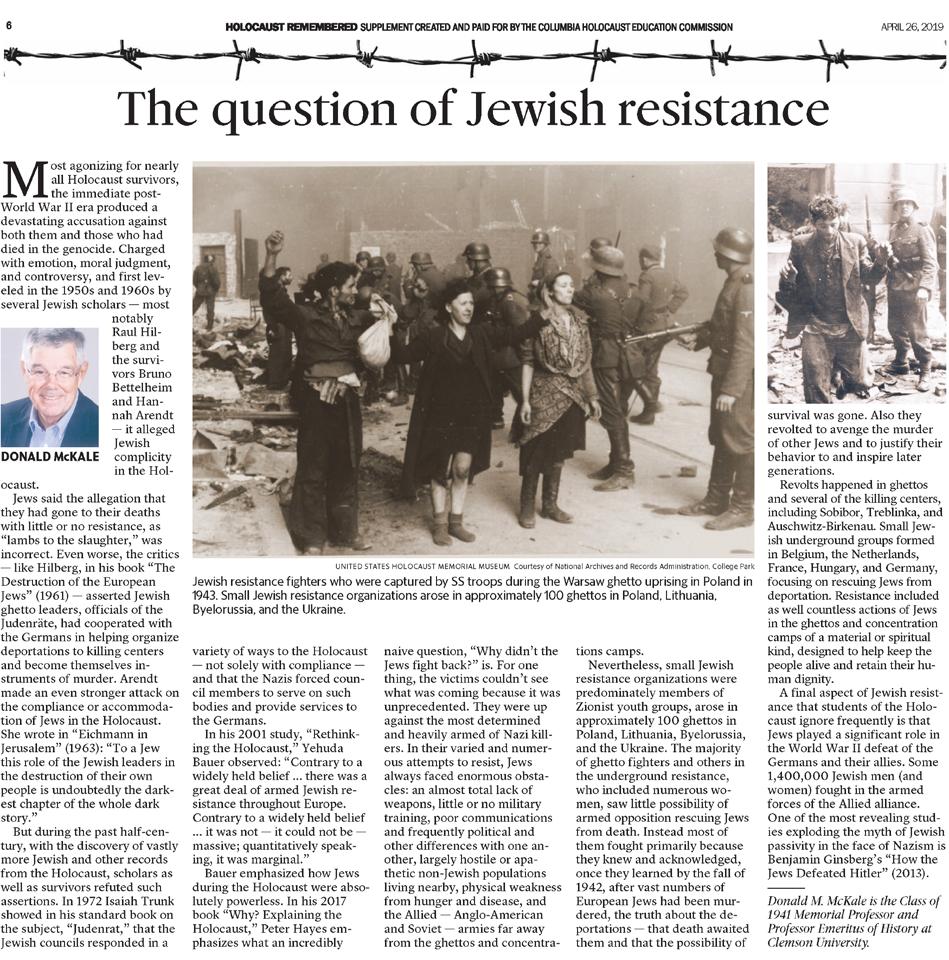
148

149
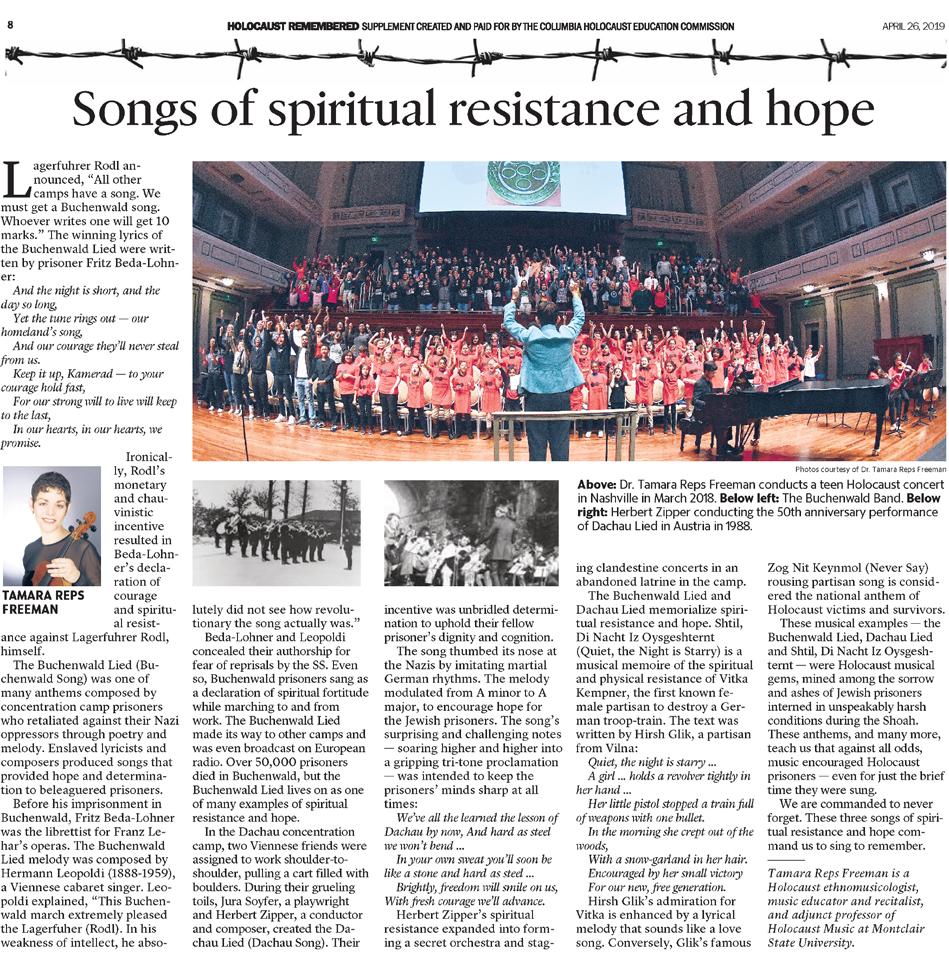
150
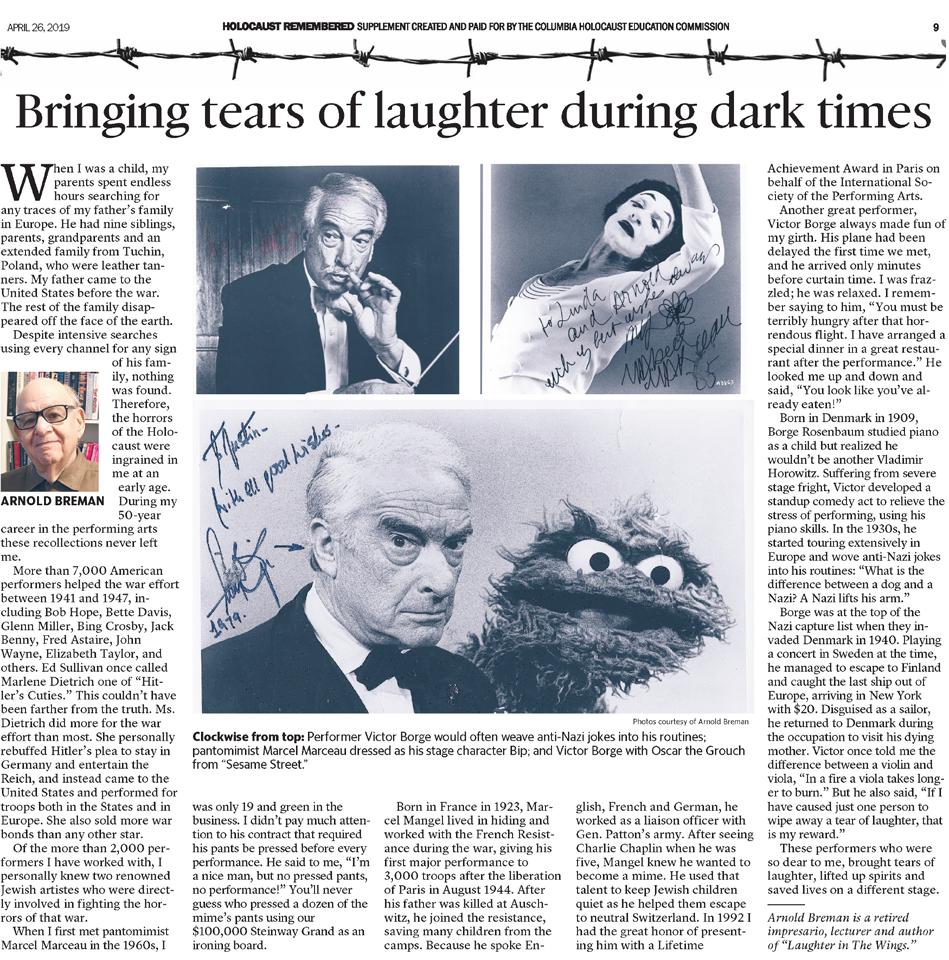
151
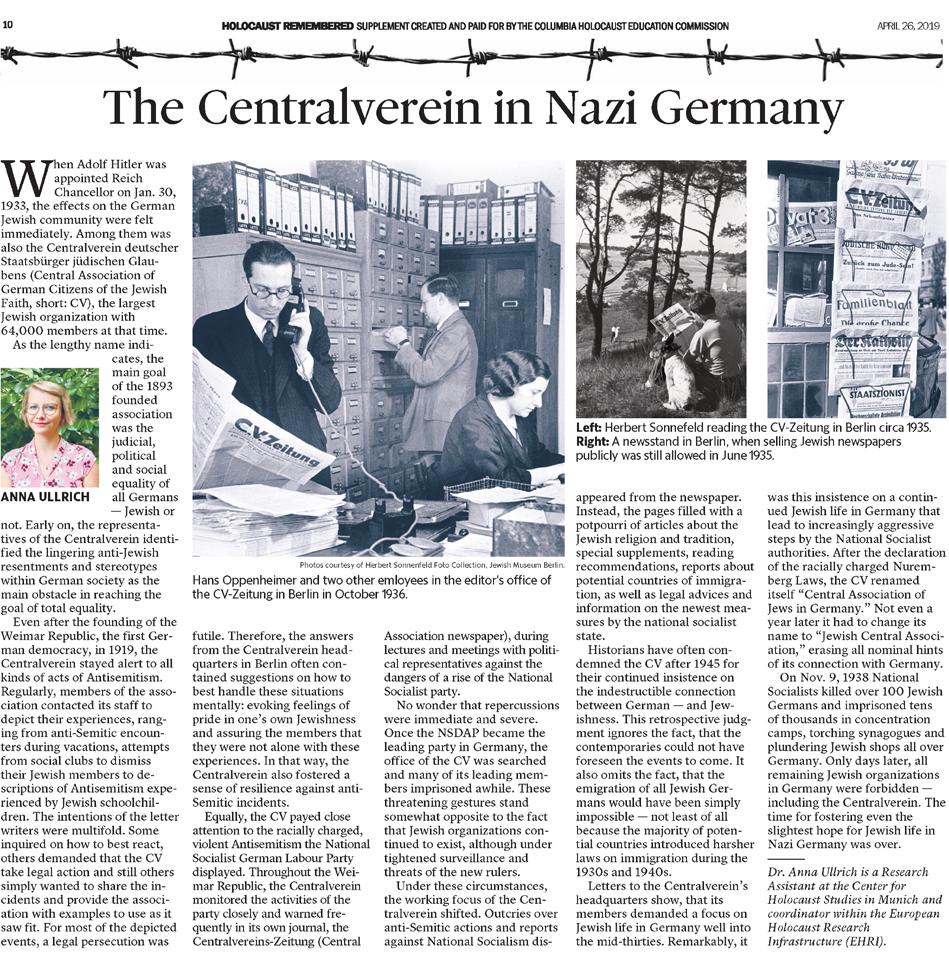
152
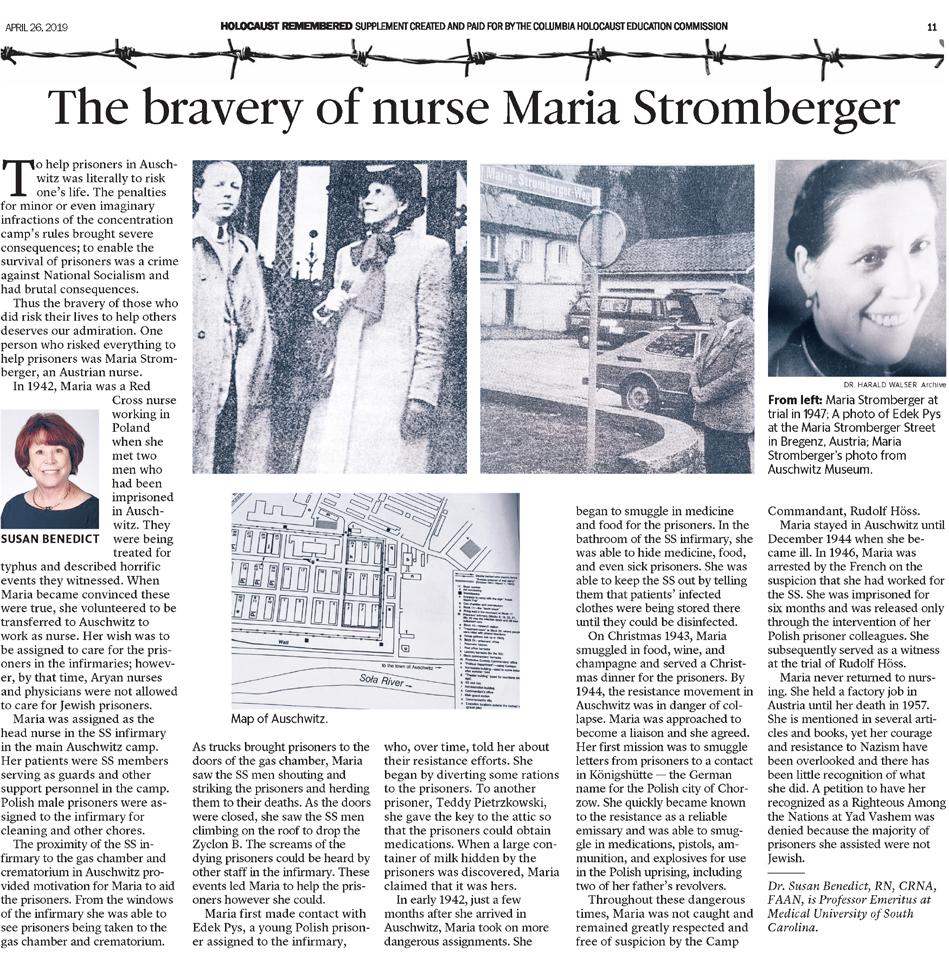
153
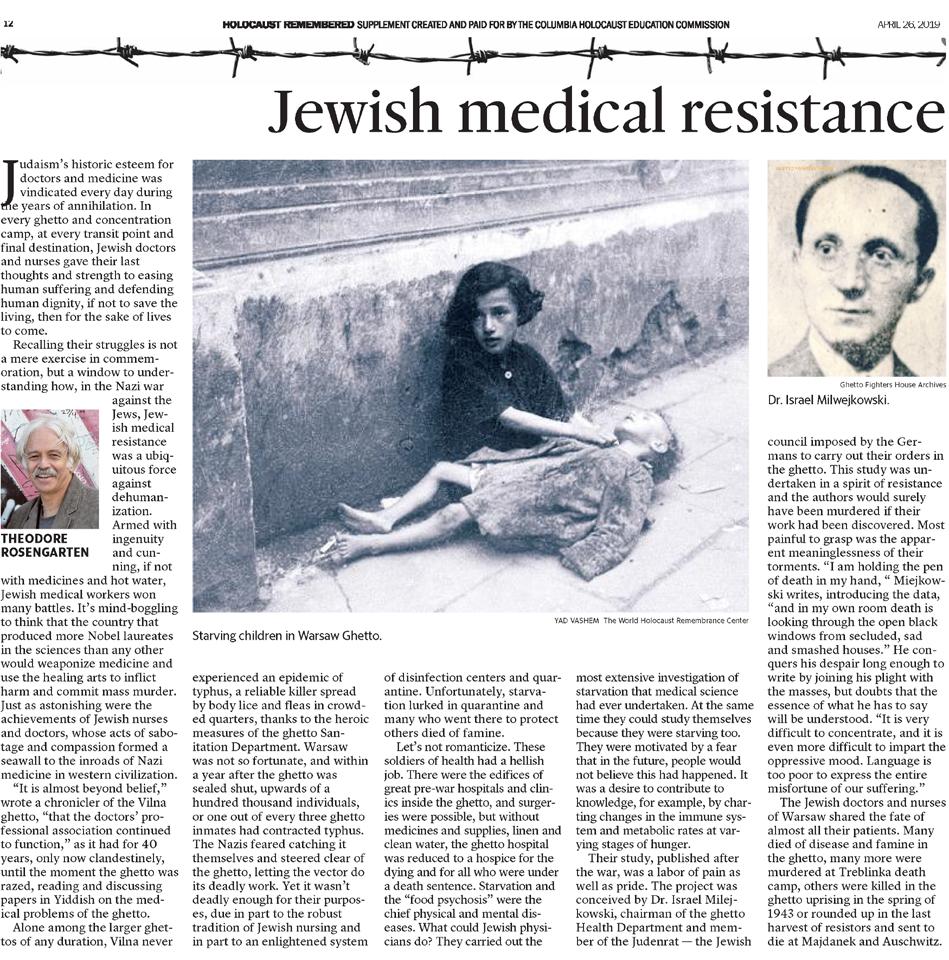
154

155
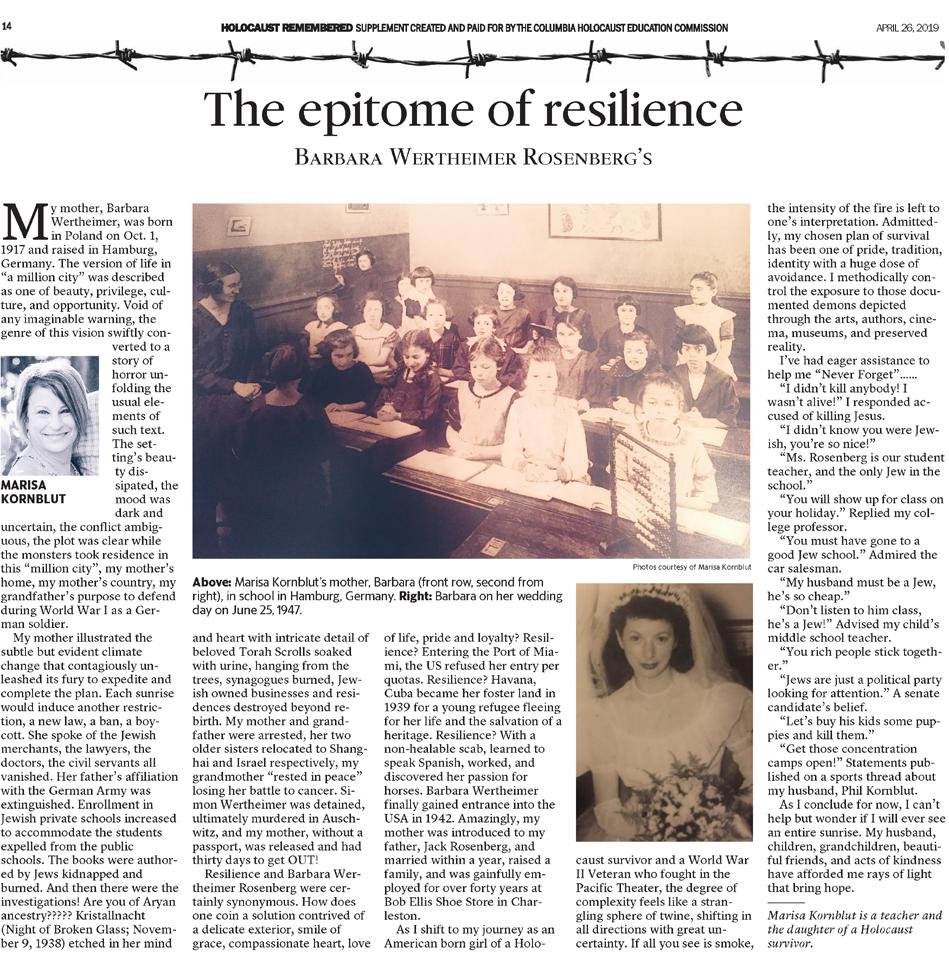
156
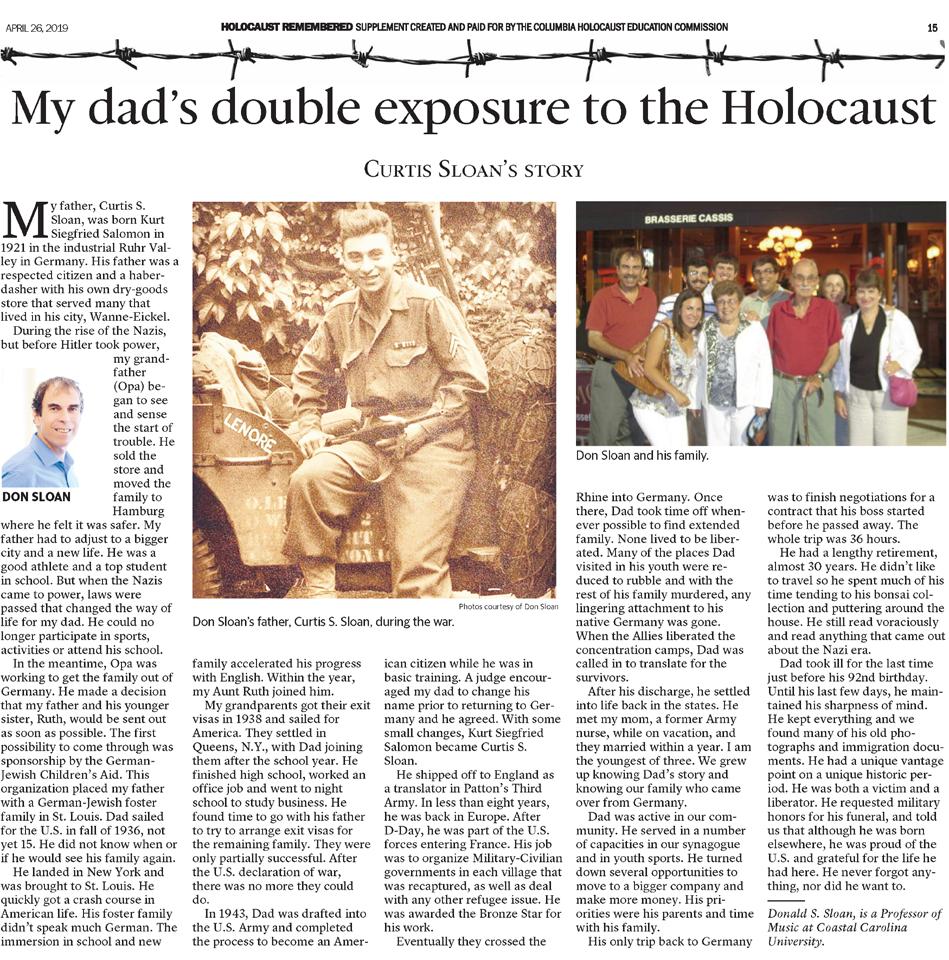
157
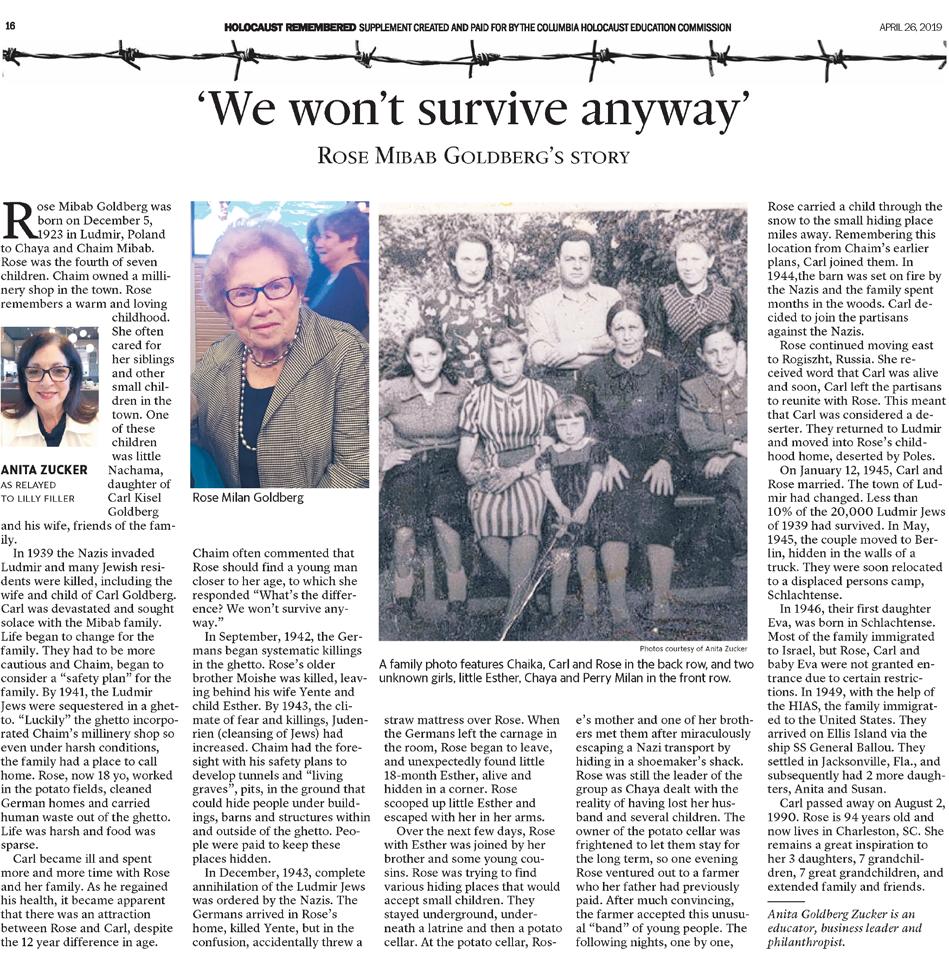
158
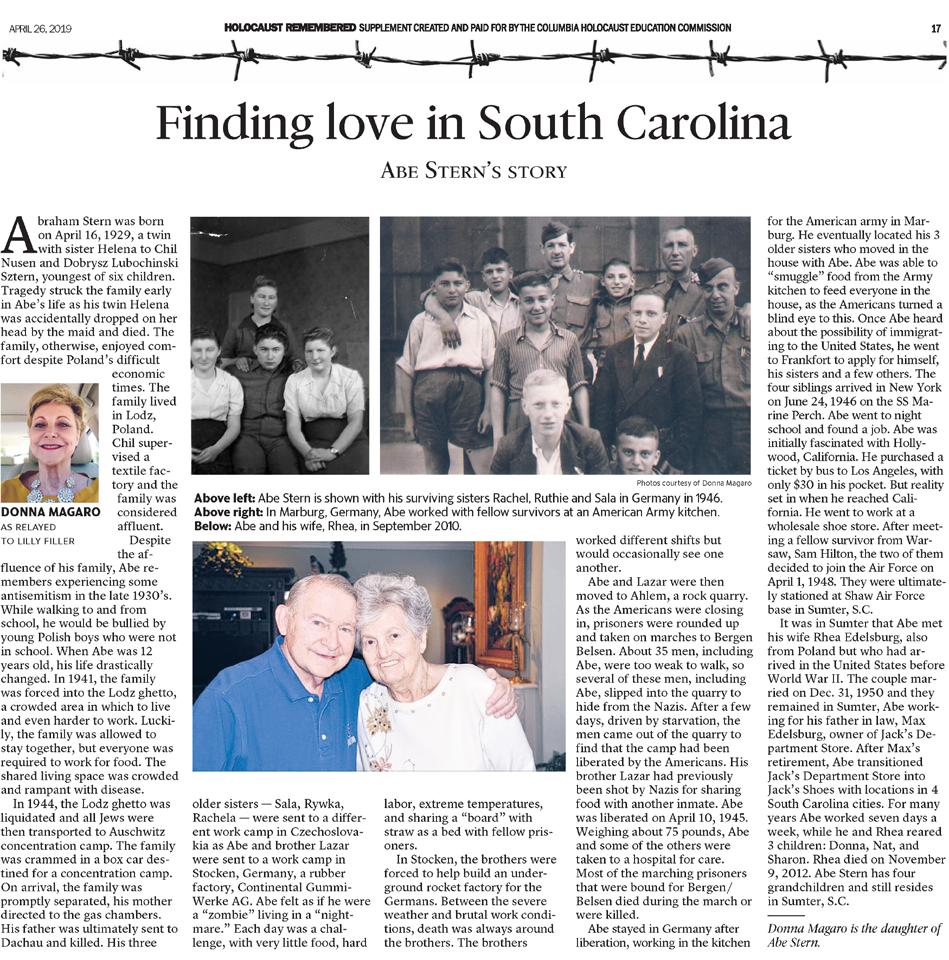
159

160
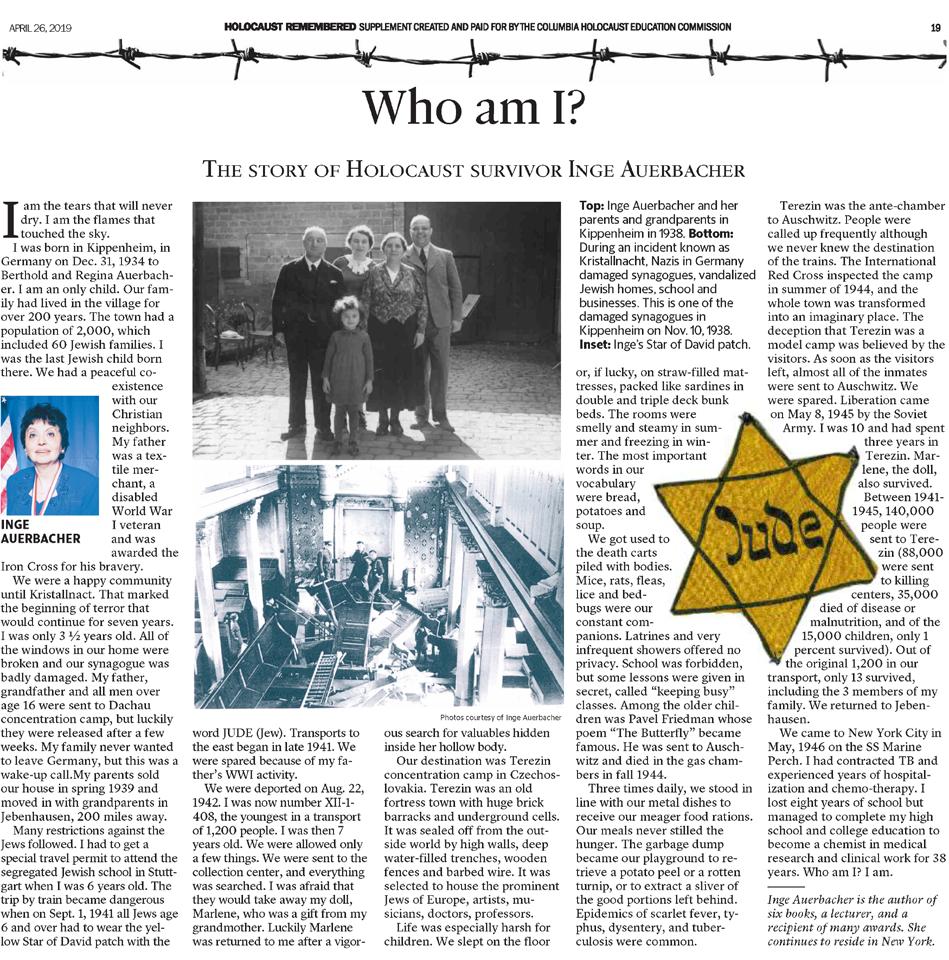
161
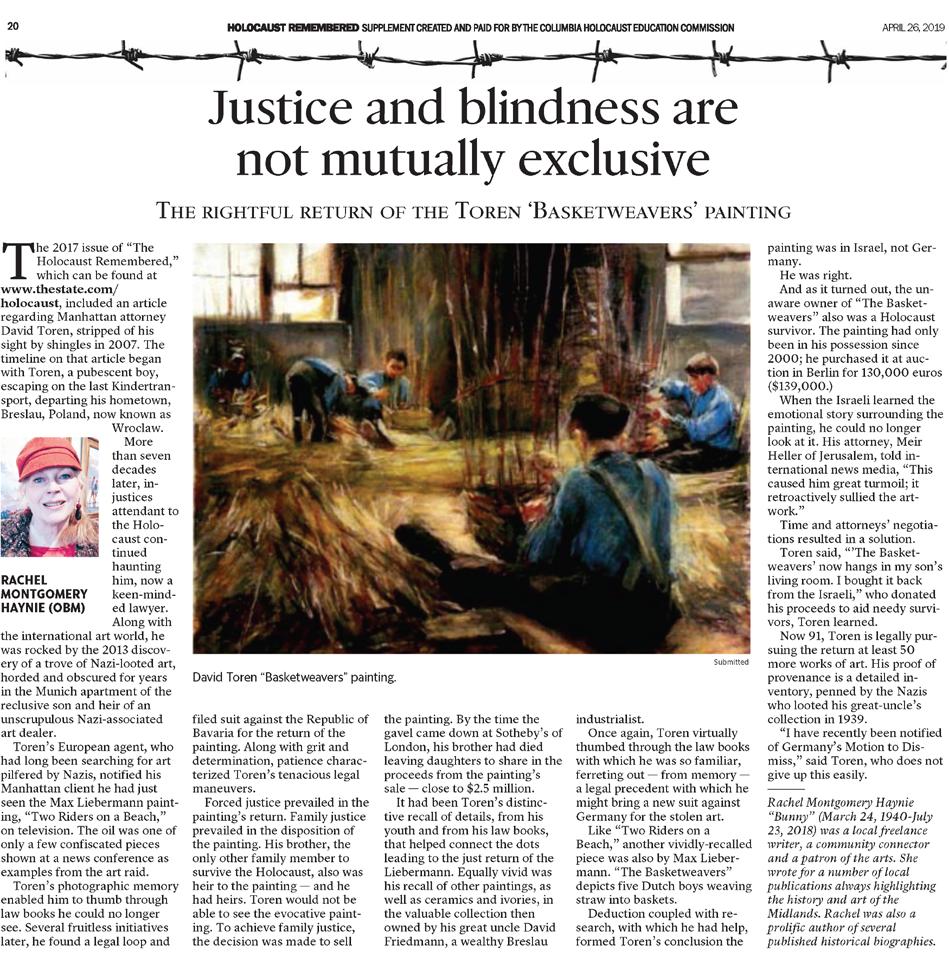
162
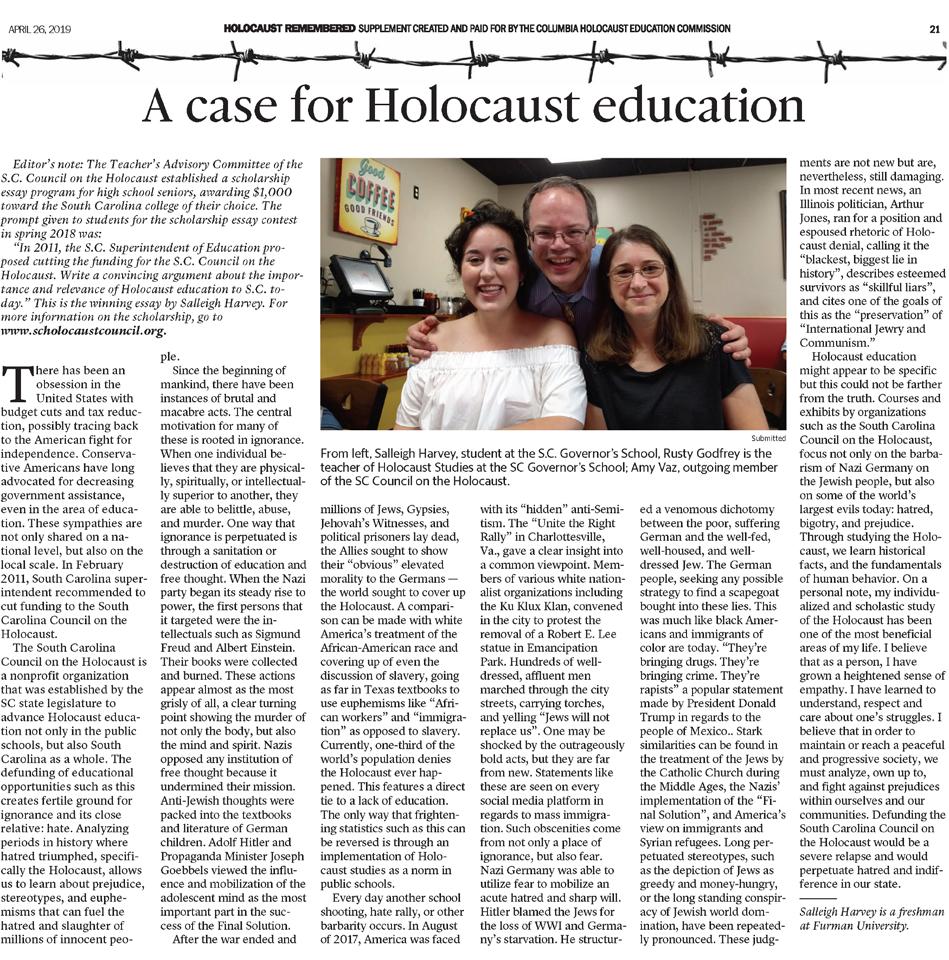
163
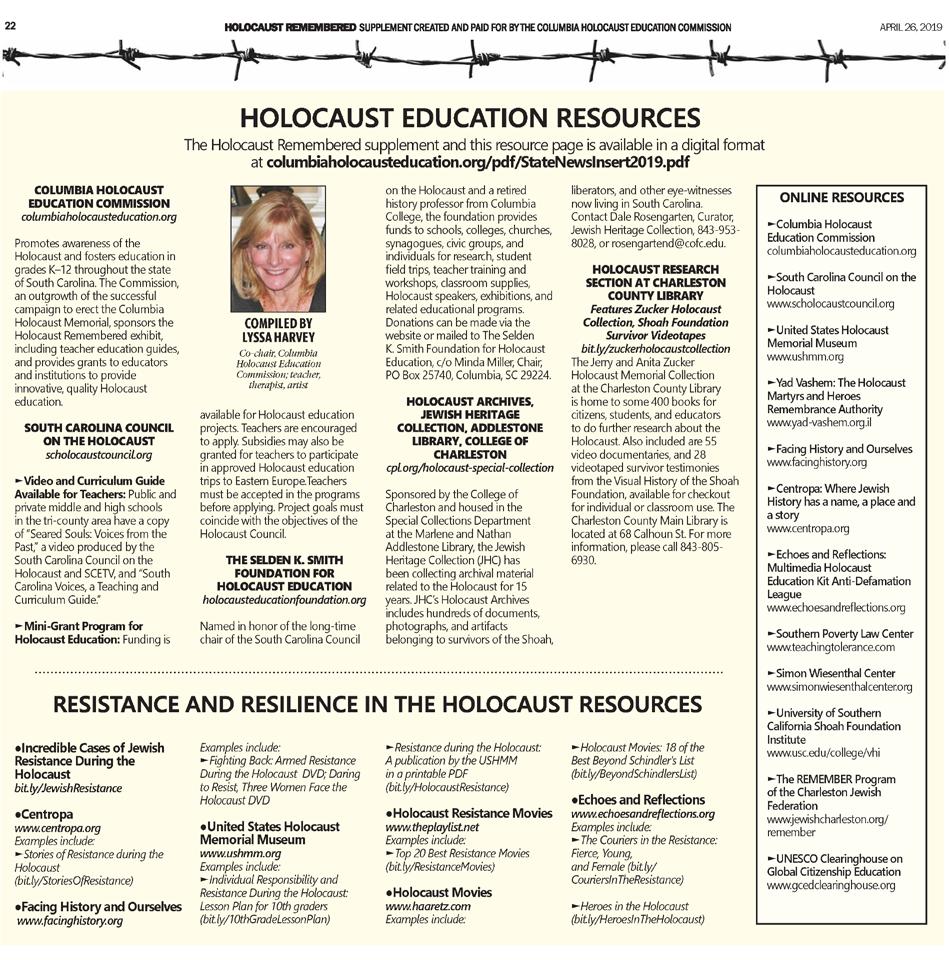
164

165

166
167
2020
“We will accomplish a mission that the victims have assigned to us: to collect memories of tears, fragments of fire and sorrow, tales of despair and defiance and Names, above all Names. What we all have in common is an obsession not to betray the dead we left or who left us behind. They were killed once. They must not be killed again through forgetfulness.”
— Elie Wiesel Holocaust Survivor, Nobel Peace Laureate, author, activist
168
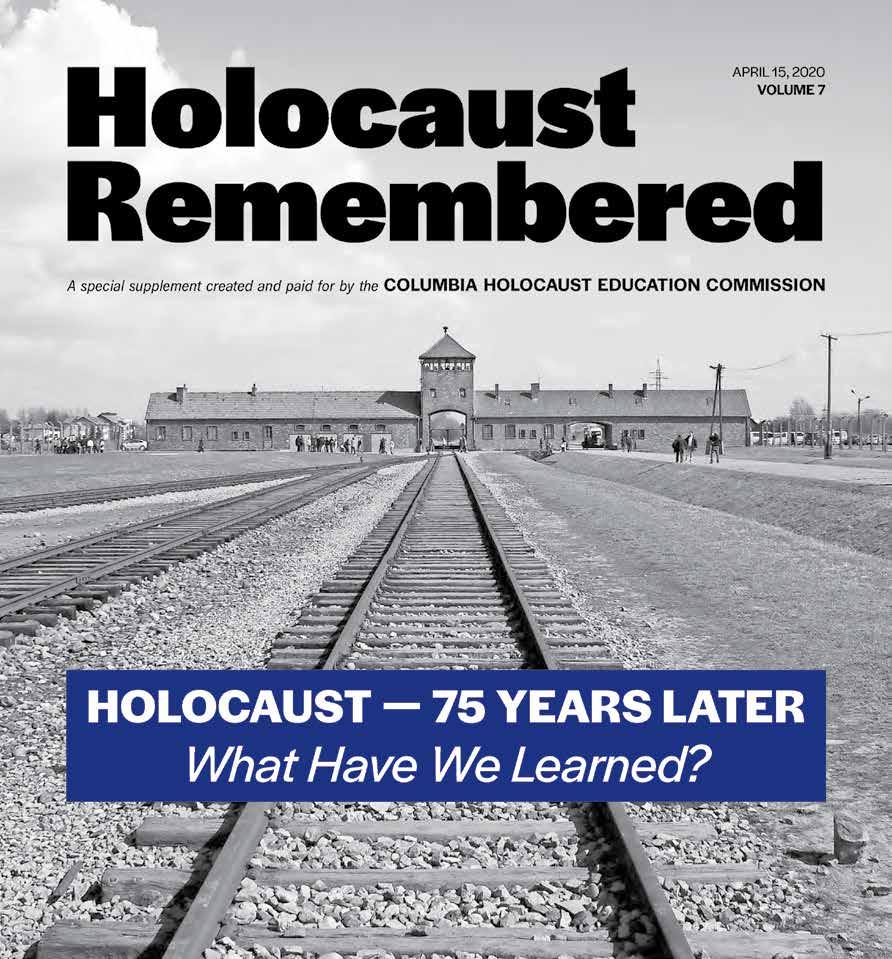
169

170

171
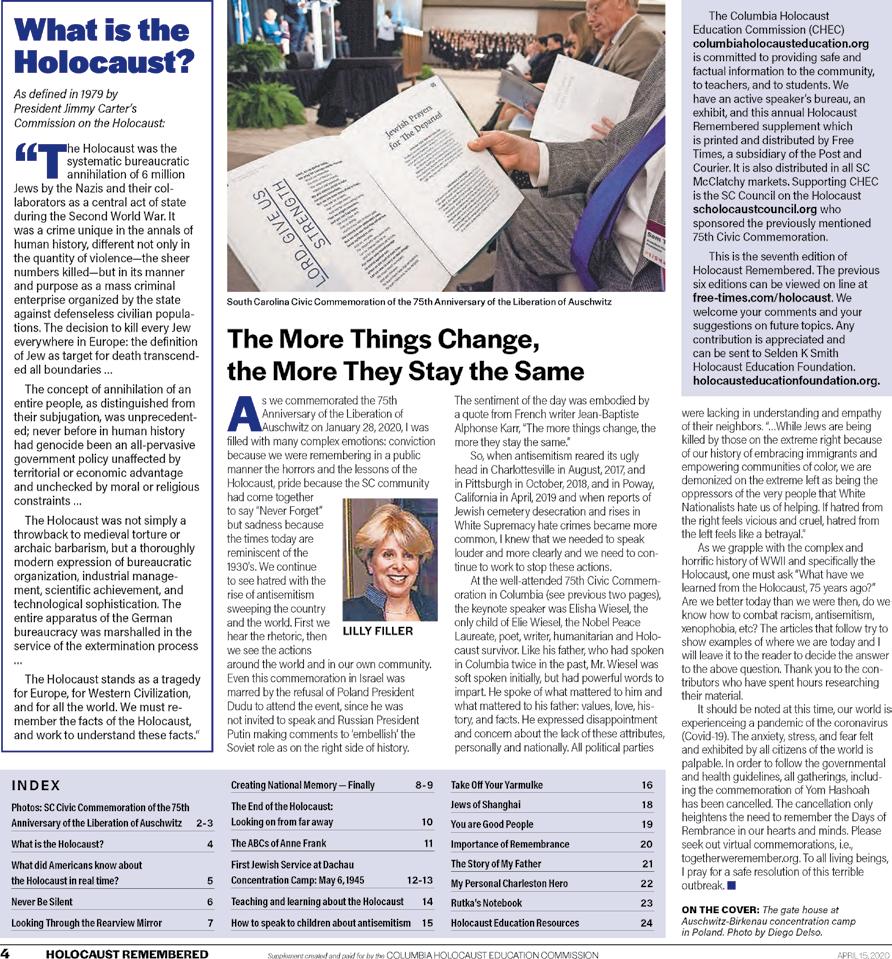
172
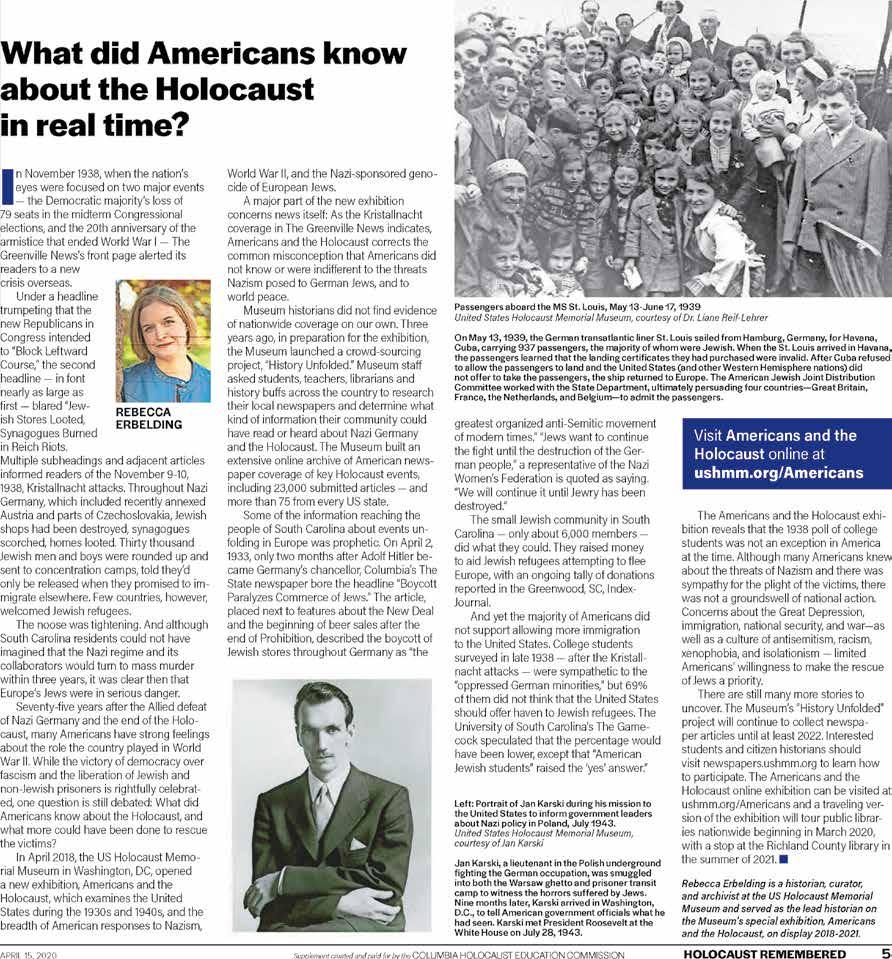
173
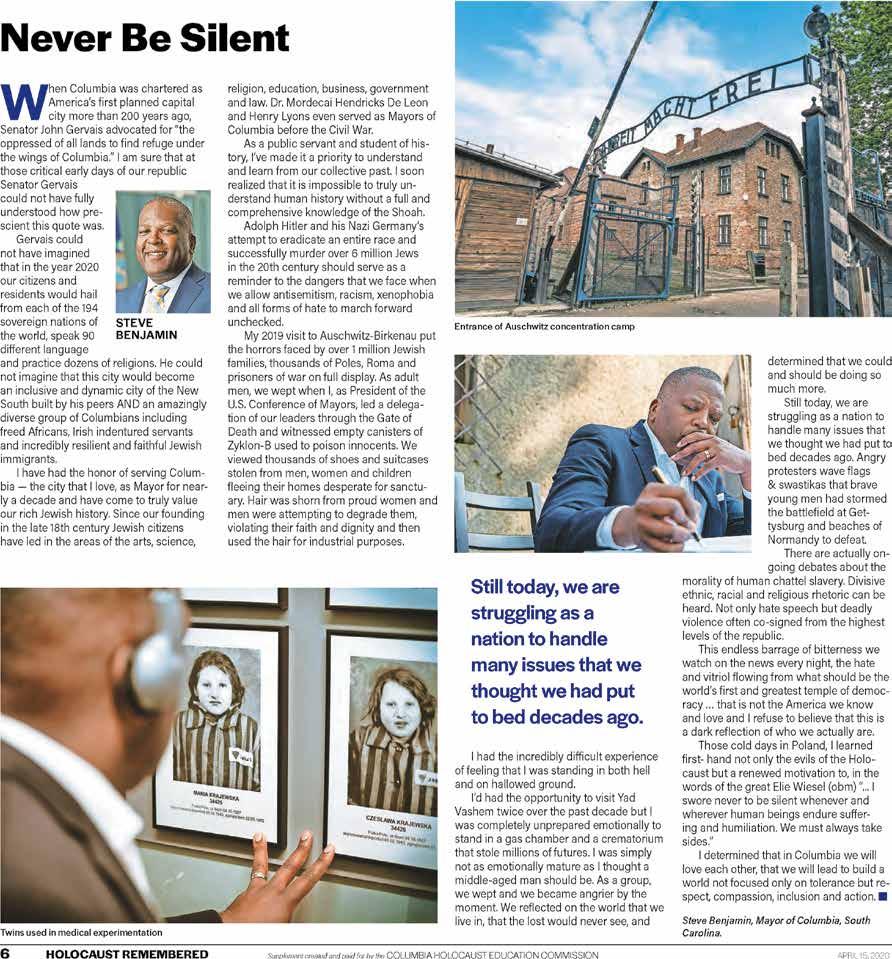
174
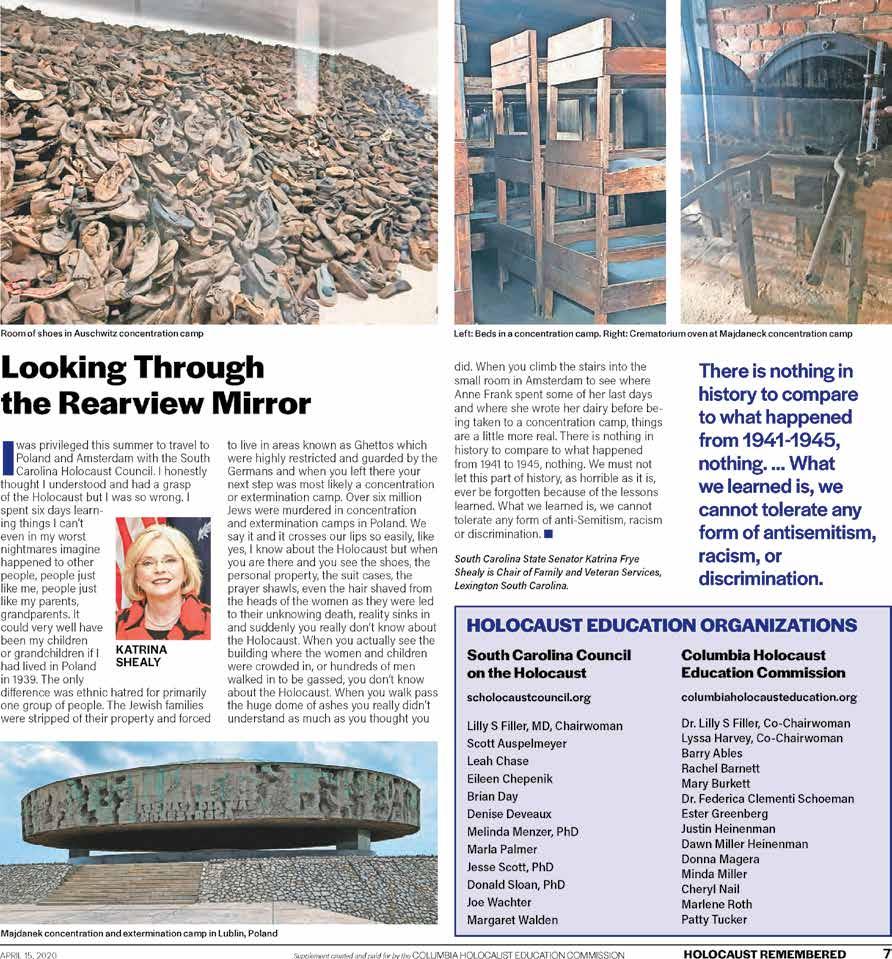
175
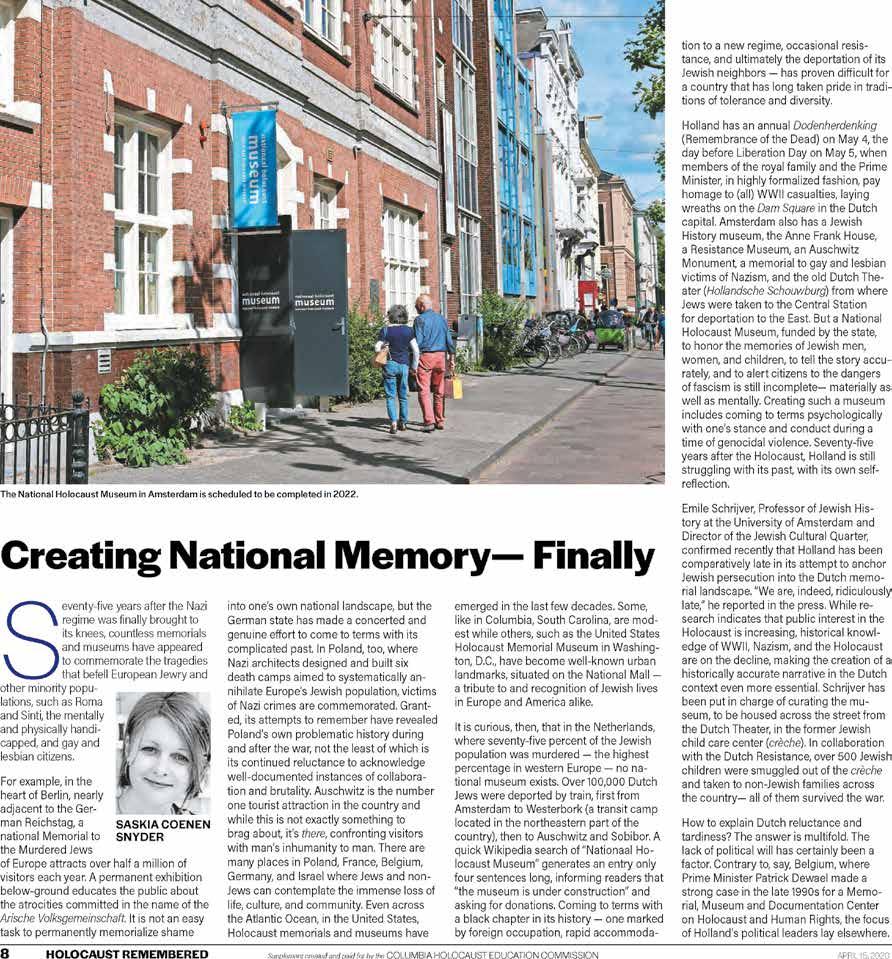
176
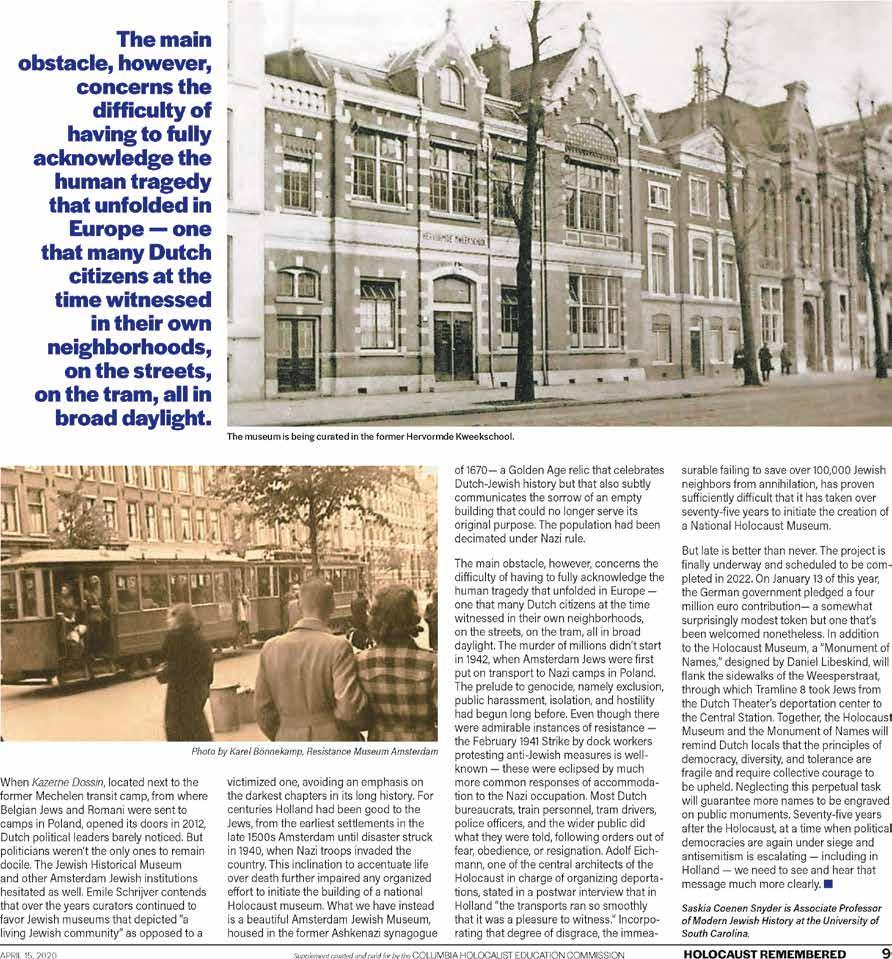
177

178
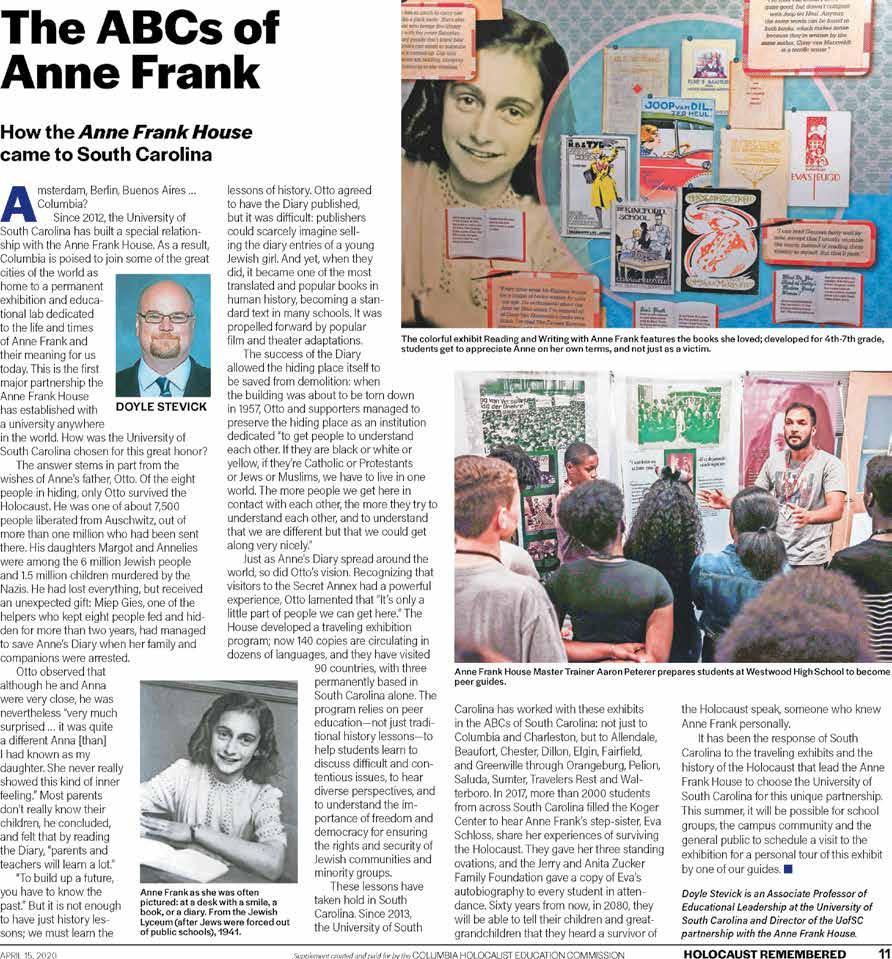
179
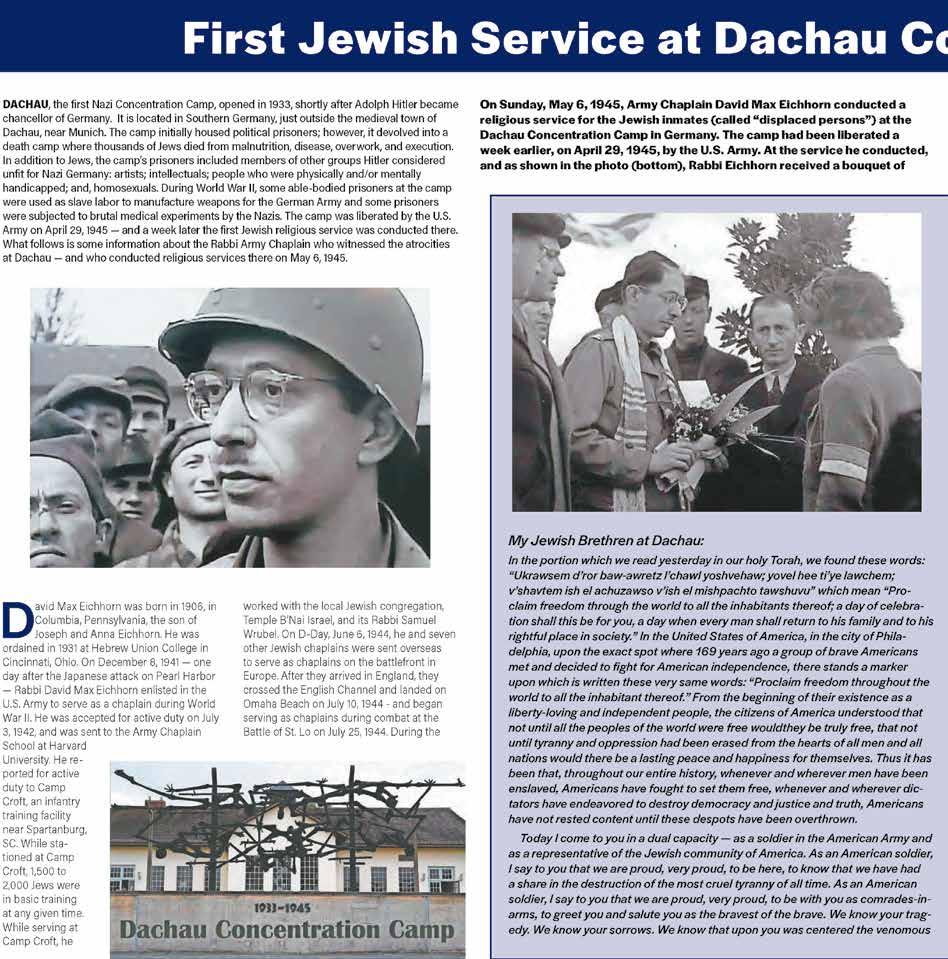
180
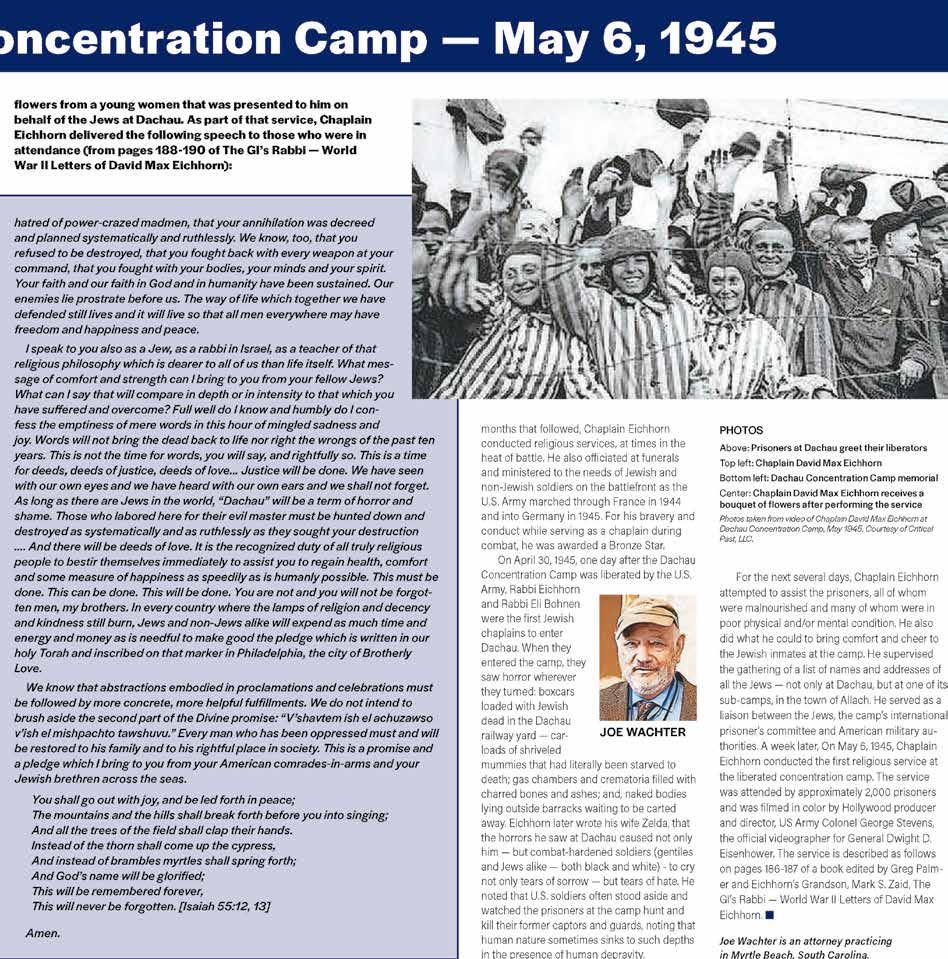
181
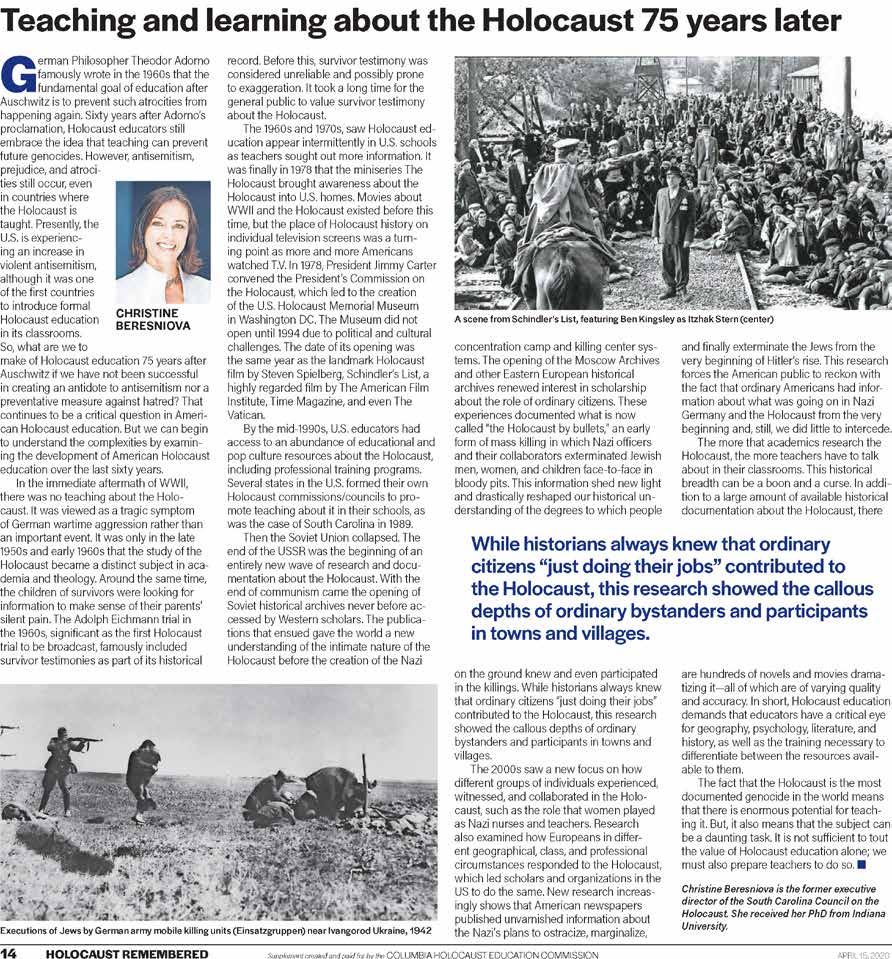
182
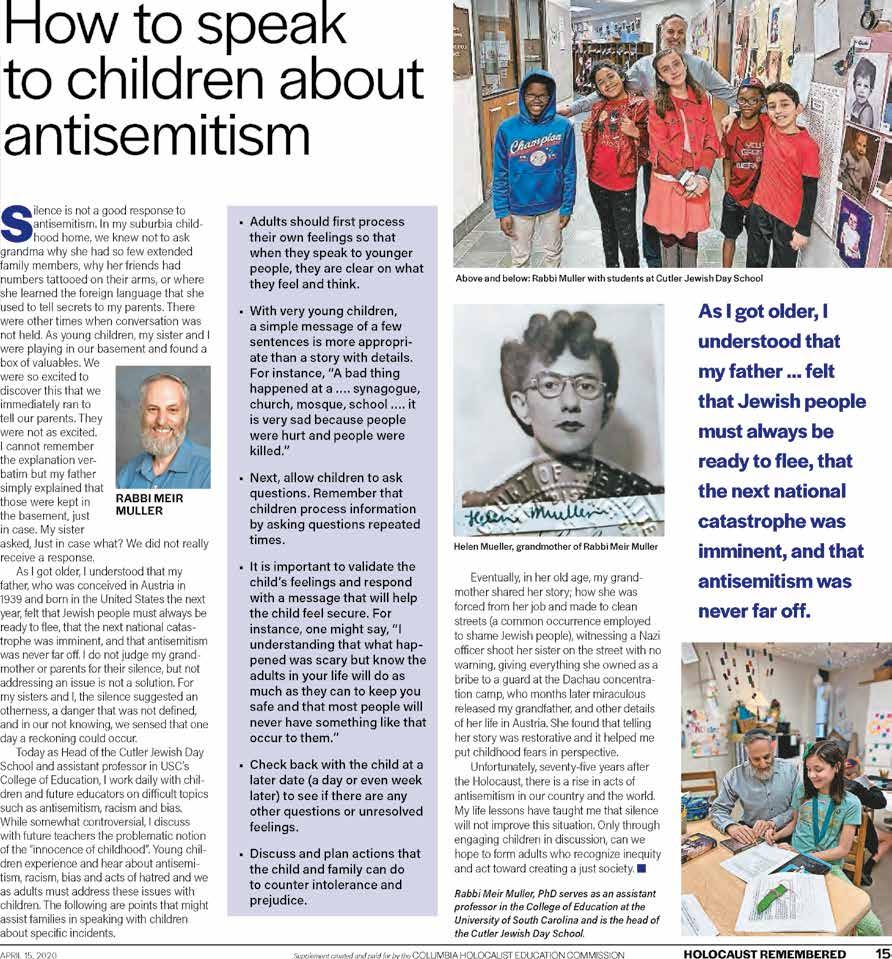
183
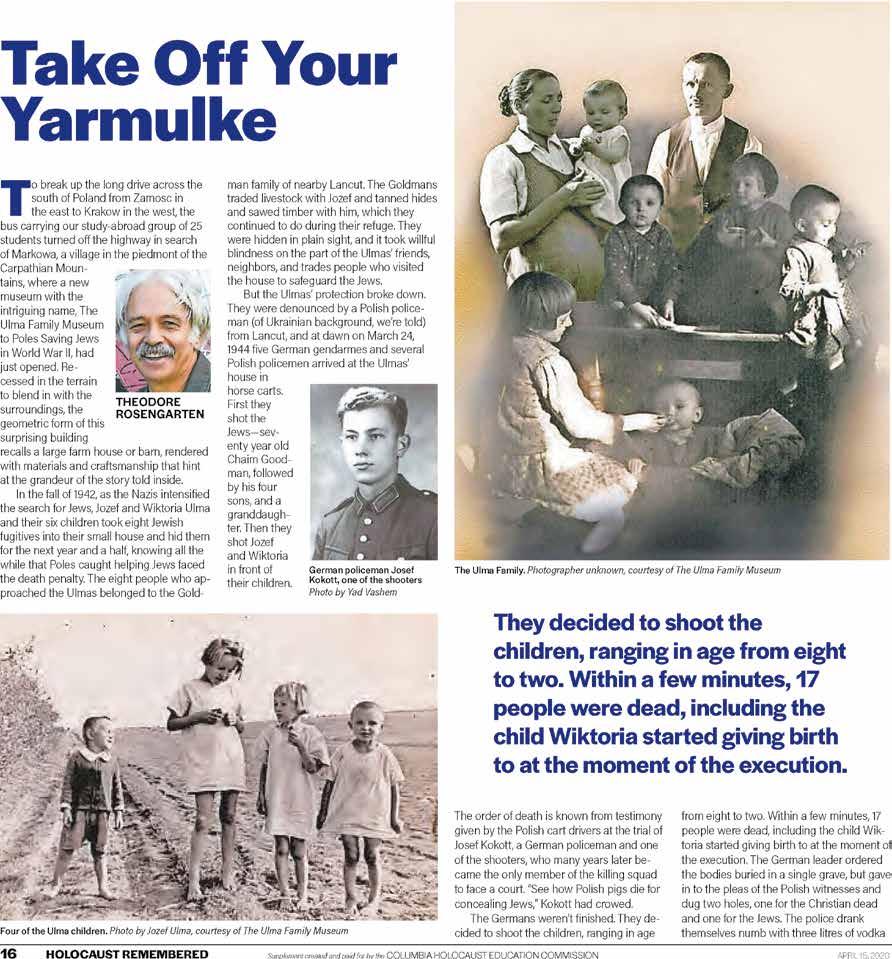
184
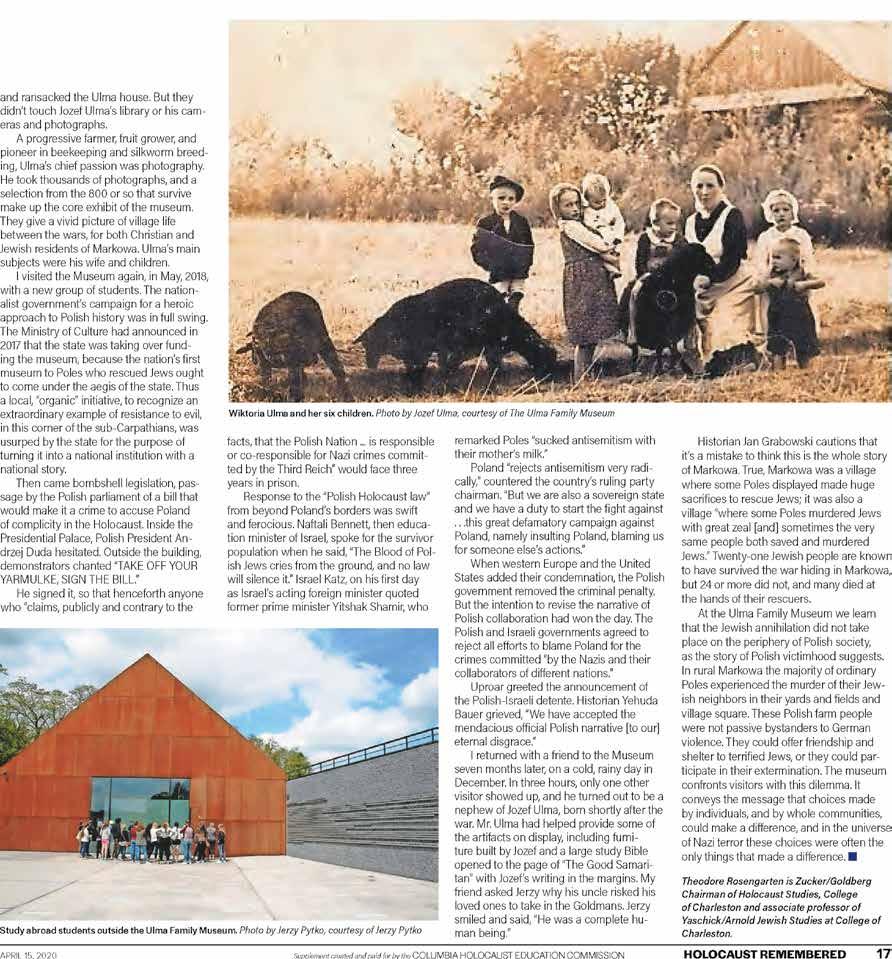
185
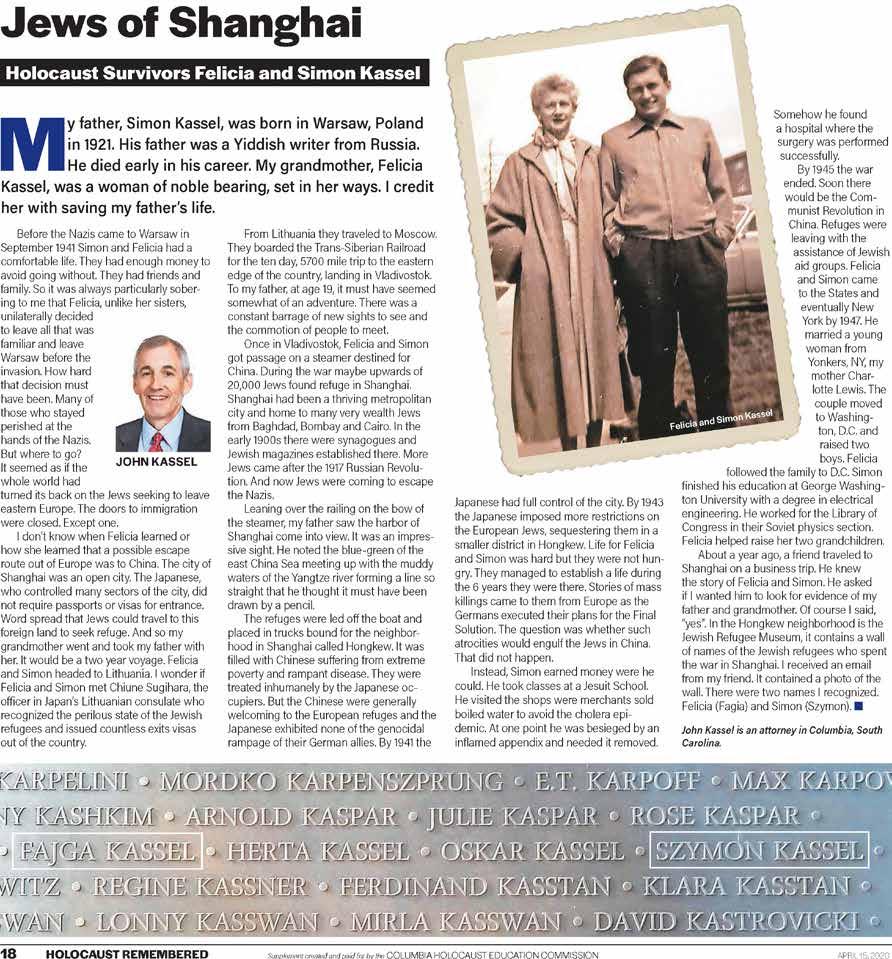
186
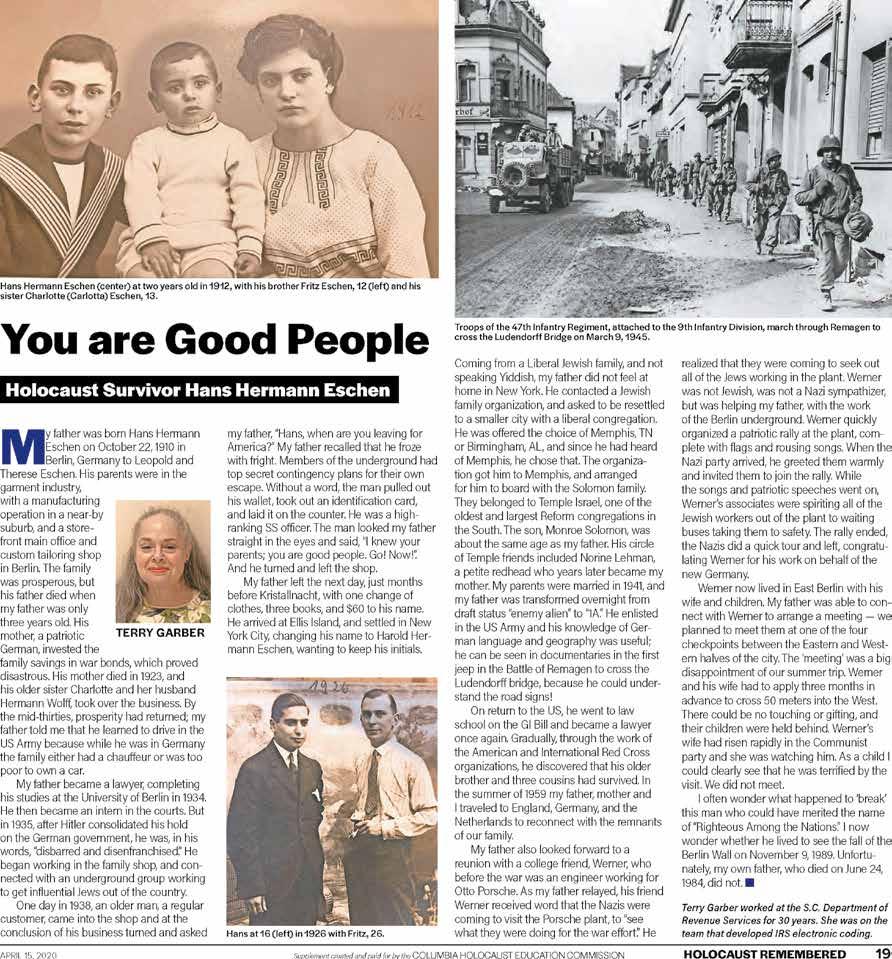
187

188
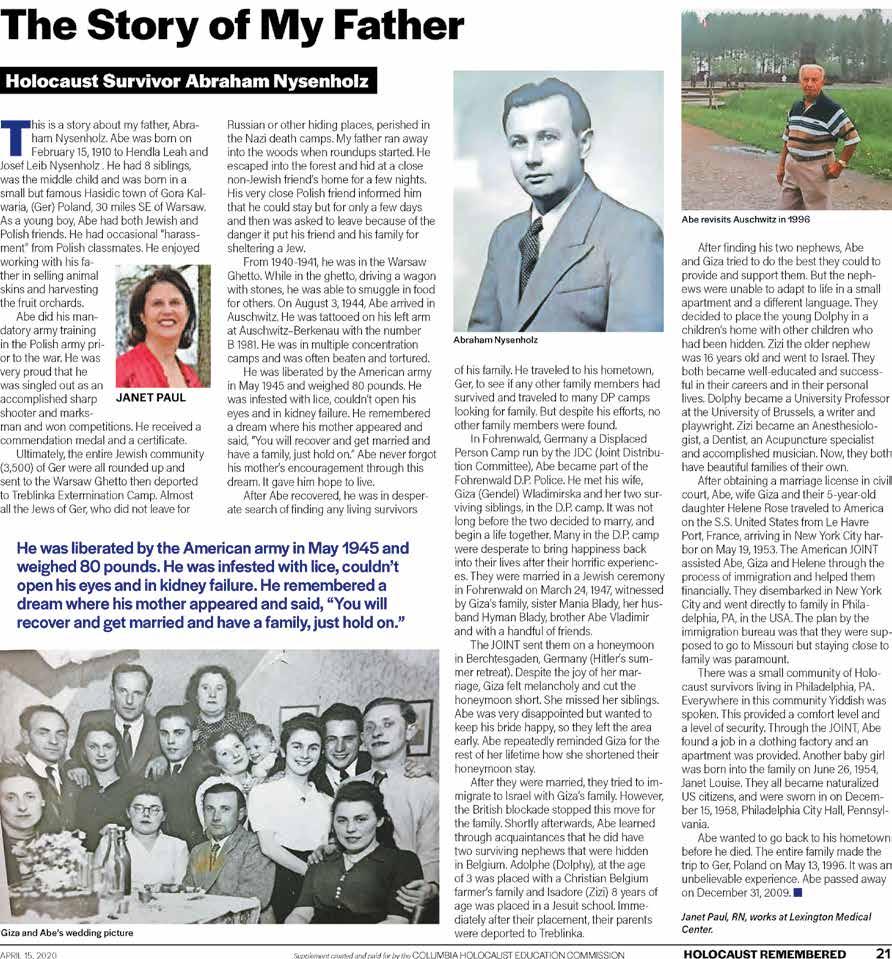
189
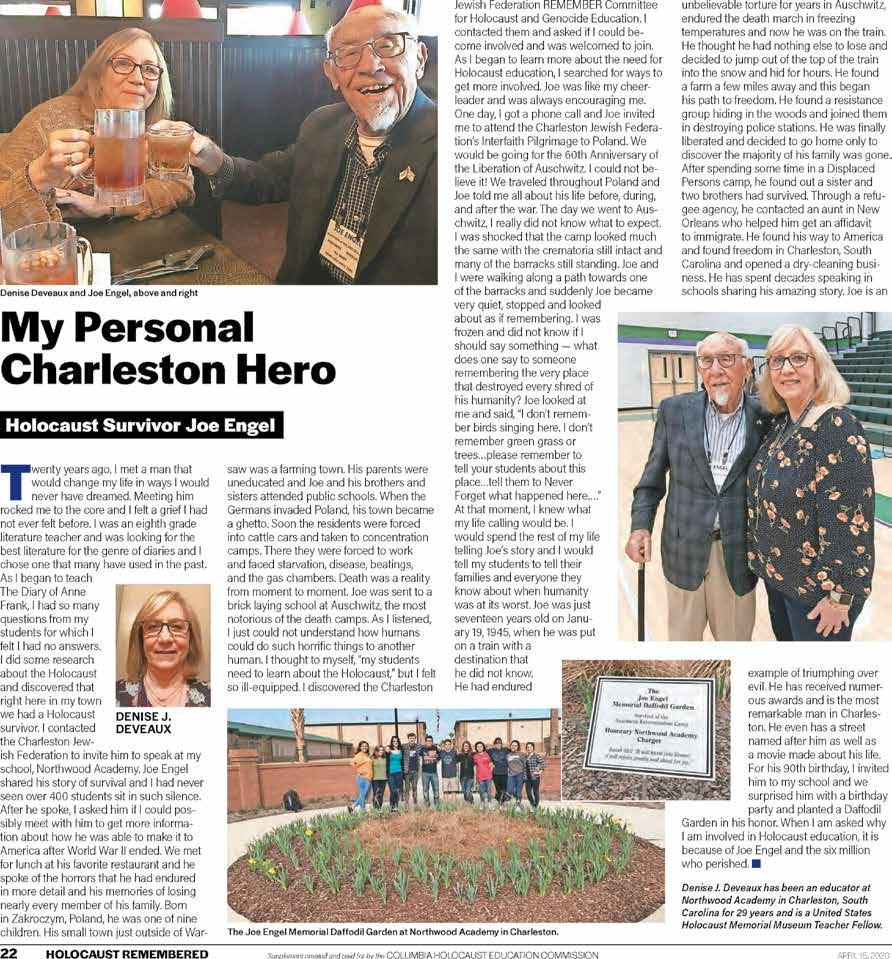
190
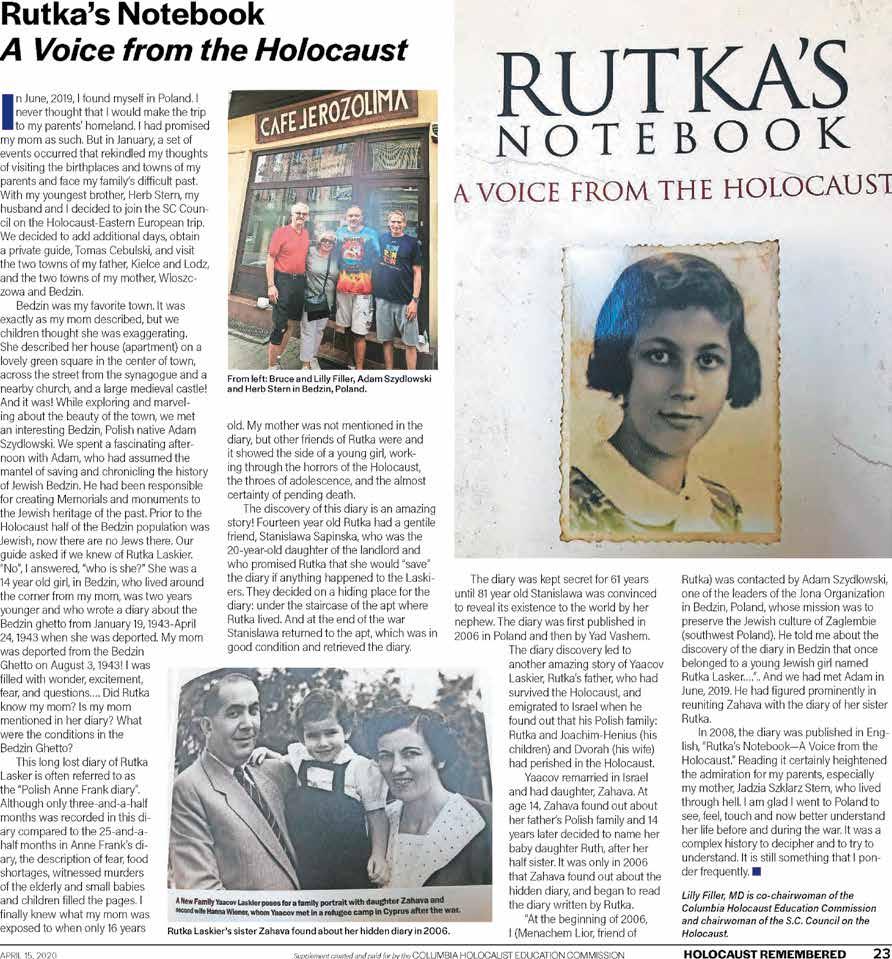
191
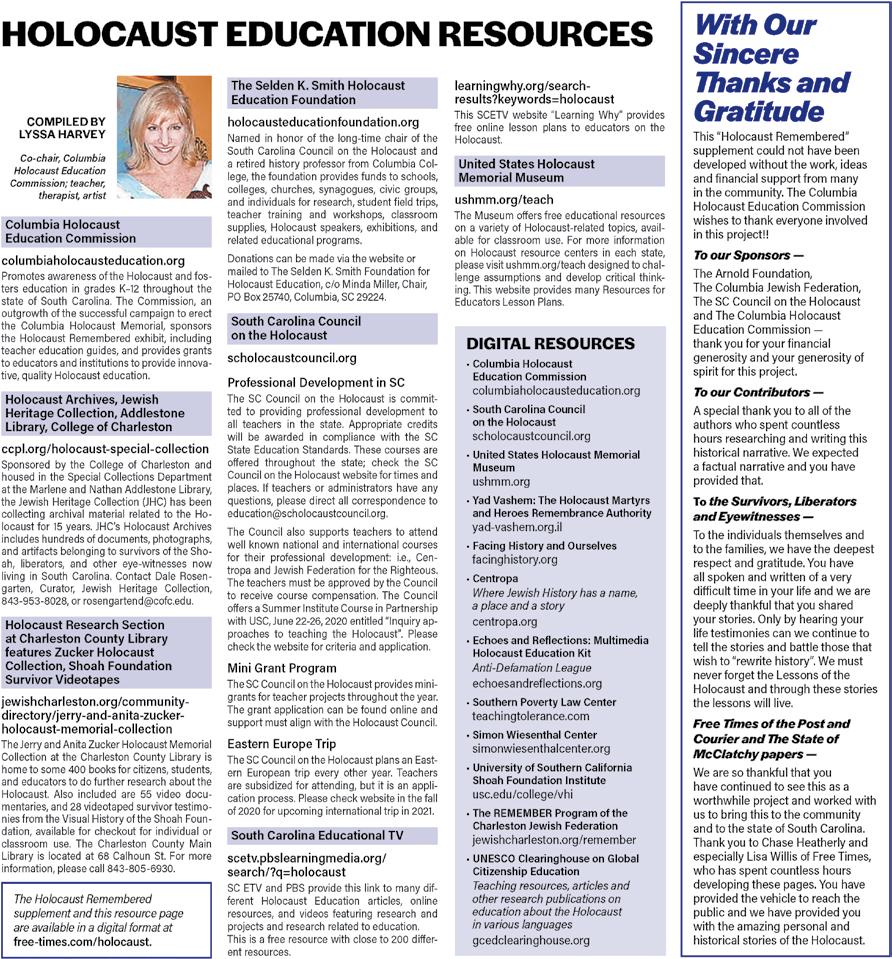
192
193
“Female leadership during the Holocaust is evident in the work of non-Jewish, anti-Nazi, and Jewish resistance and partisan groups…such as Sofie Scholl in the White Rose movement.”
— Dr. Jeff Eargle Professor
University of South Carolina
194
2021
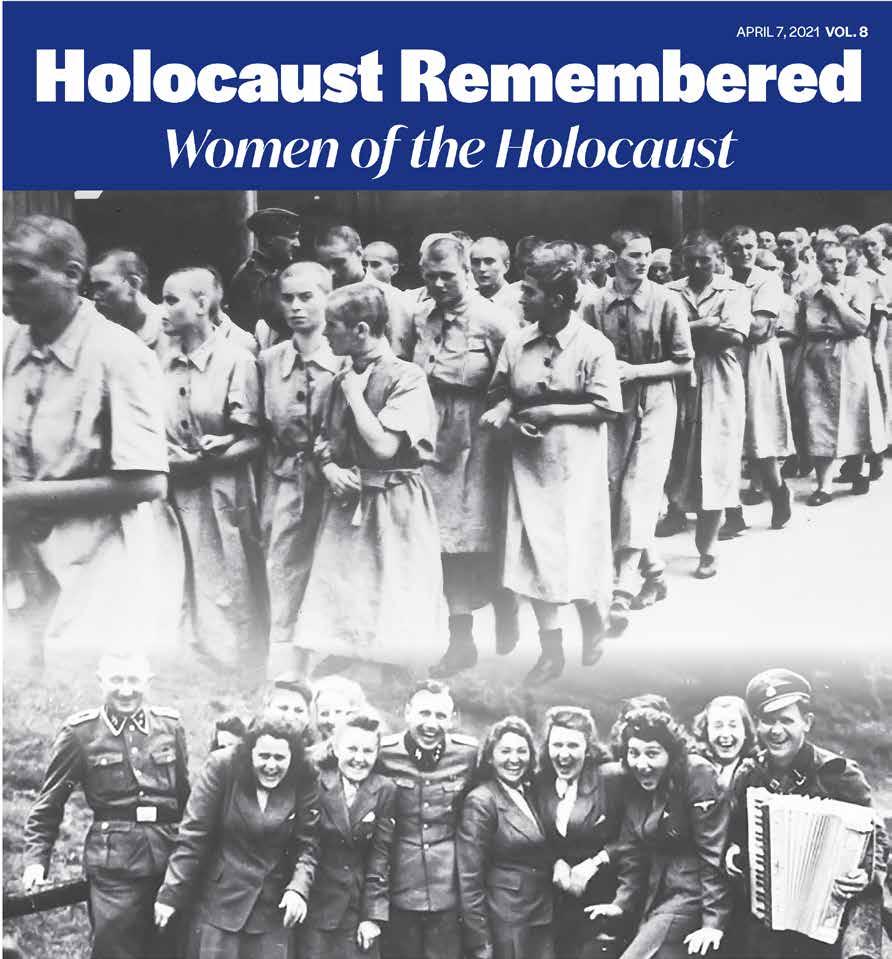
195
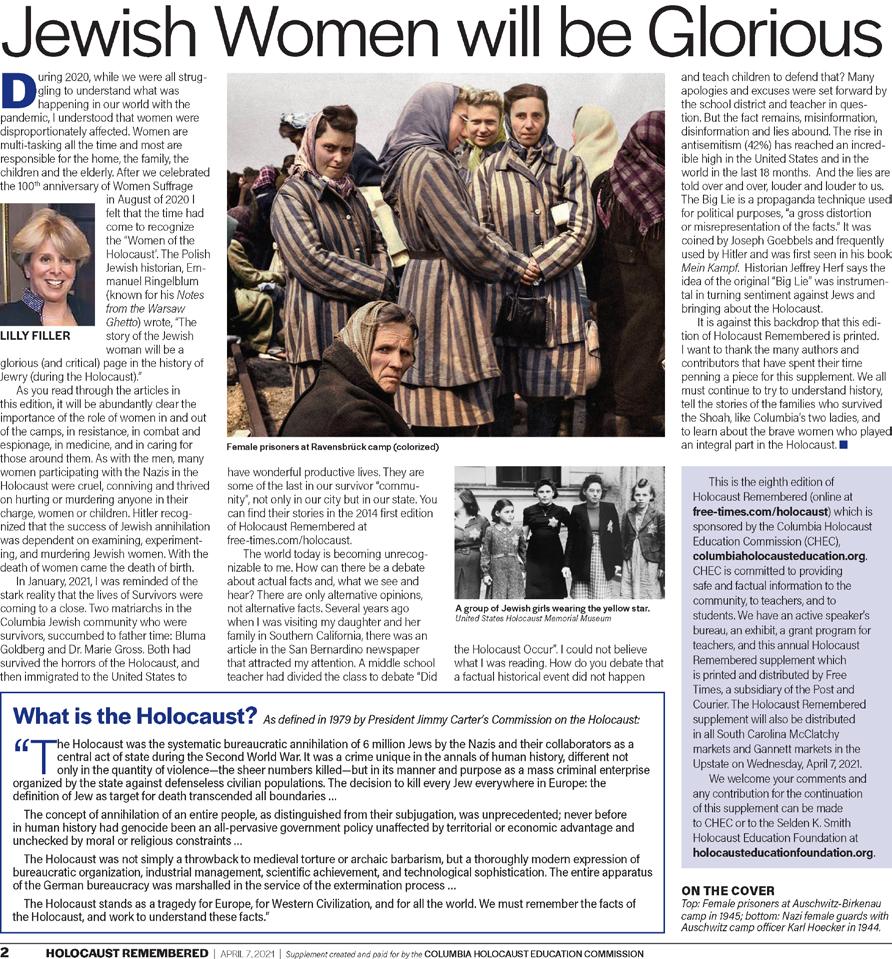
196

197

198
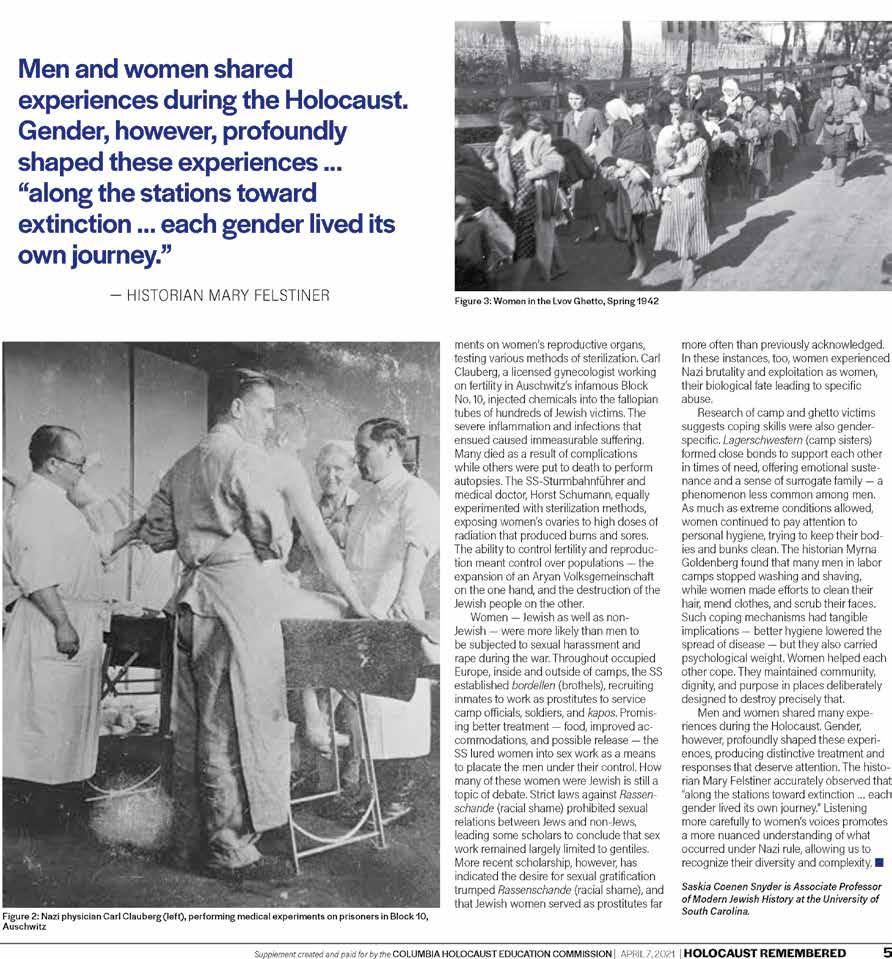
199
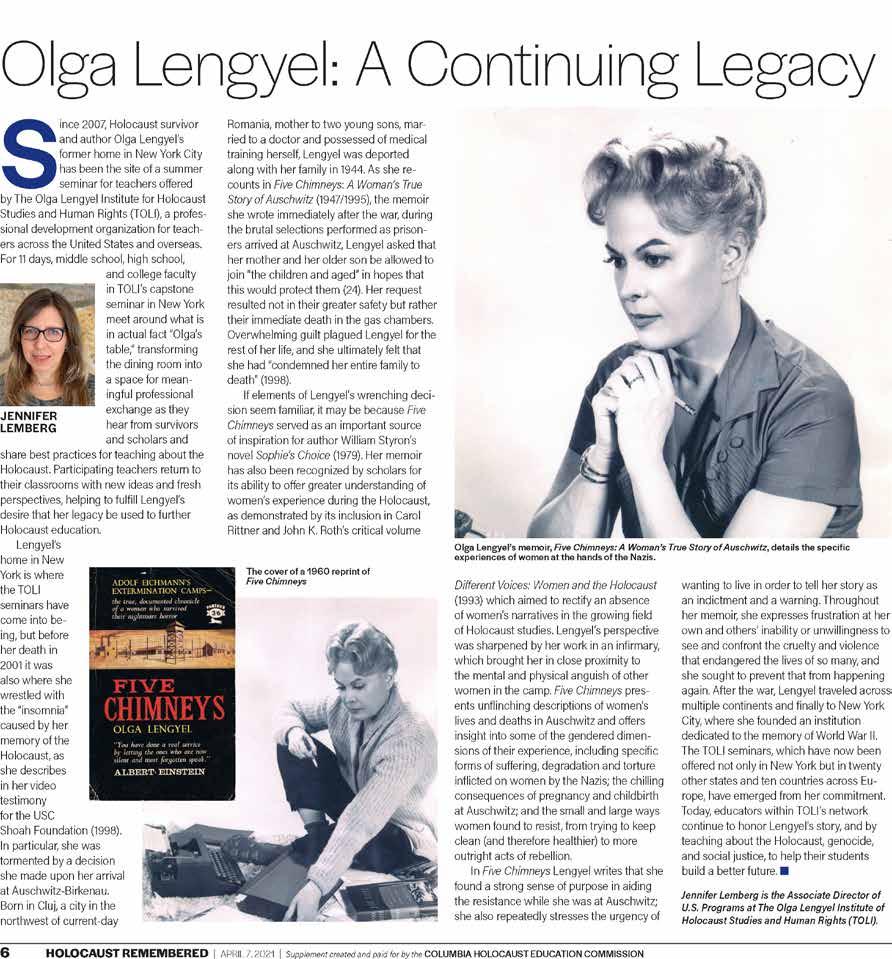
200

201
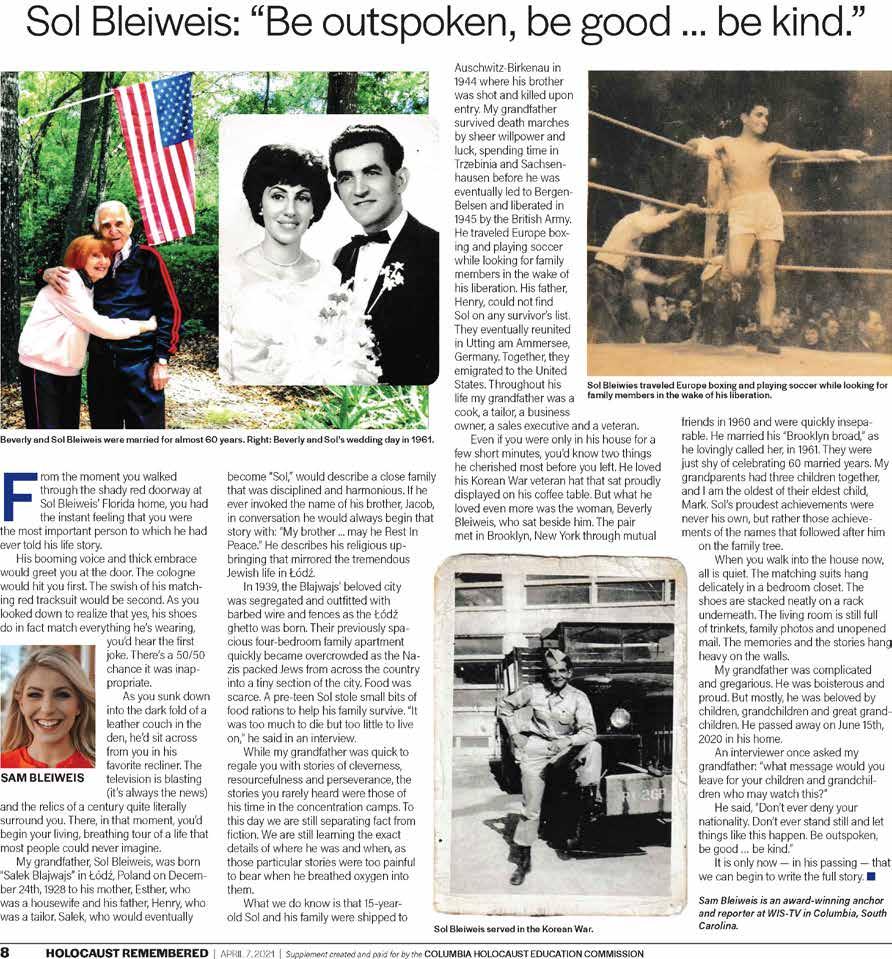
202
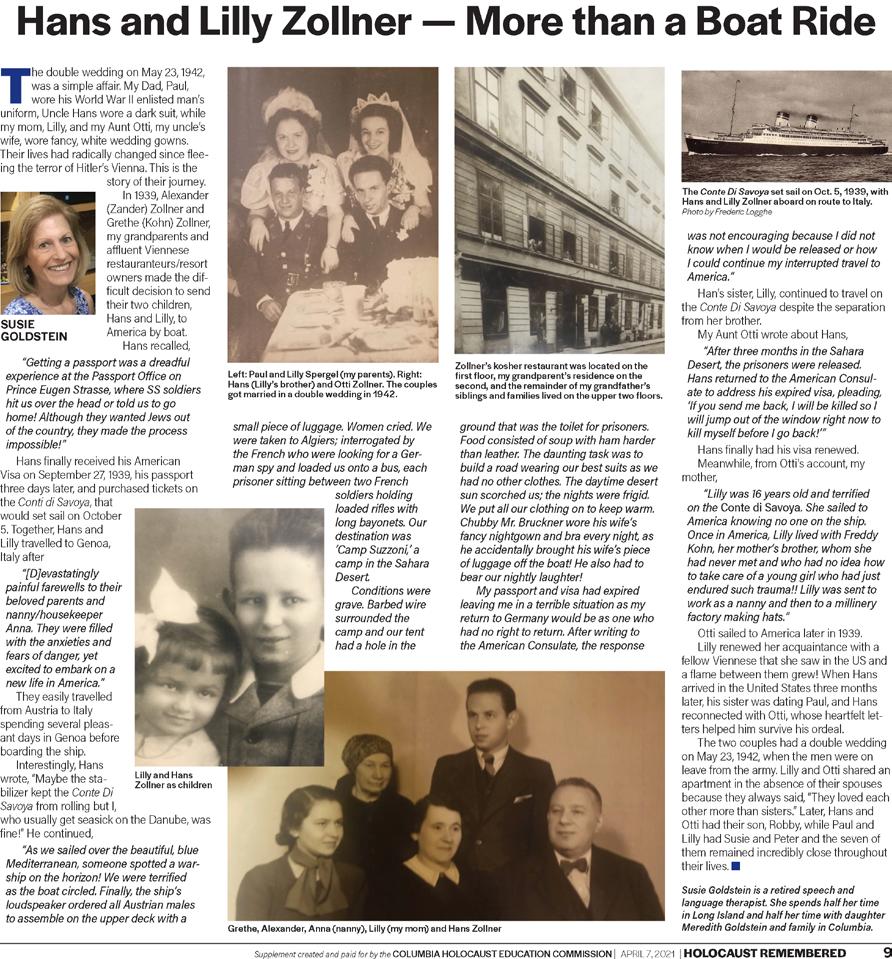
203
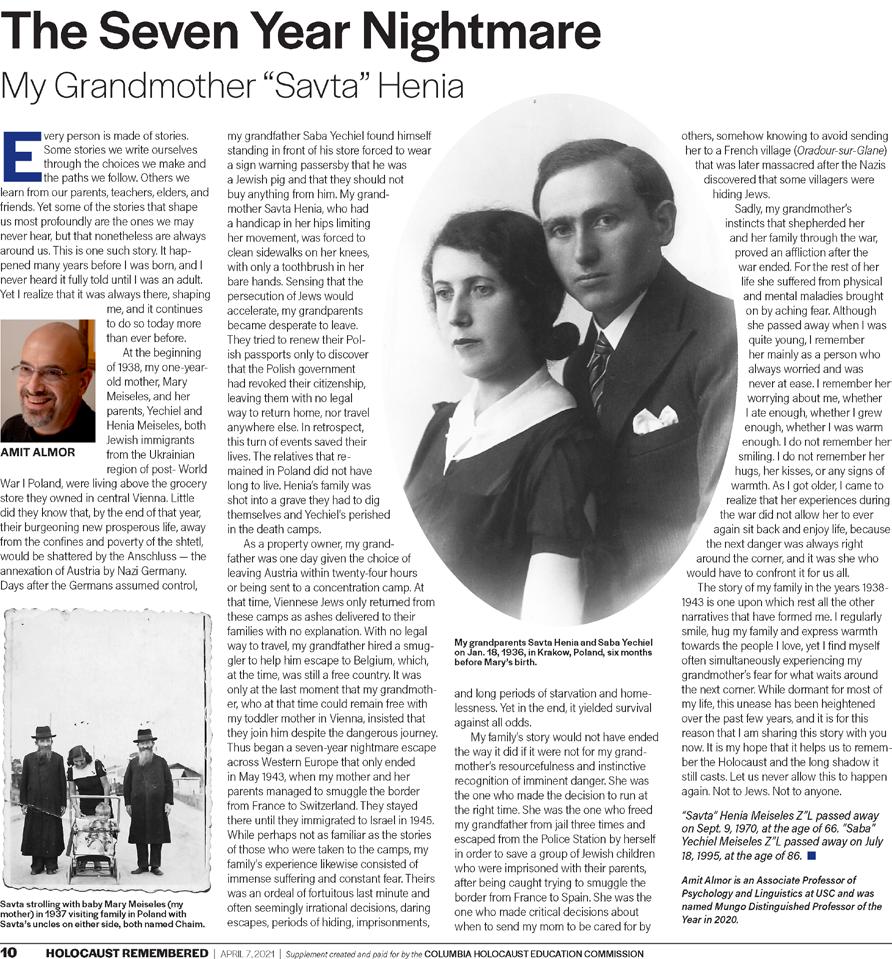
204
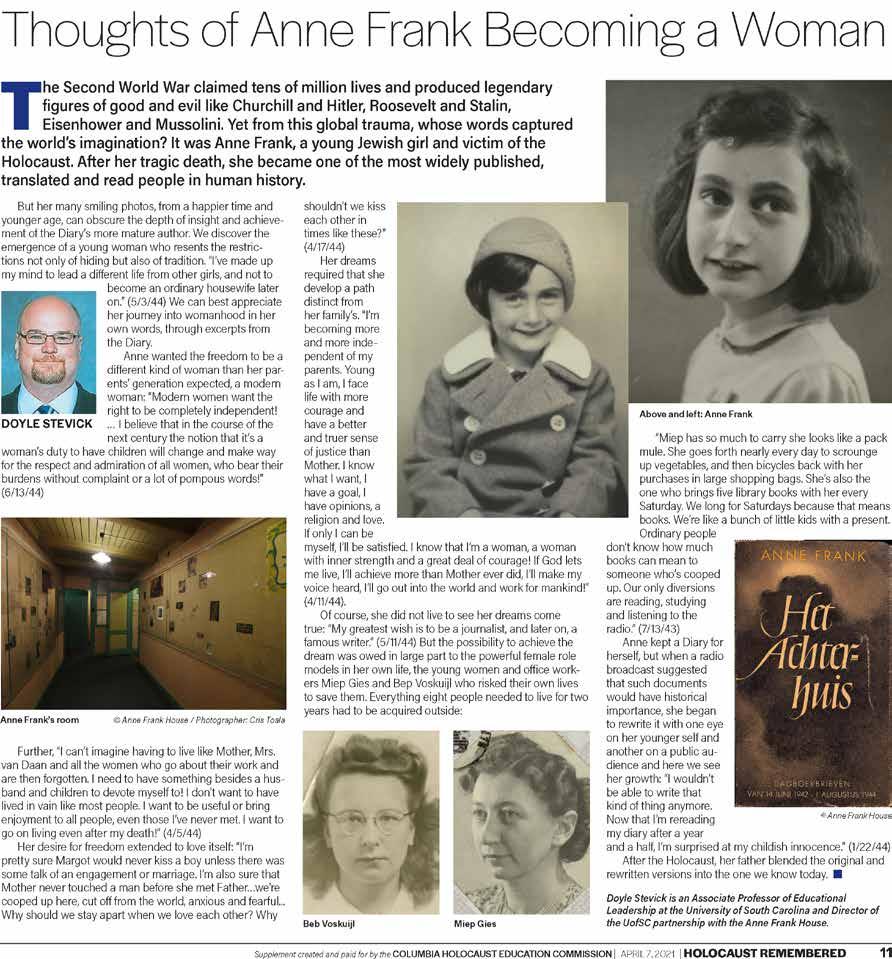
205
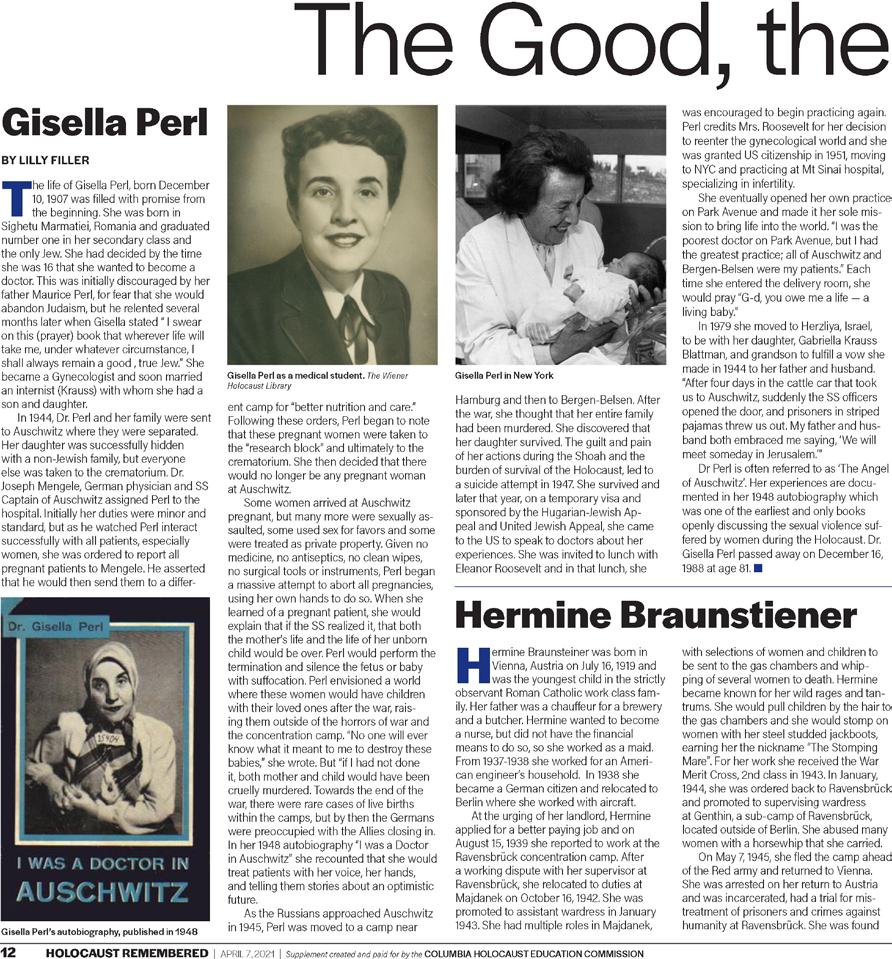
206
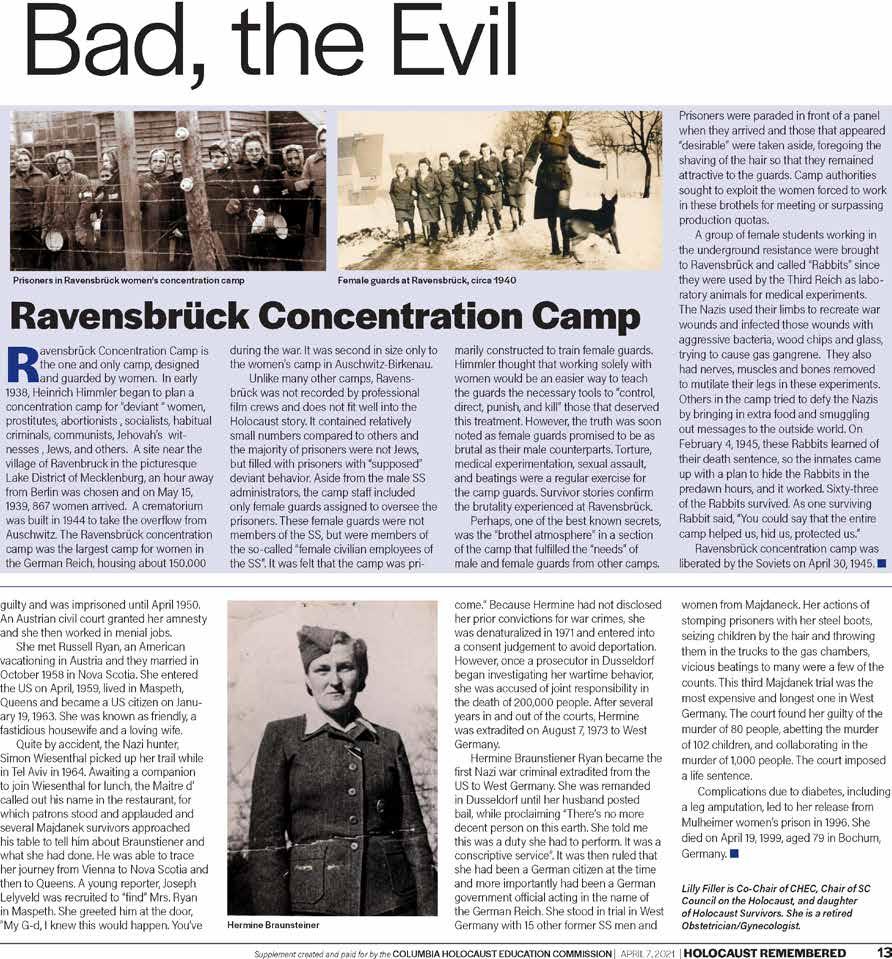
207
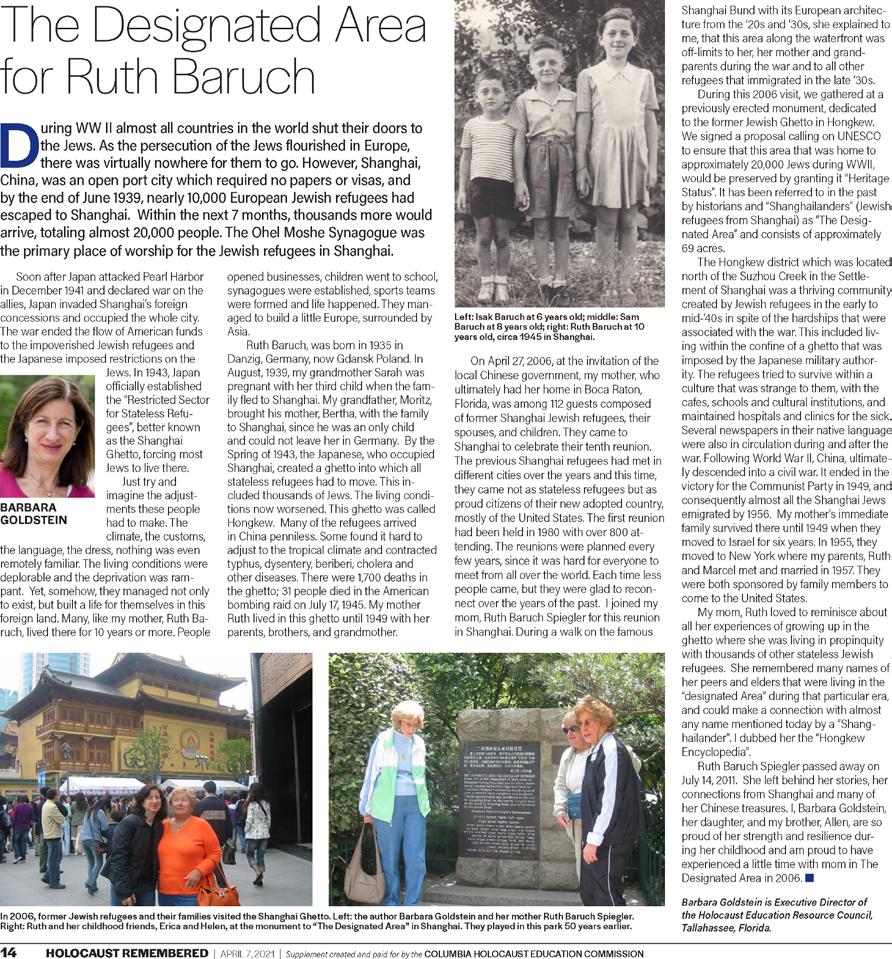
208
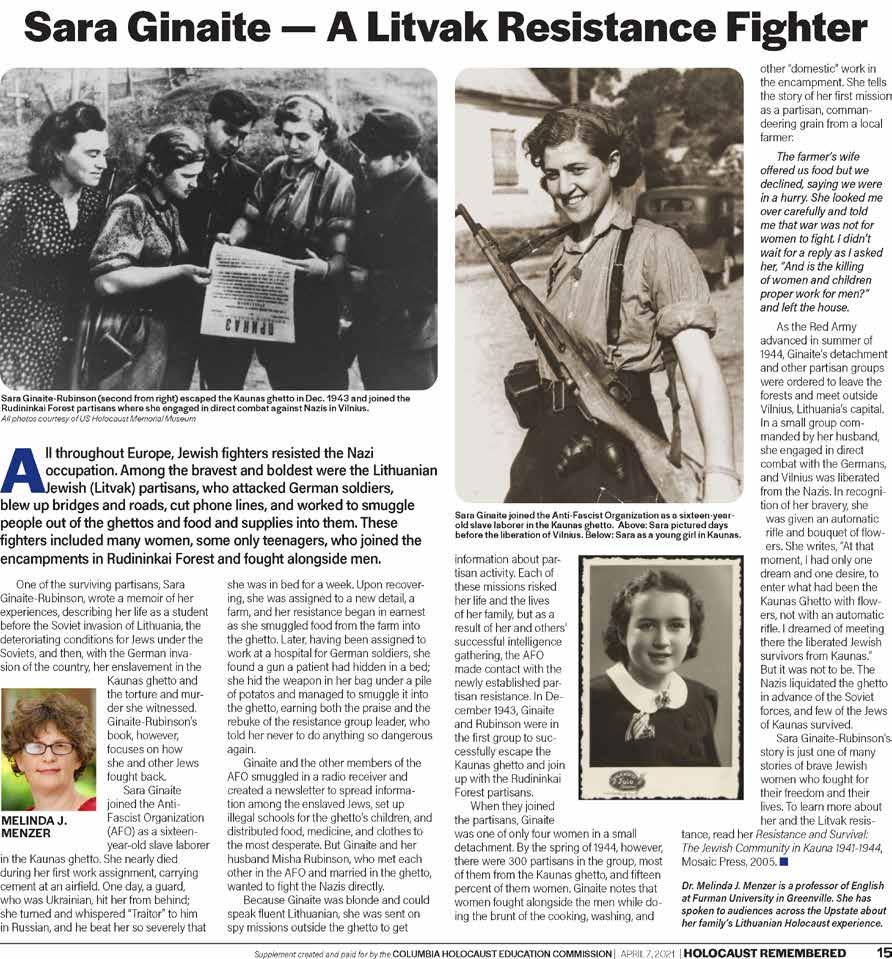
209

210
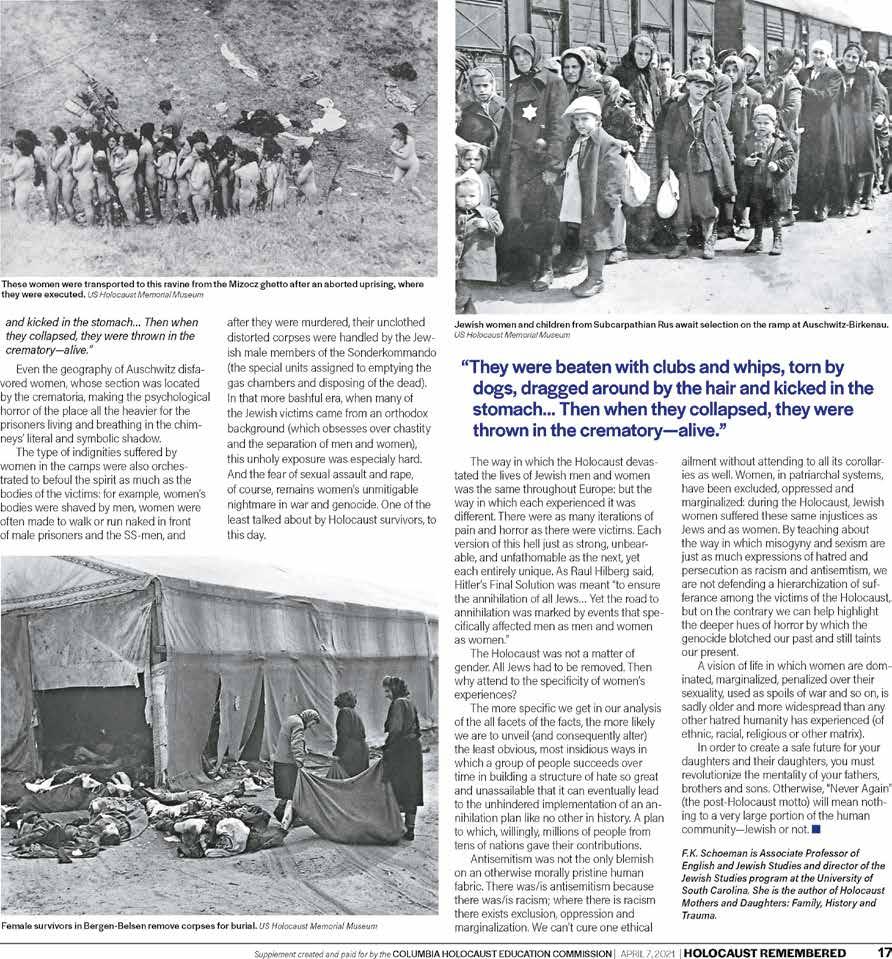
211

212
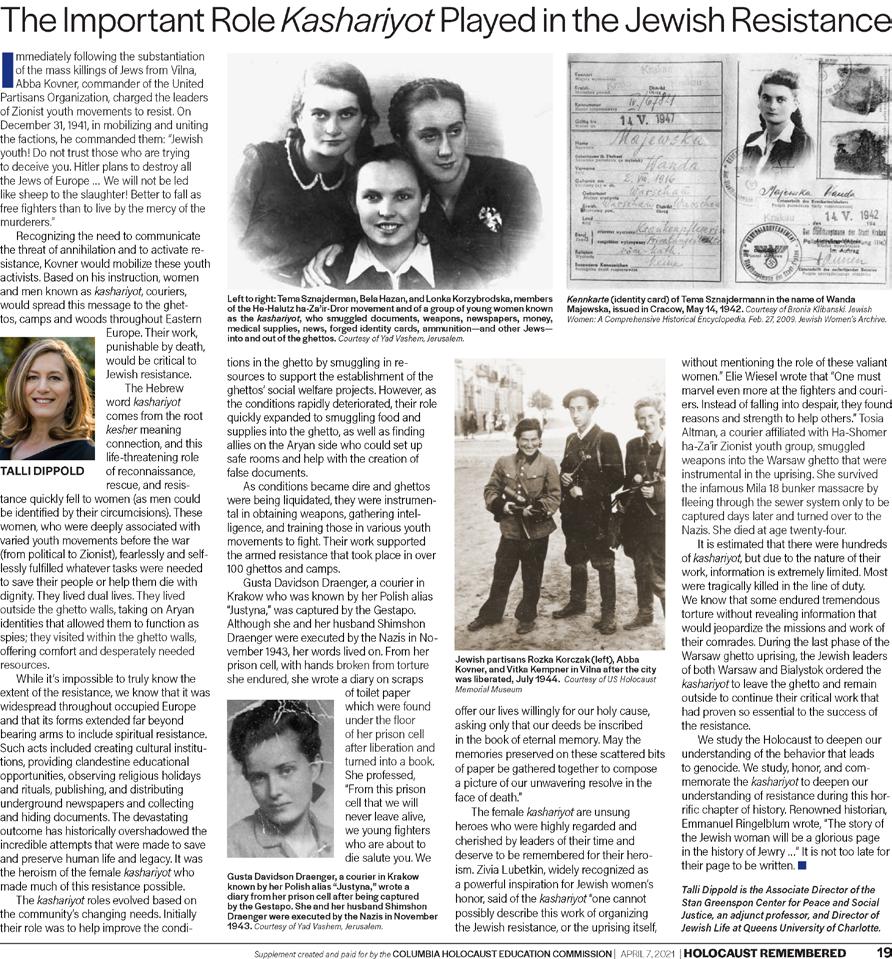
213
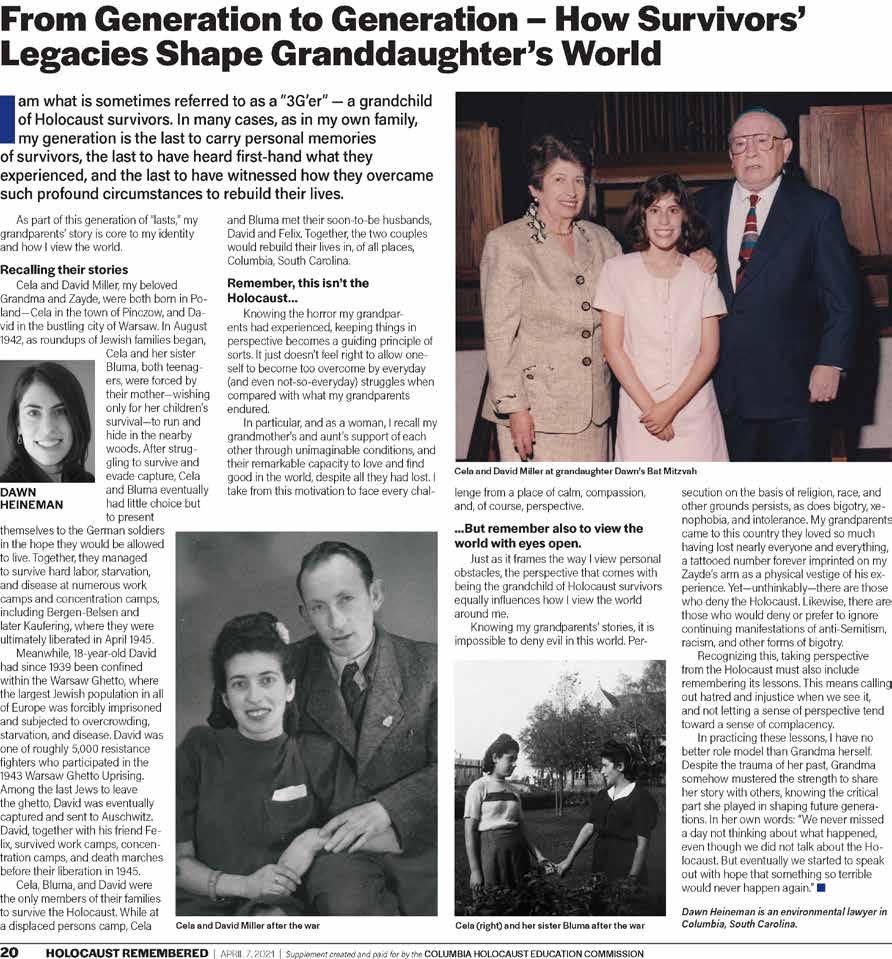
214
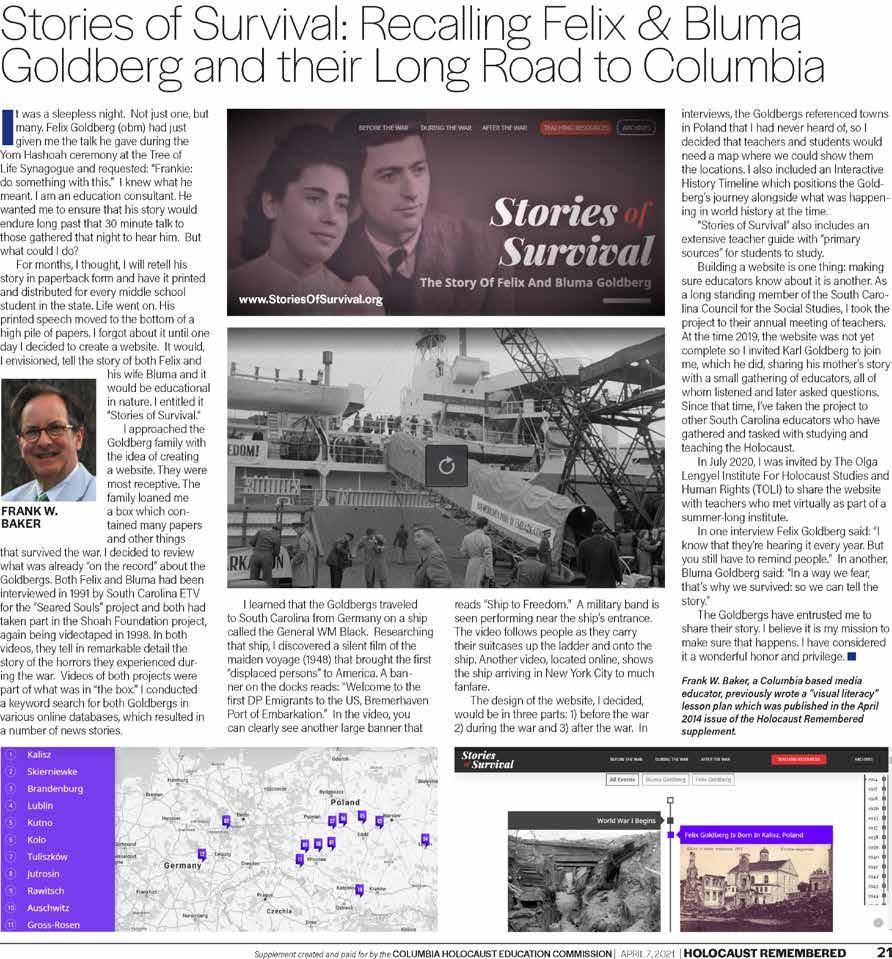
215
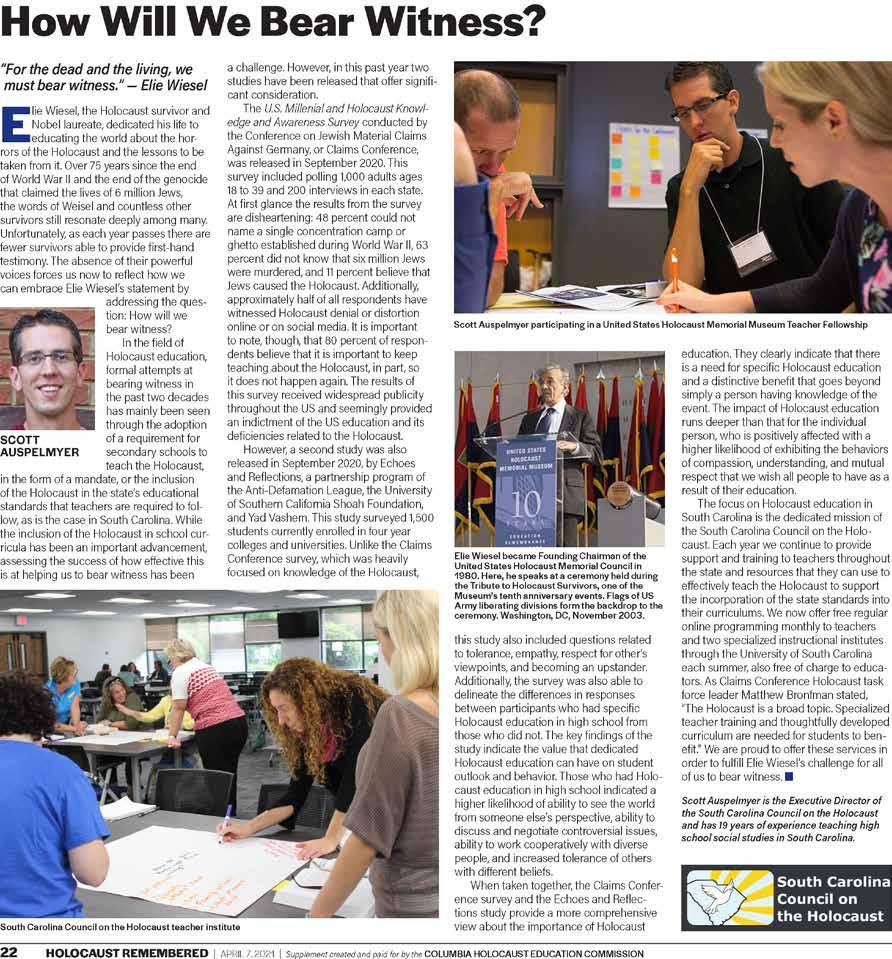
216

217
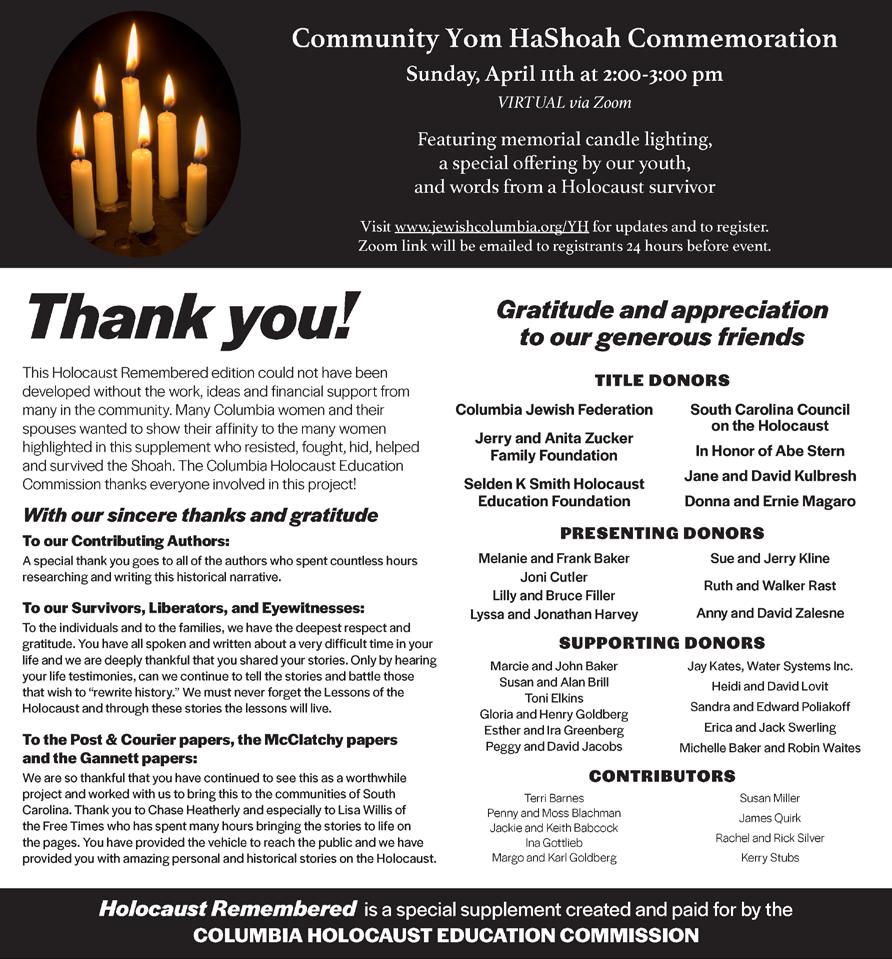
218
219
2022
“The Third Reich committed cultural genocide on top of the physical genocide of six million Jews.”
— Marc Masurovsky Historian and Co-founder Holocaust Art Restitution Project
220
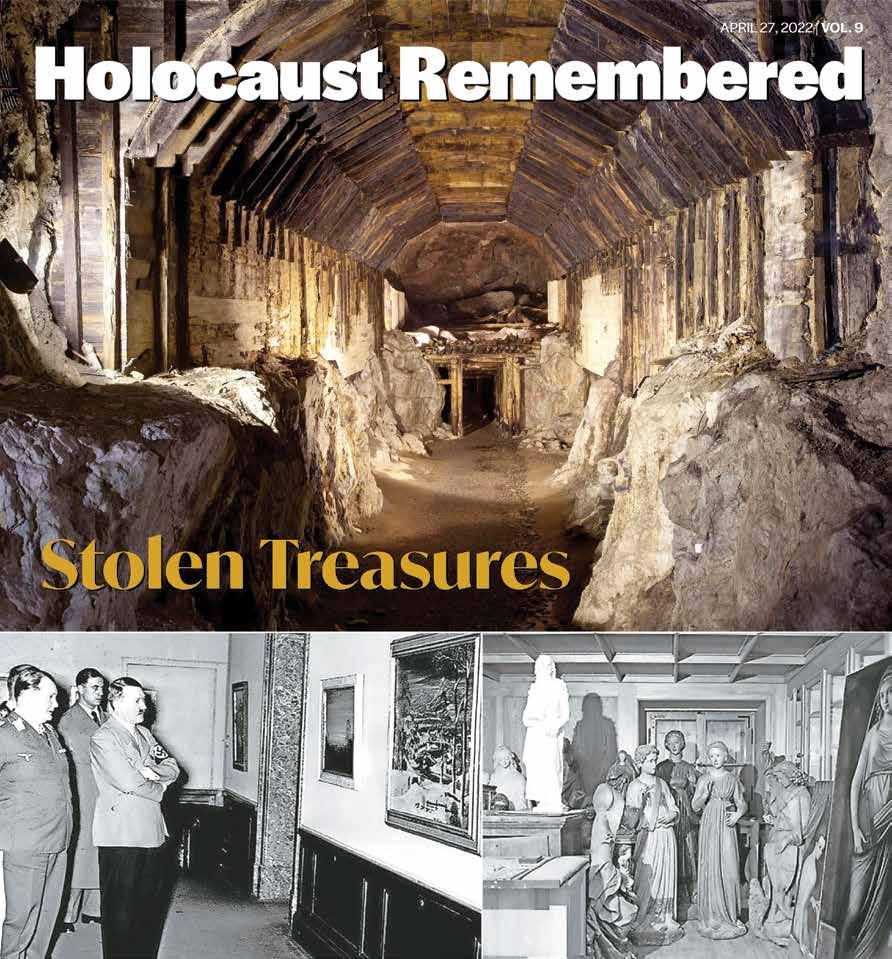
221
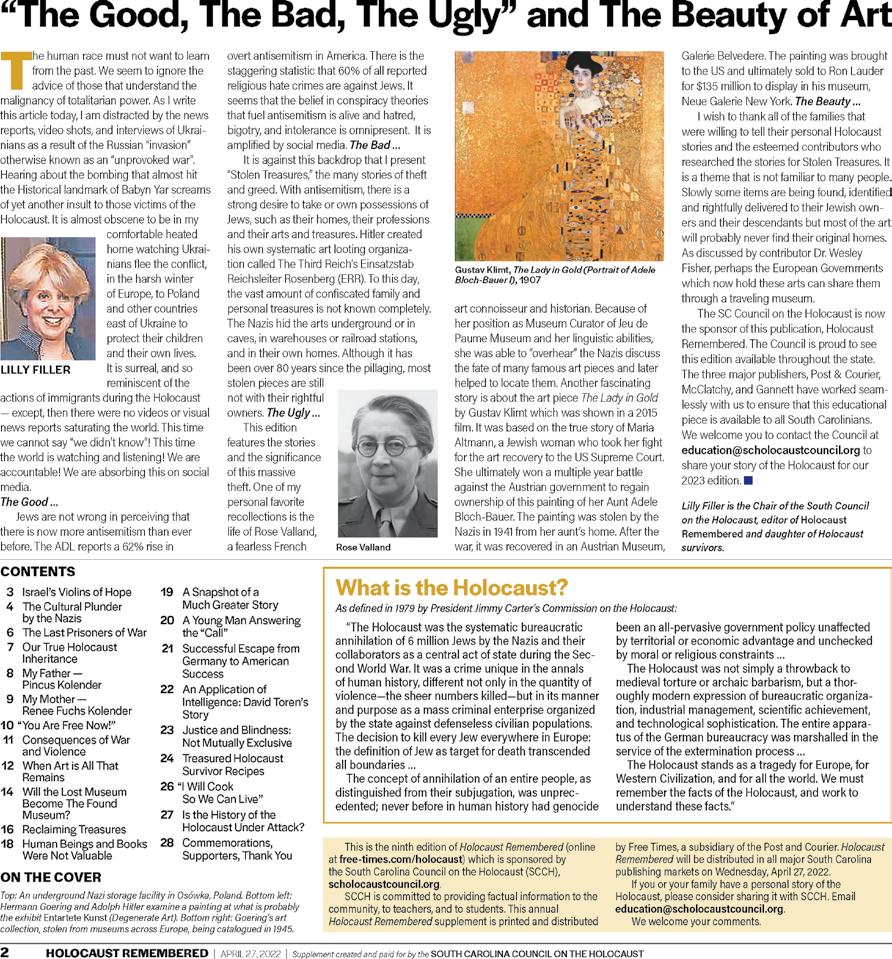
222

223
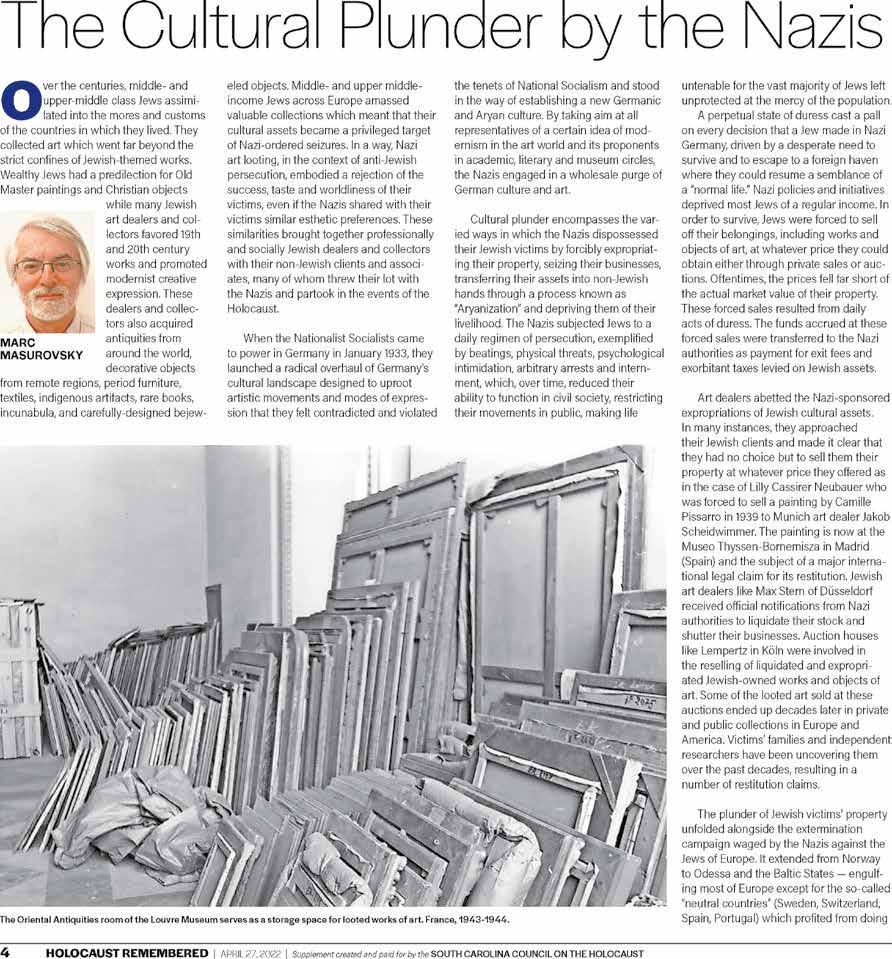
224

225
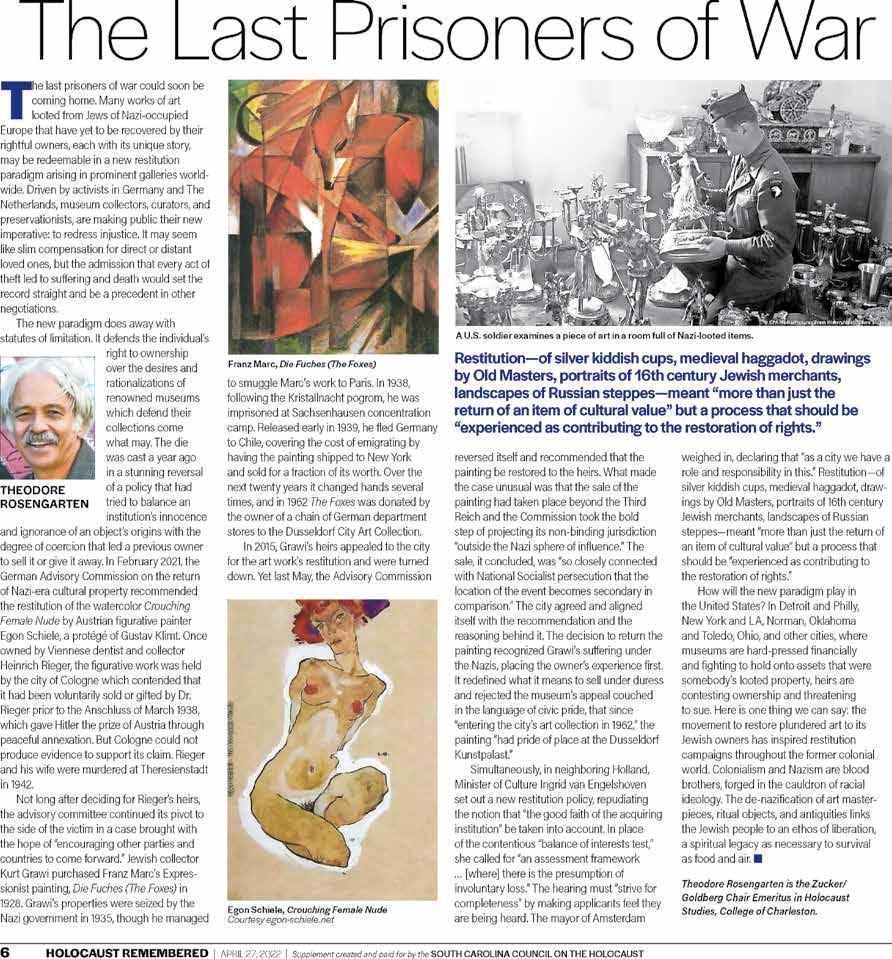
226
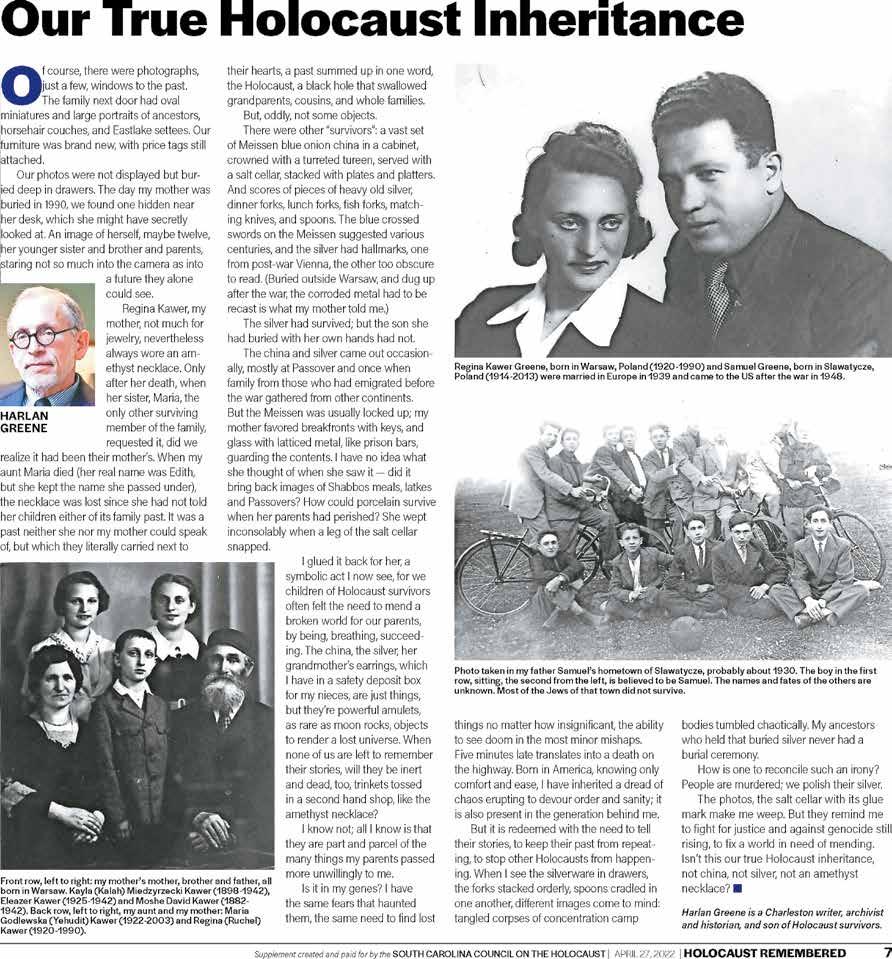
227
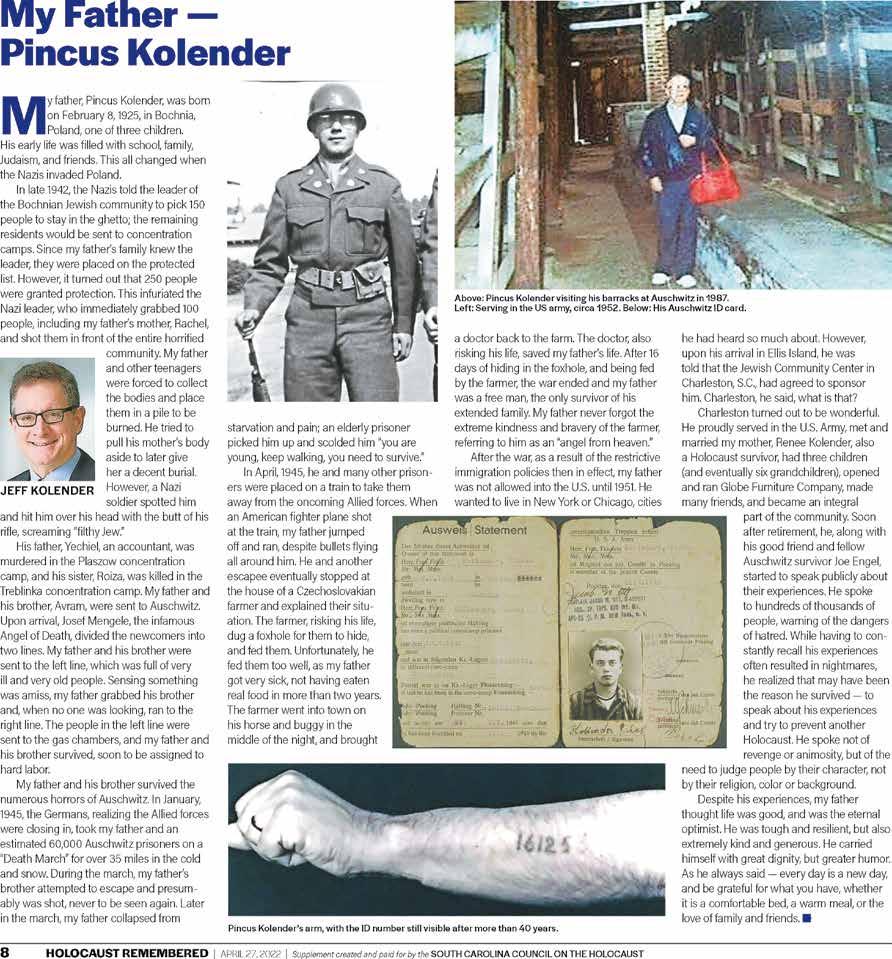
228
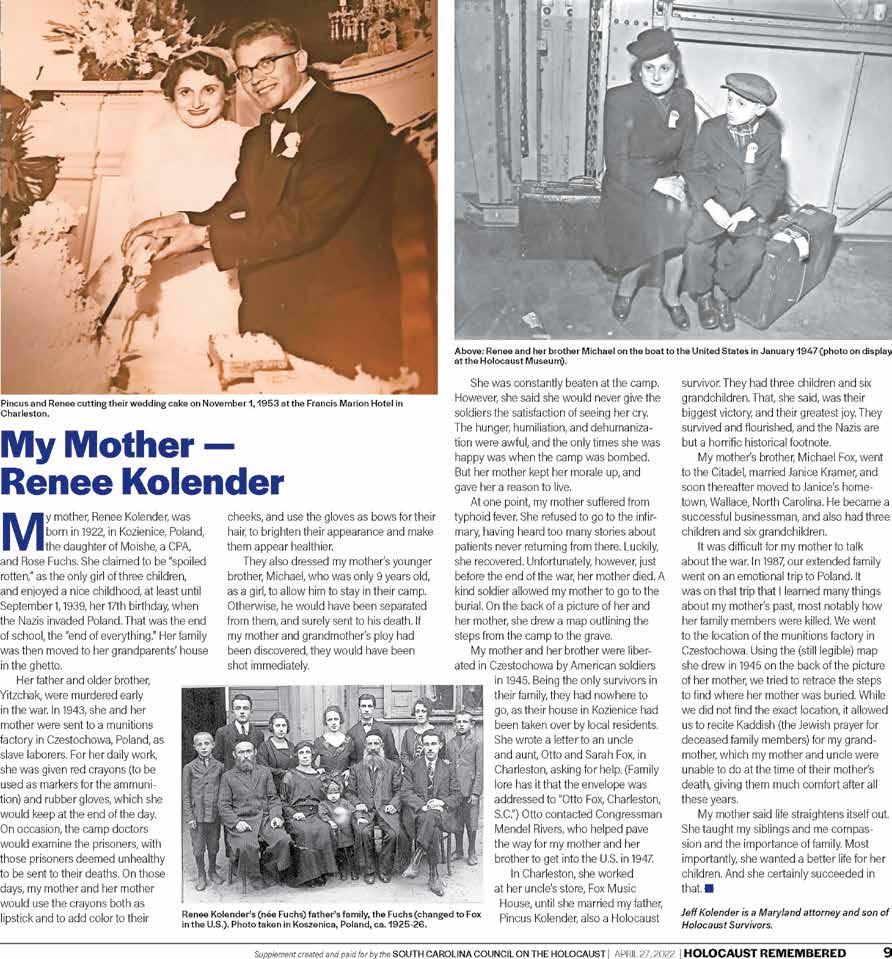
229
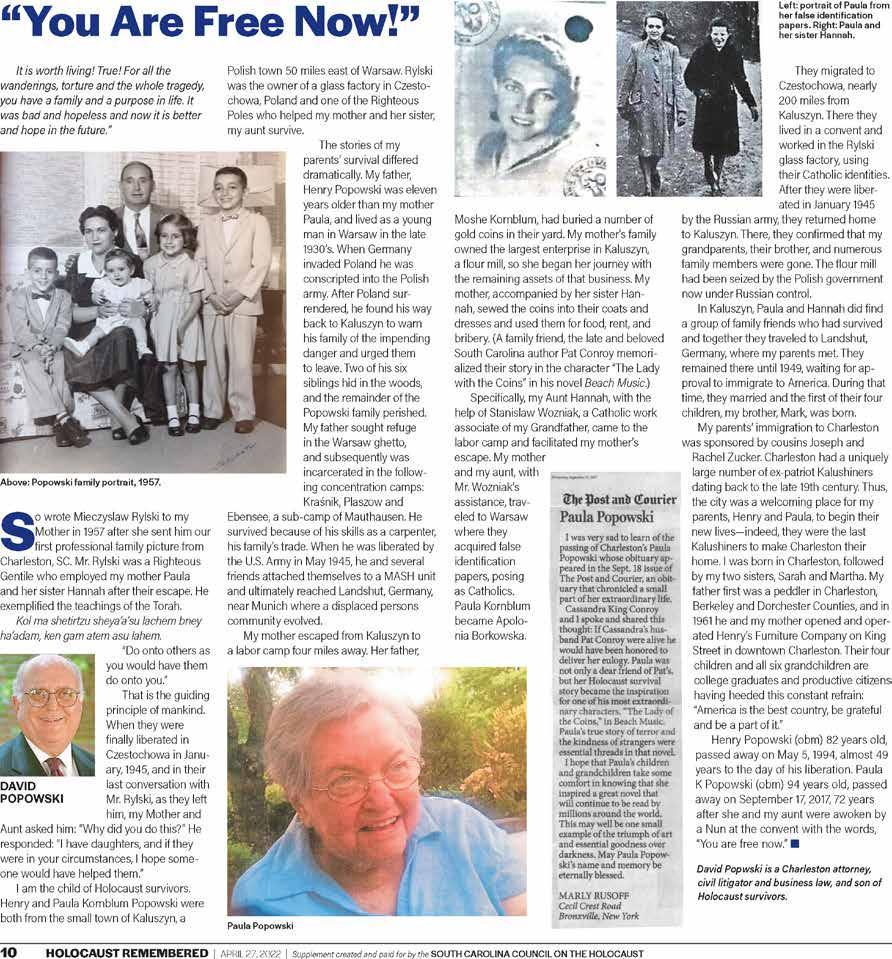
230
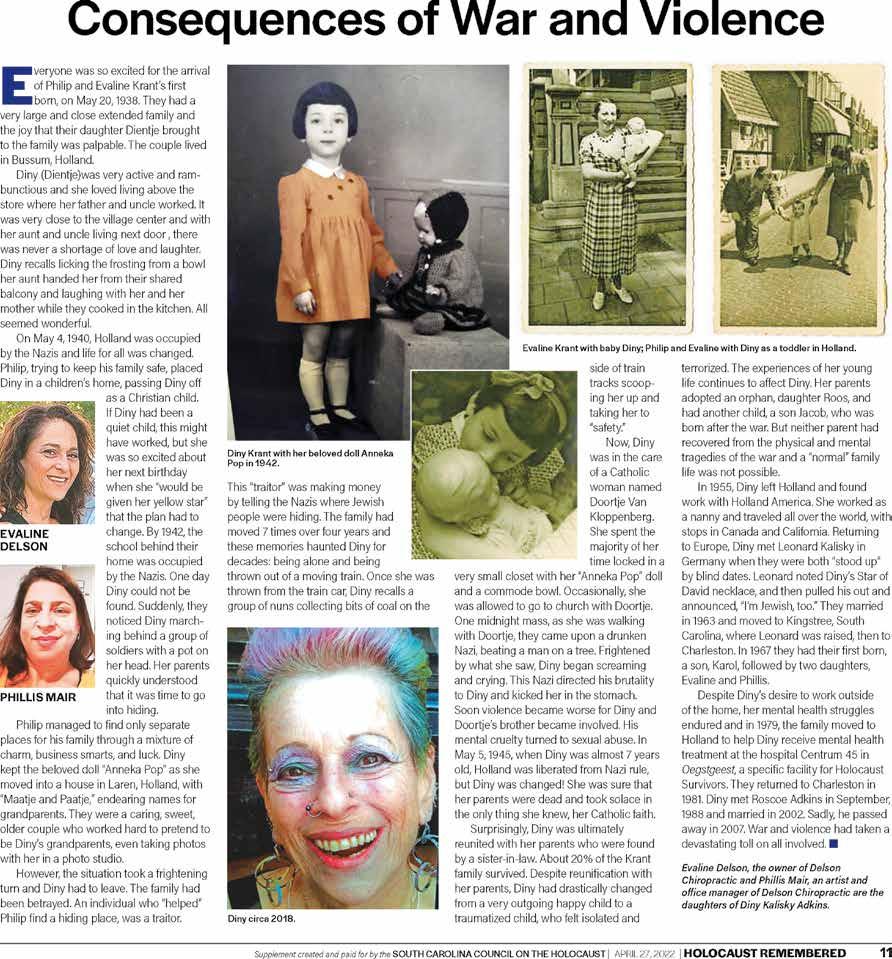
231

232
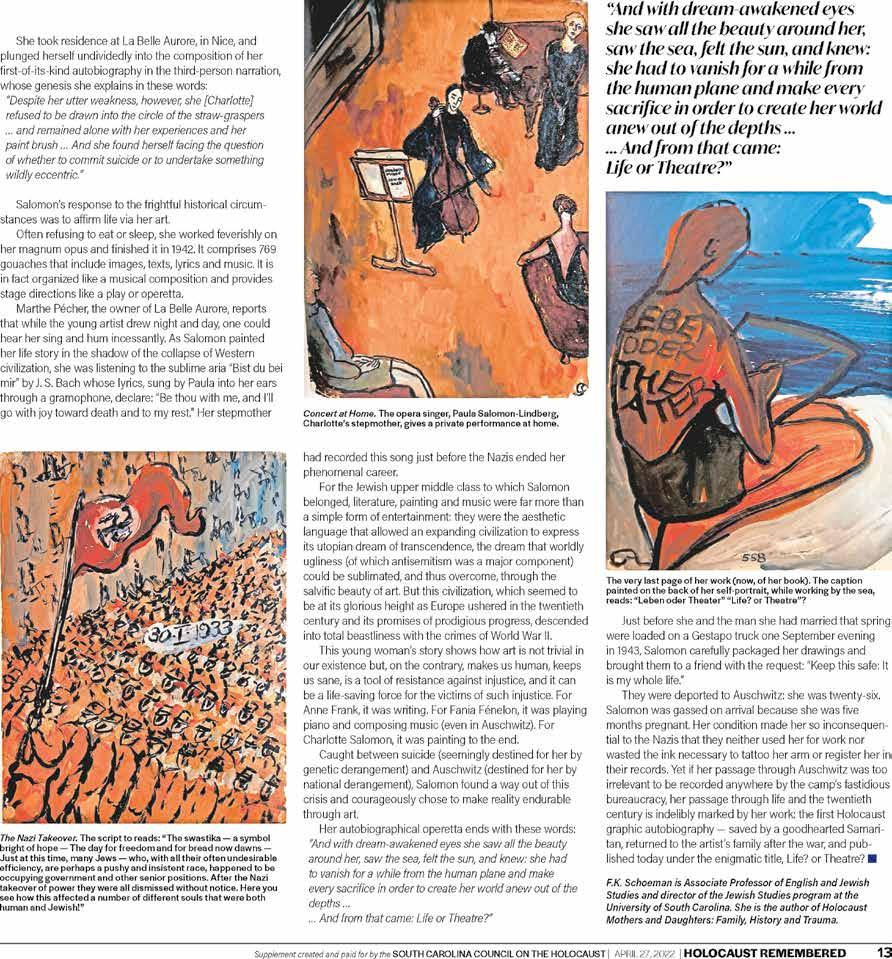
233
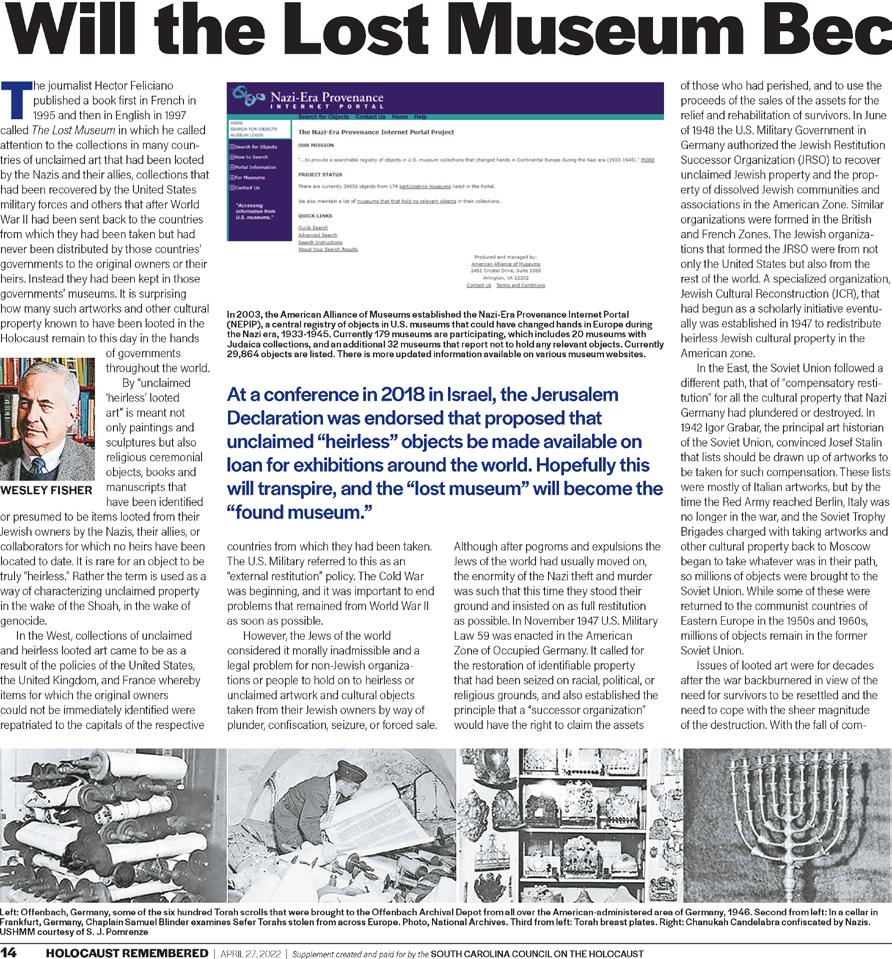
234
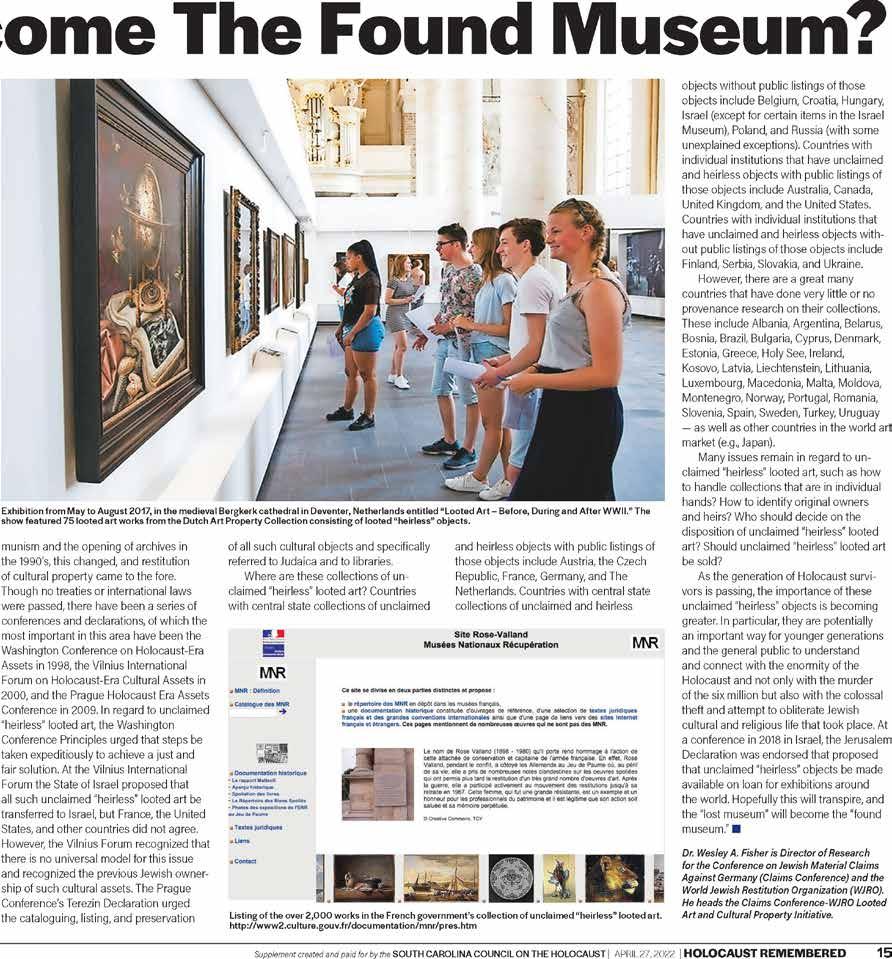
235
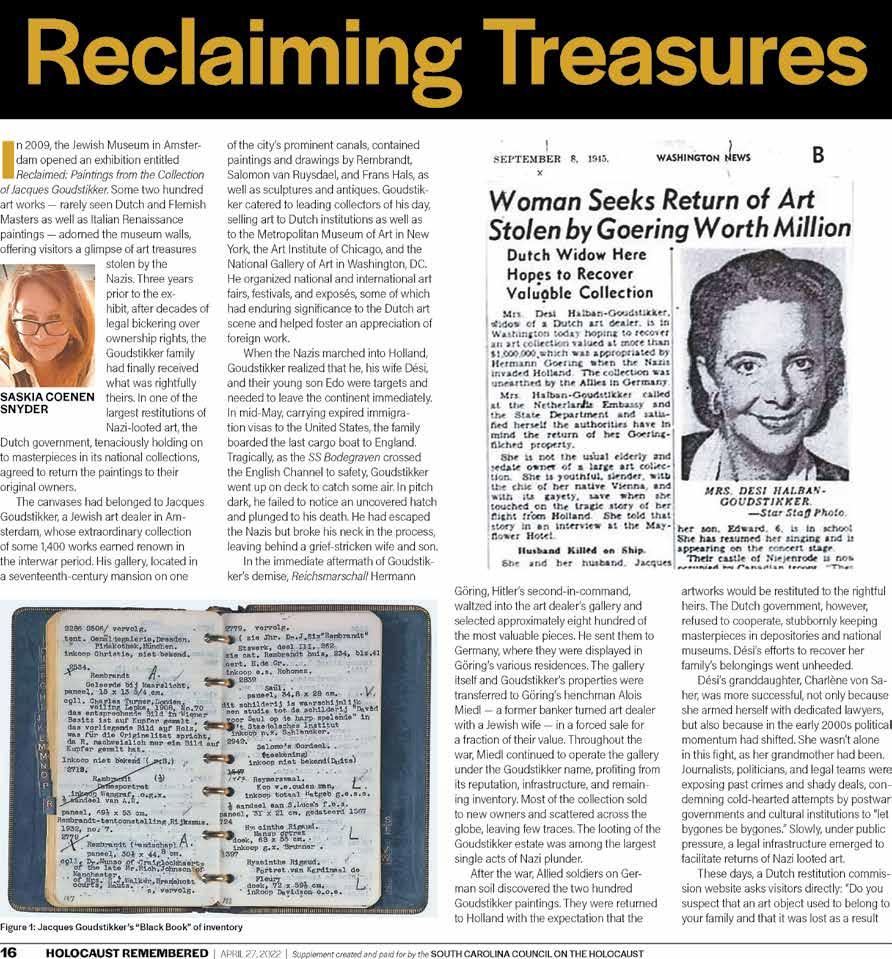
236
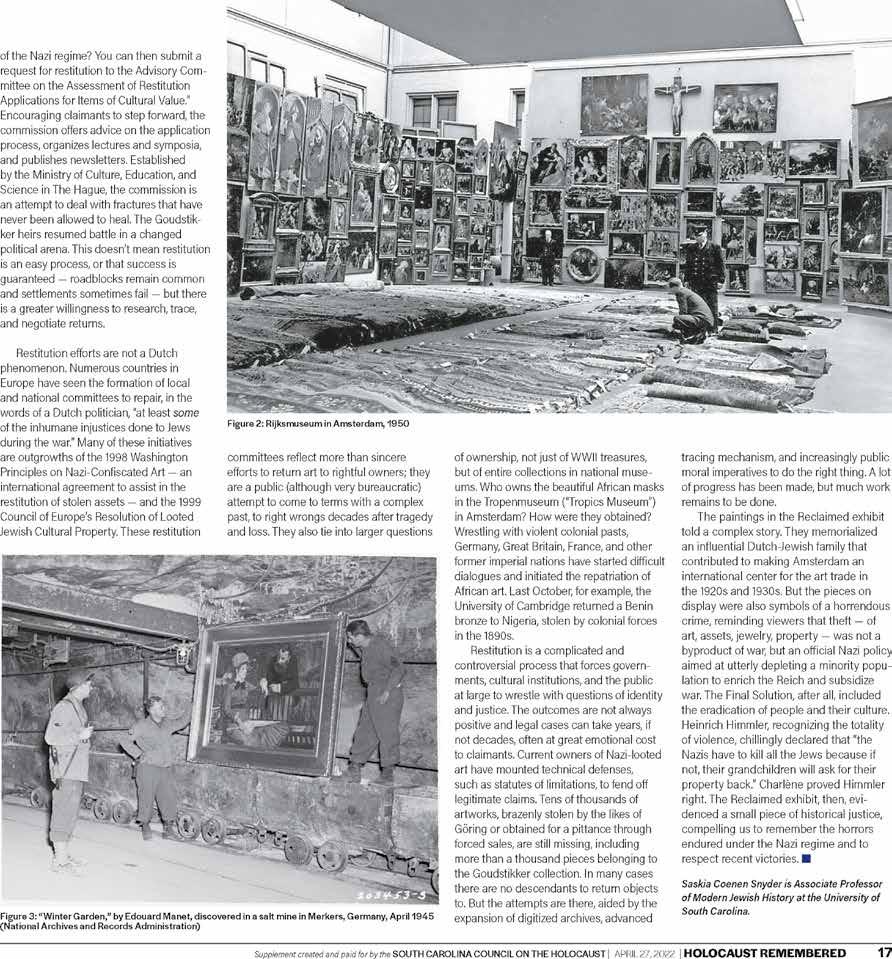
237
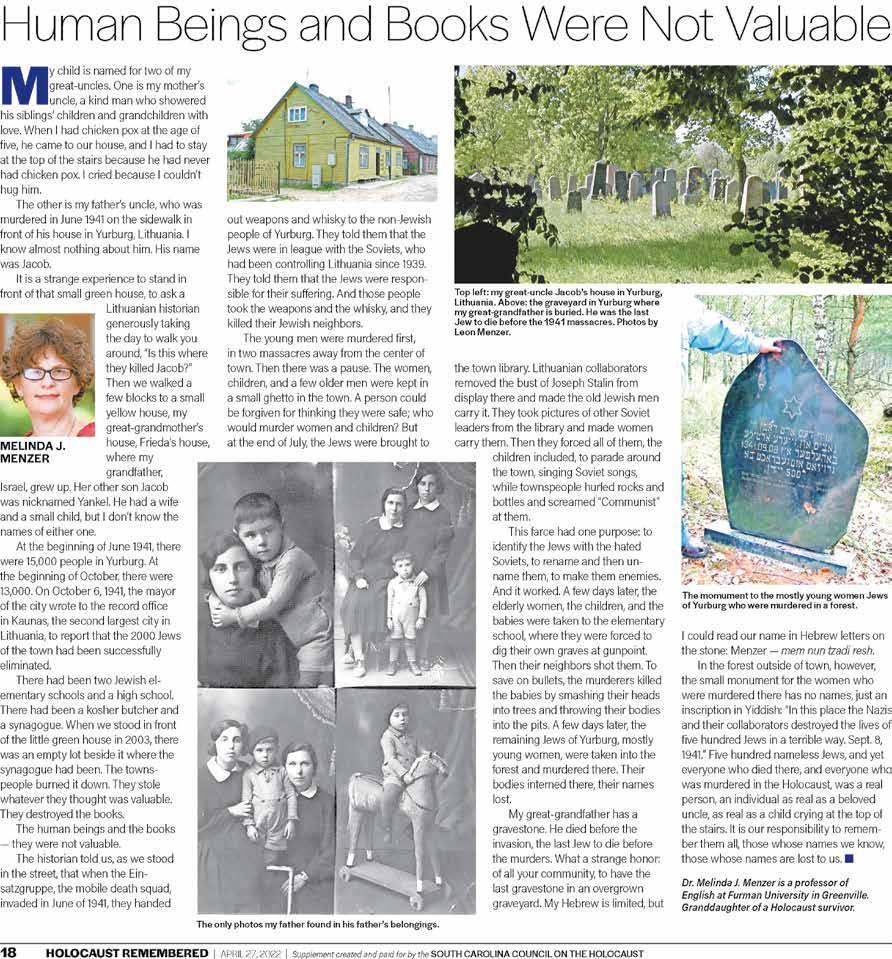
238
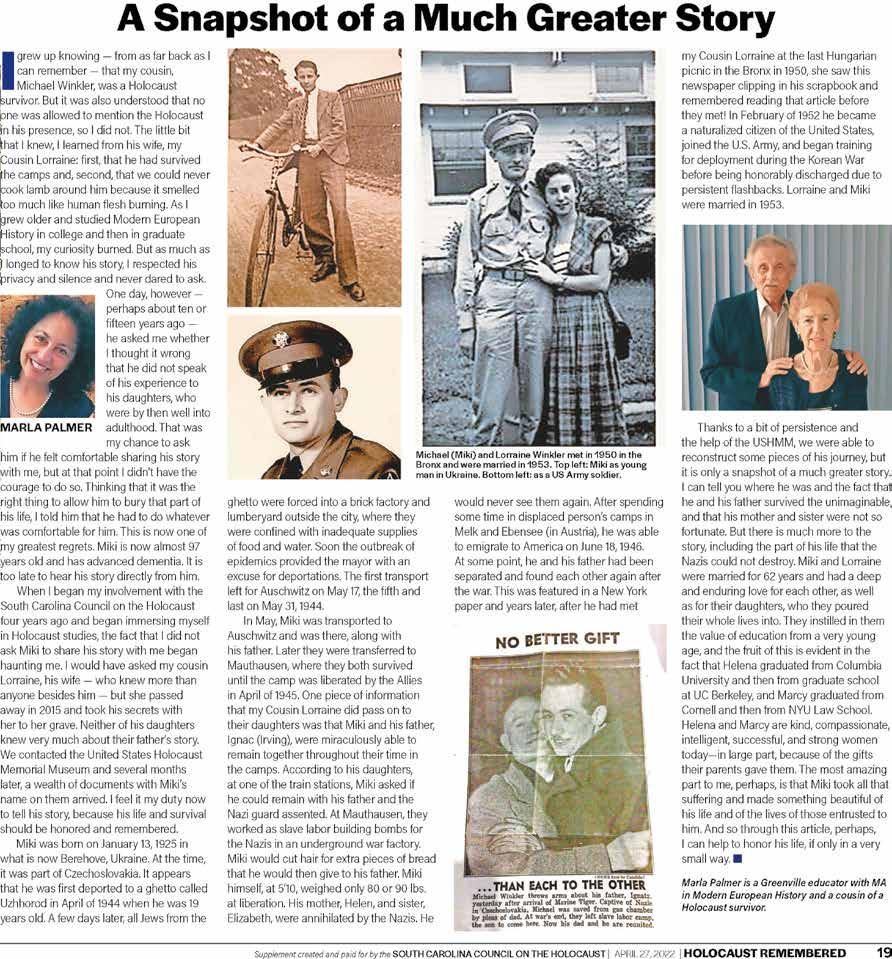
239
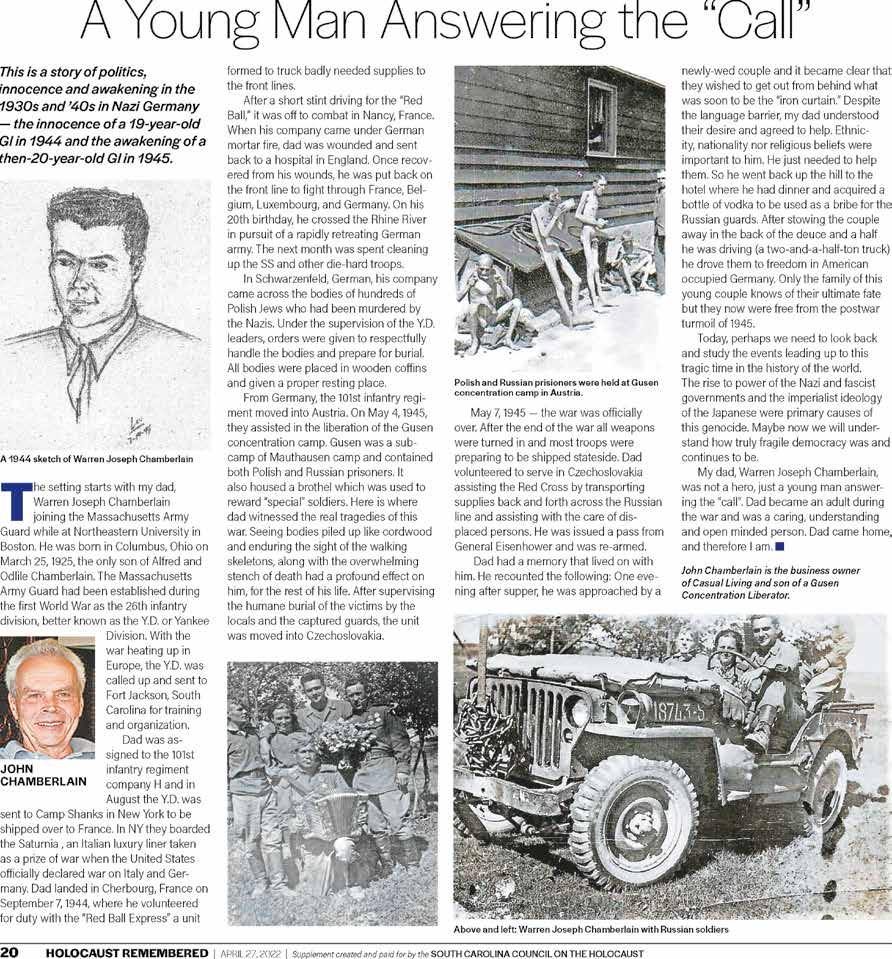
240
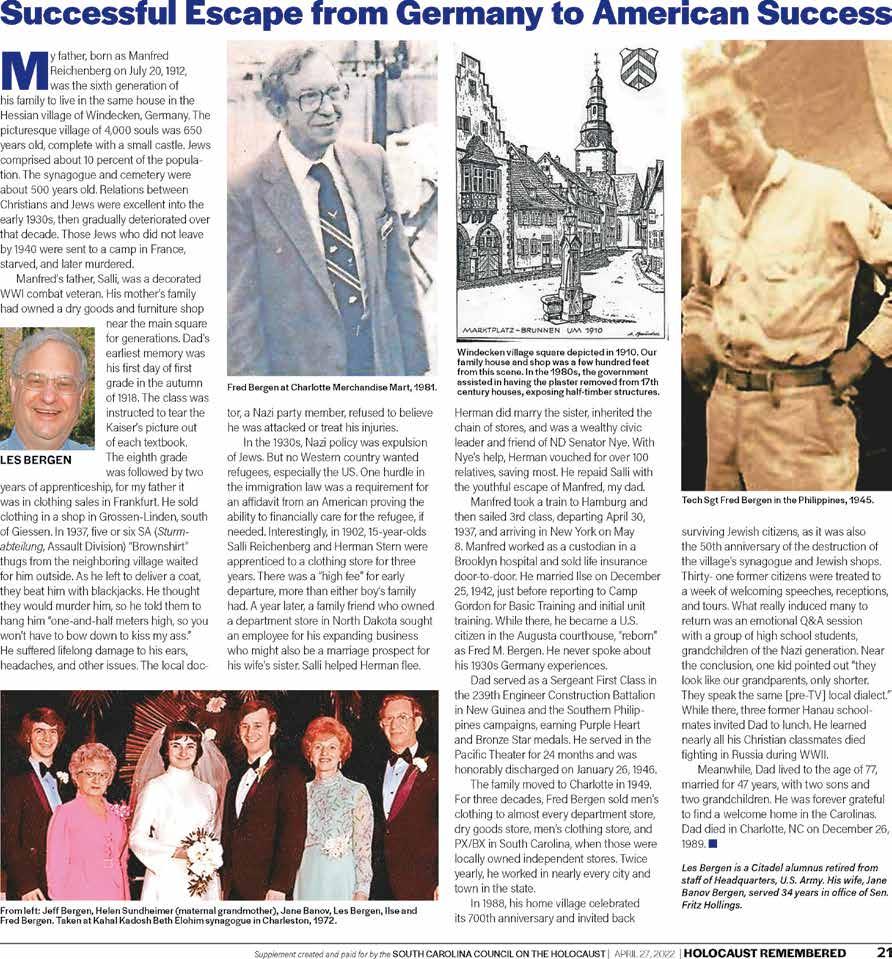
241
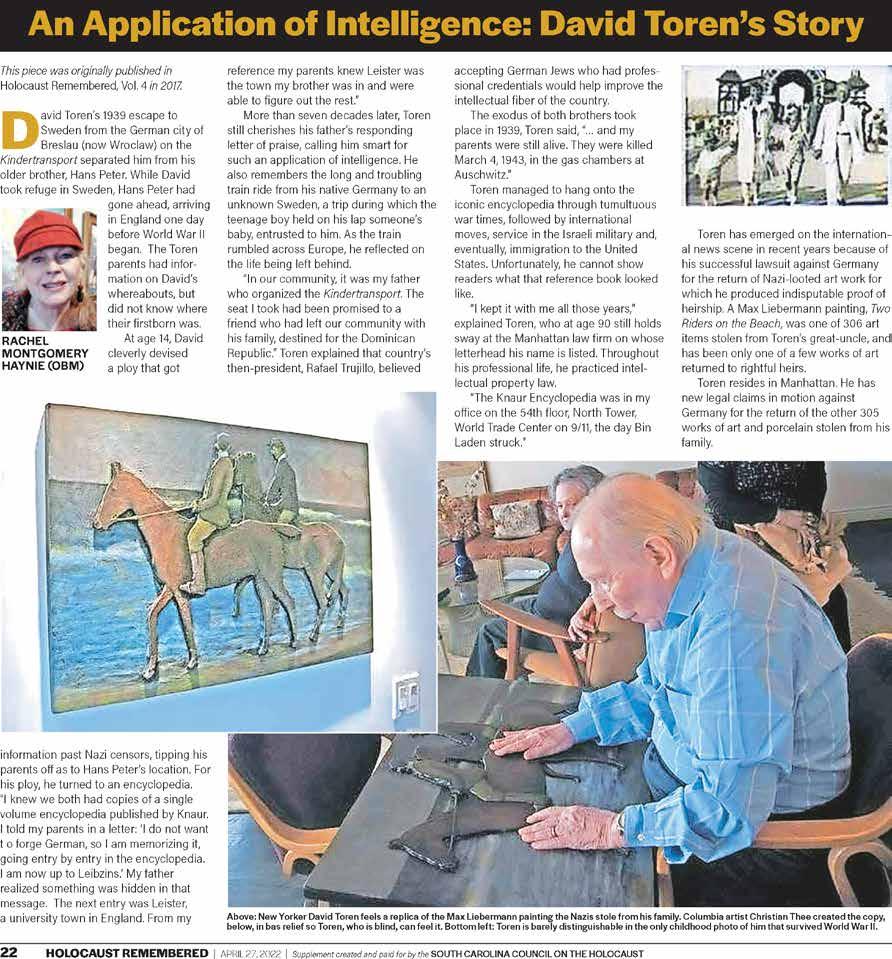
242

243
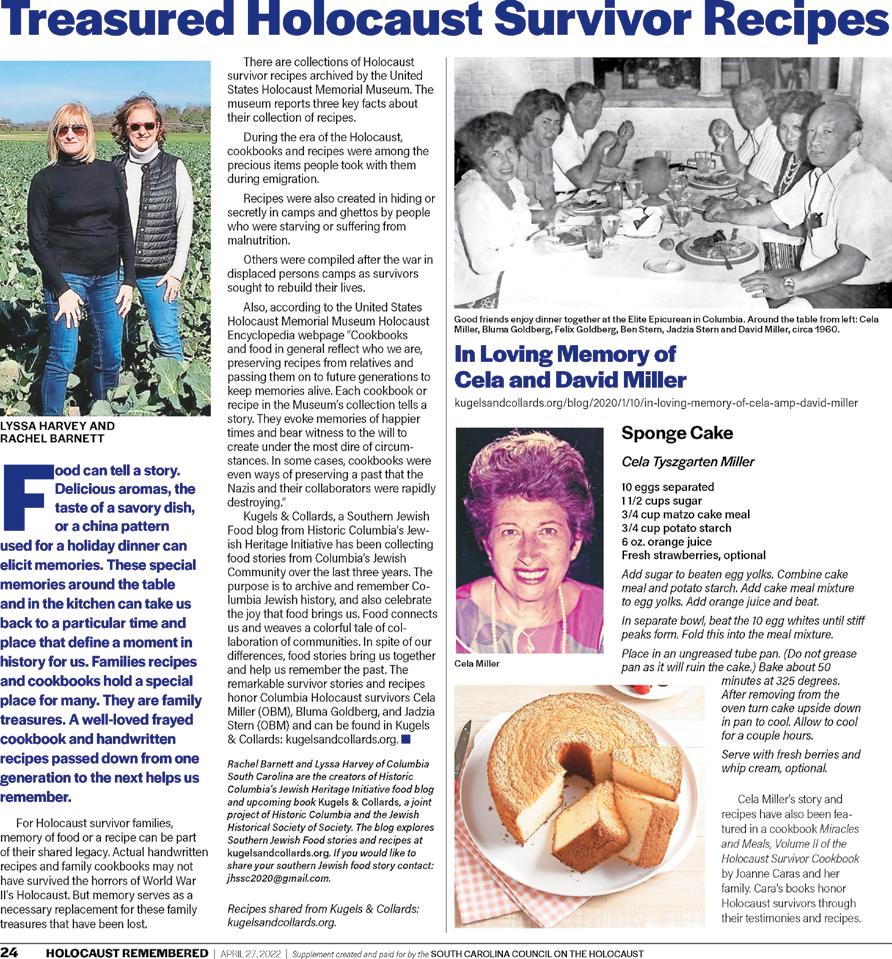
244
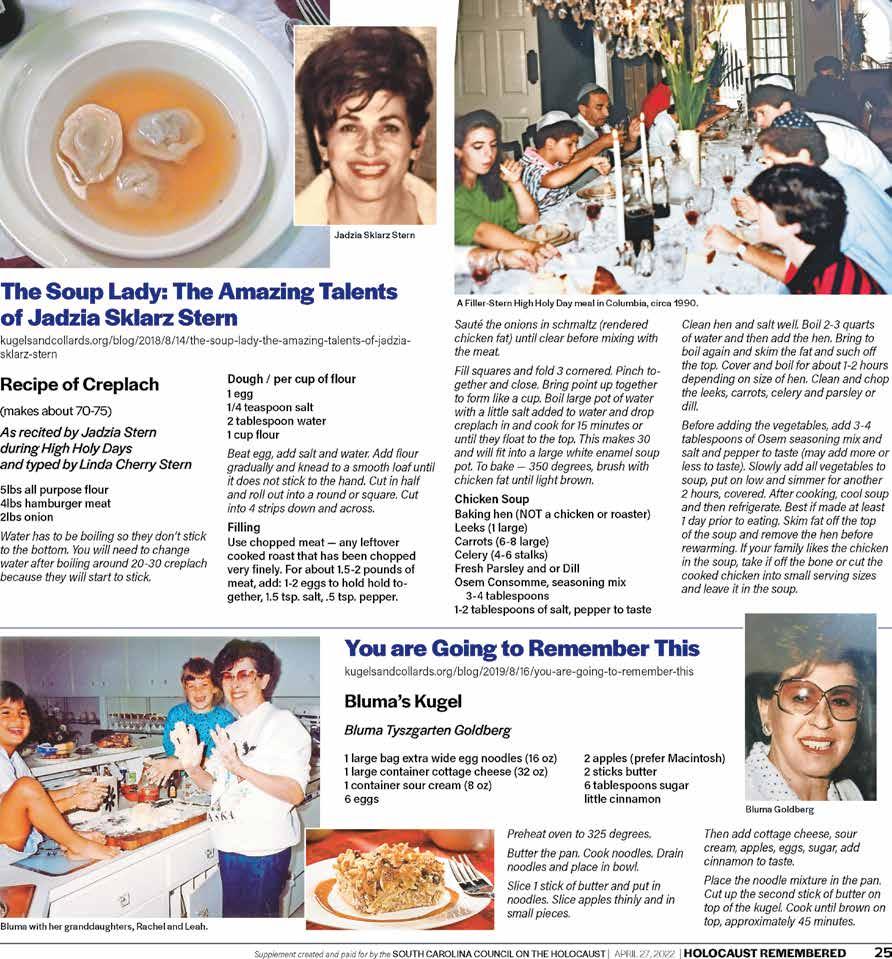
245
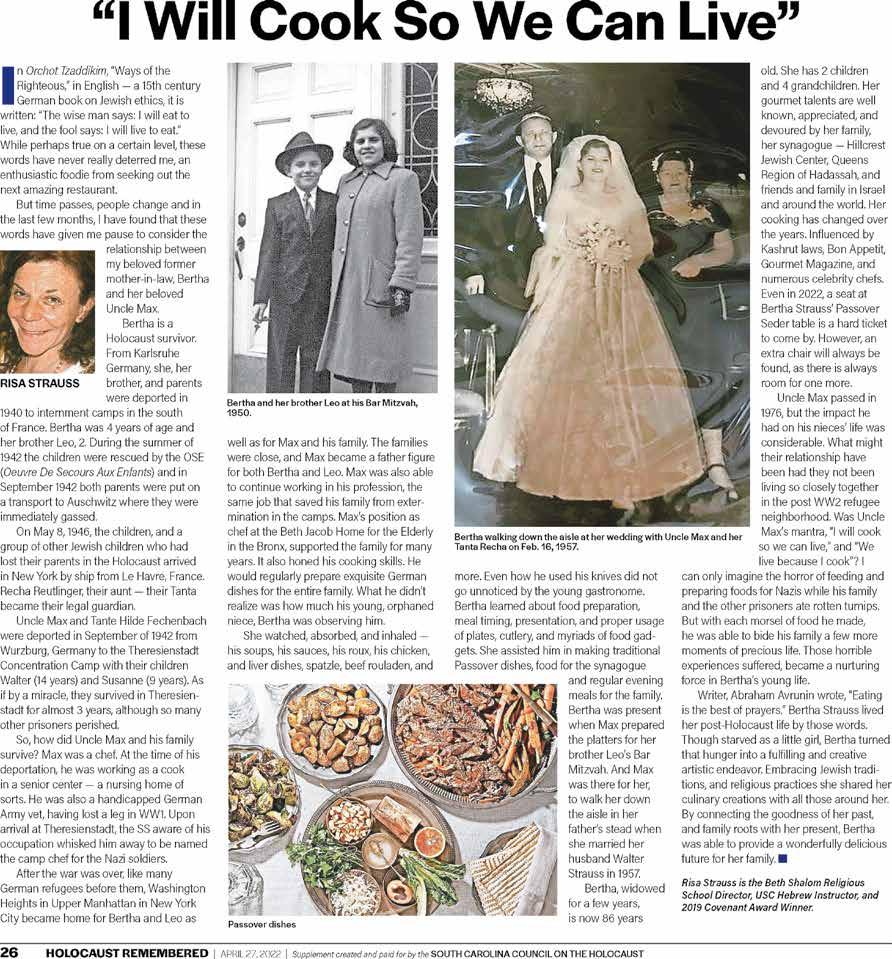
246
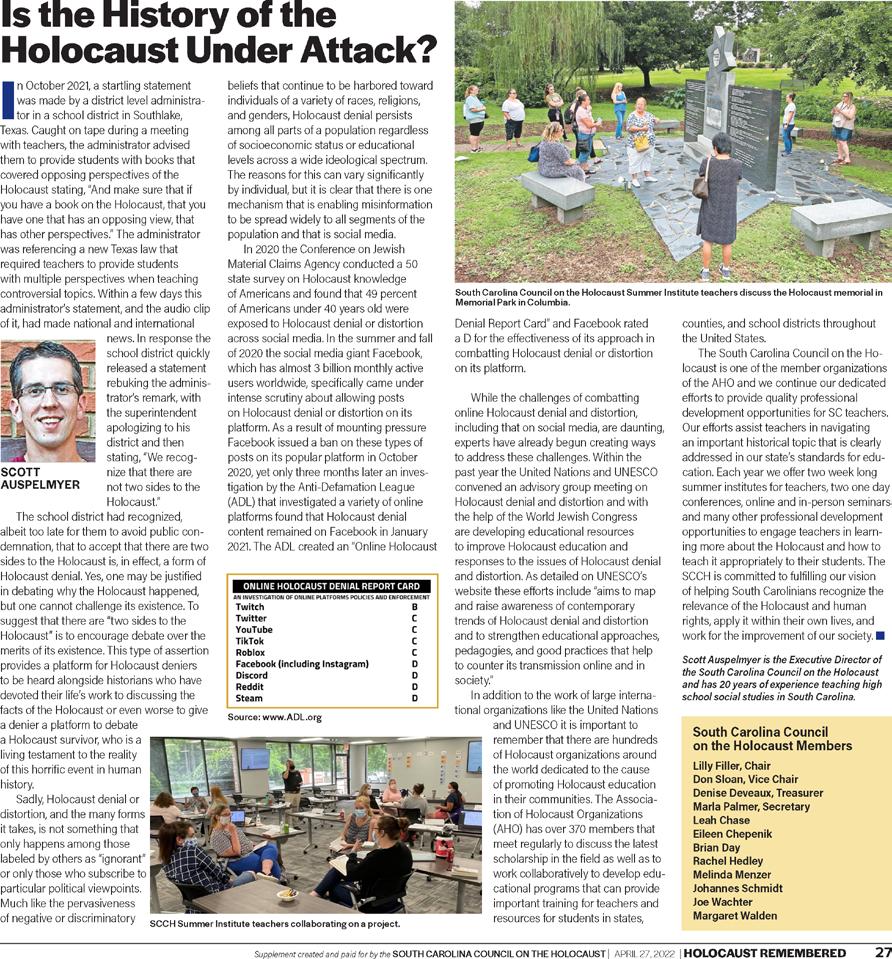
247

248
249
2023
“Memory is for us, history is for others.”
— Dr. Lilly Filler, Editor Holocaust Remembered
250
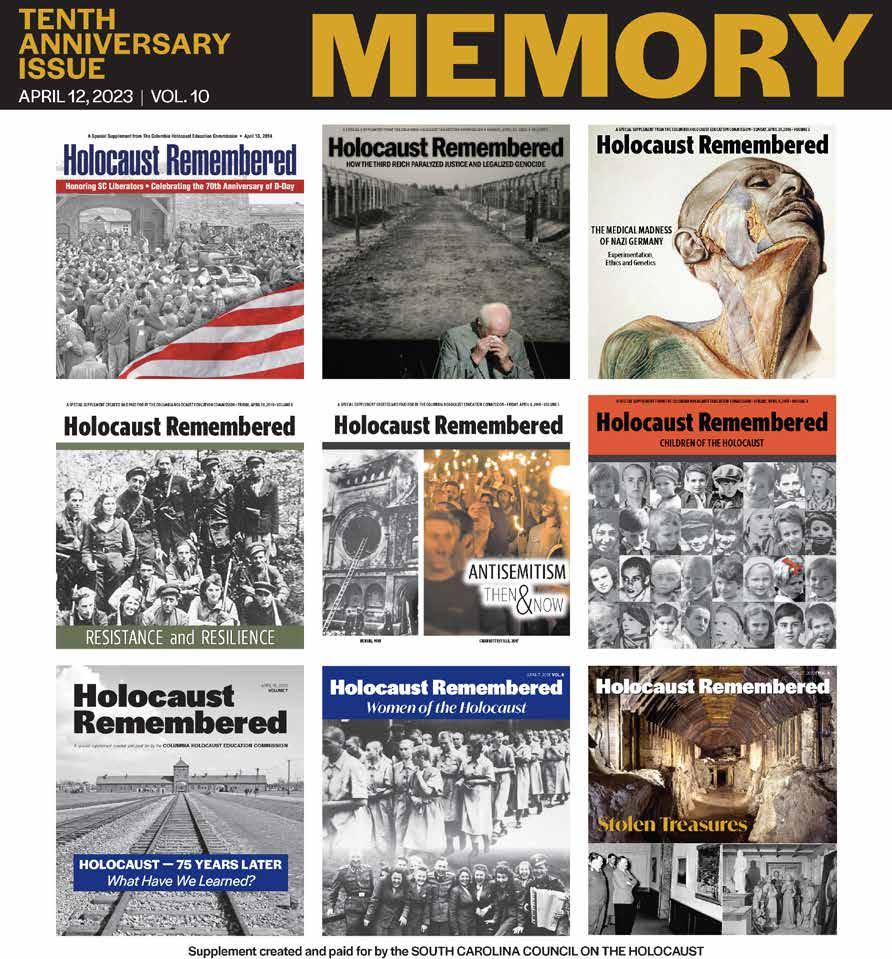
251
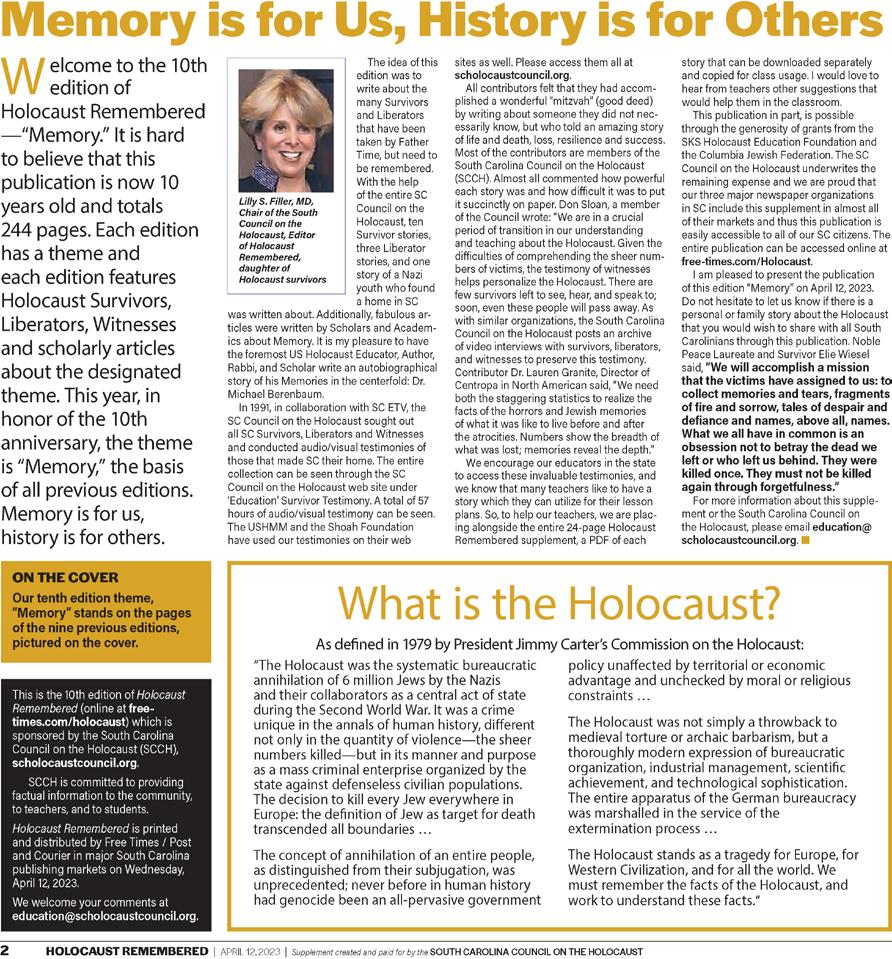
252
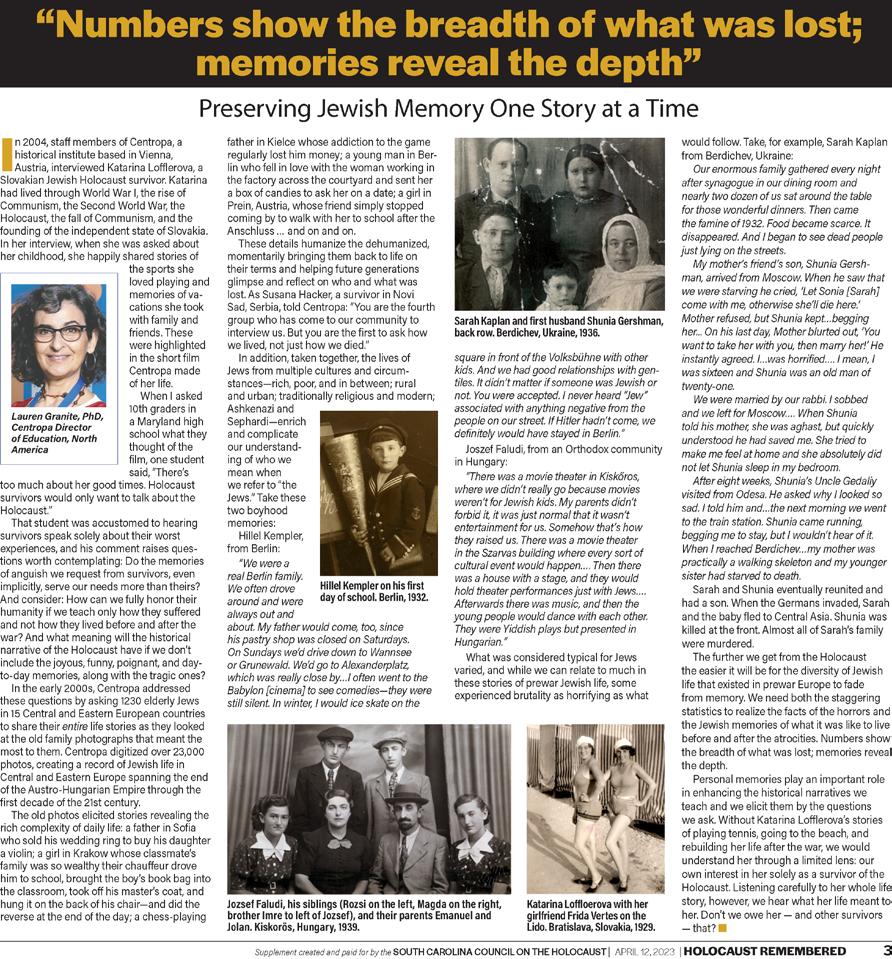
253
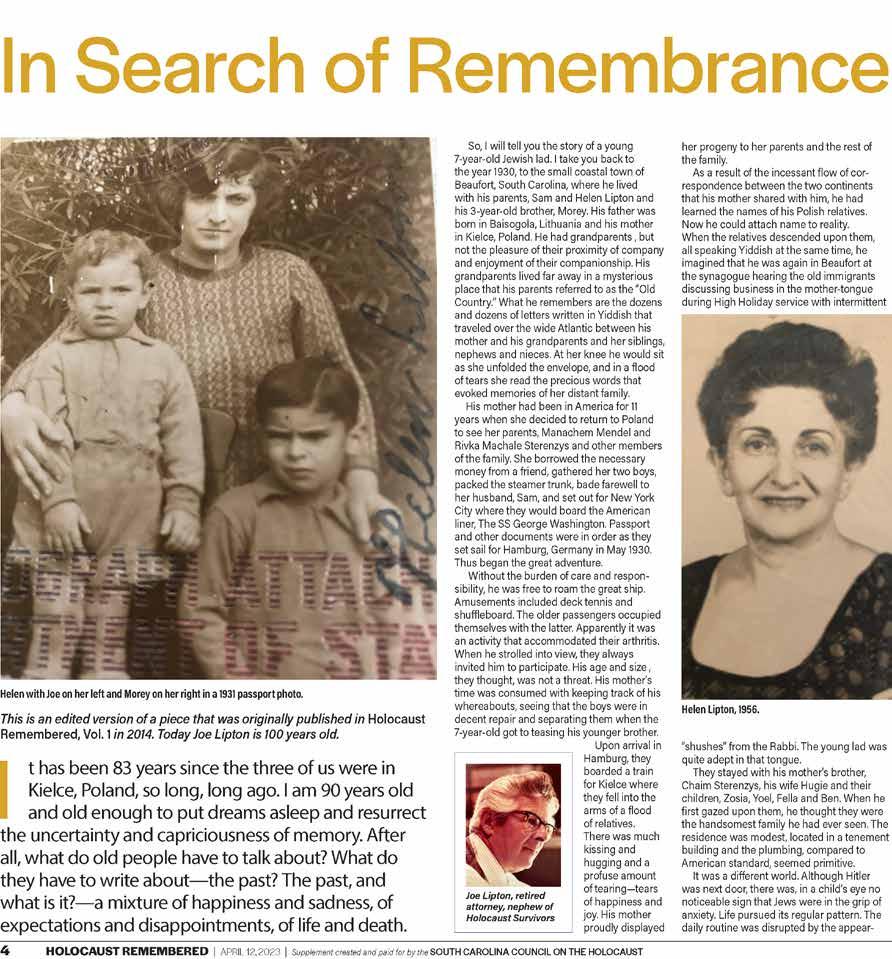
254
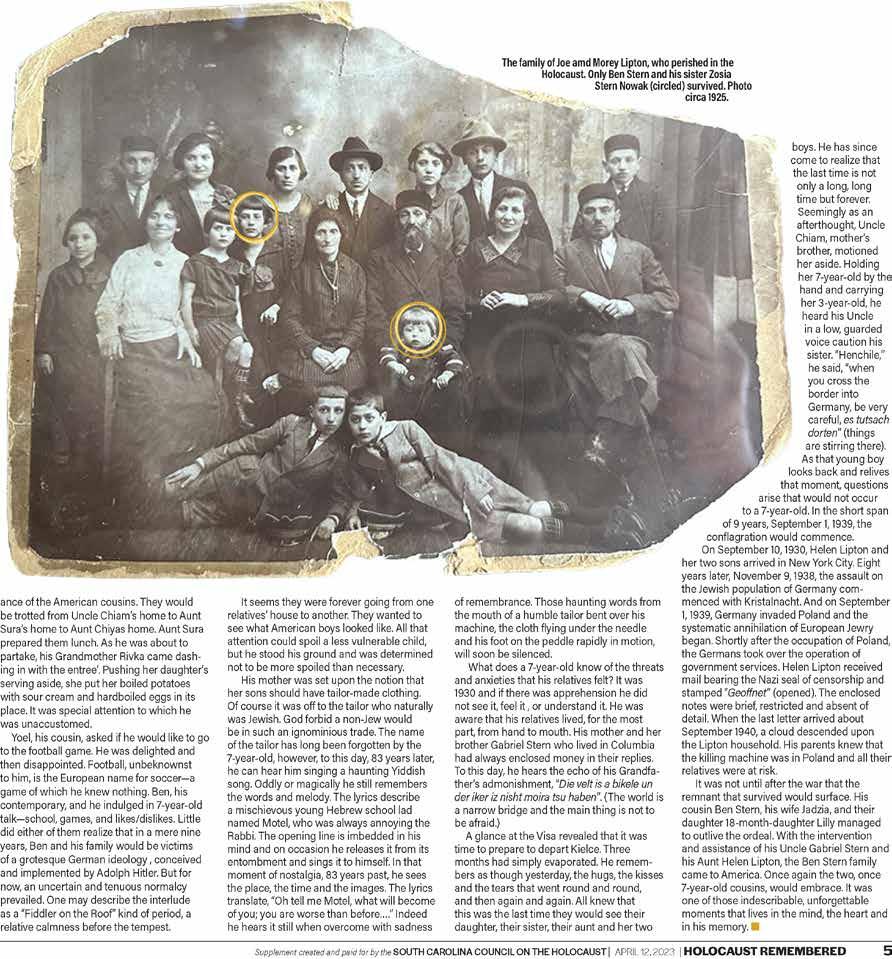
255
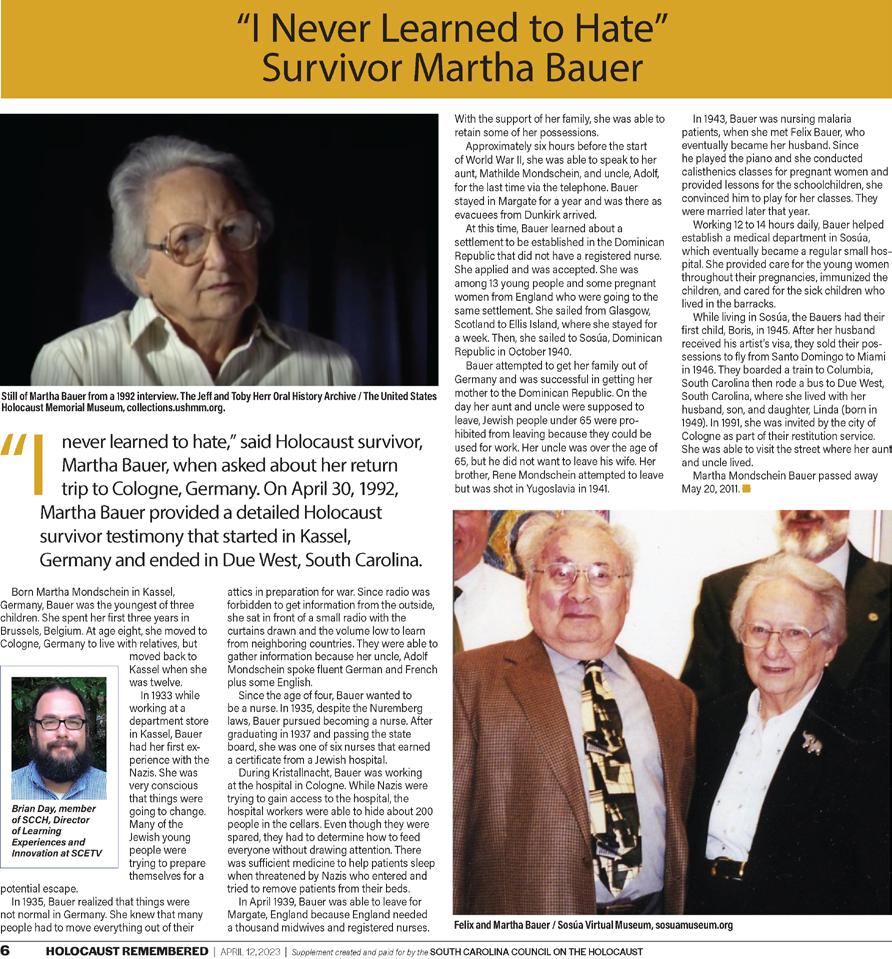
256
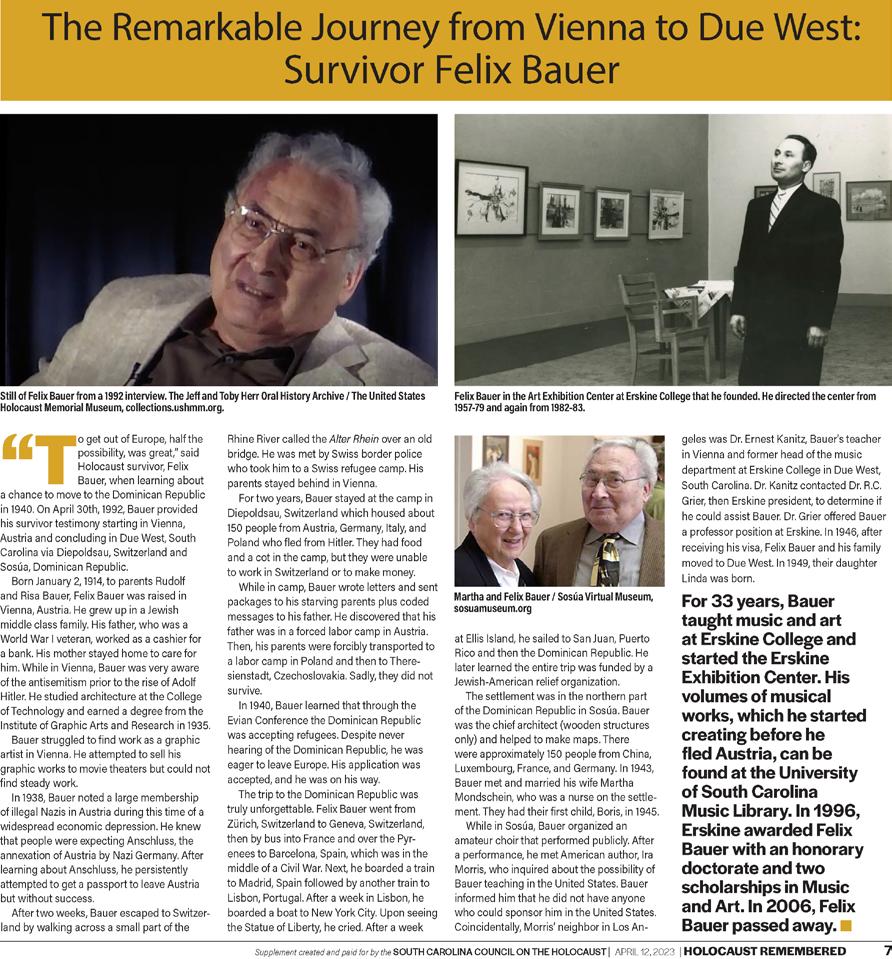
257
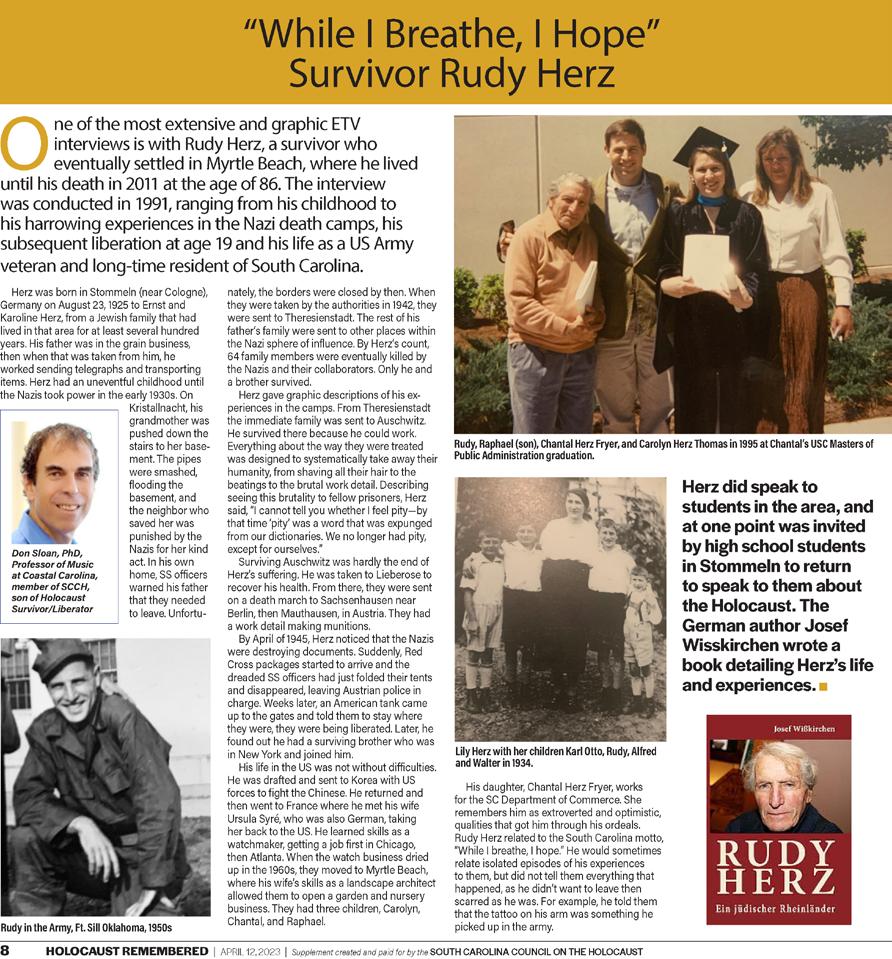
258
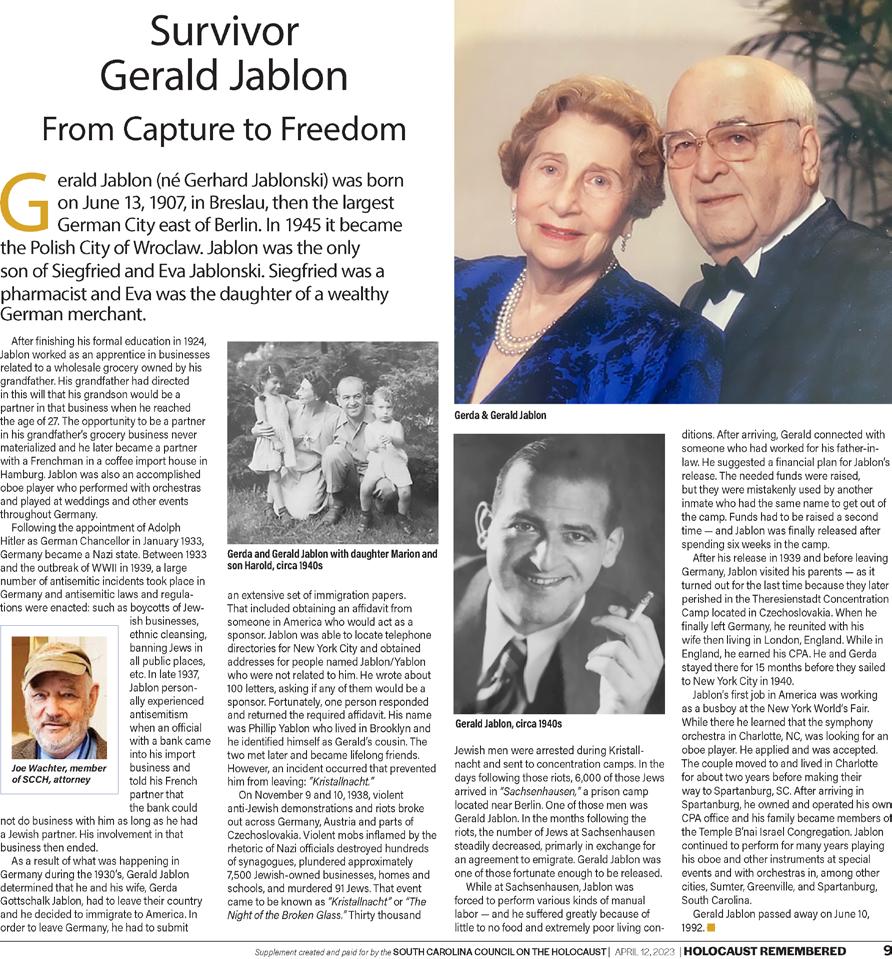
259

260
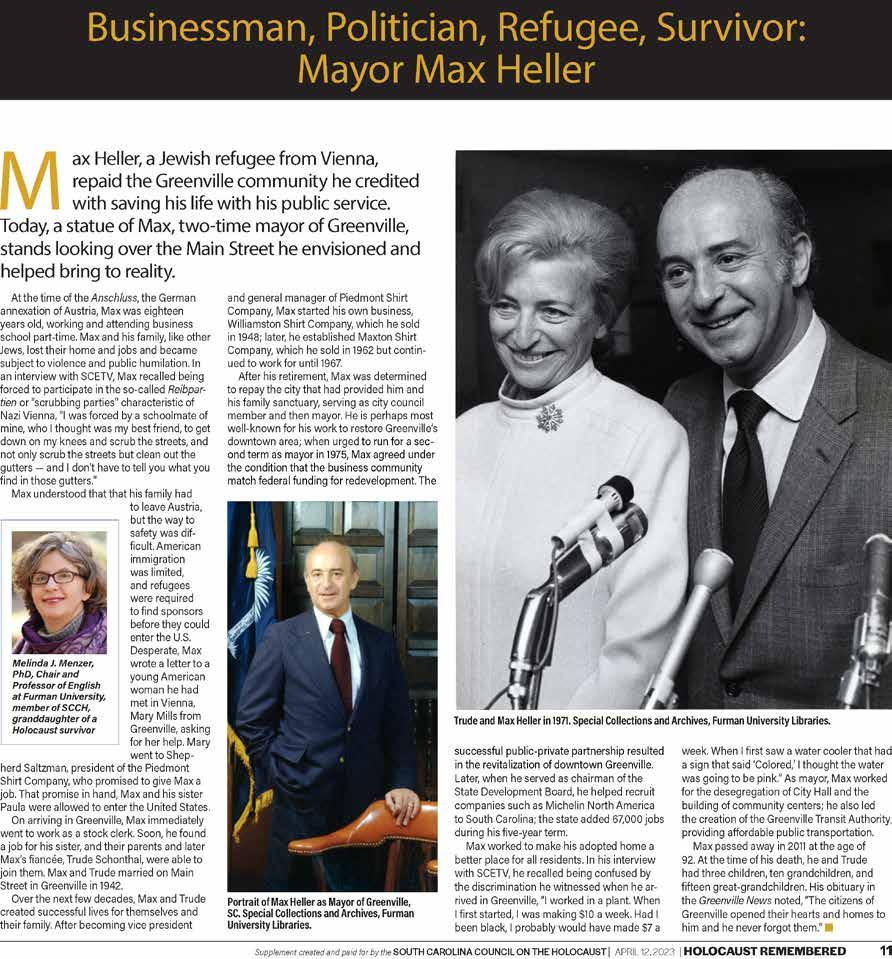
261
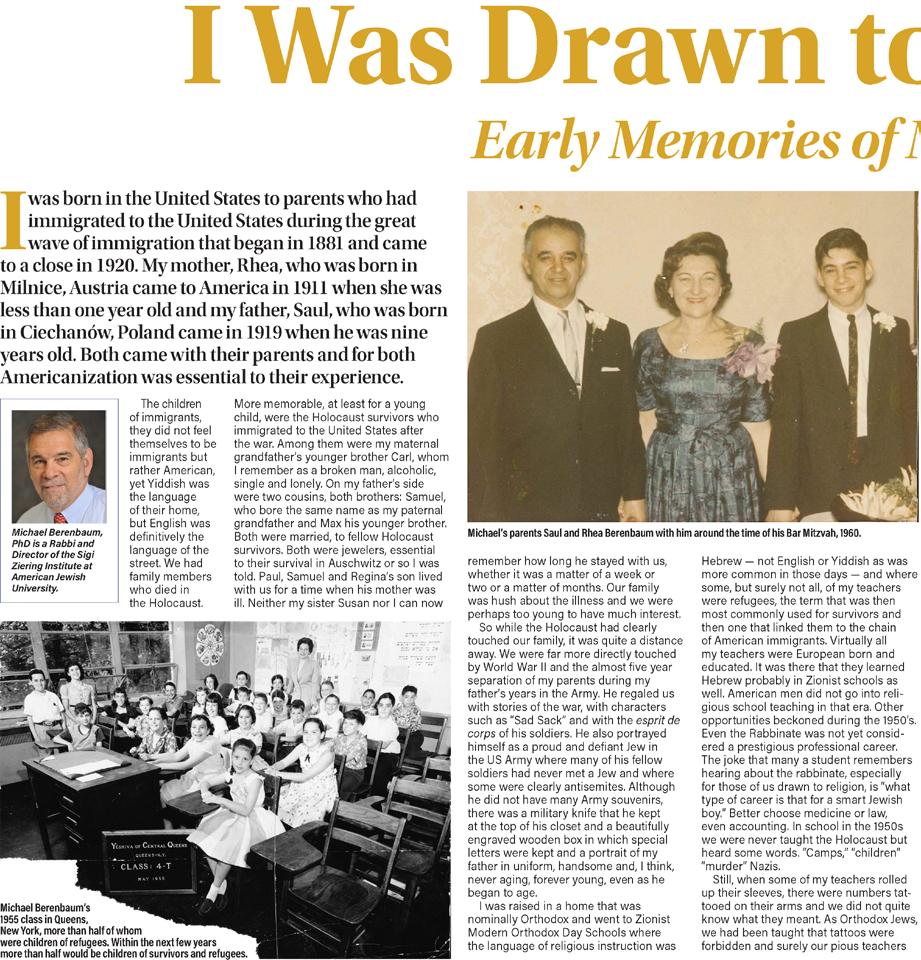
262
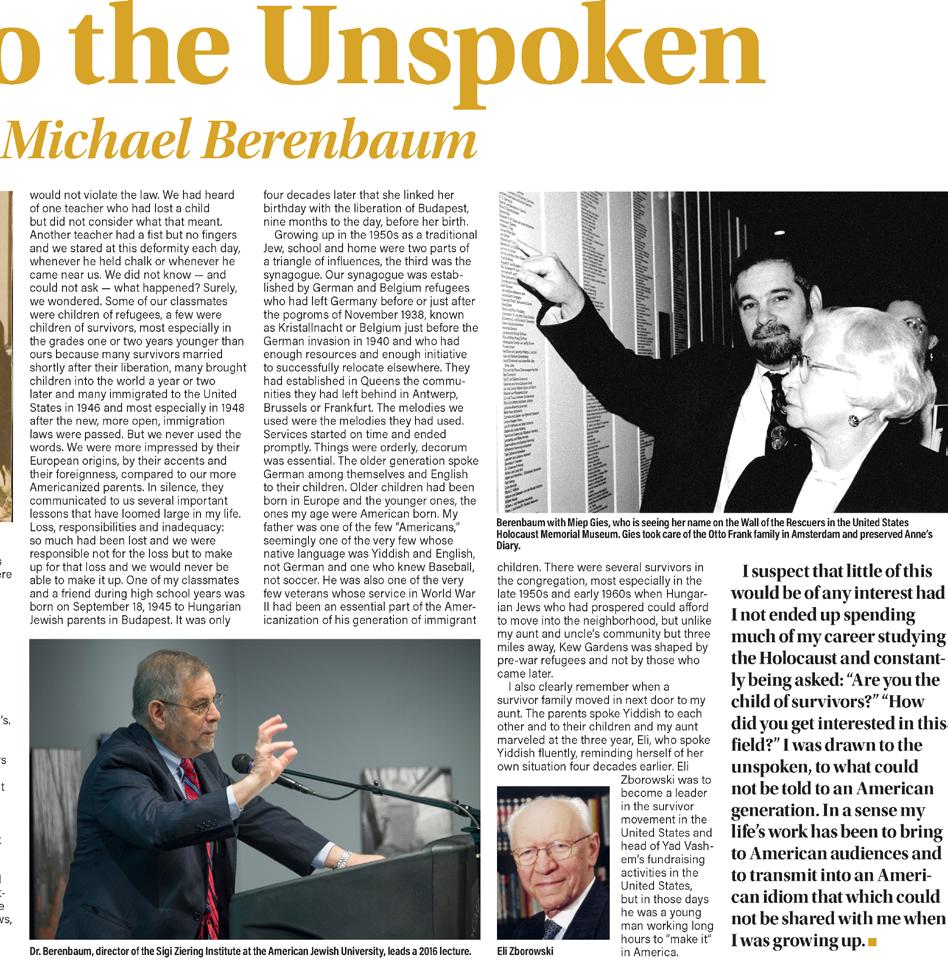
263
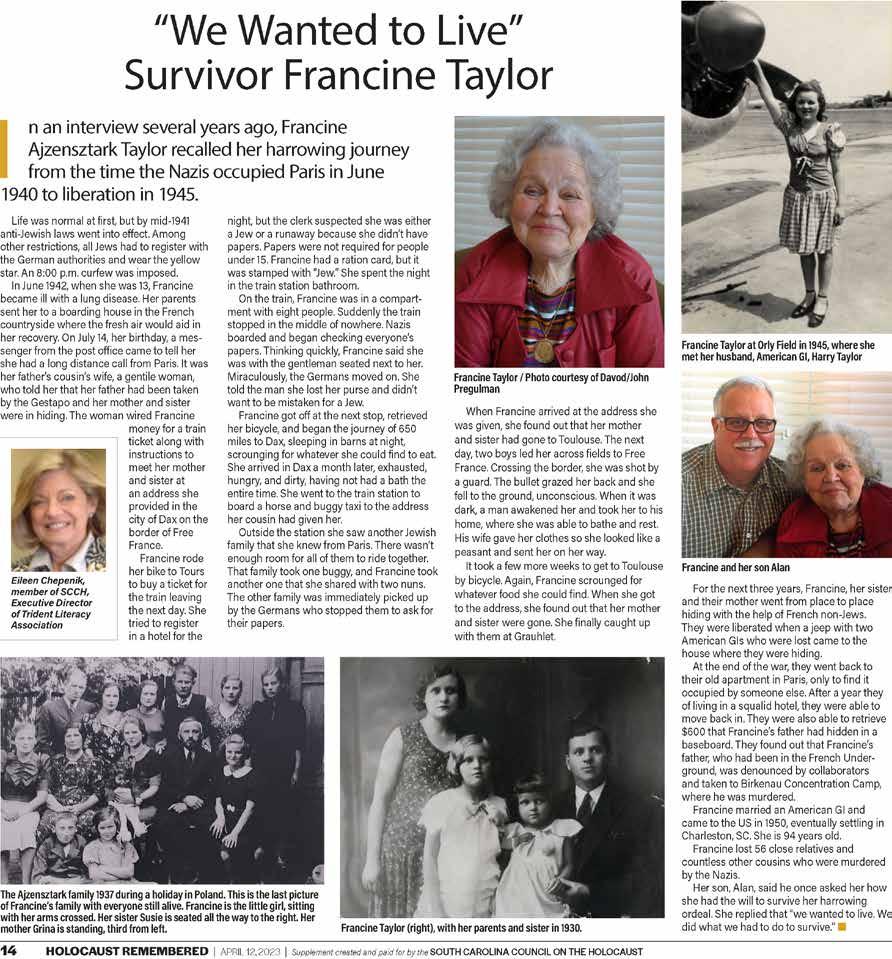
264
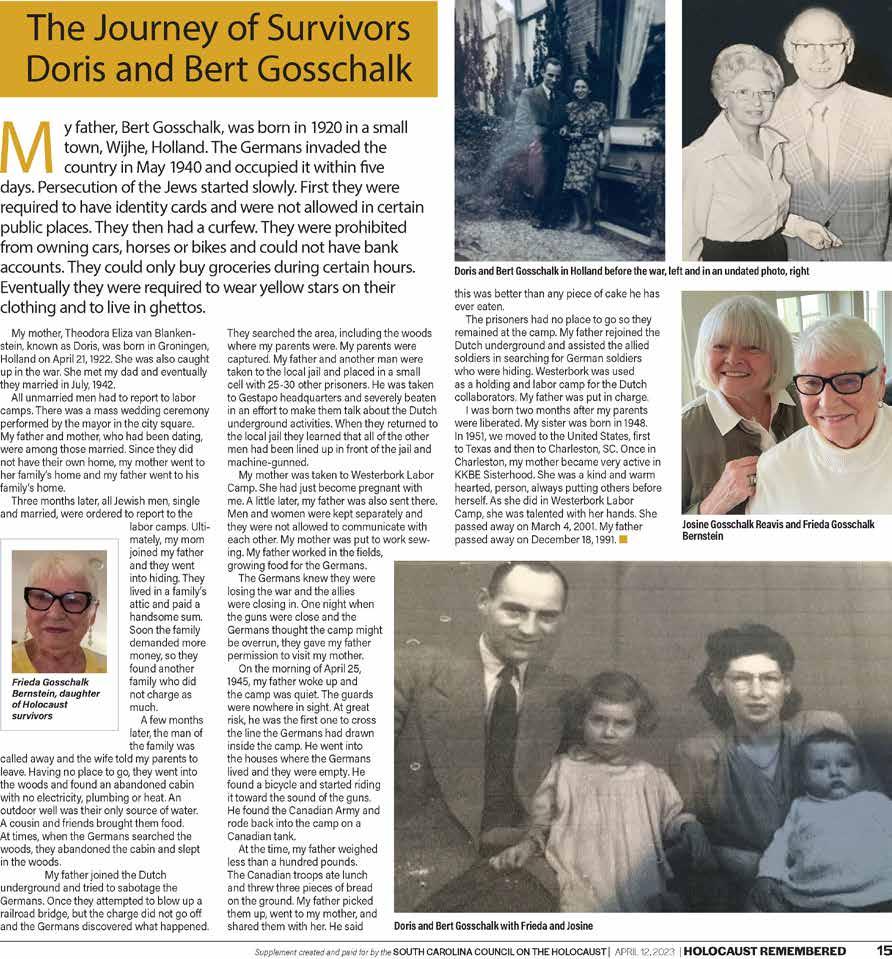
265
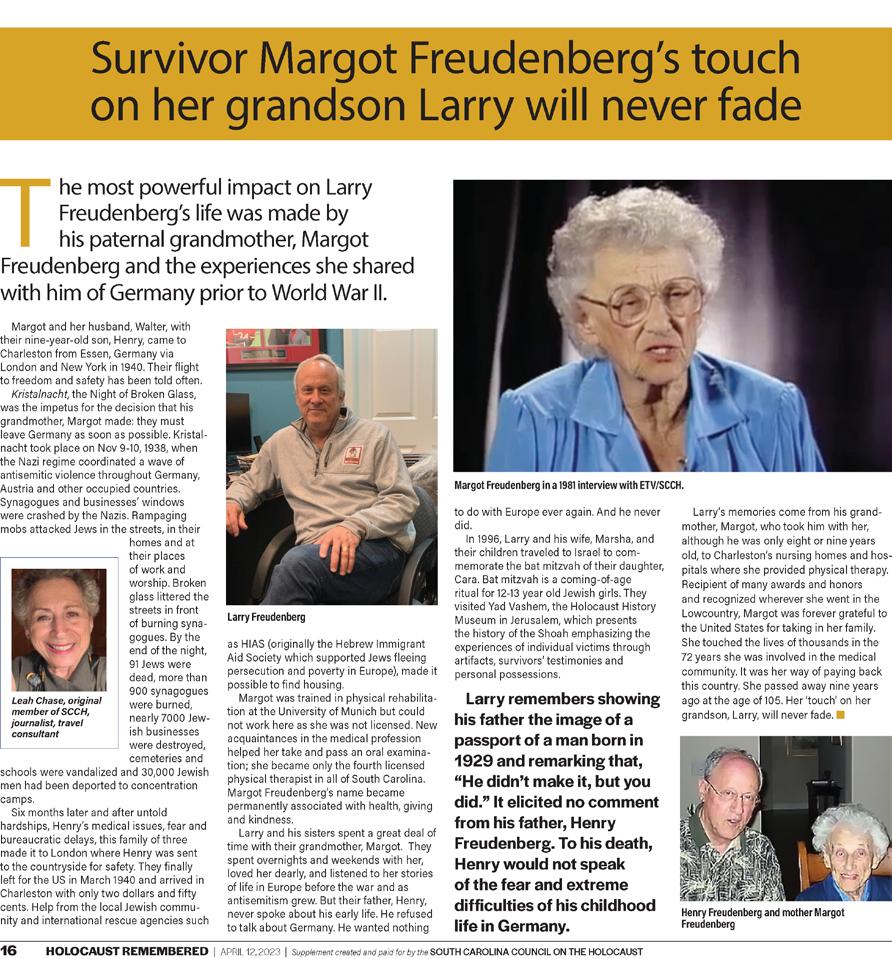
266
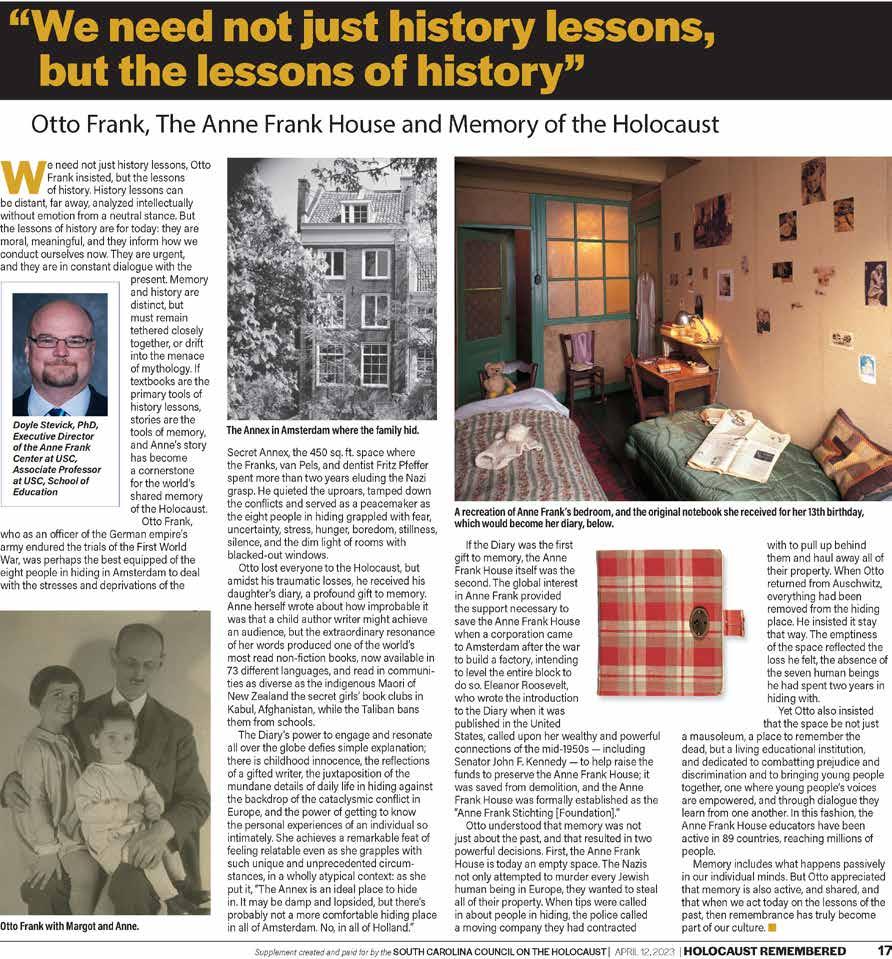
267
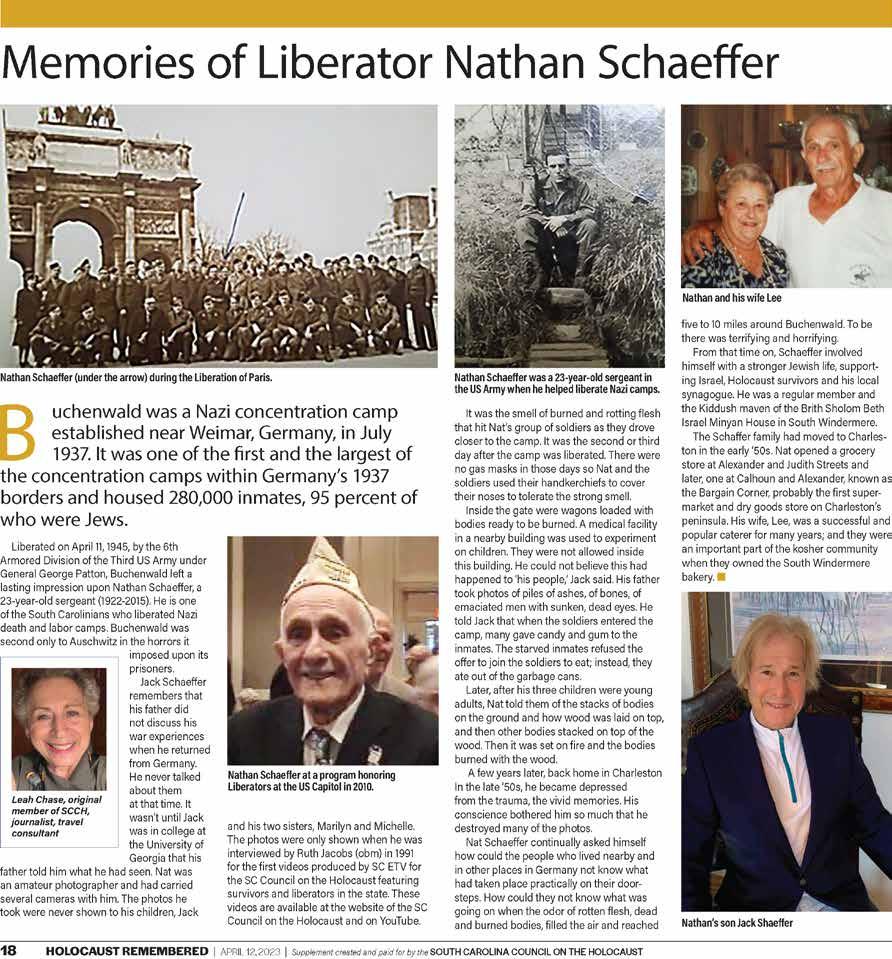
268
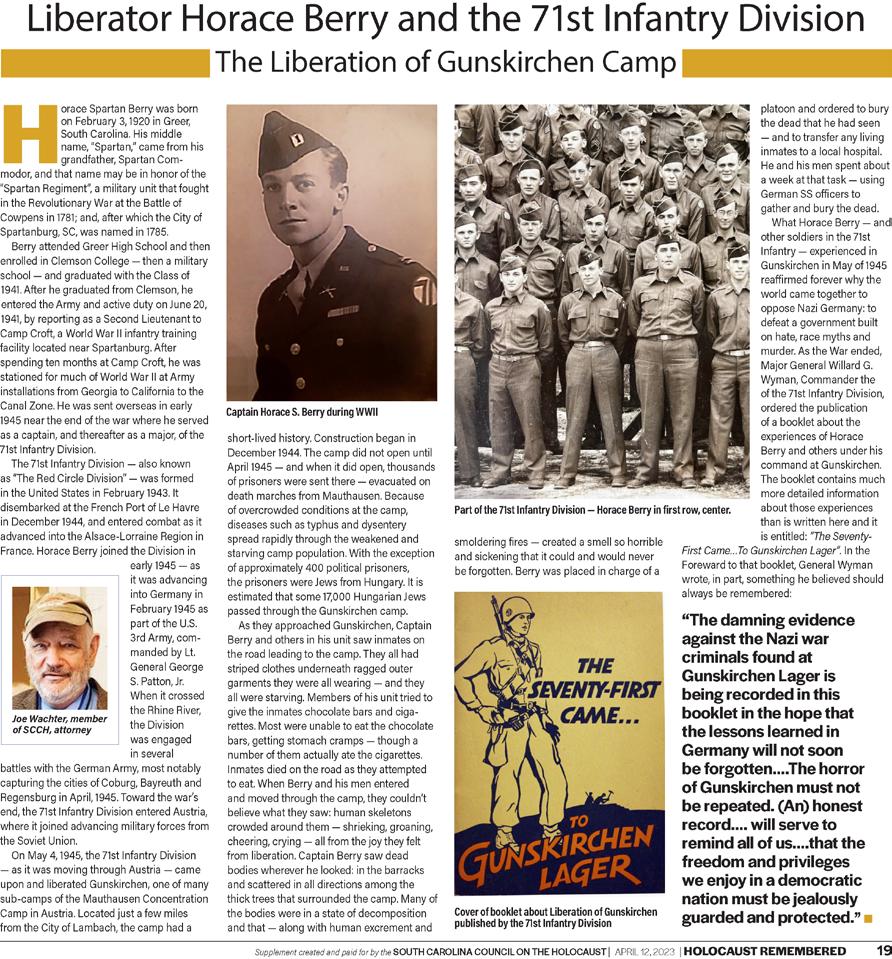
269
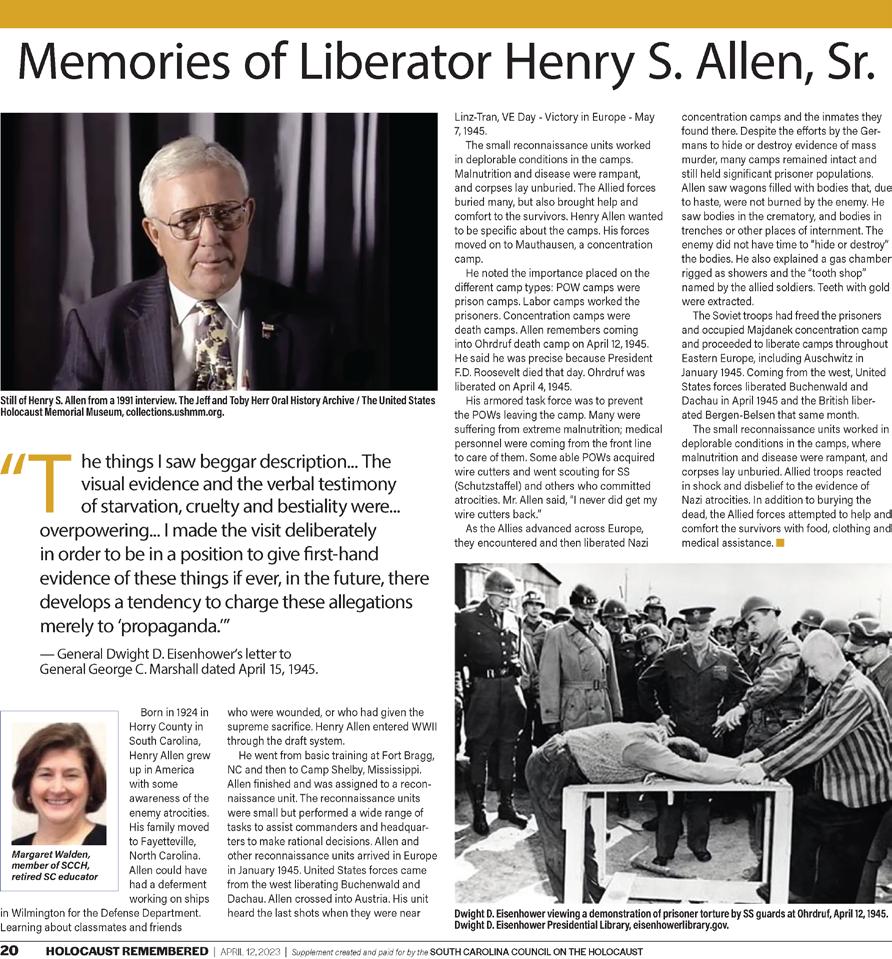
270
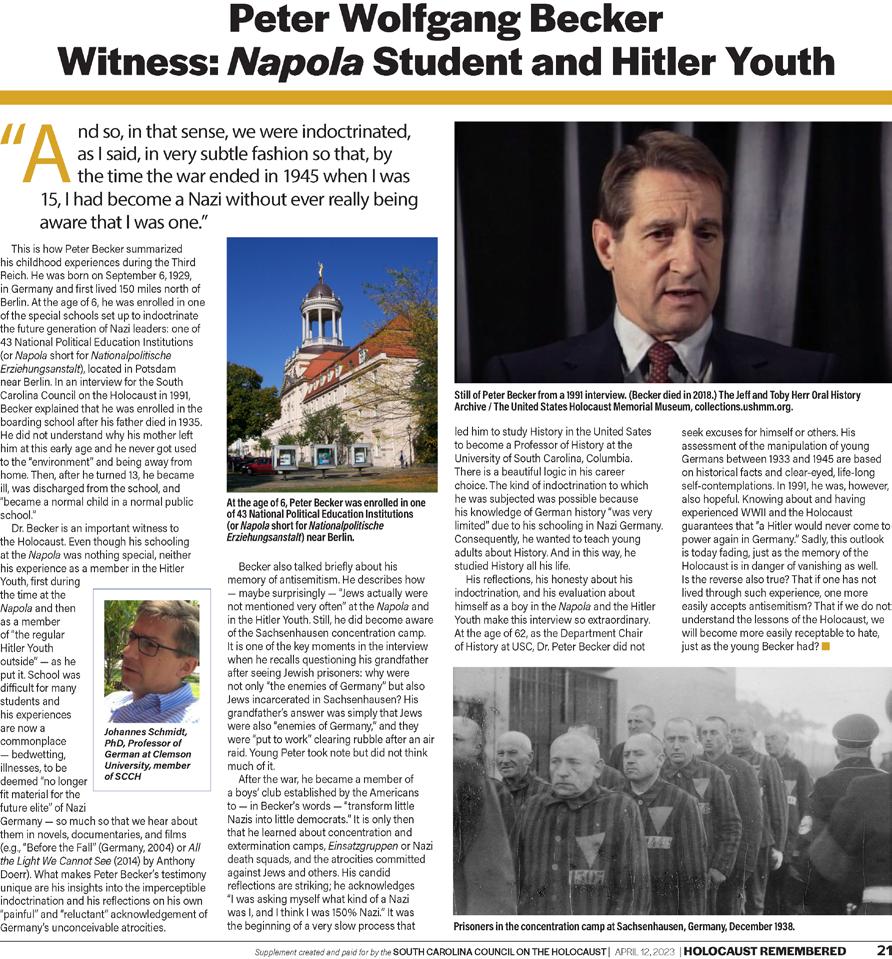
271
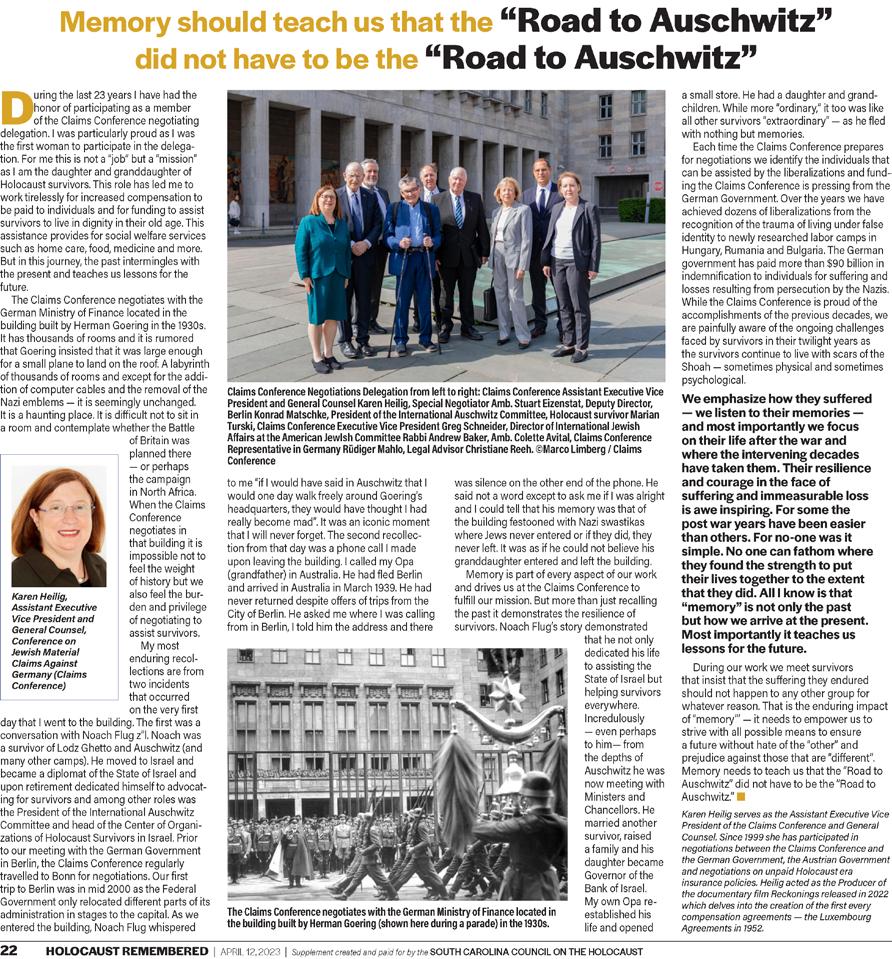
272
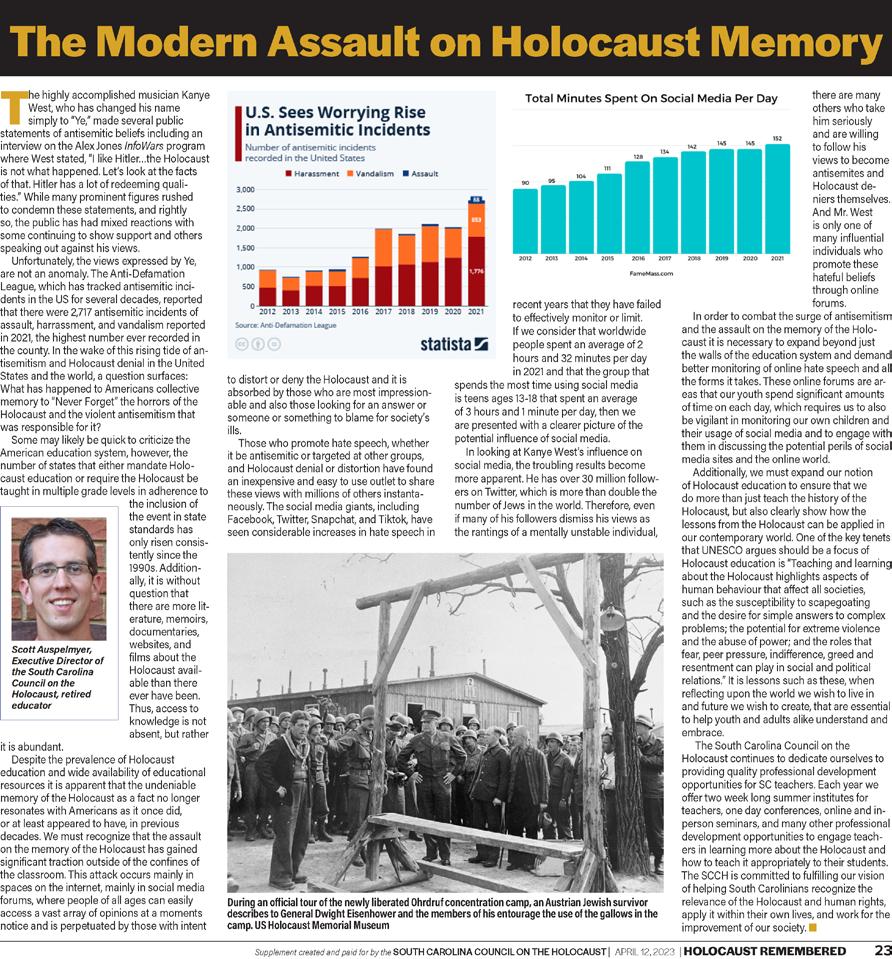
273
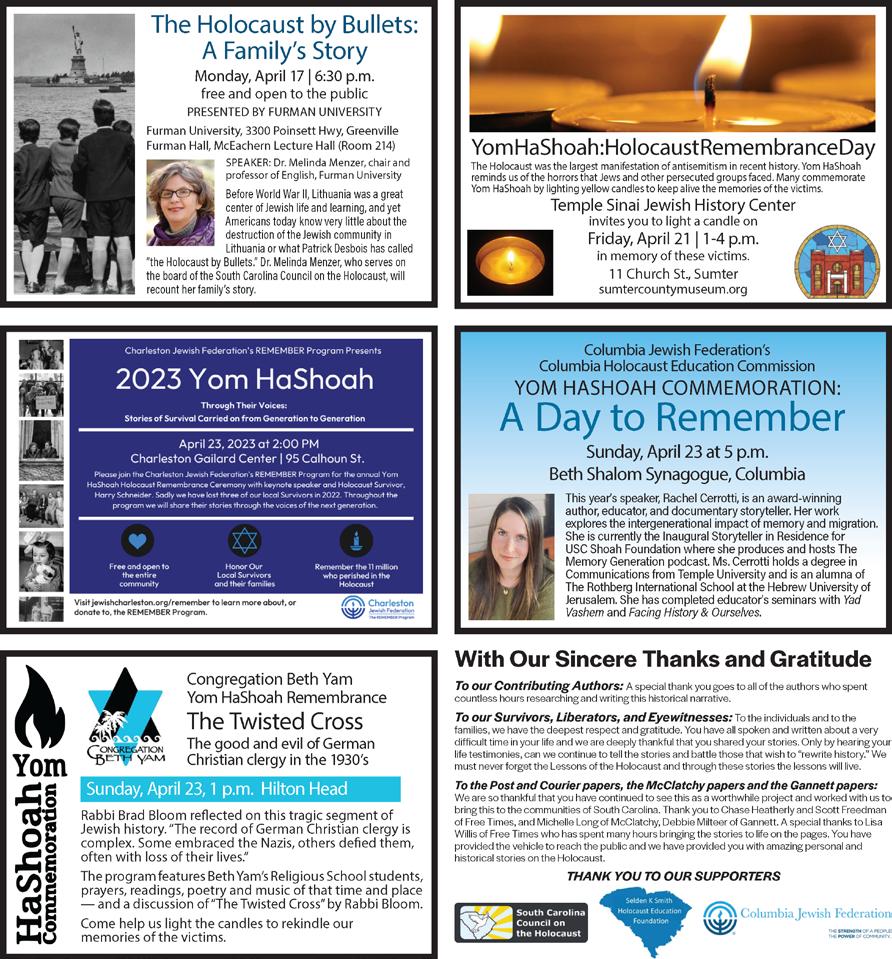
274
275
Who We Are
SOUTH CAROLINA COUNCIL ON THE HOLOCAUST
In 1989, the South Carolina Council on the Holocaust was created by the S.C. legislature. The legislature also provided funding for the Council so that commemorative programs, professional development and Holocaust resources would be available to the S.C. community. The S.C. Council on the Holocaust (SCCH) provides educational programs about the systematic genocide of six million Jews and others in the Holocaust to help prevent such atrocities from happening again. Our work seeks to honor the Survivors of the Holocaust and the Liberators who call South Carolina home.
The composition of the Council is determined by the Governor, Senate Pro temp, and Speaker of the House. Each politician appoints four members to the Council for two years, which can be renewable. The members are from throughout the State and have an interest/knowledge of the Holocaust. They are often called upon to be Speakers for commemorations or at schools, churches, and other organizations. Professional development is offered to teachers interested in Holocaust education and includes seminars, books and book reviews, scholarships to students, financial grants to teachers for their classrooms, tours of the U.S. Holocaust Memorial Museum, and Eastern European tours to name a few. The Executive Director of the Council is Scott Auspelmyer and the Educational associate is Elizabeth Stiles.
Several years ago, a “lay” program was instituted in which the Council would invite another entity or organization to become a partner with the Council. In most cases there are overlapping missions and interest for both. We are proud to announce the Partners of the Council: Selden K. Smith Holocaust Education Foundation, Anne Frank Center, Historic Columbia, Sumter County Museum, Columbia Holocaust Education Commission, the Charleston Remember Program, and the S.C. Department of Education.
South Carolina Council on the Holocaust members:
Chair
Lilly Filler, MD Vice Chair
Denise Deveaux Treasurer
Marla Palmer Secretary Brian Day
Leah Chase, Eileen Chepenik, Dr. Melinda Menzer, Dr. Adam Pitluk, Dr. Johannes Schmidt, Dr. Federicka Clementi Schoeman, Joe Wachter, Margaret Walden
The Council is committed to providing the South Carolina Community the resources, speakers, and time needed to help educate the public against antisemitism, racism, bigotry, and hatred. To learn more about the S.C. Council on the Holocaust, please visit www.scholocaustcouncil.org.
276
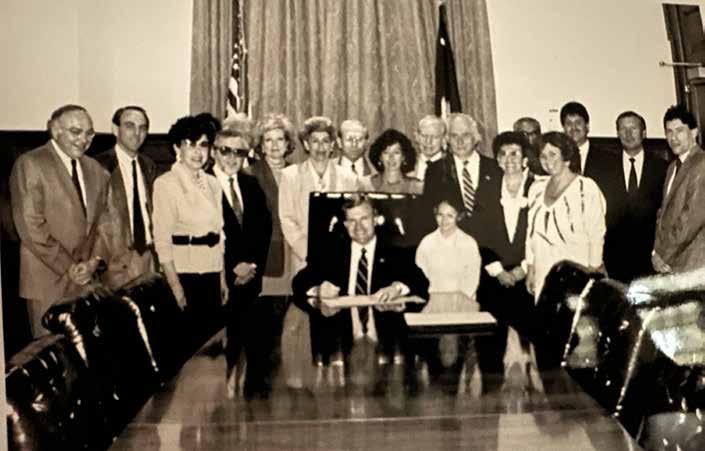
277
Governor Carroll Campbell signing the proclamation of the forming of the council in 1989
Origins
The early narrative for the Holocaust Remembered editions began in 2000. Both of my parents, Jadzia and Ben Stern (obm), were Holocaust Survivors, were married in 1946 after the war, and had a child, Lilly (me), in 1947. I am the oldest of four children and we lived a happy and comfortable life. After the death of my father, I struggled with how I would honor and memorialize his life. I pondered various things that I felt he would have enjoyed. My mom was in the final throes of advanced dementia and could not help me with ideas. What I did know was that both parents, at some point in their lives, had wanted to see a Holocaust Memorial in their adopted home city, Columbia, S.C. My mother had chaired a committee in the 1980s where themes and locations were discussed, but the project stalled. My father raised money in the 1990s but then had to concentrate on the caring of my mom.
My father died on my birthday, December 6, 1999. Within six months of his death, I had decided to honor the previous work of both parents, and establish a Holocaust Memorial in Columbia. On June 6, 2000, a committee was formed with members of the Jewish community: with collaboration of the City of Columbia and Columbia Council; with an alliance with the University of South Carolina (they were celebrating their bicentennial); and a partnership with Fort Jackson, the home of almost all Army recruits in America. The committee worked hard and received generous contributions for the project. On June 6, 2001, exactly one year after the committee was formed, the Columbia Holocaust Memorial was unveiled. The event was filmed by S.C. Education Television and they continue to air the event every spring. Over 500 people attended the unveiling, despite a light rain.
Speakers included S.C. Governor James Hodges, Columbia Memorial Committee Chair Dr. Lilly Filler, Columbia Mayor Robert Coble, Fort Jackson Colonel Scott Nahrwold, USC Vice President and Provost Dr. Jerome Odom, Holocaust Survivor Bluma Goldberg, and Liberator John Drummond. The Memorial was unveiled by the grandchildren of Survivors and Liberators. It was a beautifully perfect day. I knew the correct decision had been made in honoring my parents, and two weeks later, my mom passed and joined my father in the heavens.
Unlike most projects, there was more money raised for this Holocaust Memorial than was needed. The remaining money was used to create the Columbia Holocaust Education Commission. The Commission’s mission was to provide resources to Columbia teachers and others pertaining to the Holocaust. There was a speaker’s bureau, a Holocaust exhibit, grants provided to teachers and the start of the Holocaust Remembered editions. The first edition was published in 2014 and distributed through the McClatchy paper in Columbia. As its popularity grew, more distribution was obtained. In 2022, the project was supported by the S.C. Council on the Holocaust and had state-wide distribution in all three major publishers in the State: McClatchy, Gannett, and the Post & Courier.
278
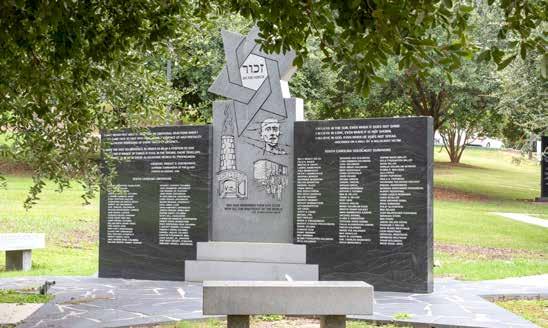
When 10 editions were completed, it was decided to combine them in an anthology that could be used as a reference and teaching tool. It is wonderful to see this come to fruition. Thank you! Ten years, 10 editions about the Holocaust: telling the stories of Survivors that immigrated to South Carolina, those South Carolinians that fought in WWII and liberated or witnessed the Holocaust, and varying themes related to the Holocaust. It has been one of my greatest joys to see how important this publication is to the general public and to the S.C. Council on the Holocaust that continues to support it.
It is with great pride and deep humility that I dedicate this anthology to my beloved parents Jadzia and Ben Stern (obm). They survived the Holocaust, lost almost all of their families, immigrated to a strange country with a different culture, mores and language. They reared four children who became successful in their own professions. They stressed the importance of Jewish life and the need to repay the Jewish and secular communities. They believed in education, freedom, and in the United States.
Thank you, Mom and Dad, for the foresight that you had for a Holocaust Memorial in Columbia and ultimately, the writings for 10 editions of Holocaust Remembered!
Sending you both love and gratitude, Your oldest daughter,
Lilly
279
The Columbia Holocaust Memorial in Memorial Park, Columbia, S.C.
Acknowledgements
This project has been a success because of the many participants involved. I wish to acknowledge the people that worked so diligently and participated in this endeavor.
All of the Survivors and Liberators and their families that graciously gave of their time to retell a very difficult time of their lives, I thank you! Without your witness, the world would not know of the catastrophic events of the Holocaust.
Holocaust scholars and academics added a dimension that could only be achieved by the expertise of our Professors. As a different theme was chosen for each edition, you were chosen for your ability to explain and demonstrate what needed to be known.
McClatchy, and then the Post & Courier and Gannett newspapers, joined the supplement group to help with identifying and distributing the Holocaust Remembered supplement throughout the state in their publications. You had the vehicle and we provided the stories. The public, consequently, had the opportunity to learn and digest historical facts. I especially want to mention Lisa Willis, my “magician,” who turned the typed pages into beautiful articles.
The initial idea of the supplement and funding was discussed with the Columbia Holocaust Education Commission, CHEC. This Commission was formed with the remaining money from the completed Columbia Holocaust Memorial. (Photos taken by Mitch Litwer.) We solicited funds from corporations and individuals for seven years (2014-2020) for the publication of Holocaust Remembered. The project was then transferred to the S.C. Council on the Holocaust (2021-2023), who stepped in to ensure stability. A special thank-you to Lyssa Harvey, who co-chaired CHEC with me for 20 years.
The S.C. Council on the Holocaust, SCCH, a governmental entity, supported both financially and academically the success of the project. Individual members of the Council listened to hours of verbal testimony to bring the S.C. Survivors and Liberators’ stories to the pages of the publication. This was in addition to the previous involvement with SC ETV in the early 1990s to film the testimonies of all South Carolina Survivors and Liberators that could be identified. Thank you to all of the Council members for accepting responsibility to research and write the stories (www.scholocaustcouncil.org). These stories are on our website. Thank you to SCCH Executive Director Scott Auspelmyer for your encouragement and assistance.
Thank you to Adam and Kimberly Pitluk and David Halloran of Southern Luxury Publishing for urging me to put this anthology together and had faith that this was a necessary and worthwhile endeavor. Their expertise and encouragement led me to move forward with this project.
As an Obstetrician/Gynecology, I know what it is to labor. The rewards are indescribable! This is a labor of love as well. Each year, as the supplement comes together, I am filled with pride and excitement. Thank you to all who have made this so meaningful!
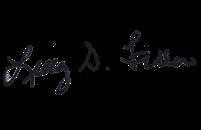
280
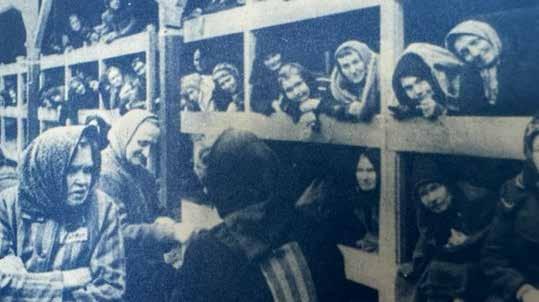
281
Arielle Aaron
Larisa Aginskaya
Dr. Marion Aldridge
Dr. Amit Almor
Inge Aueracher
Scott Auspelmyer
Frank Baker
Rachel Barnett
Charles Beaman, Jr.
Susan Benedict
Mayor Steve Benjamin
Dr. Michael Berenbaum
Dr. Christine Beresniova
Les Bergen
Frieda Gosschalk Bernstein
Sam Bleweis
Rabbi Brad Bloom
Arnold Breman
Dr. Allan Brett
Contributors
Mary Burkett
Rabbi Jonathan Case
John Chamberlain
Leah Chase
Eileen Chepenik
Patricia Cogdill
Leah Greenberg Davis
Brian Day
Evaline Delson
Denise Deveaux
Talli Dippold
Janice Edwards
Chavi Kalms Epstein
Rabbi Hesh Epstein
Dr. Rebecca Erbelding
Dr. Jeff Eargle
Dr. Carl Evans
Judith Dim Evans
Dr. Harold Friedman
Dr. Lilly Filler
Franscois Fisera
Dr. Wesley Fisher
Tamara Reps Freeman
Terry Garber
Henry Goldberg
Barbara Goldstein
Susie Goldstein
Rachel Golson
Dr. Lauren Granite
Harlan Greene
Lyssa Harvey
Salleigh Harvey
Rachel Haynie
Dawn Miller Heineman
Karen Heilig
Justin Heineman
Hayes Hoover
Irene Jablon
282
Dr. Robert Jesselson
John Kassel
Jeff Kolendar
Marisa Kornblut
Jane Kulbersh
Jennifer Lemberg
Joe Lipton
Donna Magaro
Phillis Mair
Marc Masurovsky
Gad Matzner
Hannah Goldberg McGee
Sally McInerney
Dr. Donald McKale
Dr. Melinda Menzer
Henry Miller
Rabbi Dr. Meir Muller
Dr. Josef Olmert
Marla Palmer
Hope Patterson
Janet Paul
David Polen
David Popowski
Raisa Rabinovich
Ashley Robertson
Sherri Rosenblum
Dr. Ted Rosengarten
Dr. Robin Rosenthal
Marlene Roth
Arlene Bridges Samuels
Ellie Schiller
Dr. Johannes Schmidt
Dr. Federica Clementi Schoeman
Senator Katrina Shealy
Henry Silberstern
Rabbi Philip Silverstein
Dr. Don Sloan
Dr. David Sluki
Erica Smith
Dr. Selden Smith
Dr. Saskia Coenen Snyder
Sarah Spoto
Dr. Doyle Stevick
Risa Strauss
Howard Stravitz
Jack Swerling
Emily Taylor
S.C. Chief Justice Jean Toal
Anna Ullrich
Joe Wachter
Margaret Walden
Dr. Abe Wandersman
Rev. Dr. Herman Yods
Anny Zelesne
Anita Zucker
283
284
Students and teachers attend a Council event
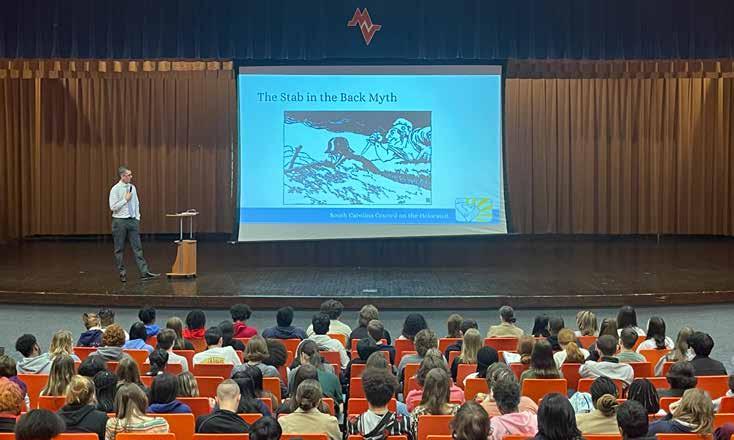

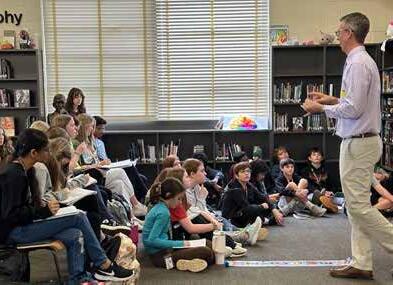

2

 The Columbia Holocaust Memorial in Memorial Park, Columbia, S.C.
The Columbia Holocaust Memorial in Memorial Park, Columbia, S.C.

































































































































































































































































